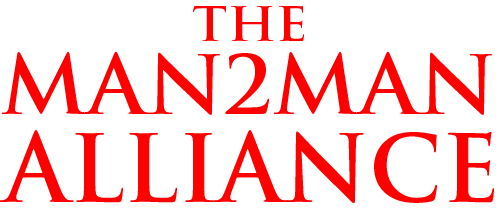




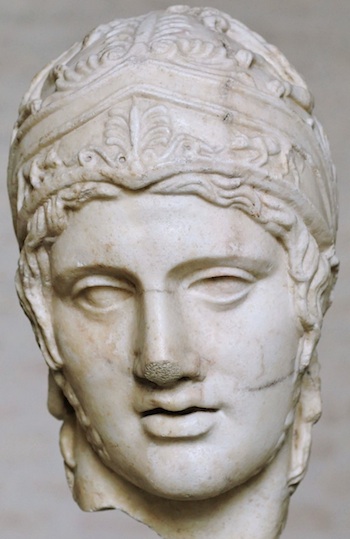

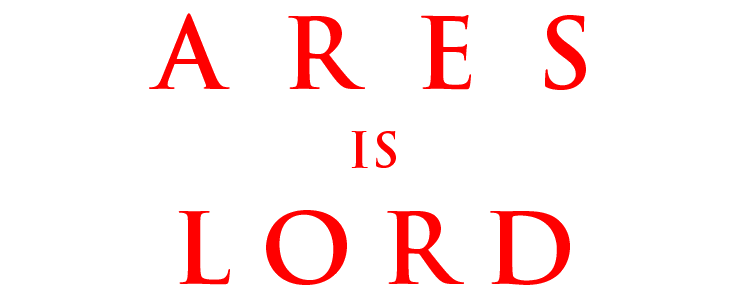
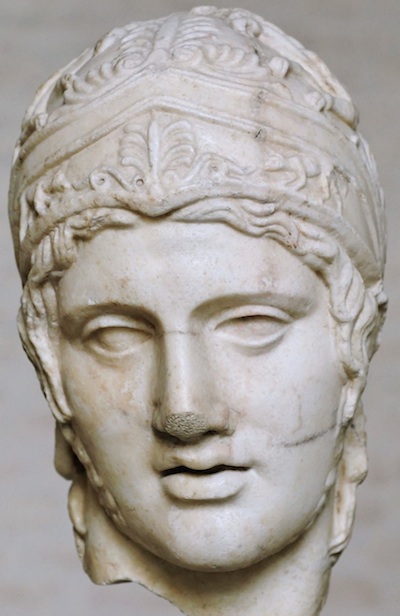









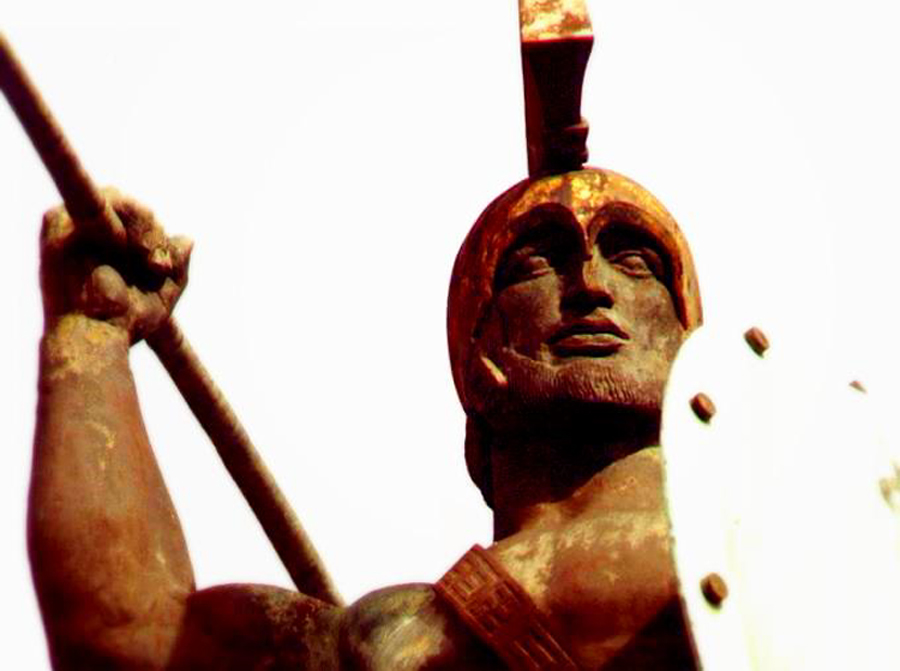


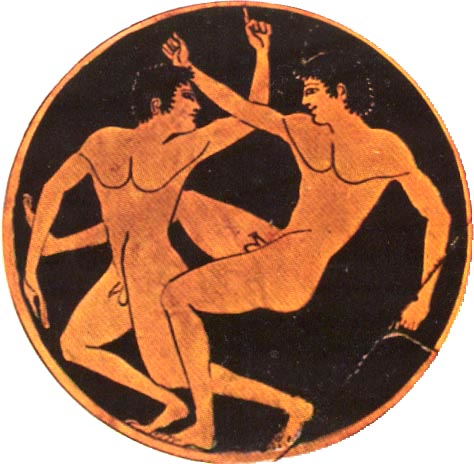
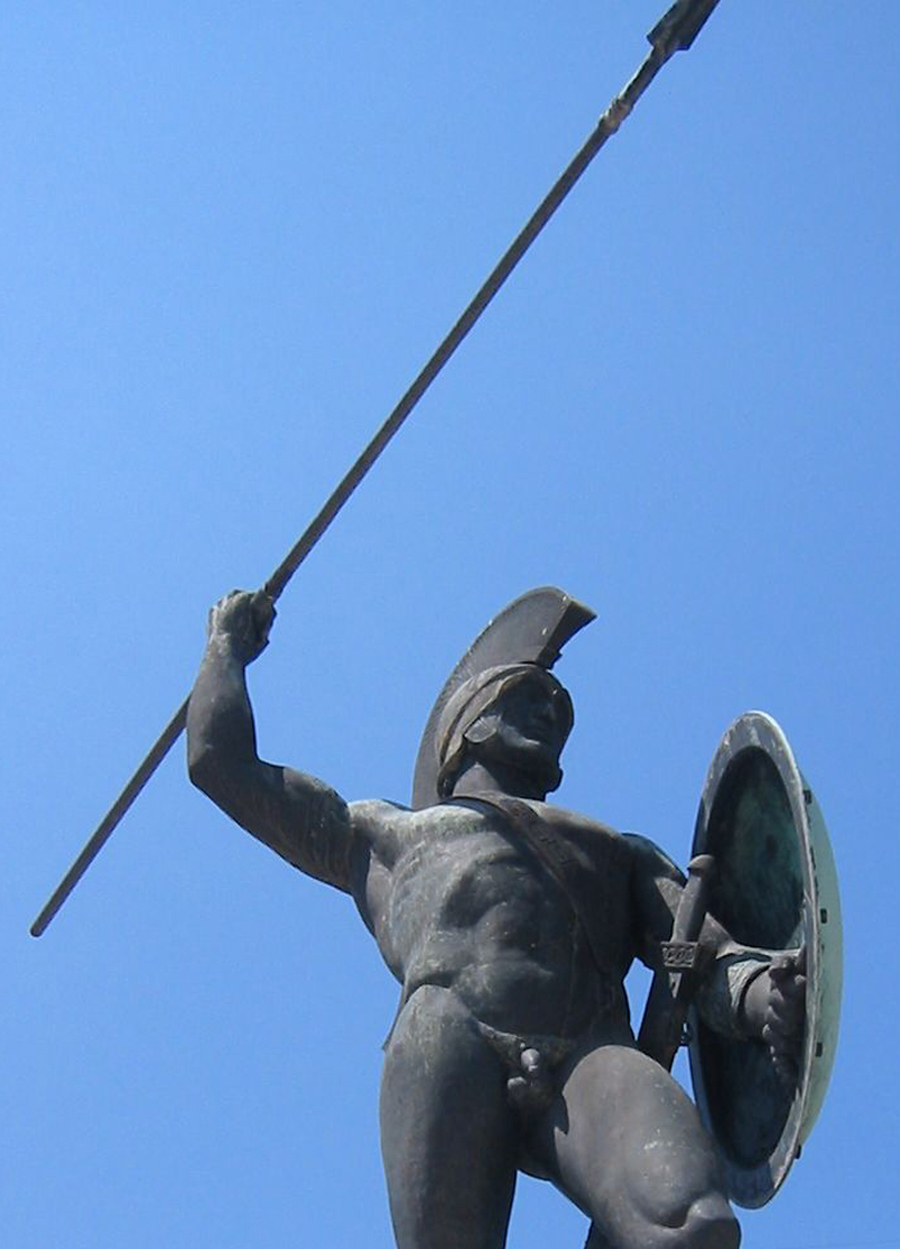
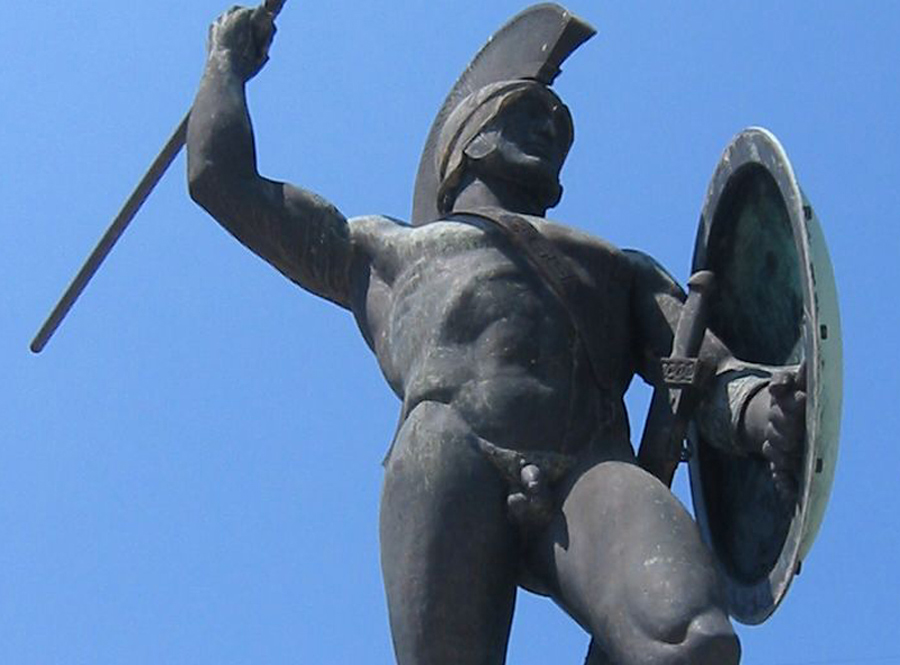
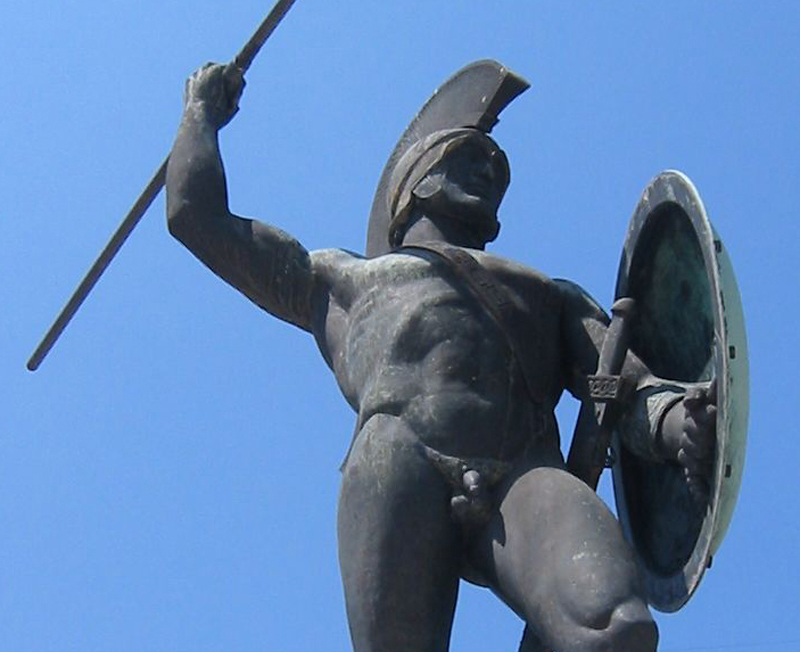


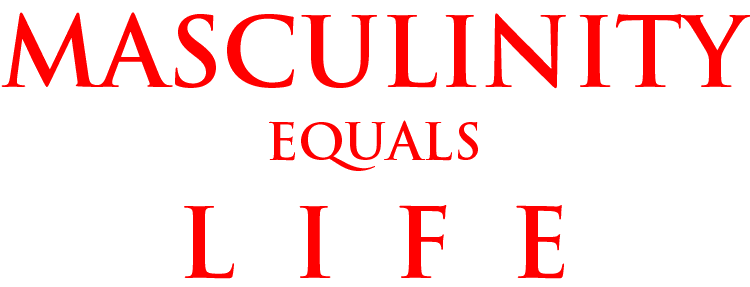







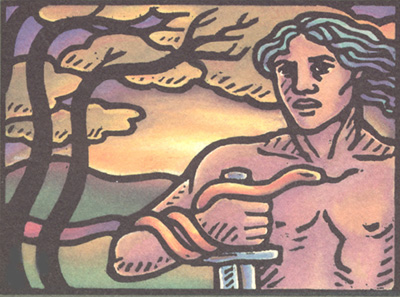


Hail Warrior!
Welcome to Biblion Pempton -- Book V -- of Manhood: A Lexicon.
My name is Bill Weintraub, and I'm the creator of The Man2Man Alliance and Ares is Lord websites, and the author of Manhood: A Lexicon.
Manhood: A Lexicon is, basically, a book -- masquerading as a webpage.
And, like any book, it's best read from the beginning.
So -- I strongly encourage you to read, if you haven't already, the Prefatory Note and Prolegomena to Manhood: A Lexicon ;
And then Biblion Proton ;
Followed by Biblion Deuteron, Biblion Triton, and Biblion Tetarton.
It's important that you read that material, and in that order:
Doing so will not only greatly aid your understanding of the material you encounter in Biblion Pempton and the rest of Manhood: A Lexicon -- but is essential to your understanding that material.
Translation :
You won't be able to understand Biblion Pempton -- Book V -- without having first read the Prolegomena and the first four books.
Similarly, if you've already read that material -- but it's been a long time since you re-read it -- you'll need to review it.
For example :
Can you explain the difference between the world of becoming and the World of Being?
You have to be able to.
Can you tell me who Shorey, Jaeger, Jowett, and Lendon are?
Or Xenophon?
Or Arrian?
Or Aristonicus?
You have to be able to.
The material in Biblion Deuteron regarding being vs becoming is particularly important.
But so is your ability to explain the difference between the definition of Manhood in ancient Greece and its definition in contemporary America.
So :
You need to read -- and if you've already read once -- to review.
Now :
Biblion Pempton -- Book V -- which is titled Warrior Kosmos, Warrior Sanction /
Ares Hypostatized : Manhood is God -- is divided into ten chapters, of which the first two are being published today, January 30, 2014 :
I ARES: Manliness is Godliness
II ARES: High-Minded Passion and Noble Anger
Future chapters will be announced on this page, and on the Personal Stories message board.
Again, it's important that you read all ten chapters, and in the order given, starting with these first two :
I ARES: Manliness is Godliness
II ARES: High-Minded Passion and Noble Anger
Throughout all five books of the Lexicon, there appear translations of ancient Greek texts.
Certain words within the texts are indicated with brackets and a link, thus :
Whenever you see a bracketed link of that nature, it's essential that you click on it and read the definition given.
I repeat :
Not once, but every time you see the word, until you are 100% absolutely and without a doubt confident that you know exactly and precisely what the word means, you MUST click on and read the link.
Doing so is particularly important for the words we discussed in Parts II and III of Biblion Proton : The Alphas of Male, including Andreia, Arren, Aristos, Areté, etc ; and Men of Honor : The Morally Beautiful, the Righteously Erect, and the Warrior Worthy : Kalos-Kalon-Kala, Orthos, and Timé.
However, every word in the Lexicon is important -- and all bracketed links must be read.
Here's an example of why -- from Plato's Symposion :
Sokrates :
~Plato. Symposion. 212b, translated by Lamb.
The first bracketed link is of [timao] -- a word which greatly matters because it's derived from Timé -- Worth.
Warrior Worth.
So -- the first sentence should read "I tell you now that every Man should deem Love Worthy" ; and the word "Worthy" is important because it's a Warrior Word which, in this context, connects Romantic, Passionate Love between Men -- with the Warrior Worth -- the Timé -- Men earn through their Prowess on the Battlefield -- through their Prowess in Fight.
Again :
The first sentence should read "I tell you now that every Man should deem Romantic, Passionate Love between Man -- Worthy" ; and the word "Worthy" is important because it's a Warrior Word which, in this context, connects Romantic, Passionate Love between Men -- with the Warrior Worth -- the Timé -- Men earn through their Prowess on the Battlefield -- through their Prowess in Fight.
In other words, Sokrates' use of the word Worth -- Warrior Worth -- very explicitly connects Romantic, Passionate Love between Men -- with -- FIGHTING.
And in so doing, connects that Love with the Warrior Worlds of both Warriordom and Warrior Kosmos.
In short, timao matters.
But the other words matter too -- a LOT.
Why?
Here's Lamb's translation of the second clause :
And here's the actual meaning of that second clause :
both now and always do I praise as one would a conquering hero [enkomiazo -- see enkomios], the Might [dynamis] and Manliness [andreia] of Romantic, Passionate Love between Men [Eros] -- as far as I am able.
Hopefully you can see the difference between Lamb's translation and the actual meaning of the second clause, and understand therefore why it matters that you learn the actual meaning of ancient Greek words.
You'll notice that Lamb has translated andreia as "valor," when its actual meaning is Manhood, Manliness, Manly Spirit.
Does that mean Lamb has done something bad or wrong?
No -- not within the context of when he was writing -- ca 1925 -- and the Men he was writing for.
But he has, inadvertently, done something injurious to males like yourselves, who not only don't know how to Fight, but are completely ignorant of the ancient Greek and Roman, Fighting-Manhood-based, Ethical System.
We'll discuss that system throughout Biblion Pempton.
In the first two chapters of Biblion Pempton, we examine, among other matters, two variants of the system :
In Chapter One, the Involved or Integral Virtues of Manhood, Piety, Temperance, and Manly Moral Order ;
and, in Chapter Two, the more common variant, which puts MANHOOD and its attributes at the center and core of that system.
It's essential that you understand BOTH variants.
The idea of the Four Integral Virtues is simple : There are Four Virtues -- Manhood, Piety, Temperance, and Moral Order -- and you can't have one without having the other three.
The Manly Man is Pious, Temperate, and Morally Ordered ;
The Pious Man is Manly, Temperate, and Morally Ordered -- etc.
In the Manhood System, which, again, was certainly more common in ancient thought, Manhood, Fighting Manhood, is at the Moral Center of Society -- the Warriordom -- and of the Kosmos -- both created -- Fight is the Father of All -- and eternal -- the Warrior World of Being, the Warrior Kosmos.
Fighting Manhood has attributes -- one classicist names fifteen -- which every Man Struggles to Attain -- so as to Perfect his Manhood.
Put differently, the Perfect Man, the Man every male should strive to be, has all of the positive and active attributes of Fighting Manhood :
You should memorize both the Four Integral Virtues and what we can call the Four V's of Fighting Manhood -- Vigor, Valour, Virtue, and Value -- along with all their attributes of Strength, Excellence, Fortitude, etc. ;
And then, as you read, keep the two systems constantly in mind.
And to help you better understand the second of the systems, which again we call the Manhood System, I've written a small article with a long title, Understanding the core position
and actual meaning of Andreia-Areté-Virtus within the Culture of
Fighting Manhood, which I encourage you to read.
Finally, and once again, it's important that you read the entire Lexicon, beginning with the Prefatory Remarks and Prolegomena, and ending with this Biblion Pempton, and in the order given.
January 30, 2014
BIBLION PEMPTON
By Bill Weintraub
Chapter List :
I ARES: Manliness is Godliness
II ARES: High-Minded Passion and Noble Anger
BIBLION PEMPTON
ARES: Manliness is Godliness
By Bill Weintraub
ωe begin with a new word and phrase, and a very important one for our subsequent discussion:
So:
Liddell and Scott define Homoiosis as "a being made like" and then add, immediately, "Theo" -- that is, God -- referring the reader to Plato's Theaetetus 176b, in which the phrase Homoiosis Theo means:
to become like God
ομοιωσις Θεω
~Plat. Theaet. 176b, translated by Fowler.
And that, according to Plato, is the goal of ALL philosophy -- that the individual, as much as possible, become like God.
But what, then, is God like?
Plato :
"to become like God, so far as this is possible," says Fowler ;
"Become like to God as far as may be" -- says Shorey.
To become like to God is to become "Dikaios" -- which, as we saw in Biblion Tetarton, means righteously well-ordered -- that is, well-ordered in a Manly way: the word refers, de facto, to a Manly Moral Order -- which means that to be Manly, according to Plato, and as I said at the end of Biblion Tetarton -- is to be like to God ;
And then there's
"Hosios" -- holy and pious -- and readers of the discussion of hybris in this Lexicon know that Greek Warriors, and in particular the Spartans, who were without question the Manliest of the Greek Warriors, were very pious ;
And,
"Phronesis" -- again, Phronesis is actually defined as purpose, intention, thoughtfulness, prudence -- Fowler says "wise," and that's fine in context, but the word is obviously related to sophrosyne -- which is the distinctly Manly quality of temperance, prudence, moderation, sensible and purposeful living -- in short, Manly Self-Control.
So:
Virtue, as we saw in the last section of Biblion Tetarton, In Union With Valour -- Virtue, canonically and to the Greeks, has four components, each of which is "involved," as Paul Shorey puts it, with the other three:
And you'll notice, first off, that each of the virtues has at least two words which characterize it, eg Piety / Wisdom.
Piety / Wisdom is actually one virtue -- Plato sometimes uses one word or the other, but clearly, given that Plato has said that we should seek to become like God, he's very religious -- indeed, he was far more religious than most of the philosophers who'd preceded him --
Which means that to him, Wisdom and Piety are virtually the same thing.
And that's so with the other three as well:
Self-Control / Temperance -- they're the same deal ;
Justice and Moral Order -- if you've read Biblion Tetarton, you understand that Justice is the result of a Moral Order, indeed of a Manly Moral Order, a Moral Order suffused with Fighting Manhood -- and that within such a Manly Moral Order, Justice is a given ;
And, of course, that Manliness is Fighting Manhood.
So -- those nine or ten words signifying Piety, Temperance, Moral Order, and Manhood, make up the Four Canonical Greek Virtues.
And the "involvement" works like this:
You can't have one -- without the other three.
So:
The Manly Man is Pious ; the Pious Man is Manly.
And Just -- Morally Ordered -- and Temperate.
The Morally Ordered Man is Manly ; the Manly Man is Morally Ordered.
And Pious -- and Self-Controlled.
For example :
I have a friend who has a co-worker who claims he used to be a Fighter.
And my friend therefore thinks of him as Manly.
But Plato -- and most of the other Greeks -- would NOT have agreed.
Because this alleged former fighter is NOT self-controlled -- anything but ;
he claims to be pious, but his actions do not remotely support his words ; and, of course,
he's not morally ordered -- his life is NOT a morally-ordered place.
Rather, it's an amoral, hedonistic, greedy, mess.
By Greek standards, then, of what we can call Integral or Involved Virtue, he's not manly.
He's not anything.
So, and once again :
Piety, Temperance, Moral Order, and Manhood, make up the Four Canonical or Integral Greek Virtues.
And the "integral" part works like this :
You can't have one -- without the other three.
So :
The Manly Man is Pious ; the Pious Man is Manly.
And Just -- Morally Ordered -- and Temperate.
The Morally Ordered Man is Manly ; the Manly Man is Morally Ordered.
And Pious -- and Self-Controlled.
And, you know, Fowler, the translator, doesn't have it quite right.
What Plato actually says is
And that's a very clear statement of what we might call Integral Virtue : Righteousness [Manly Moral Order] and Holiness [Manly Piety] in union with Thoughtfulness -- Manly Temperance.
What about Manliness aka Fighting Manhood?
Hang on for a moment.
Because in the Laws, Plato says that Wisdom and Temperance, when combined with Fighting Manhood -- yields perfect "Justice" -- that is, Perfect Order, a Manly and Moral Perfect Order :
Wisdom + Temperance + Fighting Manhood → Manly Moral Order -- Perfect Moral Order.
Again, Plato states that Wisdom and Temperance, when combined with Fighting Manhood -- yield perfect Moral Order.
And the reason Plato says that is because, as we'll see, in his view, a Wise and Temperate Manly Moral Order is dependent upon -- the Fighting Manhood -- of Men.
Now :
So far, in this particular passage from the Theaetetus, Plato hasn't mentioned Manliness per se.
Though we heard a lot about the Manliness of Theaetetus himself -- his Andreia -- both as a boy and a Man -- a Warrior -- at the beginning of the dialogue.
We saw that Theaetetus' conduct in battle was imbued with both kalon -- Manly Moral Beauty ; and agathon -- Manly Goodness -- both of which reduce, as you'll know if you've read Biblion Proton, to Fighting Manhood ;
And that as a youth, Theaetetus was characterized by his teacher, the geometrician Theodorus, as "brave [andreios -- that is, Manly] beyond any other."
And that, too, we discuss in In Union With Valour.
Because Valour too is Manhood.
Fighting Manhood.
And now, in the Theaetetus, and after much dialectic, Plato's about to speak of Fighting Manhood again -- and with a vengeance:
For Plato, through his spokesman Sokrates, goes on to say that
It is herein that the true cleverness [deinotes = terribleness -- "cleverness" here is highly perjorative] of a male is found and also his worthlessness [oudenia = worthlessness, nothingness] and cowardice [an-andria -- want of manhood, UN-manliness] ; for the knowledge of this is wisdom [sophia] or true [alethinos = true, real] virtue [areté -- Manhood, Manly Goodness, Manly Excellence], and ignorance [agnoia = want of perception, ignorance] of it is folly [a-mathia = stupidity, willful blindness] or manifest wickedness [kakia = wickedness, vice, cowardice, etc -- derives from kakke = human ordure] ; and all the other kinds of seeming cleverness and wisdom are paltry when they appear in public affairs and vulgar in the arts.
That's a really strong statement.
To put it mildly.
And by using the term an-andria -- want of Manhood, UN-manliness -- Plato goes unequivocally to the heart of the matter :
It's here that the superficiality of a male -- his worthlessness, his nothingness, his complete want of Manhood -- is found ; for the Knowledge of Righteousness, of Manly Moral Order, is Wisdom -- that is, True Manhood ; and ignorance of it is willful blindness and manifest and excremental wickedness ; and all the other kinds of seeming cleverness and wisdom are paltry when they appear in public affairs and vulgar in the arts.
Like I say, a strong and unequivocal statement.
And notice that Plato links worthlessness -- want of WORTH -- with want of MANHOOD.
Worth is Manhood ; Manhood is Worth.
And that is the Warrior and the Warriordom and the Warrior Kosmos within Plato -- speaking.
Again, Plato cannot escape the postulates of his own culture and its World of Being.
His fellow Athenians may wish to -- but he cannot and moreover will not.
Plato then continues :
Two patterns [paradeigma], my friend, are set up in the world, the divine [Godly, theios], which is most blessed [happy, fortunate], and the godless [atheos], which is most wretched. But these males do not see that this is the case, and their silliness and extreme foolishness blind them to the fact that through their unrighteous acts they are made like the one and unlike the other. They therefore pay the penalty for this by living a life that conforms to the pattern they resemble ; and if we tell them that, unless they depart from their "cleverness," the blessed place that is pure of all things evil will not receive them after death, and here on earth they will always live the life like themselves -- evil men associating with evil [kakoi kakois synontes = evil with evil joined] -- when they hear this, they will be so confident in their unscrupulous cleverness [terrible wickedness] that they will think our words the talk of fools.
So you can see that to be like God is to be Manly, to be possessed of Manhood, which man-ifests as Manly Righteousness, Manly Moral Order, and which includes Manly Self-Control ; while the worthless and wicked are characterized as exhibiting -- literally -- an-andria
-- UN-manliness, which Liddell and Scott define, and beautifully, as "want of manhood."
The Manly are blessed through full possession of their Manhood ; the UN-manly are wicked through want of manhood.
There are then, in this Platonic Warriordom informed by a Warrior Kosmos, two paradigms :
The Godly, which is, due to Manly Virtue, most happy and most fortunate ;
and the un-godly, which is, due to un-manly vice, most wretched.
And just as the word for UN-manly is an-andria -- want of Manhood -- so the word for UN-godly is a-theos -- want of God.
So:
The Manly are blessed, fortunate, and happy in their Manhood -- their Andreia ; the wicked are wretched through their an-andria -- their want of Manhood.
And a parallel is made between andreios -- Manliness ; and theios -- Godliness ;
and between an-andria -- UN-manliness ; and a-theotes -- UN-godliness.
That's presented with crystalline clarity in the Greek text ; you're free to disagree, but the words speak for themselves :
Manhood -- Fighting Manhood -- is Godliness.
Goodness.
And the Sum of All the Excellences of Man.
Now:
The idea of homoiosis Theo -- to be like to God, or, to be like to a God -- and since Greek lacks the indefinite articles "a" and "an," it's up to the translator, or the reader, if he reads Greek, to decide if Plato or anyone else means God -- or a God --
and please note in this regard that Plato was not a nascent Judeo-Christian monotheist -- he was a polytheist :
He frequently refers to "the Gods" -- hoi Theoi -- and says the most important human activity is to commune with those Gods :
And wise men tell us, Callicles, that Heaven and Earth and Gods and Men are held together by Communion and Friendship, by Orderliness, Temperance, and Justice ; and that is the reason, my friend, why they call the whole of this world by the name of Kosmos [order], not of disorder or dissoluteness. Now you, as it seems to me, do not give proper attention to this, for all your cleverness, but have failed to observe the great power of geometrical equality amongst both Gods and Men : you hold that self-advantage is what one ought to practice, because you neglect geometry.
~Plato. Gorg. 508a, translated by Lamb.
[O]f all rules this is the noblest [kalos] and truest [aletheia] -- that to engage in Sacrifice and Communion with the Gods continually, by prayers and offerings and devotions of every kind, is a thing most Noble [kalos] and Good [aristos] and helpful towards the happy life, and superlatively fitting also, for the Good [agathos] Man ; but for the wicked [kakos], the very opposite.
For the wicked man [ho kakos] is unclean [akathartos = uncleansed, unclean, impure ακαθαρτος]
of soul, whereas the Good Man [enantios = opposing, facing in fight εναντιος] is clean [katharos = clear of dirt, clean, spotless, unsoiled, clear, open, free, in moral sense, clear from shame or pollution, pure καθαρος] ;
and from him that is defiled [miaros = defiled, polluted, unclean μιαρος] no Good Man, nor God, can ever rightly receive gifts.
~Plato. Laws 4.716, translated by Bury.
He acted just as we now do in the case of sheep and herds of tame animals : we do not set oxen as rulers over oxen, or goats over goats, but we, who are of a nobler race, ourselves rule over them. In like manner the God, in his love for humanity, set over us at that time the nobler race of Daimonai who, with much comfort to themselves and much to us, took charge of us and furnished peace and modesty and orderliness and justice without stint, and thus made the tribes of men free from feud and happy.
And even today this tale has a truth to tell, namely, that wherever a State has a mortal, and no God, for ruler, there the people have no rest from ills and toils ; and it deems that we ought by every means to imitate the life of the age of Kronos, as tradition paints it, and order both our homes and our States in obedience to the immortal element within us, giving to reason's ordering the name of "law."[1] But if an individual man or an oligarchy or a democracy, possessed of a soul which strives after pleasures and lusts and seeks to surfeit itself therewith, having no continence and being the victim of a plague that is endless and insatiate of evil -- if such an one shall rule over a State or an individual by trampling on the laws, then there is no means of salvation.
[Footnote 1] A double word-play: nous [mind] νους = nomos [law] νομος, and dianoia [thought, intelligence] διανοια = daimonai [daimons]. Laws, being "the dispensation of reason," take the place of the "daimons" of the age of Kronos : the divine element in man (το δαιμονιον), which claims obedience, is reason (nous νους).
~Plato. Laws 4.713, translated by Bury
So -- Plato makes frequent reference to the GODS -- plural -- and the importance of Continual Communion, through prayer and sacrifice, with Them.
So -- Plato -- and the ceramic record -- makes frequent reference to the GODS -- plural -- and the importance of Continual Communion, through prayer and sacrifice, with Them.
And Plato says that the City-State -- like the individual -- must have a God -- or a God in the form of the Divine Element in Man, which is Reason -- for its ruler.
Again:
Plato says that the City-State -- like the individual -- must have a God -- not a mortal -- for its ruler.
So -- the GODS -- and the various individual Gods -- matter.
Each has His or Her own Temple, own rites, etc.
And Plato is very clear about that.
For example, he says, in the Laws, that in the city-state he's there proposing, a race in armor -- a hoplites dromos -- will be run to a Temple of Ares -- hieron Areos.
It's true that in the Timaeus, Plato hypothesizes a single creator God or Spirit -- the Demiurgos [Δημιουργος = the Craftsman, the Maker of the World ] -- who imposes Order, copied from the World of Being, upon the chaos of the world of becoming -- to the limited extent that that's possible, since there's always an intractable or incorrigible element in the world of becoming which defies ordering --
and that the Demiurgos then creates the other Gods, to whom He promises Immortality -- and whom He taxes with, among other things, designing human beings.
But just because those other Gods were secondarily created, doesn't mean They're unimportant, or, more to the point, not Gods ; the Demiurgos addresses Them with the intensively honorific Gods of Gods -- Θεοι Θεων -- making clear that They're Gods, Divine Beings, who, as Plato repeatedly makes plain, and as you've just seen, human beings must commune with -- continually.
It's also true that later interpreters of Plato -- particularly the intellectuals known as the Neo-Platonists, who lived many hundreds of years after Plato had died, and re-interpreted Plato to meet their own needs and purposes --
the Hellenist Neo-Platonists -- that is, the anti-Christian Neo-Platonists -- said that the Gods were Eternal -- that they could neither be created nor destroyed.
Thus obviating that passage in the Timaeus.
And they said that as part of their polemic against Christianity and the Christian Neo-Platonists.
Because, Yes, Virginia, there were Christian Neo-Platonists too.
By the third and fourth centuries AD, virtually all intellectuals were Neo-Platonists -- or in reaction to Neo-Platonism.
The fight between Christianity and what the non-Christians called Hellenism -- was a fight between two (or more) schools of Neo-Platonism.
Which had very little, if anything, to do -- and why mince words, it actually had nothing to do -- with a Jewish rabbi who may or may not have been crucified in Palestine sometime during the reign of Tiberius.
Be all that as it may -- for now --
The idea of homoiosis Theo -- to be like to God, or to a God -- occurs in a number of places in Plato, including in the concluding lines of Book II of the Republic, where Plato says the goal of
~Plat. Rep. 2.383C, translated by Shorey.
Again :
The Warrior-and-Governing Elite of the ideal Republic will be so educated as to be God-fearing and GOD-LIKE Men -- in so far as that's possible.
"To be like to God -- as far as may be"
"To be God-like Men -- as far as may be"
It's the same idea and the same goal -- for humanity and for Mankind.
And notice that these are Warriors who are to be God-like :
The goal of education in the Republic will be to produce Warriors who are "God-fearing [theosebes] Men and God-like [theios] -- in so far as that is possible for humanity."
The Warriors will be God-fearing and God-like Men.
Manliness is Godliness ; Godliness is Manliness.
Indeed, that educational goal is so important to Plato -- that paidei-ic goal of raising the young Warriors to be not just God-fearing but God-like Men --
that he devotes much of Books II and III of the Republic to setting forth, and demonstrating, through dialectic, just what God and the Gods are like --
and why, therefore, much of the poetry of Homer and Hesiod et alia, the glorious heritage of the Greek people, needs, for educational purposes at least, to be expurgated, re-written, and/or censored.
That's a shocking idea to us today, who think of poetry and art in general as sacred --
But so did Plato, himself a poet, who says unabashedly in Book X of the Republic that "a certain love and reverence for Homer has possessed me from boyhood" ; and then adds, "Yet all the same we must not honor a man above truth."
And, in point of fact, many Greek intellectuals of the fourth century BC thought as Plato did.
Why?
Because in Homer, in particular, the Gods are depicted, often, as both very powerful and very petty -- they get into arguments with each other, they play dirty tricks on each other, etc -- and worst of all, from Plato's point of view, they do things which are to the detriment of Humanity.
That, to Plato -- and remembering that he was a philosopher -- was logically simply not possible.
God -- and the Gods -- are Good -- and They never, therefore, harm human beings.
They are Beneficent Beings whose actions are always attuned to and augment the Well-Being of Men and of Mankind.
The argument that Plato makes in that regard is very important.
It's sometimes dismissed as being of little interest to the people of our modern and oh-so-enlightened world.
That's not true.
Plato's argument, and in particular his dialectic, his reasoning-through of the Why of this matter -- is both very important and highly germane to Men like ourselves.
And for that reason, we're going to look at it, and analyze what it says.
We'll start with Book II of the Republic.
The expositor is Sokrates, his concern, once again, is with the education of the Warrior-Ruler Elite -- the Guardians -- in the Republic -- and he's discussing that education with Adeimantus, one of Plato's brothers :
Sokrates
"Yes, that is reasonable," Adeimantus said; "but if again someone should ask us to be specific and say what these compositions may be and what are the tales, what could we name?"
And I replied, "Adeimantus, we are not poets, you and I at present, but founders of a state. And to founders it pertains to know the patterns on which poets must compose their fables and from which their poems must not be allowed to deviate; but the founders are not required themselves to compose fables."
"Right," he said; "but this very thing -- the patterns or norms of right speech about the Gods, what would they be?"
"Something like this," I said. "The true quality of God we must always surely attribute to Him whether we compose in epic, melic, or tragic verse."
"We must."
"And is not God of course good [agathos] in reality and always to be spoken of as such?"
"Certainly."
"But further, no good thing is harmful, is it?"
"I think not."
"Can what is not harmful harm?"
"By no means."
"Can that which does not harm do any evil [kakos]?"
"Not that either."
"But that which does no evil would not be cause of any evil either?"
"How could it?"
"Once more, is the good [to agathon -- the Supreme Good] beneficent [ophelimos]?"
"Yes."
"It is the cause, then, of welfare [eupragia -- well-being]?"
"Yes."
"Then the good [to agathon -- the Supreme Good] is not the cause [aitia] of all things, but of things that are well [eu] it's the cause -- of things that are ill [kakos] it is blameless."
"Entirely so," he said.
"Neither, then, could God," said I, "since he is good, be, as the multitude say, the cause of all things, but for mankind he is the cause of few things, but of many things not the cause. For good things are far fewer with us than evil, and for the good we must assume no other cause than God, but the cause of evil we must look for in other things and not in God."
"What you say seems to me most true," he replied.
"Then," said I, "we must not accept from Homer or any other poet the folly of such error as this about the Gods when he says
and to whomsoever Zeus gives of both commingled --
but the man for whom he does not blend the lots, but to whom he gives unmixed evil --
nor will we tolerate the saying that 'Zeus is dispenser alike of good and of evil to mortals.'
"But as to the violation of the oaths and the truce by Pandarus, if anyone affirms it to have been brought about by the action of Athena and Zeus, we will not approve, nor that the strife and contention of the Gods was the doing of Themis and Zeus; nor again must we permit our youth to hear what Aeschylus says --
A God implants the guilty cause in men
but if any poets compose a 'Sorrows of Niobe,' the poem that contains these iambics, or a tale of the Pelopidae or of Troy, or anything else of the kind, we must either forbid them to say that these woes are the work of God, or they must devise some such interpretation as we now require, and must declare that what God did was righteous [dikaios] and good [agathos], and they were benefited by their chastisement. [Shorey: "Plato's doctrine that punishment is remedial must apply to punishments inflicted by the Gods. . . . Yet there are some incurables."] But that they were miserable who paid the penalty, and that the doer of this was God, is a thing that the poet must not be suffered to say ; if on the other hand he should say that for needing chastisement the wicked [hoi kakoi] were miserable and that in paying the penalty they were benefited by God, that we must allow. But as to saying that God, who is good, becomes the cause of evil [kakon de aition] to anyone, we must contend in every way that neither should anyone assert this in his own city if it is to be well governed, nor anyone hear it, neither younger nor older, neither telling a story in meter or without meter ; for neither would the saying of such things, if they are said, be holy [hosios], nor would they be profitable to us or concordant with [symphonos] themselves."
"I cast my vote with yours for this law," he said, "and am well pleased with it."
"This, then," said I, "will be one of the laws and patterns concerning the Gods to which speakers and poets will be required to conform, that God is not the cause of all things, but only of the good."
"And an entirely satisfactory one," he said.
Bill Weintraub:
So, first off, God -- and the Gods -- are Good, and they cannot therefore be the authors of bad events or human suffering, etc. -- The Gods' actions towards human beings are always beneficial and always enhance the well-being, the welfare, of humanity :
And notice please that "The Good" -- which is really the Idea of Good -- and God -- are two different entities.
To you, as to the Neo-Platonists, they may appear identical -- but they aren't to Plato.
They're two distinct entities.
And that matters not least because of the functional definition of the Idea of Good --
Once again, for Plato, God and that Good Purpose -- are two distinct entities.
But, you may say, if "The Good [to agathon -- the Supreme Good] is not the cause of all things, but of things that are well it's the cause" ; and if "God is not the cause of all things, but only of the Good" -- doesn't it appear they'd have to be identical -- or at least virtually identical?
Yes, it does, but for ontological reasons, and for now, at least, you need to understand that to Plato, they're not.
And that's because Plato is Plato, and he's just smart enough to figure out that if, as the Neo-Platonists did, you make them identical, things become, philosophically speaking, very messy -- and in very short order too.
So, and that said :
What you need to be clear about for now is that --
God, the Gods, and the Good -- are themselves good and the cause of all that's well and good ; They're capable only of acts of well-being and beneficence ; and to humanity in particular, They do no harm.
Plato then attacks the notion of God and the Gods as shape-shifters and wizards :
Sokrates
"I cannot say offhand," he replied.
"But what of this: If anything went out from its own form, would it not be displaced and changed, either by itself or by something else?"
"Necessarily."
"Is it not true that to be altered and moved by something else happens least to things that are in the best condition, as, for example, a body by food and drink and toil, and plants by the heat of the sun and winds and similar influences -- is it not true that the healthiest and strongest is least altered?"
"Certainly."
"And is it not the soul that is bravest [andreios = Manly, andreiotatos = most Manly] and most intelligent [phronimos = wise, sensible, phronimotatos = wisest, most sensible], that would be least disturbed and altered by any external affection [pathos -- a complex word -- Shorey translates it as "affection," Jowett, as "incident," but what Plato means is clear enough -- pathos here is anything external to the Self -- be it an incident or accident or calamity or passion or emotion -- and Plato's rheorical question to Adeimantus is -- Will not the Soul -- or God -- which is Most Manly and Most Wise -- be least disturbed and altered by any such external event]?
"Yes."
Bill Weintraub:
So :
Plato is here saying that the Soul -- the God -- which is Most Manly and Most Wise -- and in later chapters we'll hear a Spartan king talk of being Warlike and Wise -- the God which is Most Manly and Most Wise -- would be least disturbed and altered by any external "affection" -- pathos -- and as you can see from the definitions of pathos, these are world of becoming incidents, accidents, sufferings, misfortunes, etc.
Clearly, a God is not subject to such incidents, accidents, etc.
Because, basically, the Gods are outside and independent of the world of becoming -- like the entities in the World of Being, they're immortal and immutable.
Plato:
"And, again, it is surely true of all composite implements, edifices, and habiliments, by parity of reasoning, that those which are well made and in good condition are least liable to be changed by time and other influences."
"That is so."
"It is universally true, then, that that which is in the best state by nature or art or both admits least alteration by something else."
"So it seems."
"But God, surely, and everything that belongs to God is in every way in the best [aristos -- best, Most Manly] possible state."
"Of course."
"From this point of view, then, it would be least of all likely that there would be many forms in God."
"Least indeed."
"But would he transform and alter himself?"
"Obviously," he said, "if he is altered."
"Then does he change himself for the better and to something fairer [kalos], or for the worse and to something uglier than himself?"
"It must necessarily," said he, "be for the worse if he is changed. For we surely will not say that God is deficient in either beauty [kalon -- Moral Beauty] or excellence [areté -- Manly Goodness]."
"Most rightly [orthotatos] spoken," said I.
"And if that were his condition, do you think, Adeimantus, that any one God or Man would of his own will worsen himself in any way?"
"Impossible," he replied.
"It is impossible then," said I, "even for a God to wish to alter himself, but, as it appears, each of them being the fairest and best [kalos kai aristos -- Most Noble and Most Manly] possible abides for ever simply in his own form."
"An absolutely necessary conclusion to my thinking."
"No poet then," I said, "my good friend, must be allowed to tell us that
Nor must anyone tell falsehoods about Proteus and Thetis, nor in any tragedy or in other poems bring in Hera disguised as a priestess collecting alms 'for the life-giving sons of Inachus, the Argive stream.'
And many similar falsehoods they must not tell. Nor again must mothers under the influence of such poets terrify their children with harmful tales, how that there are certain Gods whose apparitions haunt the night in the likeness of many strangers from all manner of lands, lest while they speak evil of the Gods they at the same time make cowards of children."
"They must not," he said.
Bill Weintraub:
Why does this matter?
Plato:
"But," said I, "may we suppose that while the Gods themselves are incapable of change they cause us to fancy that they appear in many shapes deceiving and practising magic upon us?"
"Perhaps," said he.
"Consider, would a God wish to deceive, or lie, by presenting in either word or action what is only appearance?"
"I don't know," said he.
"Don't you know," said I, "that the veritable lie, if the expression is permissible, is a thing that all
Gods and Men abhor?"
"What do you mean?" he said.
"This," said I, "that falsehood in the most vital part of themselves, and about their most vital concerns, is something that no one willingly accepts, but it is there above all that everyone fears it."
"I don't understand yet either."
"That is because you suspect me of some grand meaning," I said; "but what I mean is, that deception in the soul about realities, to have been deceived and to be blindly ignorant and to have and hold the falsehood there, is what all men would least of all accept, and it is in that case that they loathe it most of all."
"Quite so," he said.
"But surely it would be most wholly right, as I was just now saying, to describe this as in very truth falsehood -- ignorance namely in the soul of the man deceived. For the falsehood in words is a copy of the affection [pathema παθημα = anything that befals one, a suffering, calamity, misfortune ; a passive emotion or condition ; in pl incidents, occurences] in the soul, an after-rising image of it and not an altogether unmixed falsehood. Is not that so?"
"By all means."
"Essential falsehood, then, is hated not only by Gods but by Men."
"I agree."
"But what of the falsehood in words, when and for whom is it serviceable so as not to merit abhorrence? Will it not be against enemies? And when any of those whom we call friends owing to madness or folly attempts to do some wrong, does it not then become useful to avert the evil -- as a medicine? And also in the fables of which we were just now speaking owing to our ignorance of the truth about antiquity, we liken the false to the true as far as we may and so make it edifying."
"We most certainly do," he said.
"Tell me, then, on which of these grounds falsehood would be serviceable to God. Would he because of his ignorance of antiquity make false likenesses of it?"
"An absurd supposition, that," he said.
"Then there is no lying poet in God."
"I think not."
"Well then, would it be through fear of his enemies that he would lie?"
"Far from it."
"Would it be because of the folly or madness of his friends?"
"Nay, no fool or madman is a friend of God."
"Then there is no motive for God to deceive."
"None."
"From every point of view the divine and the divinity are free from falsehood."
"By all means."
"Then God is altogether simple and true in deed and word, and neither changes himself nor deceives others by visions or words or the sending of signs in waking or in dreams."
"I myself think so," he said, "when I hear you say it."
"You concur then," I said, "this as our second norm or canon for speech and poetry about the Gods -- that they are neither wizards in shape-shifting nor do they mislead us by falsehoods in words or deed?"
"I concur."
"Then, though there are many other things that we praise in Homer, this we will not applaud, the sending of the dream by Zeus to Agamemnon, nor shall we approve of Aeschylus when his Thetis avers that Apollo singing at her wedding,
Their days prolonged, from pain and sickness free,
"When anyone says that sort of thing about the Gods, we shall be wroth with him, we will refuse him a chorus, neither will we allow teachers to use him for the education [paideia] of the young [hoi veoi] if our
Guardians [phulax -- Warriors] are to be God-fearing [theosebes] Men and God-like [theios] in so far as that is possible for humanity."
"By all means," he said, "I accept these norms and would use them as canons and laws."
~Plat. Rep. 2.379a - 383C, translated by Shorey.
Bill Weintraub:
Again, what we see here is a view common to many fourth-century BC intellectuals, that the Iliad, and Homer and the other poets, as wonderful as their work may be -- must be expurgated -- censored, we would say -- if they are to be fit educators for the young.
For, says Plato -- Boys, Youth, and Young Men must be taught the plain truth :
So -- "our Warriors are to be God-fearing Men and God-like -- in so far as that is possible for humanity," says Plato --
And we're back to the Theaetetus and Plato's homoiosis theo -- "to be like to God -- as far as may"
So -- Plato's goal, from at least the Republic forward is homoiosis theo -- that Men "be like to God, be God-like, so far as that's possible" --
And for that to occur, says Plato in Books II and III of the Republic, the old Greek myths, as charming and poetic as they are, must be reformed.
Re-written.
Expurgated.
For, unlike the way the Gods are depicted in Homer and other poets :
The Gods are profoundly Moral -- that is to say, Good.
They hate falsehood and lies.
They Love Manliness.
And for hoi neoi -- the youth -- to become, to grow up to be, Manly Men, Warriors -- they must be told, as boys, those Truths -- and, the Truth about Death as well -- that Death is nothing to fear, for the afterlife, too, is not to be feared, but is worthy of praise.
So -- in setting out his educational reforms, Plato, in the Republic, also presents his reformed view of the Gods -- again, a view common among the intellectuals of his day --
That the Gods are Godly -- we would say "good" -- that They hate falsehood and lies and deceit, and are simple and true in word and deed -- and that They love Manliness, and that for a Man and a Warrior, the noblest goal, therefore, is to be a "God-fearing Man [theosebes] and God-like [theios] -- in so far as that is possible for humanity."
And that's why Plato's view of Ares, as presented in the Cratylus, is not of some fiend-like destroyer spirit insatiate of blood --
but of a God who's Virile because He's possessed of Fighting Manhood and the requisite Hardness to express that Fighting Manhood:
So :
In his magesterial What Plato Said, famed Platonist Paul Shorey offers this precis of Plato's view of the Gods :
Such tales as Homer and Hesiod tell about the Gods must never be told to [the] alumni [of our Republic's Warrior training program], says Sokrates ; and in pursuance of his criticism he lays down three canons of sound theology :
That view of the Gods -- Plato's view of the Gods -- asserted ca 380 BC -- is the one that subsequently prevailed in the ancient world -- as we can see from this excerpt from the Neo-Platonist and Hellenist Sallustius' fourth-century AD book, Concerning the Gods and the Universe, written more than 700 years after the Republic :
These considerations decide the problem of worship. The Gods need nothing ; the honours we pay them are for our own benefit. Their providence extends everywhere, and all who are fit may enjoy it.
Fitness is obtained by imitation, and imitation is the basis of all cult : the shrines correspond to the sky, the altars to the earth, the images to life (that is why they are made in the likeness of living beings), prayers to the intellectual element, the magic vowels to the unspeakable powers of the sky, plants and stones to matter, and the animals sacrificed to the unreasonable life in us. From all this the Gods gain no benefit, but we gain union with them.
~Sallustius, Concerning the Gods and the Universe, translated and epitomized by Arthur Darby Nock.
Now -- what does all this have to do with Lord Ares?
A lot.
Because, if you click on the link for Liddell and Scott's definition of Ares, you get "god of war and slaughter, strife and pestilence, destruction"
To Plato, that's not acceptable, and more to the point, cannot logically be true, since God and the Gods are always Good and Beneficent ; They don't deceive or lie ; They're deficient neither in Moral Beauty nor in Manly Goodness.
For that reason, a God couldn't possibly wish to bring about mass slaughter, pestilence, and destruction -- at least not destruction which is harmful to the Good.
Those are evils -- and says Plato, in the Theaetetus,
So :
Evils cannot be done away with ;
but neither can they have their place among the Gods.
Rather, they hover about mortal nature and this earth -- the world of becoming.
Which means that Liddell and Scott's definition, while it may be "true" of a character in Homer's poem, is not true to the Gods, to the Divine, to the very structure, the moral structure, of the Kosmos.
And, as Plato says, "We must not honor a man -- above Truth."
Who, then, and Truly, is Ares?
As I said, Plato tells us, quite clearly, in the Cratylus :
Ares is the God of Fighting Manhood.
And Fighting Manhood is beneficent -- and necessary -- in a world of becoming whose denizens are far from perfect :
Every man ought to be at once passionate [thumoeides : high-spirited, courageous] and gentle in the highest degree. For, on the one hand, it is impossible to escape from other males' wrongdoings, when they are cruel and hard to remedy, or even wholly irremediable, otherwise than by victorious [nikao] fighting [machomai] and self-defence [amuno], and by punishing most rigorously ; and this no soul can achieve without noble passion [thumos gennaios].
We'll be discussing this quote from Plato and his Laws at length in the next chapter of Biblion Pempton.
But what you can hear Plato saying quite clearly in the Theaetetus is that
And that in turn takes us back to Liddell and Scott's somewhat schizoid definition of Ares, for in it they also say
The Root ΑΡ [ΑΡΗΣ], appears also in αρετη, the first notion of goodness (virtus) being that of manhood, bravery in war.
Ares, then, far from being a force for ill, is the Divine Source of the First Notion of Goodness (Virtus) -- which is Manhood, FIGHTING Manhood.
Fighting Manhood : "the First Notion of Goodness (Virtus)," say Liddell and Scott.
And what is Virtus?
We're going to look at Virtus in depth in Chapter V of Biblion Pempton, but we can here note that in 1890, Lewis defined Virtus as
Ares is the God of Fight, Ares is the God of Manhood, Ares is the God of Fighting Manhood.
And Ares is the God therefore of Goodness, the Manly Goodness of Andreia and Areté and Virtus -- and all that's apprehended therein :
And those are boons to Mankind, they're beneficent, they contribute to and make possible the well-being of humanity and the flourishing of Men -- in the chaotic environment of the world of becoming.
And in the succeeding chapters of Biblion Pempton, we'll see just how a Warrior Culture and a Warrior Kosmos ruled by Lord Ares and informed by the Divine Gift of Fighting Manhood -- functions to benefit, celebrate, and exalt -- the Lives of Men.
Because :
Manhood -- Fighting Manhood -- is Godliness.
Goodness.
And the Sum of All the Excellences of Man.
Which is why -- to be possessed of Fighting Manhood --
Is to be like to -- a God.
~Liddell and Scott. An Intermediate Greek-English Lexicon. Bill Weintraub
BIBLION PEMPTON
ARES : High-Minded Passion and Noble Anger
By Bill Weintraub
Let's begin by returning, for a moment, to Plato and the Theaetetus :
It's here that the superficiality of a male -- his worthlessness, his nothingness, his complete want of Manhood -- is found ; for the Knowledge of Righteousness, of Manly Moral Order, is Wisdom -- that is, True Manhood ; and ignorance of it is willful blindness and manifest and excremental wickedness ; and all the other kinds of seeming cleverness and wisdom are paltry when they appear in public affairs and vulgar in the arts.
Question :
Where before have we seen Plato make such a strong condemnation of an-andria -- want of manhood, UN-manliness -- and link it with evil and that which is un-Godly?
While saying that Manhood -- Fighting Manhood -- is essential to Virtue -- and thus Godliness?
Answer :
It was in the Menexenus, which we discussed in Biblion Tetarton, in the section titled In Union With Valour.
Second Question :
Is it common for Plato to say one thing in one dialogue -- and then what is essentially the same thing -- in another?
Answer :
YES.
And this is a very important point.
In The Unity of Plato's Thought, published in 1903, Paul Shorey demonstrated, quite conclusively, that Plato, unlike those thinkers whose opinions change over the years, was extremely consistent in what he said and therefore believed for a period of about fifty years -- that is, from about the age of thirty, when he first, we think, "published" -- to the age of eighty -- when he died.
Which means that if Plato says something once -- chances are he'll say it again.
His emphasis and focus change from dialogue to dialogue -- as we discussed in Biblion Tetarton.
BUT HIS ESSENTIAL BELIEFS DO NOT.
And what he thinks about Manliness -- Fighting Manhood -- and its opposite -- UN-manliness -- does not change, and it is this :
Men who lack Manhood -- Fighting Manhood -- are worthless ; and that worthlessness poisons the society in which they live :
It's here that the superficiality of a male -- his worthlessness, his nothingness, his complete want of Manhood -- is found ; for the Knowledge of Righteousness, of Manly Moral Order, is Wisdom -- that is, True Manhood ; and ignorance of it is willful blindness and manifest and excremental wickedness ; and all the other kinds of seeming cleverness and wisdom are paltry when they appear in public affairs and vulgar in the arts.
Now :
Why does Plato believe what he believes and say what he says?
Because --
and this is not to take anything away from Plato, which can't be done in any case because he was and remains the World's greatest and most humane Thinker --
But Plato believes what he believes and says what he says because he's a Warrior, living in a Warriordom, which is informed by a Warrior World of Being -- a Warrior Kosmos.
And that too takes nothing away from Plato because what it says is that Plato had the Wisdom, the great and overwhelming Wisdom, to accept and to promulgate -- that Warrior Wisdom, that great and overwhelming Warrior Wisdom -- of his Warriordom and his Warrior World of Being.
So :
As we discussed in Biblion Tetarton, and as Shorey and Jaeger make clear, to Plato the world -- the Kosmos -- is and must be -- a morally-ordered place.
And it is so-ordered by God and the Gods.
And what I'm saying in this Lexicon is that to Plato -- Manhood, Manliness, Manly Spirit -- Fighting Manhood -- is Integral to that Godly Moral Order, which is a Manly Moral Order.
Again :
To Plato, Fighting Manhood is Integral to the Godly, Manly, Moral Order -- of the Kosmos.
As it was to the Greeks who preceded him -- and to the Greco-Roman world, as we'll see, which succeeded him.
Fighting Manhood is Integral to the Kosmos.
Fighting Manhood is Integral to the Moral Universe.
Which is Ordered by the Gods.
So :
Manliness -- Fighting Manliness -- is Godliness.
Ancient civilization -- both Greek and Roman -- understood and believed that.
Fervently.
Our "civilization" -- has forgotten it.
It needs to be UN-forgotten.
Now :
That great and overwhelming Warrior Wisdom, that Wisdom of a Godly Moral Order which is intrinsically Manly and intrinsically Warrior -- that's to say, a Moral Order based upon FIGHTING Manhood -- is core to who Plato is.
And what he believes.
For example --
In the Republic, Plato presents his own, per Paul Shorey, "distinctively Platonic sense of [the ancient Greek word] Thumos Θυμος" -- which means Spirit -- but which, in Plato's thinking, indicates "the power of noble wrath and righteous indignation," which is allied to Reason -- Manly Reason :
Sokrates:
Footnote from Paul Shorey:
[1] We now approach the distinctively Platonic sense of Thumos Θυμος as the power of noble wrath, which, unless perverted by a bad education, is naturally the ally of the reason, though as mere angry passion it might seem to belong to the irrational part of the soul, and so, as Glaucon suggests, be akin to appetite, with which it is associated in the mortal soul of the Timaeus 69 D. In Laws 731 B-C Plato tells us again that the soul cannot combat injustice without the capacity for righteous indignation.
For Plato, Thumos is, per Shorey, the power of noble wrath, the capacity for righteous indignation, without which the soul -- and the Man -- cannot combat injustice.
Which injustice is an inescapable aspect of the world of becoming.
And which injustice is, much of the time, per Lendon, hybris, an arrogant insult to Timé.
Which is Manhood.
Which means that Plato's concept of Thumos is another aspect of his essentially Warriordom and Warrior World of Being -- way of thinking.
Plato, like most ancient Greeks, thinks like a Warrior.
And, artist that he is, Plato uses the word Thumos in a variety of ways, of which one of the most striking is
Thumos gennaios : noble or high-minded passion.
Related:
Thumoeides : high-spirited, courageous (Plato), hot-tempered (Xenophon)
Related:
Thumuo : to make angry, to be angry
And guys, if you click on the link, you'll see that Thumos -- spirit, courage, anger -- is the root of Thumuo -- to be angry -- ; just as Ares is the root of Areté -- and Aristos.
Also related -- conceptually -- are
Phuché : breath, life, spirit, the soul or spirit of man ; and
Euphuchia : good courage, high spirit
The Soul and Spirit of Man, then, to the Greeks, is innately courageous and high-spirited.
And as we'll see -- a Spartan king uses euphuchia to refer -- to Spartan bravery.
Translation, and once again :
While the particular expression of these ideas belongs to Plato, the ideas are not his alone -- they are part of his Warriordom and his Warrior Kosmos, and so are found among Men -- Warriors -- who not only had no contact with Plato and his works, but who lived before he was born, or long after he'd died, and so forth.
Put differently, Plato often gives voice to a Warrior Ethos which was widespread among the Greeks and particularly prominent among the Spartans.
That said, let's get back to Plato's Principle of High Spirit, and the conversation between Sokrates and Glaukon, one of Plato's brothers :
Sokrates :
Glaukon :
"But," I said, "I once heard a story which I believe, that Leontius the son of Aglaion, on his way up from the Peiraeus under the outer side of the northern wall, becoming aware of dead bodies that lay at the place of public execution at the same time felt a desire to see them and a repugnance and aversion, and that for a time he resisted and veiled his head, but overpowered in despite of all by his desire, with wide staring eyes he rushed up to the corpses and cried, 'There, ye wretches, take your fill of the fine spectacle!' "
"I too," he said, "have heard the story."
"Yet, surely, this anecdote," I said, "signifies that the principle of anger sometimes fights against desires as an alien thing against an alien."
"Yes, it does," he said.
"And do we not," said I, "on many other occasions observe when his desires constrain a man contrary to his reason that he reviles himself and is angry with that within which masters him and that as it were in a faction of two parties the high spirit of such a man becomes the ally of his reason? But its making common cause with the desires against the reason when reason whispers low 'Thou must not' -- that, I think, is a kind of thing you would not affirm ever to have perceived in yourself, nor, I fancy, in anybody else either."
"No, by heaven," he said.
"Again, when a man thinks himself to be in the wrong, is it not true that the nobler he is the less is he capable of anger though suffering hunger and cold and whatsoever else at the hands of him whom he believes to be acting justly therein, and as I say his spirit refuses to be aroused against such a one?"
"True," he said.
"But what when a man believes himself to be wronged, does not his spirit in that case seethe and grow fierce (and also because of his suffering hunger, cold and the like) and make itself the ally of what he judges just [dikaios] ; and in noble [gennaios] souls it endures and wins the victory and will not let go until either it achieves its purpose, or death ends all, or, as a dog is called back by a shepherd, it is called back by the reason within and calmed."
"Your similitude is perfect," he said, "and it confirms our former statements that the helpers [epikouros -- assisters, allies επικουρος -- warriors] are as it were dogs subject to the rulers who are as it were the shepherds of the city."
"You apprehend my meaning excellently," said I. "But do you also take note of this? -- That what we now think about the spirited element is just the opposite of our recent surmise. For then we supposed it to be a part of the appetitive, but now, far from that, we say that, in the factions of the soul, it much rather marshals itself on the side of the reason."
"By all means," he said.
"Is it then distinct from this too, or is it a form of the rational, so that there are not three but two kinds in the soul, the rational [logistikos] and the appetitive, or just as in the city there were three existing kinds that composed its structure, the moneymakers, the helpers [warriors], the counsellors, so also in the soul there exists a third kind, this principle of high spirit [thumoeides], which is the helper of reason by nature unless it is corrupted by evil nurture?"
"We have to assume it as a third," he said.
"Yes," said I, "provided it shall have been shown to be something different from the rational, as it has been shown to be other than the appetitive."
"That is not hard to be shown," he said; "for that much one can see in children, that they are from their very birth chock-full of rage and high spirit, but as for reason, some of them, to my thinking, never participate in it, and the majority quite late."
~Plat. Rep. 4.439e, translated by Shorey.
So, and just for starters :
Plato's saying that the Principle of High Spirit, that is, the Spirit of Just Indignation -- of Anger at a Wrong -- is allied with Reason -- Manly Reason -- provided that it has been properly nurtured -- provided, I would say, that the proper Structure has been present for its nurturing -- as it was at Sparta.
And that this is the Spirit which enables a Man to Fight -- Injustice.
And given that to Plato, Fighting Manhood is Moral Manhood -- Pious, Temperate, and Morally-Ordered -- Thumos is virtually identical to -- Fighting Spirit.
Of which, by the way, Ares is Guardian.
And we can see that particularly well in the adjectival form of Thumos, Thumoeides, which means high-spirited, courageous.
In other words, imbued with Fighting Spirit.
Which is Fighting Manhood.
Of which Ares is God.
Just as the adjectival form of Euphuchia, which is Euphuchos, means high-spirited, courageous.
In other words, imbued with Fighting Spirit.
Which is Fighting Manhood.
Of which Ares is God.
So -- in the "city," the city-state, the Republic, there are three classes : the money-makers ; the Warriors -- for whom Plato here uses the wonderful word epikouros ; and the counsellors -- the wise men.
While in the individual soul, there's desire or appetite ; Fighting Spirit ; and Reason.
And, given the proper education, Fighting Spirit -- which is Manliness -- and Reason -- which is Manly -- are naturally allied -- they work together.
Plato thus sets out for us a Warrior Conception -- of Man's Inner Nature.
In which the Principle of High Spirit -- Fighting Spirit -- is one-third of the Man ;
and Manly Reason is the second third.
And Manly Reason and Fighting Spirit work together to govern the remaining third -- which is desire.
Which means that the two highest faculties of Man -- are his Manly Reason -- and his Fighting Spirit.
Further, that Fighting Spirit must be understood for what it is -- as an aspect of Lord Ares -- which is to say, a Divine Expression of the Warrior God, the God of High-Minded Passion and Noble Anger -- within the human soul.
Properly nurtured and welcomed, the God is within us.
And He's the God of High-Minded Passion and Noble Anger.
Which goes back to what we discussed in Chapter I -- the Gods, including Ares, are Good and Beneficent -- High-Minded and Noble.
And Noble, I remind you, means SELFLESS.
Unlike human beings, the Gods are not inherently selfish, nor are they controlled by their appetites.
Just the opposite.
By their very nature, the Gods are Selfless -- in part, because They need nothing.
Which is why what Sallustius says is True :
Which means that for a human being To Become Like to a God -- so far as may be -- entails becoming Selfless.
Which is why a male's attitude towards money matters.
And why this one observation by Arrian--
tells us so much about Alexander the Great.
And about you.
Because, with just one exception, there's not a one of you to whom Arrian's words could even remotely be applied.
You're truly disgusting.
The only reason I put up with you is that the so-called gay community's continuing embrace of the act which killed my Lover disgusts me more.
But only by so much.
In all but that one department, you have nothing to recommend you.
Nothing.
So --
Ares, unlike you, but like all the Gods, is Selfless.
His Passion is High-Minded ; his Anger is Noble and thus Selfless.
I've tried explaining that to some of you and found that not only that you do not, but that you cannot, understand it.
How could you?
All you've known -- and want to know -- is selfishness.
That's all that interests you.
Sallustius says of the Gods, correctly -- it's what any religious teacher would say --
And how do you become fit?
Fitness is obtained by imitation, and imitation is the basis of all cult
And that's a problem.
Because you're not capable of imitation.
Imitation of the Gods would require that you become Selfless -- just for starters -- and you're not capable of that.
Which means that you'll spend your lives permanently divorced -- from the Divine.
Forever separated -- from the Sacred.
Sallustius :
You are for now, and for ever, separated from the Gods.
And I can't change that.
Only you can change it.
And you give no sign -- and have not for fifteen years -- of being able to change it -- or being even ever-so-slightly interested -- in changing it.
So -- it won't change.
Nevertheless, and to get back to the matter obstensibly at hand :
Ares, as the God of Fight and Fighting Manhood, is the God of High-Minded Passion and Noble Anger.
Which goes back to what we discussed in Chapter I -- the Gods, including Ares, are Good and Beneficent -- High-Minded and Noble.
Moreover :
In his footnote to Plato's introduction of Thumos, the Principle of High Spirit which is Fighting Spirit, Shorey refers us to Plato's Laws 731 B-C :
Every man ought to be at once passionate [thumoeides : high-spirited, courageous] and gentle in the highest degree. For, on the one hand, it is impossible to escape from other men's wrongdoings, when they are cruel and hard to remedy, or even wholly irremediable, otherwise than by victorious [nikao] fighting [machomai] and self-defence [amuno], and by punishing most rigorously ; and this no soul can achieve without noble passion [thumos gennaios].
So, in a very strong statement in the Laws, and one in which he clearly had Sparta in mind, Plato first urges that the citizens of a city-state -- and please remember that in a Greek city-state, the citizens were Men --
Plato first urges that the citizens of a city-state contend -- compete -- to attain the highest degree of Manliness and Manhood, but without jealousy and the slander which accompanies it.
Which is exactly and precisely what the Spartans did :
Charillus
When someone asked him what type of government he considered to be the best [aristos -- the most manly], he said, 'The one in which the largest number of citizens are willing to compete [agonizomai -- contend, fight, struggle] with each other in virtue [areté -- Fighting Manhood], and without civil discord.'
~ Plutarch, Sayings of the Spartans, 68.4, translated by Talbert.
That system was very effective.
The "citizens," who at Sparta were the Warriors, were encouraged, from their earliest moments in the agogé, to compete in both aggression -- Manliness, Manhood, Fighting Spirit -- and obedience.
Lendon :
Sparta was supreme in Manhood -- Fighting Manhood.
The Spartan Homoioi [homoios ομοιος -- hoi homoioi = the equals] -- the Equals -- strove to create, through their uniquely Spartan institutions, which prized and rewarded both aggression and obedience aka harmony -- a Homonoia -- a Concord of Equals -- while year after year churning out the Manliest Warriors -- in Greece.
We can see those institutions and that Homonoia in action in this paragraph from Plutarch's Life of the Spartan king Agesilaus :
During the year that he spent in one of the companies [boua -- herds] of boys who were brought together under the Spartan system [the agogé], he had as his lover [the great Spartan general] Lysander, who was especially struck by his natural modesty and discretion [kosmios -- decorum, good order, moderation]. Agesilaus was more aggressive [philoneikos -- strife-loving] and hot-tempered [thumoeides -- courageous, full of fighting spirit] than his companions. He longed to be first in all things, and he had in him a vehemence [sphodros]
and impetuosity [actually, fury -- ragdaios] which were inexhaustible [and none would contend with], and carried him over all obstacles ; yet at the same time he was so gentle and ready to obey authority that he did whatever was demanded of him. He acted in this way from a sense of honour, not of fear, and he was far more sensitive to rebuke than to any amount of hardship [ponos]. He was lame in one leg, but the beauty of his physique in the prime of his youth made the deformity pass almost unnoticed, and the ease and light-heartedness with which he endured it went far to compensate for the disability, since he was the first to joke and make fun of himself on this subject. In fact his lameness served to reveal his ambition [PhiloTimia -- his Love of Worth] even more clearly, since he never allowed it to deter him from any enterprise, however arduous it might turn out. . . .
~Plut. Ages. 2.1-2, translated by Scott-Kilvert.
So : Agesilaus is aggressive -- philoneikos, he has a love of strife and contention -- and "hot-tempered" -- and the word is Plato's, thumoeides, courageous, full of fighting spirit ; as a consequence, Agesilaus longs to be first in all things -- just as Plato says he should -- with a vehemence and impetuosity -- the latter word in Greek is actually "fury" -- and in Chapter V we'll discuss the Latin word furor -- a hallmark of the young Warrior -- which are inexhaustible and which none want to contend with, and which, as a consequence, carry him over all obstacles ;
while, at the same time, Agesilaus is ready to obey authority and do whatever is demanded of him, not out of fear, but from a sense of honour ;
and he's far more sensitive to rebuke than to any amount of hardship.
In other words, Agesilaus advances in Manly Excellence, in Fighting Manhood, not through calumny, not through slandering his fellow boys, but through a combination of Aggression -- Fighting Spirit -- Plato's thumos -- and Obedience -- which is really an expression of Harmony with both his fellows in the agogé and the Spartan "system" -- Ta Kala -- The Noble Way -- in general.
So :
Manhood -- Fighting Manhood -- is the goal ; and it's best achieved in a society which values and creates order, harmony, discipline, and restraint.
And notice, in Plutarch's account of Agesilaus, the many words we see which we frequently encounter in discussions of Greek Warrior Culture -- and in Plato :
Greek Warrior Culture, and particularly Spartan Warrior Culture, is consistent -- it wants its Youth and Men to be strife-loving and contentious, courageous and full of fighting spirit ; to never shirk from toil, physical labor, or the hardship of battle --
While pursuing Worth and Honor within a system which encourages decorum, modesty, good order, restraint, discipline, and harmony.
That's why the Spartan king, Charillus, says, The best State is 'The one in which the largest number of Warriors are willing to compete, contend, fight, and struggle with each other in Fighting Manhood -- and without civil discord -- without disrupting the Good Order and Good Harmony of the State.'
And that in turn is why, in the Laws, albeit four centuries later, Plato says,
And, Plato then says, no doubt thinking of his beloved Dion, that every man should be both passionate [thumoeides : high-spirited, courageous] and gentle in the highest degree ; and,
That Thumos gennaios -- high-minded passion, noble anger -- which again, is an expression of Fighting Spirit -- is what enables and indeed is necessary for a Man to escape from other males' wrongdoing -- through victorious Fighting and Self-Defense -- which includes rigorous punishment of the wrong-doer.
Again, this is a strong statement by a strong Man and a Warrior, and one with an eye on the Homeric past, calling upon Men to strive -- essentially, to compete, but without jealousy or rancour -- for Manhood -- Morally Just Fighting Manhood -- and saying that you can't, in this chaotic world of becoming, escape the wrongdoing of others -- other than through Victorious Fighting and Self-Defense -- and by rigorous punishment of malefactors -- and that no soul can achieve this without high-minded passion, noble anger, righteous indignation, fighting spirit.
And remember, please, that Thumos means spirit, and that Thumos gennaios -- that noble anger which leads to noble deeds -- is a SPIRITUAL quality.
That's what it is.
It's spiritual.
So that in terms of Unitary Virtue, it can be thought of as Hallowed Fighting Manhood in the service of Restraint, Discipline, and Manly Moral Order.
Thumos gennaios -- noble anger, righteous indignation -- is a spiritual quality, a quality of the Warrior's Soul, originating of necessity in the Warrior World of Being, the Warrior Kosmos, and mediated by Lord Ares so as to enable the Warrior's actions in the world of becoming.
Sallustius :
The God -- in this case, Ares -- exists to help the human being -- in this case the Warrior -- to overcome the chaos of embodiment in the world of becoming.
How?
In part, through imitation :
. . .
These considerations decide the problem of worship. The Gods need nothing ; the honours we pay them are for our own benefit. Their providence extends everywhere, and all who are fit may enjoy it.
Fitness is obtained by imitation.
Which is why Plato says homoiosis Theo -- to be like to God -- or to a God.
And when Plato says "homoiosis Theo," he's talking about, in part, Thumos gennaios -- a very Militant and Manly Warrior Righteousness :
It's here that the superficiality of a male -- his worthlessness, his nothingness, his complete want of Manhood -- is found ; for the Knowledge of Righteousness, of Manly Moral Order, is Wisdom -- that is, True Manhood ; and ignorance of it is willful blindness and manifest and excremental wickedness ; and all the other kinds of seeming cleverness and wisdom are paltry when they appear in public affairs and vulgar in the arts.
And then we come back to Plato's statement in the Laws :
Every man ought to be at once passionate [thumoeides : high-spirited, courageous] and gentle in the highest degree. For, on the one hand, it is impossible to escape from other males' wrongdoings, when they are cruel and hard to remedy, or even wholly irremediable, otherwise than by victorious [nikao] fighting [machomai] and self-defence [amuno], and by punishing most rigorously ; and this no soul can achieve without noble passion [thumos gennaios].
And having read that statement by Plato in the Laws, we can better understand his earlier statement in the Republic, that the Guardians of his ideal city -- his Republic -- will settle their personal disputes -- through fist-fights.
So :
In Book V of the Republic, Plato is discussing how the "Guardians" -- the Warrior Caste of his ideal city-state -- and ideal Men -- will possess nothing, not even wives or children -- and that this will keep them free of dissensions and disputes :
"They will necessarily be quit of these," he said.
"And again, there could not rightly arise among them any law-suit for
assault or bodily injury. For as between age-fellows [men of the same
age, comrades] we shall say that self-defence [to defend oneself, to
repel an assault] is honorable [kalon -- morally beautiful] and just [dikaios]
"And again, there could not rightly arise among them any law-suit for
assault or bodily injury. For as between age-fellows [men of the same
age, comrades] we shall say that self-defence [to defend oneself, to
repel an assault] is morally beautiful [kalon] and just, well-ordered, and righteous [dikaios], thereby
compelling them to keep their bodies in condition."
"Right," he said.
"And there will be the further advantage in such a law that an
angry man, satisfying his anger in such wise, would be less likely to
carry the quarrel to further extremes."
"Assuredly."
"As for an older man, he will always have the charge of ruling and
chastising the younger."
~Plat. Rep. 5.464e, translated by Shorey
Let's play that again.
Plato, the greatest thinker of his age, and many believe, any age, is saying that among the Warriors in his ideal state,
And you'll notice that the translator, Paul Shorey, has a footnote after the word for age-mate/comrade -- which reads as follows :
So, Shorey refers us back to Xenophon's account of the Strife of Valour, the Struggle of, for, and about Manhood, in "Rep. Lac. 4.5" [ = Lakedaimonian Republic 4.5] :
Here then you find that kind of strife that is dearest to the Gods, and in the highest sense political -- the strife that sets the standard of a brave man's conduct ; and in which either party exerts itself to the end that it may never fall below its best, and that, when the time comes, every member of it may support the state with all his might.
And they are bound, too, to keep themselves fit, for one effect of the strife is that they fight whenever they meet ; but anyone present has a right to part the combatants.
So -- what both Plato and Xenophon are saying -- and it's truly eye-opening for Men like ourselves, living in the times we do --
is that Fist Fights -- and these are Fist Fights -- in Laws 880 A, which Shorey also refers us to, Plato says explicitly that "the man attacked shall defend himself with bare hands, as nature dictates, and without a weapon" ;
So -- what both Plato and Xenophon are saying -- and it's truly eye-opening for Men like ourselves, living in the times we do --
is that Fist Fights to settle disputes -- are both Morally Beautiful -- and Just, Well-Ordered, and Righteous.
Why?
Because in a Warriordom powered by a Warrior World of Being, a Warrior Kosmos, such Fights express Thumos gennaios -- high-minded passion and noble anger -- which are spiritual qualities :
So that Plato is envisioning -- as is Xenophon -- FIGHTS -- between two (or more) guys -- equally NOBLE and HIGH-MINDED -- whose spirits -- Fighting Spirits -- have seethed and grown fierce -- because they believe themselves to have been wronged -- in the case of Plato ; or,
In the case of Xenophon -- because they believe they are right -- their spirits have seethed and grown fierce because they believe they have more Timé, and that they're more capable of ta kala -- acts of moral beauty -- acts of Fighting Moral Beauty -- than their opponents.
So :
Plato's view of Fighting -- *like Xenophon's* -- is, at least in this instance -- that it's an essentially NOBLE and HIGH-MINDED pursuit.
Which of course makes such Fighting -- Morally Beautiful.
And -- Plato's use of the word dikaios says that such Fighting isn't just Morally Beautiful, but Socially Beautiful -- that it's well-ordered, civilized, observant of right, and righteous.
And when, as he very often does, Plato uses the word "just," that is, dikaios, to mean well-ordered, what he's referencing, once again, is a Manly Moral Order, which is, ultimately, a Form or Ideal in the Warrior Kosmos, the Warrior World of Being.
A Manly Moral Order --
A Warrior Moral Order.
Plato's view -- his conception -- of FIGHTING -- is WARRIOR.
Because, to the Warrior, Fighting, which originates from and is the gift of Lord Ares, isn't just physical -- it's SPIRITUAL.
βefore leaving our discussion of Thumos -- Fighting Spirit -- a core attribute of Lord Ares -- and its High-Minded Anger and Noble Passion -- also attributes of Lord Ares -- I want to re-iterate Plato's view of the tripartite division of the soul into appetite, Reason, and Fighting Spirit, and emphasize how consistent he is in using this idea and this image in his thought.
So, for example, in Book IX of the Republic, we encounter this discussion between Sokrates and Glaukon :
"That is so," Glaukon said.
"And that is why we say that the primary classes of men also are three, the philosopher or lover of wisdom [philosophos], the lover of victory [philonikos] and the greedy of gain [philokerdes] ."
"Precisely so."
"And also that there are three forms of pleasure, corresponding respectively to each?"
"By all means."
"Are you aware, then" said I, "that if you should choose to ask men of these three classes, each in turn, which is the most pleasurable of these lives, each will chiefly commend his own? The financier will affirm that in comparison with profit the pleasures of honor or of learning are of no value except in so far as they produce money."
"True," he said.
"And what of the lover of honor [philotimos -- lover of Worth -- Timé] ?" I said; "does he not regard the pleasure that comes from money as vulgar [phortikos] and low, and again that of learning, save in so far as the knowledge confers honor, mere fume [kapnos -- smoke] and moonshine?"
"It is so," he said.
"And what," said I, "are we to suppose the philosopher thinks of the other pleasures compared with the delight of knowing the truth and the reality, and being always occupied with that while he learns? Will he not think them far removed from true pleasure, and call them literally the pleasures of necessity [ananke -- force, constraint, necessity αναγκη], since he would have no use for them if necessity were not laid upon him?"
"We may be sure of that," he said.
~Plat. Rep. 9.581c-e, translated by Shorey.
. . .
"There being, then, three kinds of pleasure, the pleasure of that part of the soul whereby we learn is the sweetest, and the life of the man in whom that part dominates is the most pleasurable."
"How could it be otherwise?" he said. "At any rate the man of intelligence speaks with authority when he commends his own life."
"And to what life and to what pleasure," I said, "does the judge assign the second place?"
"Obviously to that of the warrior [polemikos -- warlike] and honor-loving [philotimos -- Worth-loving] type, for it is nearer to the first than is the life of the money-maker."
"And so the last place belongs to the greedy of gain [philokerdes], as it seems."
"Surely," said he.
~Plat. Rep. 9.583a, translated by Shorey.
Now :
It's critical that you see, and understand, that Plato says that the life -- and pleasure -- of the Warrior is far closer to that of the Philosopher -- than it is to that of the money-loving greedy of gain.
Just as he says, that Fighting Spirit is the natural ally of Manly Reason.
Why does he say that?
First off, of course, because there's a huge difference between the sensual pleasures of those who are greedy for gain, and the Good of the Honor-Loving, which is Timé -- Honor or Worth.
And the difference is that you can't eat honor, you can't fuck it, nor can you wrap it around yourself in the winter to keep warm.
Honor, like the Wisdom of the philosopher, is an Idea and an Ideal -- which exists in the World of Being.
It's true that in theory, the degree of Honor -- Worth -- is a function of kala -- acts of moral beauty and noble deeds -- usually performed on a battlefield, usually in a Fight, usually with weapons.
And the battlefield itself exists in the world of becoming.
Whereas the Wisdom of the philosopher is gained through Intellect and Thought -- through which the philosopher rises to contemplation of the World of Being.
However, the Wisdom of the philosopher can and should, says Plato, be used in the world of becoming to make that world, in effect, a better, more orderly -- that is, just -- and thus more humane -- because more God-like -- place.
Similarly -- and it's a similarity which is obvious to Plato and which he is far too intellectually honest to ignore -- what's motivating the morally beautiful and nobly accomplished deeds of the Warrior in the world of becoming -- are Ideals -- which are, not just semantically, but in fact -- part of the Wisdom of the World of Being.
The Warrior World of Being.
The Warrior Kosmos.
Which means -- that there's an Eternal Aspect to Fighting.
Something every Fighter -- every Warrior -- knows.
How, when you're Fighting, the world disappears -- and all that matters is the Fight.
For when you're Fighting, all that matters is the Fight -- the Fight is your entire consciousness.
In that respect the Fight is a moment out of time -- out of the world of becoming, and into another place.
That other place is the Warrior Kosmos.
Changeless, Timeless, Eternal and Immutable.
Not surprisingly, Fighters will tell you that they remember every moment of every Fight -- many many years later.
That's not anything like a sensuous pleasure -- it's an altered state, higher consciousness, World of Being experience.
It explains the Passion for Fighting of someone like Alexander the Great -- each Battle would have been, for Alexander, a piece of Eternity.
Plato either didn't know that or declined to speak of it, since it got in the way of his advocacy of the contemplative life.
But it's true nevertheless, and it may be, on the other hand, why he consistently puts the warrior and his love of warrior worth, just beneath the philosopher in -- life ranking.
Futhermore, PhiloTimia, Love of Worth, is sometimes translated as ambition -- but in Plato, it's often ambition for a higher state -- as in the Sympsion, when Phaidros says,
~Plato. Sym. 178d, translated by Lamb.
Indeed, that entire section of the Symposion -- the speech or oration of Phaidros -- beginning at Plat. Sym. 178a and ending at Plat. Sym. 180b --
That entire section of the Symposion is concerned with the Intersection, the Interface, between the Eternal Aspect of Fighting -- and Eternal Love -- that is, between Romantic, Passionate, Male-Male Love -- which is built upon Honor and the Love of Worth --
And what classicist Werner Jaeger calls the Moral Nobility of Worth -- the Morally Noble Worth earned through Fighting.
Plato, via Phaidros :
Phaidros continues :
Let me then say that a man in love, should he be detected in some shameful act or in a cowardly submission to shameful treatment at another's hands, would not feel half so much distress at anyone observing it, whether father or comrade or anyone in the world, as when his favorite [paidika] did ; and in the selfsame way we see how the beloved is especially ashamed before his lover when he is observed to be about some shameful business.
So that if we could somewise contrive to have a city or an army composed of lovers and their favorites [which both Xenophon and JE Lendon say Sparta was], they could not be better citizens of their country than by thus refraining from all that is base [aischros] in a mutual rivalry for honor [PhiloTiméomai] ; and such men as these, when fighting side by side, one might almost consider able to make even a little band victorious over all the world.
~Plato. Sym. 178d-e, translated by Lamb.
And you begin to see, I hope, how Love of Worth intersects with Nobility -- which is Selflessness -- in both Eros and Polemos -- in both Love and War.
Jaeger :
[E]ven in the age of [ancient Greek] democracy we can see that love of honour [PhiloTimia -- Love of Worth] was often held to be justifiable in the intercourse of both individuals and states. We can best understand the moral nobility of this idea by considering Aristotle's description of the megalopsychos, the proud or high-minded man. In many details, the ethical doctrines of Plato and Aristotle were founded on the aristocratic morality of early Greece . . . . The class limitations of the old ideals were removed when they were sublimated and universalised by philosophy: while their permanent truth and their
indestructible ideality were confirmed and strengthened by that process.
[emphases mine]
Three points :
As it should be by us.
~Plat. Alc. 1 122c, translated by Lamb.
Gold and silver, we will tell them, they have of the divine quality from the Gods always in their souls, and they have no need of the metal of men nor does holiness suffer them to mingle and contaminate that heavenly possession with the acquisition of mortal gold, since many impious deeds have been done about the coin of the multitude, while that which dwells within them is unsullied. But for these only of all the dwellers in the city it is not lawful to handle gold and silver and to touch them nor yet to come under the same roof with them, nor to hang them as ornaments on their limbs nor to drink from silver and gold.
So living they would save themselves and save their city.
~Plat. Rep. 3.416d-417a, translated by Shorey.
So -- I called this section of Chapter II, Manly Reason, Fighting Spirit and the Honorable Love of Warrior Worth ; but I could have just as easily called it the Noble Love of Warrior Worth ; or the Heroic Love of Warrior Worth.
Because, as with so many other words which we've looked at in the Lexicon, words like Areté and Andreia and Virtus -- words like Timé and PhiloTimia mean far more than their English translations ordinarily indicate.
So, if it's Honorable, chances are it's Noble ; if it's Noble, it's probably Selfless ; and if it's Selfless, it's probably Heroic too.
Which means that to a Greek, this section of Chapter II would be titled Manly Reason, Fighting Spirit and the Honorable, Noble, and Heroic Love of Warrior Worth.
Which means in turn that Warrior Worth is Worth -- and is Worthy : It merits and deserves -- that Honorable, Noble, and Heroic Love.
So :
All that is by way of saying that I do not agree with, and take strong exception to, Plato's placing of Love of Worth on a necessarily lower plane -- than Love of Wisdom.
In my view, and as I will make clear, Plato's argument is a straw man argument.
Because, most of the time, and among the people -- the Warriors -- who matter -- Worth and Wisdom are, and as you've just seen, intimately and inextricably connected.
Both being aspects of and residing in the Warrior World of Being, the Warrior Kosmos.
For example :
In Plato's work, both the Warrior and the Philosopher spend much of their time engaged in battle -- intellectual battle for the latter to be sure, but battle nevertheless.
Indeed, Sokrates, Plato's spokesman, frequently uses Fight metaphors -- usually taken from Wrestling -- to describe what he does :
Socrates
~Plat. Theaet. 169a, translated by Fowler.
So :
It's not just that many of Plato's dialogues, and thus Sokrates' conversations, take place at the Palaistra, where Men Strip and Wrestle.
It's that Sokrates himself, in his own words and in his own mind and the minds of those with whom he engages, Strips and Wrestles too.
Plato's dialectic demands that -- it demands that the interlocutors Strip, that they abandon all their world of becoming props -- which in reality are fetters -- and engage in Nude Combat -- Naked Fight :
Obviously, it's not fair.
Everyone must STRIP, and Everyone must FIGHT.
That FIGHTING, that Naked Fighting, is vitally important to Plato -- and anyone who thinks or says it isn't, is living in some sort of 20th/21st-century denial of who Plato was, where he lived, and how he thought.
It's clear, in that regard, that Shorey isn't super-comfortable with Plato's Thumos -- his Principle of High Spirit, which is Fighting Spirit, and which emerges when the Spirit Seethes and Grows Fierce in order to Right a wrong -- an injustice.
Too bad.
It's the High-Minded Passion and Noble Anger of Thumos, acting in concert with Manly Reason -- Wisdom -- which gives Man the ability to attack the innumerable evils of the world of becoming.
And if it's High-Minded and Noble, isn't it too Wisdom?
Yes -- under Plato's ethical system, which is, as Jaeger says, and as I've long said, derived from and often identical to the Warrior Code of ancient Greece -- it has to be.
Once again, because, in my very strongly held view, and as I will make abundantly clear in Chapter IV, and in which, as you've just seen, I'm not alone -- Plato's idea of and model for Wisdom -- is Warrior.
Plato's Wisdom -- is a Warrior Wisdom.
He's correct -- and no one would argue with him -- in saying that Wisdom should lead a Man through Life.
But his conception of that Wisdom -- is Warrior.
His disdain for the lower, sensual pleasures of food, sex, and luxury ; his intense dislike of what he terms "lust for wealth" and its attendant focus on private property rather than public good ; his oft-stated concern for the upbringing and welfare of the Warrior Caste, and, in that regard, his advocacy of communal living characterized by austerity and equality both for his Warriors and for the commune in general ; his constant putting forward of sobriety, temperance, and self-control ; his celebration of societal harmony, discipline, and restraint ; and most of all, his understanding that the abstract values of Manhood, Selflessness, Communion, Righteousness, Freedom, and Moral Order -- are both infinitely more important and infinitely more real than the material values of money and that which money can buy -- are pure Warrior -- and Spartan Warrior to boot.
While his contempt for the "Greedy of Gain" -- is almost infinite :
those who have no experience of wisdom [phronesis -- thoughtfulness, intention, prudence] and virtue [Areté -- Manhood, Manly Goodness, Manly Excellence] but are ever devoted to feastings and that sort of thing are swept downward, it seems, and back again to the center, and so sway and roam to and fro throughout their lives, but they have never transcended all this and turned their eyes to the true upper region [the World of Being] nor been wafted there, nor ever been really filled with real things, nor ever tasted stable and pure [katharos -- clear from shame or pollution, pure] pleasure, but with eyes ever bent upon the earth and heads bowed down over their tables they feast like cattle, grazing and copulating [οχευω -- ocheuo -- denotes animal copulation], ever greedy for more of these delights; and in their greed kicking and butting one another with horns and hooves of iron they slay one another in sateless avidity [insatiable lust], because they are vainly striving to satisfy with things that are not real the unreal and incontinent part of their souls.
~Plato. Rep. 9.586a-b, translated by Shorey.
That's a strong statement -- to put it mildly.
Those who have no experience of Manhood and Wisdom -- of a Being which is both Warlike and Wise -- but are ever devoted to the lowest forms of pleasure -- never transcend the world of becoming, because they've never turned their eyes to the Truth -- the Truth of the World of Being -- ; nor been taken, by dint of effort, there, nor ever experienced the immutable and changeless pleasure of the World of Being --
but instead live like cattle, their eyes bent upon the earth and heads bowed down, grazing and copulating, ever greedy --
"they slay one another in sateless avidity [insatiable lust],] vainly striving to satisfy with things that are not real the unreal and incontinent part of their souls"
Plato's condemnation is harsh, and biting, and undeniable.
And could we not apply it to analists, anal, and HIV?
Yes, we could.
Analists slay one another in sateless avidity [insatiable lust],] vainly striving to satisfy with things that are not real [anal "sex"] the unreal and incontinent part of their souls.
AIDS activist Larry Kramer, speaking in 2004 :
I have recently gone through my diaries of the worst of the
plague years. I saw day after day a notation of another friend's
death. I listed all the ones I'd slept with. There were a couple
hundred. Was it my sperm that killed them, that did the trick?
It is no longer possible for me to avoid this question of
myself. Have you ever wondered how many men you killed? I know I
murdered some of them. I just know.
Does it ever bother, I don't know, maybe just one of you, that someone like Larry Kramer, who in this speech confesses to both murder and murderous intent, is not only not jailed, but is instead lionized, while someone like myself, who's killed no one, nor ever sought to, and whose only "crime" has been to attempt to point the way to a better and safer form of male-male sex, is constantly defamed and ultimately defeated?
Tell ya what.
If it bothers you, send an email to BillWeintraub@Man2ManAlliance.org with the subject line "bothered."
And tell me what -- precisely -- you intend to do about this small injustice.
Which has such large repercussions for yourselves.
For, and as I said, Plato's condemnation is harsh, and biting -- and undeniable.
In addition, when Plato says, of the Warrior, that the Warlike and Worth-loving type takes second place to the Lover of Wisdom -- he's being critical of those Men who consider War and Worth more important than Wisdom.
To which I respond, Okay, but of how many Warriors, in Plato's own day, or our own, was and is that true?
Because, first off, when, in Chapter Four, you read, as I have, from the Apophthegmata Lakonika -- The Sayings of the Spartans -- you'll see that Wisdom was very important to the Spartans.
And that their idea of Wisdom -- and Plato's -- is virtually identical.
And that often their formulation of that Wisdom occurred centuries before Plato was born.
Charillus
When someone asked him what type of government he considered to be the best [aristos -- the most manly], he said, 'The one in which the largest number of citizens are willing to compete [agonizomai -- contend, fight, struggle] with each other in virtue [areté -- Fighting Manhood], and without civil discord.'
~ Plut. Apoph. 68.4, translated by Talbert.
Second off, Shorey points to Xenophon, a contemporary of Plato's, as the typical philotimic, we might say, type.
That is, the Worth-loving Warrior who has little use for philosophy.
And I suspect it's true that Xenophon didn't much like Plato.
Not least because Plato, who, in his Republic and other works, took and took and took from Sparta, was also critical of Sparta.
And Xenophon didn't like people who were critical of Sparta.
But that doesn't mean Xenophon disliked or had no use for Wisdom.
He published, after all, an entire book of his own Memorabilia of Sokrates and his Wisdom -- as Xenophon understood it.
That book contains beautiful and elegiac passages, such as this one:
You may plant a field well, but you know not who shall gather the fruits ; you may build a house well, but you know not who shall dwell in it ; able to command, you cannot know whether it is profitable to command ; versed in statecraft, you know not whether it is profitable to guide the state ; though, for your delight, you marry a pretty woman, you cannot tell whether she will bring you sorrow ; though you form a party among men mighty in the state, you know not whether they will cause you to be driven from the state.
If any man thinks that these matters are wholly within the grasp of the human mind and nothing in them is beyond our reason, that man, [Sokrates] said, is irrational. But it is no less irrational to seek the guidance of heaven in matters which men are permitted by the Gods to decide for themselves by study : to ask, for instance, Is it better to get an experienced coachman to drive my carriage or a man without experience? Is it better to get an experienced seaman to steer my ship or a man without experience? So too with what we may know by reckoning, measurement or weighing. To put such questions to the Gods seemed to his mind profane. In short, what the Gods have granted us to do by help of learning, we must learn ; what is hidden from mortals we should try to find out from the Gods by divination : for to him that is in their grace the Gods grant a sign.
~Xen. Mem. 1.1.8-9, translated by Marchant.
That's the sort of Wisdom, of philosophy if you will, which Sokrates conveyed to Xenophon and which Xenophon understood.
Did Xenophon's understanding include Plato's use of dialectic to access and contemplate the World of Being and the True Forms, Essences, and Ideas which reside therein?
If so, there's no sign of it.
So what?
Xenophon was certainly not so profound a thinker as Plato -- No one was, and No one is -- but, again, that doesn't mean Xenophon despised Wisdom.
It just means he lacked Plato's brilliance -- as do we all.
Despite that, in many areas -- I would think most -- including contempt for pleasure, disdain for money, admiration for societal austerity, social harmony, and individual self-restraint, and so forth as I discussed above, and in particular regarding the involved Virile Virtues of Fighting Manhood, Noble Selflessness, Manly Self-Control, Masculine Moral Order, Upstanding Righteousness, and Manful Piety, he and Plato are reading from the exact same page.
Which is why no less an intellect than John Milton could say that Plato and Xenophon were the two ancient authors he found most congenial -- and equal:
And, I must say, I agree with Milton.
To me, Plato and Xenophon complement each other.
Which is not surprising, because thirdly, and as I've said, Plato's Wisdom is a Warrior Wisdom.
As is Xenophon's -- and that of the Spartans.
For just those reasons, Plato's Worth-loving Warrior -- who thinks only of Worth and not at all of Wisdom -- seems, and as I said, more than a bit of a straw man to me.
It's not that such men didn't and don't exist.
But clearly Warrior and Wisdom were not and are not antithetical.
Which is why Plato says that in the human soul, Fighting Spirit and Reason are allied ; and that the Warrior's way of life and assessment of value is far closer to that of the philosopher than that of the greedy.
And, in point of fact, it's Plato's plan in the Republic that it will be from among the Guardians -- those trained as Warriors -- that the Rulers of the State -- the Philosopher-Kings -- will be selected and recruited.
As in the Soul, so in the City : the appetites will be held down, kept at bay, and governed by Reason and Fighting Spirit.
Moreover, and also in point of fact, in Chapter Three of Biblion Pempton of our Lexicon, we'll look, in depth, at a speech by the real, not fictional but real, Spartan king Archidamus, a Warrior who was renowned for his Wisdom, and who does indeed make a very wise speech, recorded by Thukydides, counseling his fellow Spartans not to rush into war against Athens :
In practice we always base our preparations against an enemy on the assumption that his plans are good ; indeed, it is right to rest our hopes not on a belief in his blunders, but on the soundness of our provisions. Nor ought we to believe that there is much difference between man and man, but to think that the superiority lies with him who is reared in the severest school.
~Thuc. 1.84.3, translated by Crawley.
As I said, we'll look at this speech at more length and in more depth in the next chapter.
But -- if ever there was a philosopher-king, it was Archidamus -- who, as it happens, died the year Plato was born.
And, unfortunately for Sparta, Athens, Greece, and, arguably, the rest of the world, the Spartans ignored their king's moderate and wise advice, and voted -- yes, the Spartans voted -- to go to war -- to rush to war -- against Athens.
Which war became the first ten years of the Peloponessian War, and which ten years were, eventually, called, by the Greeks, the Archidamian War.
Go figure.
The Athenians provoked it and Archidamus was against it, but the Greeks gave it his name.
Sounds like an Athenian plot to me.
In any case, why did the Spartans rush to war?
Why?
Because they lived in a Timocracy and were eager for the chance to garner more Timé?
Well, according to Prof Lendon, and in a sense, all of Greece was a Timocracy:
The quest for timé drove or touched much of what we think of as characteristic of ancient Greece. Competition in athletics was propelled by lust for timé, for games had been a source of glory since the days of Homer. Rivalry powered literature too; the dignified writer of Athenian tragedies waited anxiously to hear whether his was judged the best play of the festival. And, of course, Greeks from the age of Homer down sought timé especially in battle, for combat always remained the special arena "where men win glory."
But, according to Thukydides, the Spartans voted for war not because they wanted an opportunity to win more Timé, but because they believed that Athens had egregiously and outrageously violated the rights of their allies -- who'd come to Sparta asking for help.
And that's not the act of Timocrats.
It's something that Plato himself might have recommended :
Every man ought to be at once passionate [thumoeides : high-spirited, courageous] and gentle in the highest degree. For, on the one hand, it is impossible to escape from other males' wrongdoings, when they are cruel and hard to remedy, or even wholly irremediable, otherwise than by victorious [nikao] fighting [machomai] and self-defence [amuno], and by punishing most rigorously ; and this no soul can achieve without noble passion [thumos gennaios].
If after all, Plato in the Laws not merely recommends but mandates victorious fighting and self-defence as the only means of escape from other males' cruel wrongdoings, and says in the Republic that such fighting is an expression of thumos gennaios -- Noble and High-Minded Fighting Spirit --
and further says in the Timaeus that the best test of his own fictional Republic would be to see it go to War :
If Plato says what he says -- which he does --
He's not really in a position to take the Spartans or anyone else to task when they go to war in order to remedy wrongdoing through the expression of their own thumos gennaios -- their own Noble and High-Minded Fighting Spirit.
Nor is he in a position to criticize Timé -- or PhiloTimia -- per se.
Because Timé is gained most especially in Fighting -- in, per Lendon, "competition in athletics," and "especially in battle," for combat is the special arena "where men win glory."
Now -- how do they win that glory?
Through Prowess -- that is, Ability.
Valour is the Willingness to Fight ; Prowess is the Ability to Fight -- and whether in the Games or in Armed Battle, the Warrior needs both in order to Fight and Win.
And Plato, repeatedly, throughout his work, and particularly in the Republic and in the Laws -- insists that the Men whom he calls "Athletes of War" receive training in skills -- abilities -- specific to Warfare.
Indeed, in his last work, the Laws, Plato says that most athletic competition should be replaced by War Games -- mock battles, but with potentially deadly weapons, races in armor to a Temple of Ares, etc.
Why?
Because --
Every man should be valiant [thumoeides], but he should also be gentle. From the cruel, or hardly curable, or altogther incurable acts of injustice done to him by others, a man can only escape by fighting and defending himself and conquering, and by never ceasing to punish them ; and no man who is not of a noble spirit [thumos gennaios] is able to accomplish this.
~Plato, Laws, translated by Jowett.
"From the cruel, or hardly curable, or altogther incurable acts of injustice done to him by others, a man can only escape by fighting and defending himself and conquering, and by never ceasing to punish them ; and no man who is not of a noble spirit is able to accomplish this."
And if a Man is, inevitably, to be engaged in "fighting and defending himself and conquering," -- he has to know HOW to Fight and Defend and Conquer.
Noble Spirit and High-Minded Passion is fine -- and I, like Plato, am all for it ; but, Plato recognizes, as do I, that Noble Passion alone isn't enough -- if a Man is to defend himself and conquer -- that is, defend himself successfully -- he has to know HOW to Fight.
And that HOW is -- Prowess.
Ability.
And also inevitably, in human societies, particularly Warrior Societies, but I daresay all human societies, Men of Ability, Men who know HOW to Fight and Defend and Conquer -- will gain Worth -- Timé -- by so doing and thus so protecting both themselves and their fellow citizens, Warriors, etc, from "the cruel, or hardly curable, or altogther incurable acts of injustice done to them by others."
In short, the Warrior protects ; he does so through his Prowess, his Ability to Protect ; and the act of protecting combined with the Ability to protect earns him Timé -- Worth -- in the eyes and estimation of his fellows.
And there's NOTHING wrong with that.
To the contrary, it's necessary if "Just," that is, Morally-Ordered, Societies -- are to survive in the chaos of the world of becoming.
Plato himself says so -- and knows, from his own bitter life-experience, that such is so.
What about the Fighting in "athletic" competitions -- what about ancient Greek wrestling, boxing, and pankration, and their modern counterparts, particulary MMA?
Is it wrong for a Man to seek to gain Timé -- Worth -- through his Ability and consequent Victories in those competitions?
No.
And is it therefore right for a Man to to seek to gain Timé -- Worth -- through his Ability and consequent Victories in those competitions?
Yes!
Moreover, it's clear to me that Timé is not the only motivator in modern or ancient Fight "Sport" -- which is better called Agonia, because that's what it is -- one man's strenuous and agonizing physical attempt to overcome another and thus perfect -- his Manhood.
Men Fight because they NEED to Fight ;
And because Fight provides those Men with Communion --
Communion with their own Manhood and that of their opponent ;
Communion with Lord Ares during the Fight, during which the Fighters become Lord Ares in his kinetic aspect -- that is to say, they become Fight ;
Communion with their fellow Fighter after the Fight, when Lord Ares departs and Lord Eros takes his place -- and all is Masculine Peace and Loving Manly Order between the two Fighters ; and,
Communion, as we've discussed, with Eternity -- Changeless and Immutable.
The Fight is Eternal ; the Fight is a Moment out of Time.
And Communion with Eternity and the Eternal Gods -- is Ecstasy.
So again, there's nothing wrong with Men seeking to gain Timé through Fighting.
To the contrary -- Timé -- Worth -- Warrior Worth -- is an integral part of Manhood and Fighting Manhood --
It's in, in some form, for example, every extended definition of Latin and Greek terms for Manhood, as in this definition of Virtus :
And that's what Andreia, Areté, and Virtus all mean -- Manhood -- Fighting Manhood -- and all the Noble Excellences and Virile Virtues which Fighting Manhood brings to those Men who, in their own lives, celebrate and exalt it : Strength, vigor, bravery, courage, excellence ; Valour, gallantry, fortitude ; Goodness, moral perfection, high character, virtue ; Worth, merit, value.
"Goodness, moral perfection, high character, virtue ; Worth, merit, value."
Does Plato think that "Goodness, moral perfection, high character, virtue ; Worth, merit, value" -- which are, ultimately, World of Being attributes -- aren't worth -- as it were -- having or striving for?
No -- of course not.
So :
It's vital that you, dear reader, dear would-be Manly reader, understand that Worth is, particularly in terms of Fighting Manhood, a Good, and it's something that every Man should have --
but which 99.99999999999% of you lack because you have no Prowess, no Ability -- because you resolutely refuse to learn how to Fight.
Which means you'll never be Worthy.
Never.
Not ever.
So, and again, Worth is a Good, and it's something that every Man should seek.
But -- it's not all there is to Man -- or to Warrior.
Which Plato knows perfectly well.
Which is why his Worth-loving, Wisdom-despising, Warrior seems a straw man to me.
Because there's more to Warrior -- than Worth and the ceaseless seeking of Worth.
What Plato's saying, nevertheless, in separating the philo-sophos from the philo-timos, is that the ceaseless seeking of Worth is as futile as the ceaseless seeking of sensual pleasure.
Neither, in Plato's view, have real value, and, as Shorey says, "to seek our true life in them is to weave and unweave the futile web of Penelope."
Do I agree with Plato in this instance?
No.
Not even the tiniest bit.
First of all because I don't think that the seeking of Warrior Worth through Fighting -- is even remotely like the ceaseless and futile seeking of sensual pleasure.
It can't be.
Because Worth is a spiritual quality.
It emanates from the Warrior World of Being, the Warrior Kosmos, and, in effect, returns there.
That's why Warrior Worth and the Honorable, Noble, and Heroic Love of Worth can be said to have, per Jaeger, Moral Nobility.
If Worth were a sensual pleasure, particularly given the particular meaning and use of the Greek word hedone, which is low, sensual pleasure, it couldn't possibly be Noble.
If such pleasure were necessary "for our human estate," as Shorey puts it, it might well be morally neutral.
But it would not and could not be Morally Noble.
Because Noble means Selfless -- and sensual pleasure is never selfless.
But Nobility is.
Nobility is Selflessness.
And as we'll soon see, such Selflessness is a core Warrior trait.
Moreover, Plato understands very well that Timé is not a sensual pleasure -- nor anything like it.
Plato :
Again, Plato says that because he understands that Timé is not a sensual pleasure -- nor anything like it.
Timé is, ultimately, an Ideal which is based upon both Valour -- an aspect and component of both Areté and Andreia -- both of which Plato greatly values -- and Ability -- Training, and Hard Training, Hard Work, Toil, the Toil of Battle -- Maches Ponos -- at that.
That's very different from eating and copulating and dressing in silks and satins.
It's a completely different level of human life and endeavor.
Because it is, above all, moral.
As Werner Jaeger says :
an insatiable thirst for honour [Timé] [is] a moral quality of heroes
An insatiable thirst for Honour is a Moral Quality of Heroes.
One wouldn't say the same of an insatiable thirst for wine or money or women.
A thirst for Honor -- the Honorable Love of Warrior Worth -- even an insatiable thirst -- is MORAL.
A thirst for pleasure and the money which buys pleasure -- is not.
Which is, and again, why Plato separates the Warlike Lover of Worth -- from the greedy for gain.
Νevertheless, a Platonist like Paul Shorey might, for example, point to a Warrior like Alexander the Great, whom I greatly admire, as someone who spent his life in ceaseless rivalry with Achilles -- a mythic being, though Alexander didn't know or believe that -- and who drove his troops, as a consequence, almost to distraction, since the last conquest was never enough or as good -- as the conquests to come.
Alexander, in other words, had, it would appear, a ceaseless need to excel -- to find, if you wish, Worth -- in conquest after conquest, battle after battle.
For, as Arrian puts it,
And -- Hero that he was -- that's what we would expect of Alexander :
an insatiable thirst for honour [Timé] [is] a moral quality of heroes --
says Werner Jaeger.
And Alexander's Passion for Honor, his Insatiable Thirst for Timé was indeed a moral quality -- of the World's Greatest and All-Conquering Hero.
Who, it should be said, was extraordinarily good at what he did -- Alexander was not only extraordinarily brave and extraordinarily gifted as a Warrior, but an extraordinary leader of Men and a brilliant strategist.
Who Fought and Won -- battle after battle.
Battles which in his view -- and that of many Greeks -- had to be Fought, because unless Asia was conquered and tamed, it would continue to do what it had done for hundreds of years : interfere, for ill, in the affairs of the Greeks and other Europeans, and, ultimately, seek to conquer them.
And that's a rationale which Plato would have understood.
Nevertheless, and that said, what are we to make of Alexander's ceaseless war-making?
Interestingly, Alexander came face-to-face with Plato's view in India, when he asked some of the local people the Greeks called Naked Wise Men -- Gymnoi Sophistai -- the native Sages of India -- what they thought of him.
Their response was blunt -- You're wasting your time, they told him.
You're traipsing all over the earth, killing and getting your own Men killed, while accomplishing nothing.
Because, ultimately, you can only occupy that much of the earth on which you're currently standing, and after you die, your corpse will be put in the ground, where it will molder away.
Characteristically, Alexander greatly admired these Men both for the candor of their words -- and the words themselves ; and Alexander even took one of the Naked Wise Men, who volunteered to go, with him on his further travels.
But, and also characteristically, Alexander did not cease his Fighting -- nor his conquering.
What are we to make of that?
Arrian says of Alexander that Fighting was his Passion.
Something I understand, and endorse -- in my view, Fighting should be every Man's Passion.
But that Fighting can be characterized as a passion -- just as Sokrates' love of dialectic can be characterized as a passion -- Sokrates refers to that passion as a "terrible love" [Eros deinos] --
That Fighting can be characterized as a passion -- just as Sokrates' love of dialectic can be characterized as a passion -- doesn't mean that either are in any way shape or form the same as the low sensual pleasures of the hedonists.
Something which, again, Plato clearly understands.
Which is why he separates the Martial Lover of Worth -- from the greedy for gain.
But Plato also separates the Martial Lover of Worth -- from the Lover of Wisdom.
While Arrian, who was a Stoic, and a student of the leading Stoic of his day, finds, and regarding his book as a whole, no fault whatsoever -- with Alexander's passion for the Worth accrued through Fighting.
I repeat, because it's correct :
Arrian, who was a Stoic, and a student of the leading Stoic of his day, finds no fault whatsoever with Alexander's passion for the Worth accrued through Fighting.
Arrian does say, on a few occasions, that Alexander's "ambition" -- (which, regardless of the Greek word used, is always, in effect, PhiloTimia -- "Love of Worth") -- was "excessive."
And some -- classicists and others -- have seized upon those statements -- to criticize Alexander.
It's clear to me, however, that Arrian says what he does -- only because, as a Stoic, he feels he should.
Because it's very much at variance with the praise he lavishes on Alexander -- for those very actions which were inspired by Alexander's Love of Worth ;
And because it's also at variance -- again very much at variance -- with what Arrian, as a Greek aristocrat, which is what he was -- would have been taught and would have believed about the relationship between Areté -- Manhood, Manly Goodness, Manly Excellence -- and PhiloTimia -- the Love of Manly Worth -- beliefs which had not changed since Homer and before.
And this is the core belief, set out in the Iliad, not once, but twice, which shaped the character of every Greek boy from the time of the Iliad forward, which was ceaselessly inculcated into those boys, and which says -- dictates, really -- and with crystal clarity what a boy, youth, and Man should strive to be and to do throughout his life :
~Glaukos to Diomedes, Homer. Iliad. 6.208 The great classicist Werner Jaeger says of these lines, and others like them, that
The hero's whole life and effort are a race for the first prize, an unceasing strife for supremacy over his peers . . .
And that's what Alexander was -- a Greek hero, steeped, like all the Men of his class, in the Iliad, and who believed what the Iliad taught -- that life should be an unceasing struggle for supremacy -- supremacy in Timé -- over his peers ;
That a Man should strive always to be the Best -- and to Excel, to Excel in Manly Excellence, above all others.
And that's what Alexander did -- and that's the source of his "ambition" -- his PhiloTimia -- his intense Love of and Passion for Manly Worth -- which is Fighting Manhood.
Here's more Werner Jaeger -- and it's worth keeping in mind, in reading what follows, that Alexander was a Macedonian, and that the Macedonian aristocracy, it's said, was closer, in its way of life, to that of the Homeric aristocracy -- than were the aristocracies of the Greek city-states.
Nevertheless, the belief-system described by Jaeger applies to both Macedonians and Greeks.
Jaeger:
. . .
The hero's whole life and effort are a race for the first prize, an unceasing strife for supremacy over his peers . . .
Into that one sentence the poet [Homer] has condensed the whole educational outlook of the nobility.
(This motto, which teachers of all ages have quoted to their pupils, modern educational 'levelers,' have now [ca 1932], for the first time, abandoned.)
. . .
[Areté is not just warlike prowess ; the] ideal of human perfection was that which united nobility of action with nobility of mind.
. . .
Achilles [was] the pattern-hero of Greece [that is, Achilles was the model -- the pattern -- the form, essence, or idea -- on which the young Man setting out to be a hero -- modelled himself.]
Bill Weintraub:
Hopefully, that's all clear enough:
And this is important because, as we'll see, Arrian tells us that from boyhood forward, Alexander believed himself to be in rivalry with Achilles ; Alexander's life-goal, in other words, was to equal and if possible surpass Achilles -- in Worth.
Jaeger:
Homer and the aristocracy of his time believed that the denial of honour [the denial of Timé -- Worth] due was the greatest of human tragedies. The heroes treat each other with constant respect, since their whole social system depends on such respect. They have all an insatiable thirst for honour [Timé], a thirst which is itself a moral quality of individual heroes. When the Homeric man does a great deed, he never hesitates to claim the honour which is its fit reward.
. . .
Christian sentiment will regard any claim to honour, any self-advancement, as an expression of sinful vanity. The Greeks, however, believed such ambition [PhiloTimia -- Love of Worth] to be the aspiration of the individual towards that ideal and supra-personal sphere in which alone he can have real value. Thus it is true in some sense to say that the areté of a hero is completed only in his death. Areté exists in mortal man. Areté is mortal man. But it survives the mortal, and lives on in his glory, in that very ideal of his areté which accompanied and directed him throughout his life.
. . .
Bill Weintraub:
Again, hopefully, this is clear:
And this is extremely important : PhiloTimia, the insatiable thirst for Worth, is itself a moral quality of individual heroes : Timé -- Worth, which, ultimately, is Manhood, is moral ; and PhiloTimia, the Love of Worth, the ceaseless passion for Worth, is itself a moral quality.
That's what it is to the Greeks -- and that's what it would have been -- to Alexander.
And can one be too moral, "excessively" moral?
No -- and certainly not to Alexander -- who rejected his father's libertinism in favor of a life which, by his lights, was highly moral :
Again -- to Alexander -- and I truly believe, Arrian too -- Alexander's passion for glory was a moral quality.
Again, that's important -- indeed, very important :
Love of Worth is, in effect, a pathway to an ideal and supra-personal sphere.
Love of Worth is a pathway to an ideal and supra-personal sphere.
Which, of course, is the Warrior Kosmos -- the Warrior World of Being.
And it's only in that ideal and supra-personal sphere, that the Hero has real Value.
And "Value" of course doesn't mean money ; Value is Virile Value, Manly Value, Manly Goodness, Manly Excellence, Fighting Manhood, Areté.
And Jaeger quite purposefully uses the word "real" :
Only in the ideal and supra-personal sphere of the World of Being, the Warrior World of Being, can the Hero have real Value.
And that of course is because only the Essences, Ideas, Forms, and Ideals of the World of Being -- are real.
What we experience in the world of becoming are copies or shadows of those Perfect and Immutable Forms -- and those copies are imperfect, and changeable, all too subject to decay and dissolution.
PhiloTimia, then, far from being of little worth, says Jaeger, is "the aspiration of the individual towards that ideal and supra-personal sphere in which alone he can have real value."
These are "Platonic" ideas -- but they're being put forth by Homer and his Heroes minimally 400 years before Plato lived and probably 800 years before Plato lived.
Which means that the Greeks were thinking, long before Plato, in terms of a world of becoming and a World of Being --
And their thinking was that the Warrior strives in the world of becoming so that he may, in some way, enter or partake of the World of Being -- the Warrior World of Being.
In other words, and in Platonic terms, Areté -- Manhood, Manly Goodness, Manly Excellence -- exists in the World of Being.
The Warrior World of Being.
The Warrior Kosmos.
Jaeger:
[E]ven in the age of [ancient Greek] democracy we can see that love of honour [PhiloTimia -- Love of Worth] was often held to be justifiable in the intercourse of both individuals and states. We can best understand the moral nobility of this idea by considering Aristotle's description of the megalopsychos, the proud or high-minded man. In many details, the ethical doctrines of Plato and Aristotle were founded on the aristocratic morality of early Greece . . . . The class limitations of the old ideals were removed when they were sublimated and universalised by philosophy: while their permanent truth and their
indestructible ideality were confirmed and strengthened by that process. . . . [I]n many respects Aristotle, like the Greeks of all ages, has his gaze fixed on Homer's characters, and he develops his ideals after the heroic patterns. That is enough to show that he was far better able to understand early Greek ideas than we are.
It is initially surprising for us to find that pride [Timé] or high-mindedness is considered as a virtue. And it is also notable that Aristotle does not believe it to be an independent virtue like the others, but one which presupposes them and is 'in a way an ornament to them'. We cannot understand this unless we recognise that Aristotle is here trying to assign the correct place in his analysis of the moral consciousness to the high-minded areté of old aristocratic morality. In another connexion he says that he considers Achilles and Ajax to be the ideal patterns of this quality. High-mindedness is in itself morally worthless, and even ridiculous, unless it is backed by full areté, the highest unity of all excellences, which neither Aristotle nor Plato shrinks from describing as kalokagathia.
[emphases mine]
Bill Weintraub:
In Alexander, what Jaeger is calling "high-mindedness" is indeed "backed by full areté, the highest unity of all excellences, which neither Aristotle nor Plato shrinks from describing as kalokagathia."
Love of Worth -- has Moral Nobility.
If it has Moral Nobility -- if it's an attribute of the World of Being -- how can struggling and striving to attain it -- and as much of it as possible -- be bad?
It can't be.
Jaeger and I, then, agree -- Plato's Wisdom is a Warrior Wisdom, "founded on the aristocratic morality of early Greece," with its ethics of "permanent truth and indestructible ideality" -- and Jaeger is here, of course, referring to Plato's World of Being, which is a Warrior World of Being -- and which is where those ethical truths and ideals, the ethical truths and ideals of the Warrior Aristocracy of Dorian Greece, dwell, permanently and indestructibly.
So -- it's not clear, to say the least, that, based on the moral ideals of the Iliad, which still held sway in Alexander's day and in Arrian's --
that Alexander's ambition -- was "excessive."
Even if Arrian thought that, as a good Stoic, he ought occasionally to censure Alexander for its sweep and breadth.
But clearly, without that sweeping and world-encompassing ambition, Alexander wouldn't have been Alexander, he wouldn't have been the all-conquering hero for whom Arrian had, in his own words, such "ungrudging admiration."
And that's not all.
Because in this passage, Jaeger talks about *Aristotle*'s description of the megalopsychos, the "big-souled" or high-minded man.
Plato died when Alexander was just five years old.
But when Alexander was thirteen, his father, Philip, hired Aristotle, Plato's most famous pupil, to be his tutor.
Aristotle was the tutor of Alexander the Great, and in his crucial and formative adolescence.
Aristotle had a big impact on Alexander.
And if Aristotle taught that PhiloTimia had moral nobility -- which he did -- Alexander would have learned that lesson, and well.
Moreover, Jaeger also says that "Aristotle, like the Greeks of all ages, has his gaze fixed on Homer's characters."
Which helps explain why Alexander has his gaze fixed on Homer's characters, and on Achilles and Patroclus in particular.
So -- the link between Aristotle and Alexander is important -- it's another link which forged the chain of Alexander's
"passion for glory" -- for Manly Worth.
Jaeger:
[Aristotle] explains that human effort after complete areté is the product of an ennobled self-love (φιλαυτια) [philautia]. This doctrine is not a mere caprice of abstract speculation -- if it were, it would be misleading to compare it with early conceptions of areté. Aristotle is defending the ideal of fully justified self-love as against the current beliefs of his own enlightened and 'altruistic' age; and in doing so he has laid bare one of the foundations of Greek ethical thought. In fact, he admires self-love, just as he prizes high-mindedness and the desire for honour [Timé -- Worth], because his philosophy is deeply rooted in the old aristocratic code of morality. We must understand that the Self is not the physical self, but the ideal which inspires us, the ideal which every nobleman strives to realise in his own life. If we grasp that, we shall see that it is the highest kind of
love which makes man reach out towards the highest areté: through which he 'takes possession of the beautiful'.
The last phrase is so entirely Greek that it is hard to translate. For the Greeks, beauty meant nobility also [kalos]. To lay claim to the beautiful, to take possession of it, means to overlook no opportunity of winning the prize of the highest areté.
But what did Aristotle mean by the beautiful? Our thoughts turn at once to the sophisticated views of later ages -- the cult of the individual, the humanism of the eighteenth century, with its aspirations towards aesthetic and spiritual self-development. But Aristotle's own words are quite clear. They show that he was thinking chiefly of acts of moral heroism. A man who loves himself will (he thought) always be ready to sacrifice himself for his friends or his country, to abandon possessions and honours in order to 'take possession of the beautiful'. The strange phrase is repeated: and we can now see why Aristotle should think that the utmost sacrifice to an ideal is a proof of a highly developed self-love. 'For,' he says, 'such a man would prefer short intense pleasures to long quiet ones; would choose to live nobly for a year rather than to pass many years of ordinary life; would rather do one great and noble deed than many small ones.'
These sentences reveal the very heart of the Greek view of life -- the sense of heroism through which we feel them most closely akin to ourselves. By this clue we can understand the whole of Hellenic history -- it is the psychological explanation of the short but glorious aristeia of the Greek spirit. The basic motive of Greek areté is contained in the words 'to take possession of the beautiful'. The courage of a Homeric nobleman is superior to a mad berserk contempt of death in this -- that he subordinates his physical self to the demands of a higher aim, the beautiful. And so the man who gives up his life to win the beautiful, will find that his natural instinct for self-assertion finds its highest expression in self-sacrifice. The speech of Diotima in Plato's Symposium draws a parallel between the struggles of law-giver and poet to build their spiritual monuments,
and the willingness of the great heroes of antiquity to sacrifice their all and to bear hardship, struggle, and death, in order to win the prize of imperishable fame. Both these efforts are explained in the speech as examples of the powerful instinct which drives mortal man to wish for self-perpetuation. That instinct is described as the metaphysical ground of the paradoxes of human ambition.
Aristotle himself wrote a hymn to the immortal areté of his friend Hermias, the prince of Atarneus, who died to keep faith with his philosophical and moral ideals; and in that hymn he expressly connects his own philosophical conception of areté with that found in Homer, and with its Homeric ideals Achilles and Ajax. And it is clear that many features in his description of self-love are drawn from the character of Achilles. The Homeric poems and the great Athenian philosophers are bound together by the continuing life of the Hellenic ideal of areté [-- Manhood, Manly Goodness, Manly Excellence].
[emphases mine]
Bill Weintraub:
The Self is an Ideal -- which resides in the World of Being.
And this of course is Alexander -- Alexander, who possessing an en-NOBLED -- that is, SELF-LESS -- SELF-love -- a SELF-LESS SELF-LOVE -- is always ready to sacrifice himself for his friends or his country -- so as to take possession of the beautiful.
"the utmost sacrifice to an ideal is a proof of a highly developed self-love"
And that too is Alexander, and part of the old Warrior Code -- as Leonidas of Sparta and the Three Hundred said, the Best Men [hoi aristoi] will always choose a Glorious Death over an inglorious life -- and Alexander agreed -- he like Achilles -- and Leonidas -- traded length of days -- for Glory -- for Timé -- for the Moral Nobility of Worth.
Again, this is important :
The Noble Man, by subordinating his physical self to the demands of the "beautiful," finds that his natural instinct for self-assertion -- that is, his natural male instinct for Aggression -- finds its highest expression in self-sacrifice.
And that's Alexander -- he's constantly sacrificing himself -- as in the Gedrosian Desert -- for his Men.
And they know it :
At this point in my story I must not leave unrecorded one of the finest things Alexander ever did. . . . The army was crossing a desert of sand ; and the sun was already blazing down upon them, but they were struggling on under the necessity of reaching water, which was still far away. Alexander, like everyone else, was tormented by thirst, but he was none the less marching on foot at the head of his men. It was all he could do to keep going, but he did so, and the result (as always) was that the men were better able to endure their misery when they saw that it was equally shared. As they toiled on, a party of light infantry, which had gone off looking for water, found some -- just a wretched little trickle collected in a shallow gully. They scooped up with difficulty what they could and hurried back, with their priceless treasure, to Alexander ; then, just before they reached him, they tipped the water into a helmet and gave it to him. Alexander, with a word of thanks for the gift, took the helmet and, in full view of his troops, poured the water on the ground. So extraordinary was the effect of this action that the water wasted by Alexander was as good as a drink for every man in the army. I cannot praise this act too highly ; it was proof, if anything was, not only of his power of endurance [karteria], but also of his genius for leadership [strategos].
~Arrian. An. 6.26.1-2, translated by de Selincourt.
Two brief asides :
Alexander repeatedly uses Warrior Altruism to, in effect, make his Men -- better than they are.
As Arrian says :
Warrior Altruism is very much about fearlessness -- and the intense bonds between Men at War.
And, again, Alexander was a master of Warrior Altruism, and clearly, that mastery was instinctive.
Instinctively Male.
Which brings me to my second point :
Alexander, in my opinion, is the closest we will ever see, in this sensible realm, of Man as he exists in the World of Being -- the Warrior Kosmos.
Alexander was and is the truest personification of Men and Manhood -- Fighting Manhood -- that the phenomenal world will ever know.
Warrior Altruism of course still exists -- just read this NY Times obit for a description of a remarkable instance of Warrior Altruism.
But -- for most guys, Warrior Altruism is a one-time deal.
Not for Alexander -- he displayed Warrior Altruism over and over again :
"Noble indeed."
As I say in our Lexicon discussion of the word Kalos -- Noble and Beautiful -- Noble most often means -- Selfless.
Alexander was Selfless.
And it's that Selflessness which gives his Love of Worth -- its Moral Nobility.
Aristotle's point also explains why you -- yes, that's you, dear reader -- are so weak.
You don't love yourself.
You think you do, but you don't.
Only the Man who LOVES HIMSELF -- is capable of SACRIFICING HIMSELF -- for others.
You're NOT capable of that.
Taken as a group, you're the sorriest excuse for human beings I've ever seen.
And whatever else you may be, you're NOT men.
That's not hyperbole -- it's not even diatribe.
Look at the list of the fifteen attributes of Manhood.
You don't have even one of them.
Alexander has modeled himself on the great heroes of antiquity, who sacrifice their all and bear hardship, struggle, and death, in order to win the prize of imperishable fame -- of Timé.
"The Homeric poems and the great Athenian philosophers are bound together by the continuing life of the Hellenic ideal of areté [-- Manhood, Manly Goodness, Manly Excellence]."
And I could not agree more.
What's important for you to see is -- that if Aristotle, Alexander's teacher, expressly connects his own philosophical conception of areté with that found in Homer, and with its Homeric ideals Achilles and Ajax -- so does Alexander.
And that --
With whom Alexander is in constant rivalry -- ceaseless rivalry -- throughout his life.
And Alexander is part of that mix -- the Homeric poems, the Athenian philosophers, and Alexander -- are all bound together by the continuing life of the Hellenic ideal of areté [-- Manhood, Manly Goodness, Manly Excellence].
All of which means --
That Alexander's allegedly excessive passion for glory is not -- not in any way shape or form -- UN-philosophical.
To the contrary, it comes out of the deepest and most fervent expressions of Greek and Athenian philosophy -- which is based upon, ethically, and in my phrase, Warrior Wisdom, and in Jaeger's phrase, the "aristocratic morality of early Greece."
So :
A Man -- a Warrior -- is supposed to excel ; he can't be, in effect -- too excellent.
Because the Warrior seeks Areté -- Manhood, Manly Goodness, Manly Excellence --
His entire life.
And he can't have too much of it.
And that core Greek belief is reflected in the praise -- and we'll look at just a *bit* of it -- that Arrian showers upon Alexander :
~Arrian, I, 12, translated by de Selincourt.
Personally, I have no data from which to infer precisely what Alexander had in mind, and I do not care to make guesses ; one thing, however, I feel I can say without fear of contradiction, and that is that his plans, whatever they were, had no lack of grandeur or ambition : he would never have remained idle in the enjoyment of any of his conquests, even if he had extended his empire from Asia to Europe, and from Europe to the British Isles. On the contrary, he would have continued to seek beyond them for unknown lands, as it was ever his nature, if he had no rival, to strive [erizo -- to strive, to rival, to contend with] to better his own best.
~Arrian, VII, 2, translated by de Selincourt.
Another translator, Robson, writing for Harvard's Loeb Classical Library, renders that passage thus:
Alexander had no small or mean conceptions, nor would ever have remained contented with any of his possessions so far . . . but would always have searched far beyond for something unknown, being always the rival, if of no other, yet of himself.
Anyone who wants to belittle Alexander has no right to do so only on the evidence of what merits censure in him ; he must base his criticism on a comprehensive view of his whole life and career. But let such a person, if blackguard Alexander he must, first compare himself with the object of his abuse ; himself, so mean and obscure, and, confronting him, the great King with his unparalleled wordly success, the undisputed monarch of two continents, who spread the power of his name all over the earth. Will he dare to criticize him then, when he knows his own unworthiness, and the triviality of his own pursuits, which even so, prove too much for his ability?
It is my belief that there was in those days, no nation, no city, no single individual beyond the reach of Alexander's name ; never in all the world was there another like him, and therefore I cannot but feel that some power more than human was concerned in his birth ; indications of this were, moreover, said to be provided at the time of his death by oracles ; many people saw visions and had prophetic dreams ; and there is the further evidence of the extraordinary way in which he is held, as no mere man could be, in honour and remembrance. Even today, when so many years have passed, there have been oracles, all tending to his glory, delivered to the people of Macedon.
In the course of this book I have, admittedly, found fault with some of the things Alexander did, but of the man himself I am not ashamed to express ungrudging admiration. Where I have criticized unfavourably, I have done so because I wished to tell the truth as I saw it, and to enable my readers to profit thereby. Such was the motive which led me to embark upon this History ; and I, too, have had God's help in my work.
~Arrian, VII, 30
And in addition to these words, Arrian wrote a famous encomium of Alexander, which we looked at in the Prolegomena, and which we'll look at again a bit later in this chapter.
So the first thing you can see is that Arrian has a tremendous admiration for Alexander, an ungrudging admiration, as he puts it, and that any faults he may have found with Alexander have to be seen in the context of that ungrudging admiration for the Man, for the Man's unique place in the history of Humanity, and for the Man's seeming Divinity.
You can also see -- and this is quite important, and again, we'll be looking at it in more depth just a bit later in this chapter, that Alexander was, according to Arrian, his own greatest rival :
~translated by de Selincourt
Alexander had no small or mean conceptions, nor would ever have remained contented with any of his possessions so far . . . but would always have searched far beyond for something unknown, being always the rival, if of no other, yet of himself.
~translated by Robson
As we've discussed, this was a core belief among Greeks and in Greek Warrior Culture, and had been since at least the Iliad -- a Youth and then Man was to seek continually to excel, to be best beyond all others.
Those words -- that one line in particular -- was taught to boys and guided Youth and Men for literally thousands of years, starting in the ancient world and resuming in the Renaissance.
So :
The idea of constantly being the rival of others, and if no others are left, yourself -- of constantly seeking to better your own best, is not, to the Greeks, excessive ambition --
It's what a Man and a Warrior is supposed to do, and throughout his life.
And throughout the history of the ancient world.
And let's just, in that regard, repeat this bit from Werner Jaeger :
[E]ven in the age of [ancient Greek] democracy we can see that love of honour [PhiloTimia] was often held to be justifiable in the intercourse of both individuals and states. We can best understand the moral nobility of this idea by considering Aristotle's description of the megalopsychos, the proud or high-minded man. In many details, the ethical doctrines of Plato and Aristotle were founded on the aristocratic morality of early Greece . . . . The class limitations of the old ideals were removed when they were sublimated and universalised by philosophy: while their permanent truth and their
indestructible ideality were confirmed and strengthened by that process. Of course the thought of the fourth century is more highly detailed and elaborated than that of Homeric times. We cannot expect to find its ideas, or even their exact equivalents, in Homer. But in many respects Aristotle, like the Greeks of all ages, has his gaze fixed on Homer's characters, and he develops his ideals after the heroic patterns. That is enough to show that he was far better able to understand early Greek ideas than we are.
It is initially surprising for us to find that pride [Timé] or high-mindedness is considered as a virtue. And it is also notable that Aristotle does not believe it to be an independent virtue like the others, but one which presupposes them and is 'in a way an ornament to them'. We cannot understand this unless we recognise that Aristotle is here trying to assign the correct place in his analysis of the moral consciousness to the high-minded areté of old aristocratic morality. In another connexion he says that he considers Achilles and Ajax to be the ideal patterns of this quality. High-mindedness is in itself morally worthless, and even ridiculous, unless it is backed by full areté, the highest unity of all excellences, which neither Aristotle nor Plato shrinks from describing as kalokagathia.
[emphases mine]
"High-mindedness is in itself morally worthless, and even ridiculous, unless it is backed by full areté, the highest unity of all excellences, which neither Aristotle nor Plato shrinks from describing as kalokagathia."
In Alexander, what Jaeger is calling "high-mindedness" is indeed "backed by full areté, the highest unity of all excellences, which neither Aristotle nor Plato shrinks from describing as kalokagathia."
While PhiloTimia itself has, says Jaeger, Moral Nobility.
Love of Worth -- has Moral Nobility.
Jaeger and I, then, agree -- Plato's Wisdom is a Warrior Wisdom, "founded on the aristocratic morality of early Greece," with its ethics of "permanent truth and indestructible ideality" -- and Jaeger is here, of course, referring to Plato's World of Being, which is a Warrior World of Being -- and which is where those ethical truths and ideals, the ethical truths and ideals of the Warrior Aristocracy of Dorian Greece, dwell, permanently and indestructibly.
So -- it's not clear, to say the least, that, based on the moral ideals of the Iliad, which still held sway in Alexander's day and in Arrian's --
that Alexander's ambition -- was "excessive."
Even if Arrian thought that, as a good Stoic, he ought occasionally to censure Alexander for its sweep and breadth.
But clearly, without that sweeping and world-encompassing ambition, Alexander wouldn't have been Alexander, he wouldn't have been the all-conquering hero for whom Arrian had such ungrudging admiration.
That said, and as to Arrian himself --
Arrian's ambition may not have been as ceaseless -- or as great as Alexander's -- but he was, by any reasonable standard, an ambitious, worth-loving, guy.
A Greek, no matter how good his family and his connections, did not become the governor and military commander of Cappadocia, a critical border province, under the Roman Empire -- and later a Consul at Rome and an Archon at Athens -- by leaving either his brains or his ambition -- under the pillow when he got up in the morning.
Arrian himself was ambitious -- Worth-Loving.
He may not have been as ambitious as Alexander -- but he rose to the very top -- he rose as far as he could go -- within his own society.
And he wrote a number of books -- some of which are still extant -- and very valuable.
And, like Alexander, Arrian -- whose full name, scholars now agree, was Lucius Flavius Arrianus Xenophon -- had an antique rival -- whom he strove to emulate and outdo :
That was his namesake, Xenophon of Athens, who died ca 350 BC, and who, like Arrianus Xenophon of Bithynia, was a military Man, a commander of Men, and a writer about military affairs and tactics, and other matters.
And the one Man emulated the other.
For example :
Xenophon of Athens wrote several memoirs of his teacher Sokrates.
Arrianus Xenophon of Bithynia recorded eight books of Discourses by his teacher Epictetus -- and then published a Handbook of the same.
Xenophon of Athens wrote a history of his actions against the Persians and other barbarians.
Arrianus Xenophon of Bithynia wrote a history of his actions against the Alani -- and other barbarians.
Xenophon of Athens wrote a book about calvary tactics.
So did Arrianus Xenophon of Bithynia.
Xenophon of Athens wrote a book about hunting.
So did Arrianus Xenophon of Bithynia.
Xenophon of Athens wrote an Anabasis.
So did Arrianus Xenophon of Bithynia.
Etc.
But the latter's book was about the Anabasis of Alexander.
In short, Arrian, like Alexander, strove to excel.
He was an impressive -- and ambitious -- Man.
Both for himself -- and for his book and its subject, which he says, stirringly and unequivocally, "is, and has been from my youth, more precious than country and kin and public advancement -- indeed, for me, it is these things."
So :
Plato separates the Martial Lover of Worth -- from the Lover of Wisdom.
While Arrian, who was a Stoic, and a student of the leading Stoic of his day, finds no fault whatsoever with Alexander's passion for the Worth accrued through Fighting.
Why the difference?
Well, in part, because the two Men lived in and through very different times.
Plato, who lived from about 427 to 348 BC, spent his life in a country -- Greece -- which was locked in seemingly perpetual war with itself.
And not to good effect.
He was born in the opening years of the Peloponessian War, and came of age in the dismal closing years of that war -- when Athens, which should have won the war and become the undisputed leader of the Greeks, instead, due to democratic bungling, lost.
Plato then lived through the Spartan occupation, the bloodthirsty reign and overthrow of the Thirty Tyrants, two of whom were his relatives and were killed by the resurgent Athenian democracy, and the execution, four years later, and by that same democracy, of his teacher Sokrates.
In the years following, he witnessed the failure of Sparta to govern, let alone in any way unify, the Greeks ; and the subsequent failure of Thebes, which effectively destroyed Spartan power at the Battle of Leuktra in 371 BC, to do the same.
Because the Thebans, who after defeating Sparta, held the de facto hegemony of Greece, were, like the Spartans, unable to exploit their success in a way that was good for Greece.
Instead, and whatever the Theban intent, both their leaders, Pelopidas and Epaminondas, were soon killed, and Thebes simply drifted ;
Making virtually inevitable the conquest of Greece by the Macedonians ten years after Plato's death -- a conquest which was clearly coming.
It was the failure of Sparta, however, which was particularly significant to most Greek intellectuals, and particularly Plato, given that Plato, an Athenian, came from an aristocratic and pro-Spartan family, and that he obviously found much to like in Sparta, borrowing heavily from and/or citing Spartan practice in three major works, the Republic, the Statesman aka Politicus, and the Laws, and numerous minor ones as well.
The fact that Sparta had not been designed, as Plutarch wisely said, to be an imperial power or state, did not, it would appear, excuse that failure from Plato's point of view.
Nevertheless, Plutarch's words are worth hearing :
Sparta fell, says Plutarch, because, instead of focusing on virtue [Areté -- Manhood] and unanimity [homonoia -- the Concord of Like-Minded Warrior Equals] they [the Spartans] had attached empires and sovereignties won by force, not one of which Lycurgus [the Spartan law-giver] thought needful for a city that was to live in happiness [eudaimonia].
Plato would say that attaching those empires etc, wasn't wise.
And clearly, it wasn't.
But King Archidamus -- also clearly -- understood that, and told the Spartans so, in a speech which emphasizes Wisdom and Good Order :
In practice we always base our preparations against an enemy on the assumption that his plans are good ; indeed, it is right to rest our hopes not on a belief in his blunders, but on the soundness of our provisions. Nor ought we to believe that there is much difference between man and man, but to think that the superiority lies with him who is reared in the severest school.
~Thuc. 1.84.3, translated by Crawley.
His *wisdom* was over-ruled by the voters, who felt, and not without reason, that if they didn't go to war, Athens would eventually be so strong that it would simply gobble up Sparta.
Having gone to war, spent thirty years at war, and won that war, the Spartans then attempted to defend what they'd won.
Was that un-wise?
Wasn't it reasonable of the Spartans to think that if they didn't hold on, in some fashion, to what they'd won -- they'd have to fight -- again and again and again?
Those are questions I'd ask Plato -- if I could.
Because :
Plato himself says that even the Best Republics -- those ruled by the Best -- hoi aristoi -- inevitably decay.
Why?
Because they're mired in the world of becoming.
Which is a chaotic world of continual change -- of birth, flourishing, dissolution, and death.
Repeated -- ad infinitum.
Man's task is to defeat -- that chaotic and continual change.
To impose Order upon it.
Order -- which is Honorable.
And Sparta did both -- for a good long time.
It not only beat back the chaos -- but imposed its Own Honorable Order upon it.
So Sparta's problem wasn't Sparta -- or its Timokratia -- its Rule of Worth.
Which as you'll see, in Chapter IV, and just heard from the Spartan king Archidamus, was more than accompanied by Wisdom.
Sparta's problem wasn't a surfeit of Worth -- or a lack of Wisdom.
Fact is, Sparta lasted hundreds of years -- and in a state of inner peace :
The aim, therefore, of all his arrangements and adjustments was to make his people free-minded [eleutherios], self-sufficing [autarkes], and moderate [sophron -- sober, temperate, self-controlled] in all their ways, and to keep them so as long as possible.
"To keep them so -- as long as possible."
Lycurgus understood the problem.
Which was neither Worth nor Wisdom.
Sparta's problem was the world -- and all those imperfect copies masquerading as men.
Which no polity, in the history of the human race, has -- thus far -- been able to defeat.
In addition, Plato had, if the Seventh Epistle can be believed, a very unpleasant upclose and personal encounter with the Syracusan tyrant, Dionysius I, who though a monster as a ruler -- was, at it happens, a very successful military leader.
In short, and despite Sparta's more than apparent and many noble excellences, Plato felt that neither the Love of Worth nor the Rule of Worth had given the Greeks the government they needed.
That wasn't true of Arrian -- who lived from about 87 to 173 AD, under the benevolent and very pro-Greek rule of the five adoptive Roman emperors, Nerva, Trajan, Hadrian, Atoninus Pius, and Marcus Aurelius.
These Men were both military leaders and phil-Hellenes -- Greek-Lovers -- and under their benign governance, both Rome and Greece experienced a Golden Age.
So, like Plutarch, who was a bit older than Arrian -- ca 50 - 120 AD -- Arrian could say, and given that he was a Greek aristocrat who served Rome as both a governor and military commander, that under the Rule of Warrior Wisdom and Worth, life had become steadily better.
Arrian was, after all, a personal friend of the emperor Hadrian, without question a Military Man -- a Warrior -- Hadrian had even undertaken gladiatorial training to improve his prowess with weapons -- but who, like Archidamus and Lycurgus and others I'll later name, was also as close to a philosopher-king as this earth will ever see.
He was extraordinarily gifted -- as was Arrian.
Hadrian beautified the Empire ; the Pantheon --
with its great Oculus --
was just one of his buildings.
And when his beloved Antinous, who, like Arrian, was from Bithynia, died, Hadrian had him deified, and erected temples and statues to his Lover -- everywhere.
So that Arrian, it would appear, had good reason to genuinely appreciate Rome and its military might -- Rome as the bringer and guarantor of order -- and the protector of Greek culture.
At Arrian's birth, the Roman conquest of Greece was more than 250 years in the past -- about as far distant as 1750 is for us.
And Greeks no longer resented what had happened.
Particularly not Greeks like Arrian, who was born not in mainland Greece, but in the ancient Greek kingdom of Bithynia, in northwest Anatolia, and was for that reason very aware of the constant barbarian threat to Greek culture and freedom.
So -- the difference between Plato's time and Arrian's, is simply that in Plato's era, the Warrior Code of Worth -- even though, as we've seen and will continue to see, Plato believed both Worth and Warriors were absolutely necessary to the survival of a city-state ;
Nevertheless, in Plato's time, and to Plato, the Warrior Code of Worth had failed to bring Greece what it needed -- which was some sort of unity under some sort of "Wise" government.
Arrian, by contrast, who lived about 500 years later, had a very different experience of Worth.
He saw Rome -- and we'll come to understand this better when we look more closely at Rome in Chapter V -- Arrian saw Rome as doing what Men should do -- that is, imposing Order on the chaos of what Plato called the world of becoming.
And by so doing, defending civilization -- the life of cities -- and human achievement.
Defending that achievement through Might -- Military Might -- Prowess in which, generated Worth.
And of course Arrian himself was a Military Man -- a Roman commander and governor, and of a crucial province.
That was very unusual, perhaps unique, for a Greek in that era -- and because it was under Hadrian, a very careful and competent administrator who left nothing to chance, we can assume that Arrian received those appointments on the basis of ability.
So Arrian, unlike Plato, didn't withdraw from the world -- because, obviously, he felt no need to.
Instead he became both a Roman consul and an Athenian archon -- the two highest positions open to him in the political and military capital of his world, Rome, and the intellectual capital -- Athens.
While carrying on a very active life as an author, primarily on military matters.
And of course on Alexander's Campaigns -- which to Arrian was not just a book, but the work he considered the most important of his life.
And that's because of the extremely high regard he had for Alexander, whose Nobility and Heroism, Selflessness and Courage, virtually pour off of every page, as in this, famous, Arrianic, encomium :
~Arrian, The Campaigns of Alexander, 7.28.1, translated by Aubrey de Selincourt.
So -- Arrian, who was a Stoic, and who doesn't hesitate to criticize -- or praise -- Alexander -- from a Stoic perspective when such is, in Arrian's view, merited -- Arrian obviously saw no problem in Alexander's "passion for glory."
And let me just say that de Selincourt has separated some superlative descriptive phrases in his translation, which reads like this in Arrian's original Greek :
So what Arrian presents in describing Alexander are four core Masculine and Warrior traits linked together -- Most Manly, Most Worth-Loving, Most Adventuresome, and Most Attentive to the Gods.
And he follows up that ringing affirmation with this famous observation :
And although the word Arrian uses for "glory" isn't Timé -- that's clearly what he means.
"Most temperate in the pleasures of the body, his only passion was for the Worth won by Fighting, and in that he was insatiable."
To Plato, that's a lower way of life than that of the philosopher.
To Plato, a Man should be insatiable for Wisdom, and Wisdom alone.
But Alexander, who, Arrian tells us, had a "keen intellect," had been educated by Aristotle, Plato's greatest pupil, and obviously Alexander -- who didn't disdain Wisdom -- didn't agree that Wisdom should be the sole goal of life.
The problem is difficult, because Plato is, well, Plato, and disagreeing with him isn't easy.
When he says, Wisdom should be the goal -- my response is, Yes, it should be.
But the fact is that just as Plato never defines the Good, he never defines Wisdom either.
Yet there's no question, as again, you'll see very clearly in Chapter IV, and as Jaeger said, that Plato's Wisdom is a Warrior Wisdom.
And Worth -- is part of Warrior Wisdom.
Moreover, because Plato lives in and comes out of a Warrior Society informed by the Warrior Wisdom of the Warrior World of Being, filled with permanent truth and indestructible ideality, he well understands the need for Worth and its moral nobility.
We can see that quite clearly by coming back to the question of rivalry and ceaseless competition for Worth.
Alexander had, according to Arrian, felt himself to be Achilles' rival for Worth, which is Manhood, "ever since he was a boy" :
[When Alexander's own Philtatos Hetairos, his own Most Beloved Comrade, Hephaestion, died,]
Alexander cut his hair short in mourning for his friend . . . in emulation [zelos = eager rivalry, zealous imitation, emulation, a noble passion] of Achilles [zelon ton Achilleos], whose rival in PhiloTimia [= Love of Timé = Love of Worth = Love of Manhood] he'd felt himself to be ever since he was a boy. . . .
Is Plato opposed to that sort of rivalry?
No.
He distinctly says, in the Laws, as you saw earlier in this chapter, and in emulation of the Spartans, that Men should be ambitious -- "victory-loving, rivalry-loving" -- "to gain Manhood" :
Within the city-state, as in athletics and war, Men should compete to gain, should be rivals in, Manly Excellence, which is Fighting Manhood ; "but without jealousy" -- that is, as Charillus of Sparta says, without causing civic discord.
And indeed, in Warrior Societies, in Warriordoms, that sort of "eager rivalry, zealous imitation, emulation, noble passion" -- is common and encouraged.
In ancient Greek it's called Zelos ; in Latin, Aemulatio.
Eager Rivalry and Zealous Emulation is encouraged in Warrior Cultures to spur Boys, Youth, and Young Men -- to develop and hone their Fighting Manhood.
Again, it's common.
And Plato himself, in the Republic, speaks openly of using sex, in its various forms, as a driver of that rivalry and emulation :
"I do."
"And be greeted with the right hand?"
"That, too."
"But I presume you wouldn't go as far as this?"
"What?"
"That he should kiss and be kissed by everyone?"
"By all means," he said, "and I add to the law the provision that during that campaign none whom he wishes to kiss be allowed to refuse, so that if one [he] is in love with anyone, male [arren] or female, he may be the more eager to win the prize."
"Excellent [kalos -- noble and beautiful]," said I, "and we have already said that the opportunity of marriage will be more readily provided for the good [agathos -- Manly] man, and that he will be more frequently selected than the others for participation in that sort of thing, in order that as many children as possible may be born from such stock."
"We have," he replied.
"But, furthermore, we may cite Homer too for the justice of honoring in such ways the valiant [agathos -- Manly] among our youth [neoi]. For Homer says that Ajax, who had distinguished himself in the war, was honored with the long chine, assuming that the most fitting meed for a brave man [andreios] in the prime of his youth [hebe] is that from which both honor [Timé] and strength [ischus] will accrue to him."
~Plat. Rep. 5.468b,c,d, translated by Shorey.
Jowett's translation -- which is earlier than Shorey's -- is actually, I think, a bit better, in this crucial, gender-neutral, passage:
Let no one whom he has a mind to kiss refuse to be kissed by him while the expedition lasts. So that if there be a lover in the army, whether his love be youth or maiden, he may be more eager to win the prize of valour.
"whether his love be youth or maiden"
That says it all.
The promise of a "kiss" makes the Warrior more eager to win the "prize of valour" -- which is, by the way, aristeia -- "whether his love be youth or maiden."
Plus! -- such a Warrior will be given more opportunities to, shall we say, reproduce -- Plato says, euphemistically, "marriage," but that's in the context of the communal marriages which Plato envisions for his Republic.
Which means, and to make it country simple, that some guys -- because they're Manlier -- will get to fuck more women than other guys -- "in order that as many children as possible may be born from such stock."
Which is yet another borrowing, as we'll see later in Biblion Pempton, from Spartan practice.
And I must say, and with all due respect to Plato, that if you're planning on breeding your Warriors like dogs or horses so as to obtain the most Valiant and Able -- that's to say, gifted with Prowess -- children from among them -- you're not in a position to complain about the emphasis upon Worth among Warriors -- since you're going to be fostering, through selective breeding -- a selective breeding that, no matter how hard you try to conceal it, will not be lost upon those Men who benefit from it and those males who don't --
If you're going to do that, you're not in a position to complain about the emphasis upon Worth among Warriors -- since you yourself will be fostering that sense of and competition for Worth among your own Fighters.
And really -- what choice do you have?
If you don't do all you can to develop the best Warriors you can -- you won't have the Force you need to defend and protect the State you plan to create.
So :
Plato himself intends on using both Love and Sex as a means of fostering Zelos and Aemulatio --
Eager Rivalry and Zealous Emulation -- among his Warriors.
And that's not surprising.
Eager Rivalry and Zealous Emulation is encouraged in Warrior Cultures in general to spur Boys, Youth, and Young Men -- to develop and hone their Fighting Manhood.
Again, it's common -- and necessary -- if those societies are to be successful, as Plato says they should be, in Fighting and Victoriously Defending themselves against the innumerable injustices and wrongdoers of the world of becoming:
Every man ought to be at once passionate [thumoeides : high-spirited, courageous] and gentle in the highest degree. For, on the one hand, it is impossible to escape from other males' wrongdoings, when they are cruel and hard to remedy, or even wholly irremediable, otherwise than by Victorious [nikao] Fighting [machomai] and self-defence [amuno], and by punishing most rigorously; and this no soul can achieve without noble passion [thumos gennaios].
Nevertheless, and in order to beat the drum more loudly in favor of Wisdom over Worth, a false dichotomy in my view, Plato insists that ceaseless seeking after the Worth gained by Prowess -- Skill -- in Fighting -- the sort of seeking seen in Alexander, and, again, which is common and encouraged in Warriordoms and by Plato himself --
Plato insists that such ceaseless seeking after the Worth gained by Fighting -- is as futile as the ceaseless seeking of sensuality -- because neither leads to the Higher Wisdom and Serenity of the World of Being.
In the case of Fighting, I don't agree.
Because in my experience of Fighting -- and that of many other Men, and as I said earlier -- Fighting produces what we today call an altered or higher state of consciousness -- an ecstatic state, which is, in effect, a taste -- of Eternity.
Of the Warrior Kosmos.
And were Plato here, I would seek to explain that to him.
Now, and that said --
Of course there are males who go to war for what are essentially criminal reasons -- because they want to shed blood, they want to kill, they want to rape, they want to loot.
But that's not the Honorable Love of Warrior Worth.
That's criminality, against which the Honorable Love of Warrior Worth -- is the only bulwark and the sole defense.
As Plato says.
Further, to me, those criminal males, those, in Plato's words, cruel wrongdoers, aren't Warriors -- and have no idea what the Warrior's Life is actually about.
To me, the Warrior spends his life in devotion to certain Ideals -- all of which are contained in the Ideal of Manhood, and which include Selflessness, Austerity, and Piety ; Valour, Fortitude, and Excellence ; Prowess, Merit, and Worth ; Manly Goodness, Virile Virtue, and Moral Beauty ; Loyalty to one's Fellow Warriors ; and Intense Love for one other Warrior, one's Philtatos Hetairos, Most Beloved Comrade, Love which is Lifelong and Exclusive and Eternal.
And the Warrior attempts -- also an Ideal -- to improve this world, this chaotic world of becoming, into which he's been born and embodied, and make it more like the Warrior World of Being -- the Orderly and Honorable Warrior Kosmos.
And I admire Alexander not for his seemingly compulsive need to conquer, but because he followed those Ideals consistently and throughout his life.
And, in point of fact, his behavior, at times, was better than that recommended by his tutor, the leading Greek philosopher, Plato's student Aristotle.
Alexander was born in 353 BC ; Plato died in 348 -- when Alexander was only five years old.
But when he was thirteen, his father hired Aristotle, Plato's greatest pupil, as his tutor.
The temple complex in which they studied, from 340 to 337 BC or so, was still around in 360 AD, seven hundred years later, when Julian visited.
But in some ways Alexander surpassed Aristotle.
Aristotle believed, for example, that Alexander should treat the Persians he conquered, as barbarians -- others, who could never be civilized -- that is, Hellenized -- and should be, instead, enslaved.
Alexander didn't agree.
He attempted instead to in some way merge Hellenic and Persian culture.
Alexander's vision, then, whether it was truly, as some have claimed, of "one world," or merely of a united Middle East -- was much greater than Aristotle's.
Or Plato's, for that matter, who said in the Laws that Greek should make war much more gently against Greek -- than against barbarian.
Alexander didn't see it that way.
He went beyond a sense of Greek superiority -- to look for something else -- what we might call universal goods, or virtues, which might be found among many peoples.
Xenophon, by the way, had done something similar -- said, to his fellow Greeks, that the Persians too had their good points.
Which for Xenophon came down to the correspondences between the Warrior Wisdom of the Greeks and that of the Persians.
So again, and as I said, I admire Alexander for his devotion to certain Ideals contained within the Ideal of Manhood, and which include Selflessness, Austerity, and Piety ; Valour, Fortitude, and Excellence ; Prowess, Merit, and Worth ; Manly Goodness, Virile Virtue, and Moral Beauty ; Loyalty to one's Fellow Warriors ; and Intense Love for one other Warrior, one's Philtatos Hetairos, Most Beloved Comrade, Love which is Lifelong and Exclusive and Eternal -- and for his attempt to improve the world into which he was born.
Plato, after all, doesn't say we should withdraw from this world -- though that's what he, by and large, did.
Rather, he says that philosophers should become kings -- and both formulate and then adopt policies which educate their subjects in True Virtue -- the True Virtue of the World of Being.
That's what Alexander did -- or at least tried to do -- in his brief life.
And that too is what Sparta was about.
Lycurgus was Sparta's philosopher-king ; and Plato himself not only frequently praises Lycurgus, but as Jaeger says, sees himself as one of Lycurgus' spiritual descendants.
Further, the Structure which Lycurgus put into place was consciously and carefully administered and maintained by the Spartan Warriors who succeeded him -- for hundreds of years.
The Spartan Homonoia, the Spartan collective mind, then, functioned as its own philosopher-king -- again, for hundreds of years.
Giving Sparta a stable, austere, and equal government -- a Eunomia -- for centuries.
A huge achievement.
It should be remembered too that many Warriors have been philosophers, including Arrian, the biographer of Alexander, and Marcus Aurelius -- both of whom were Stoics, a philosophy even more austere than Platonism.
Men such as Lycurgus, Charillus, Polydorus, Archidamus, Kleomenes, and all the other tens of thousands of Spartan Warriors who over the centuries made up the Spartan Homonoia -- plus Alexander, Arrian, Hadrian, Marcus Aurelius, and Julian -- represent a type intermediate between Plato's ivory-tower philosophos -- Lover of Wisdom -- and his philotimos -- Lover of Worth -- whom we might call the Philosophos Polemikos -- the Warlike and Martial Lover of Wisdom.
And, as I said, if Plato believes, as he repeatedly says he does, that every Man must be passionate (thumoeides) -- that is, Full of Fighting Spirit -- in battling irremediable injustice and wrong-doing -- then every Man must be Warlike and Martial.
Meaning, that every Man -- must be a Warrior.
Which, of course, is what Plato's culture -- believed.
So :
There's more to Warrior than Worth.
Which is why I said, and I here repeat, that Plato's Worth-loving, Wisdom-despising, Warrior seems a straw man to me.
Not because such doesn't and didn't exist.
But because it's clear there also existed and exists not just Wise Warriors, but a tremendous Warrior Wisdom -- upon which Plato himself relied -- in all his work.
Bill Weintraub
January 30, 2014
Finally :
Ρlato's school, located in a grove in which there was a shrine to the hero Academus, is known to us as the Academy -- in Greek, the Akademeia.
But the Akademeia, according to Liddell and Scott, was actually "a gymnasion near Athens, where Plato taught."
So, in the Grove Academus, there was a Gymnasion -- a Gymnasion, a "place of nude exercise," was just a slightly more elaborate Palaistra -- a "wrestling school" -- and that's where Plato taught.
He taught in a Palaistra / Gymnasion -- a Place of Naked Fighting.
This is what such a place looked like :
That's why I said that Fighting, that Naked Fighting, was vitally important to Plato -- and anyone who thinks or says it wasn't, is living in some sort of 20th/21st-century denial of who Plato was, where he lived, and how he thought.
Because it's in Palaistrai like the one pictured that Sokrates taught.
Plato would have studied with Sokrates in just such a setting.
Which is why a number of Platonic dialogues -- such as the Lysis and the Charmides -- take place in Palaistrai -- again, like the one pictured.
What you can see in these pictures is how integrated Fighting was into daily life -- how it was accompanied by music -- Harmonia kai Rhythmos -- and courtship -- and philosophic discourse.
You can also see, in both the artist's illustrations, and in these original vase paintings, how communal -- even in an individualistic and relatively an-archic place like Athens -- life was :
Notice that the word Loutron -- a bath, bathing place ; is derived from Louo -- to wash another, properly, to wash his body.
The Athletes didn't just bathe together -- they bathed each other's bodies.
They bathed each other after -- in the self-loving self-less pursuit of the perfection of their mutual Manhood -- they had beaten each other up.
Remember that all these Men were Warriors.
They may -- or may not -- look it in these paintings.
But they were.
They trained not just in Wrestling and Boxing and Pankration, but did their Military Training at the Palaistra too.
And their comportment in war, as you would know if you bothered to read a Platonic dialogue like the Theaetetus, was vital to them, both personally, and to their standing in society.
It determined their Worth -- which was, as I've emphasized in this chapter, a moral quality.
Again, their standing -- both to themselves as individuals and in society -- depended upon their comportment -- their SELFLESSNESS -- in war.
Moreover, the Palaistra and the Naked Fighting which was practiced at the Palaistra wasn't relegated to a slummy neighborhood occupied solely by the disadvantaged.
The Youths and Men you see in pics like these were the Kaloi Kagathoi -- the upper crust of Greek society.
Not necessarily in terms of money, but in terms of being, as Liddell's definition correctly says, "Perfect Men, Men as They Should Be."
And the word "perfect" is telling.
Because, as Prof Fowler explains in his translator's note, both the Latin and ancient Greek words for Manhood, virtus and andreia,
And what are those Virile Virtues, those Noble Excellences of Fighting Manhood?
That list was created by Prof Lewis in the nineteenth century, when Fighting Manhood was less of an abstraction and more of a concrete and indeed daily reality than it is today.
Again, that list of Virile Virtues was created by Prof Lewis in the nineteenth century, when Fighting Manhood was less of an abstraction and more of a concrete and indeed daily reality than it is today.
And when, because of gender segregation, and the absence of notions of "sexual orientation," male nudity in athleticism was more commonplace.
As it was among the Greeks.
Although it should be said that among the Greeks, such nudity wasn't merely commonplace, but societally-mandated :
I do.
But when, I take it, experience showed that it is better [comparative of agathos = more Manly] to strip [apoduo] than to veil all things of this sort, then the laughter of the eyes faded away before that which reason [logos] revealed to be best [aristos = most Manly], and this made it plain that he talks idly who deems anything else ridiculous but evil [kakos], and who tries to raise a laugh by looking to any other pattern of absurdity than that of folly [aphron] and wrong [kakos] or sets up any other standard of the beautiful [kalos -- morally beautiful] as a mark for his seriousness than the good [to agathon -- the Supreme Good, Manhood].
~Plat. Rep. 5.452d, translated by Shorey
Now :
If you study Prof Lewis' list and even choose to memorize it, which I strongly recommend you do, you'll notice that there are four categories of active and positive attributes, virtues, within Fighting Manhood, and that each of those can be charactized by a word beginning with the letter "V" : Vigor, Valour, Virtue, Value.
In the Vigor category falls Strength and other Excellences of the Body, including, in Lewis' formulation, Bravery and Courage ;
While Valour, which connotes Ardent Willingness, has as its companions Gallantry -- Nobility of Spirit and Action -- and Fortitude -- the Manliness shown in undertaking and enduring hardship ;
Virtue is Manly Goodness, High Character, and Moral Perfection ;
And Value refers to Ability, which is Martial Merit and Warrior Worth.
Those, then, are the Virile Virtues, the Noble Excellences of Fighting Manhood :
And that's how the Kaloi Kagathoi thought of themselves :
As Men who were training and educating themselves to be Perfect, to be Men as They Should Be, both Physically and Mentally -- Men Struggling to Perfect their Manhood.
And so those Perfect Men Boxed, and Wrestled, and did Pankration ; and Discussed and Debated the Nobilities and Beauties of the Soul ; and did their Military Training ; and were Courted -- Courted for Passionate Male-Male Romances -- all in this one place -- this Palaistra / Gymnasion, this School of Naked Fighting.
Naked Fighting was vitally important to Plato -- as it was to every other Greek.
These youths are throwing the javelin and the discus :
But the Warrior aspect of what they're doing -- is unmistakeable and cannot be missed :
And that's the way I feel about Plato's Wisdom and his attempt to separate it from Worth -- which is, as he himself makes plain, a Warrior Trait.
The Warrior aspect of Plato's Wisdom -- is also unmistakeable -- and cannot be missed.
Bill Weintraub
January 30, 2014
© All material Copyright 2014 by Bill Weintraub. All rights reserved.
Click here to return Click here to return
and Manhood: A Lexicon is presented by
an Alliance of Men into
Frot ;
and by
a Holy Communion of Men
© All material on this site Copyright 2001 - 2014 by Bill Weintraub. All rights reserved.
It was my own innate understanding of the essentially Combative and Aggressive nature of Men, and my own instinctual relating of that to the testicles, which produced those fantasies and gave them so much power in my life.
In this Dialogue, written in the first century AD by Lucian but presenting an imagined conversation between the *sixth century BC* Athenian lawgiver Solon and a Scythian visitor to Athens named Anacharsis, we get some idea of what that training was like -- starting with Athenian kids, and then progressing to Spartan youth:
Anacharsis: And another thing, my dear Solon, why are those young men
acting in this way? Look, some of them are grappling and tripping each
other, others are choking their friends and twisting their limbs, rolling about in the mud and wallowing like pigs. But before they began to do this, I noticed they first took off their clothes, then put oil on themselves, and in a peaceful fashion took turns in rubbing each other. But now, experiencing some emotion I do not understand, they have lowered their heads and are crashing into each other, and butting their heads together like rams! And look! There is one who has just seized the other by the legs and thrown him down; then he flopped on him and did not allow him to get up, but shoved him down into the mud. And now he is finally twisting his legs around the other person's waist and choking him with his arm under his throat. The other is slapping him on the shoulder, trying to ask him, I suppose, not to choke him to death. They do not avoid getting covered with dirt even to save the oil, but on the contrary wipe it off, and smearing themselves with mud and rivers of perspiration they make themselves ridiculous, in my opinion, by sliding in and out of each other's hands like eels.
Others are acting in the same way in the open part of the courtyard.
However, these are not in the mud, but they have this deep sand in the pit which they sprinkle on themselves and each other, just like roosters, so that they cannot break out of their grasp, I imagine, since the sand decreases the slipperiness and offers a surer grip on a dry skin.
Others also covered with dust are standing up straight and striking and
kicking each other. See that one there! Poor fellow, he seems to be ready to spit out a mouthful of teeth considering how full of blood and sand his mouth is; he has got a blow to the jaw, as you can see for yourself. But the official there does not separate them and stop the fight -- at least I assume he is an official from his scarlet cloak. On the contrary he encourages them and cheers the one who struck that blow.
All around different people are all exercising: some raise their knees as if running, although they remain in the same place, and as they jump up they kick the air.
What I want to know is, what reason do they have for doing this? It seems to me these actions are almost insane, and there is no one who can easily persuade me that people who act like this have not lost all their senses.
[Solon explains that customs differ from one land to another. He then explains to Anacharsis what is happening.]
Solon: This place, dear Anacharsis, is what we call a gymnasion and it and is sacred to Lykeian Apollo. You can see his statue, leaning against a stele, holding his bow in his left hand. His right arm is bent above his head as if the artist were showing the God resting, as if he had completed some laborious task. As for those exercises in the nude, the one done in the mud is called wrestling. Those in the dust are also wrestling. Those who strike each other standing upright we call pankratiasts. We have other athletic events: we have contests in boxing, diskos, and the long jump, and the winner is considered superior to his fellows and takes the prize.
Anacharsis: These prizes of yours now; what are they?
Solon: At Olympia there is a crown of wild olive; at Isthmia, one of pine; at Nemea, one woven of celery; at the Pythian Games, laurel berries sacred to the god, and here at home at the Panathenaic Games, oil from olive trees which grow in the sacred precincts. What are you laughing at, Anacharsis? Do these prizes seem valueless to you?
[Solon explains the symbolic value of the prizes, justifies the pursuit of athletics, the education of the citizens. Then Anacharsis asks Solon to explain the government of Athens.]
Solon: It is not easy, my friend, to explain everything at once in concise form, but if you will take one thing at a time you will learn everything about our belief in the gods, as well as our attitude toward parents, marriage, or anything else.
I will now explain our theory about young men and how we treat them from the time when they begin to know the difference between right and wrong and are entering manhood and sustaining hardships, so that you may learn why we require them to undergo these exercises and force them to subject their bodies to toil, not just because of the athletic games and the prizes they may win there, for few of them have the ability to do that, but so that they may try to gain a greater good for the entire city and for themselves. For there is another contest set up for all good citizens and the crown is not made of pine nor of wild olive nor of celery, but is one which includes all of man's happiness, that is to say, freedom for each person individually and for the state in general: wealth, glory, pleasure in our traditional feast days, having the entire family safe from harm, and in a word, to have the best of all the blessings one could have from the gods.
All this happiness is woven into the crown to which I referred and is acquired in the contest to which these exhausting exercises lead.
[Solon goes into more detail about the training of young men and about the responsibility of the citizens.]
Solon: As for physical training, which you particularly wanted to hear about, we proceed as follows. When the boys reach an age when they are no longer soft and uncoordinated, we strip them naked. We do this because first, we think they should get used to the weather, learning to live with different seasons, so they are not bothered by the heat nor do they yield to the cold. Then we massage them with olive oil and condition the skin. For since we see that leather which is softened by olive oil does not easily crack and is much stronger, even though it is not alive, why should we not think that live bodies would benefit from oil? Next we have thought up different kinds of athletics and have appointed coaches for each type. We teach one how to box, another how to compete in the pankration, so that they can become used to hard work, to stand up to blows face to face, and not to yield through fear of injury.
This creates two valuable traits in our young men: it makes them brave in the face of danger and unsparing of their bodies, and it also makes them strong and vigorous. Those who wrestle and push against each other learn how to fall safely and spring up nimbly, to endure pushing, grappling, twisting, and choking, and to be able to lift their opponent off the ground. They are not learning useless skills but they get the one thing which is the first and most important thing in life: through this training their bodies become stronger and capable of enduring pain. There is another thing too which is not unimportant. From this training they acquire skills which they may need some day in war. For it is clear that if a man so trained grapples with an enemy, he will trip and throw him more quickly and if he is thrown he will know how to regain his feet as easily as possible. For we prepare our men, Anacharsis, for the supreme contest, war, and we expect to have much better soldiers out of young men who have had this training, that is, the previous conditioning and training of naked bodies, which makes them not only stronger and healthier, more agile and fit, but also causes them to outweigh their opponents.
You can see, I should think, the results of this, what they are like when armed, or even without weapons how they would strike terror in their enemies. Our troops are not fat, pale, and useless nor are they white and scrawny ... enervated by lying in the shade, simultaneously shivering and streaming with rivers of sweat, gasping beneath their helmets, particularly if the sun, as now, is burning with noontime heat. What use could people be who get thirsty and cannot endure dust; soldiers who panic if they see blood, who die of terror before they come close enough to throw their spears or to close with the enemy? But our troops have skin of high color, darkened by the sun, and faces like real men; they display great vigor, fire, and virility. They glow with good health, and are neither shriveled skeletons nor excessively heavy, but they have been carved to perfect symmetry; they have used up and sweated off useless and excess flesh, and that which is left is strong, supple, and free, and they vigorously keep this healthy condition. For just as the winnowers do with wheat, so our athletes do with their bodies, removing the chaff and the husks and leaving the grain in a clean pile.
Through training like this a man can't avoid being healthy and can stand up indefinitely under stress. Such a man would sweat only after some time, and he would seldom be seen to be ill. Suppose someone were to take two torches and throw one into the grain and the other into the straw and chaff -- you see, I am returning to the figure of the winnower. The straw, I think, would burst into flames much more quickly, but the grain would burn slowly with no large flames blazing up nor would it burn all at once, but it would smoulder slowly and eventually it too would be burned.
Neither disease nor fatigue could easily attack and overcome such a body or easily defeat it. For it has good inner resources which defend it against attacks from outside, so as not to let them in, neither does it admit the sun or the cold to its hurt. To avoid yielding to hardships, great vigor springs up within, something prepared long in advance and held in reserve for time of need. This vigor fills up at once and waters the body in a crisis and makes it strong for a long time. For the previous training in bearing strain and hardship does not weaken their strength but increases it, and when you fan it the fire burns stronger.
We train them to run, getting them to endure long distances as well as
speeding them up for swiftness in the sprints. This running is not done on a firm springy surface but in deep sand, where it is not easy to place one's foot forcefully and not to push off from it, since the foot slips against the yielding sand. We train them to jump over ditches, if they have to, or any other obstacles, and in addition we train them to do this even when they carry lead weights as large as they can hold. They also compete in the javelin throw for distance. In the gymnasium you also saw another athletic implement, bronze, circular, like a tiny shield with no bar or straps. You handled it as it lay there and expressed the view that it was heavy and hard to hold on to because it was so smooth. Well, they throw this up in the air both high and out, competing to see who can throw the longest and pass beyond the others. This exercise strengthens the shoulders and builds up the arms and legs.
As for this mud and dust, which originally seemed so amusing to you, my
friend, listen while I tell you why it is used. First, their fall will not be on unyielding dirt but they will fall safely on soft ground. Next, their slipperiness has to be greater when they sweat in the mud. You likened them to eels, but the facts are neither useless nor humorous: it adds not a little to strength of the sinews when they are forced to hold firmly to people in this condition when they are trying to slip away. Do not think it is easy to pick up a sweaty man in the mud, covered with oil and trying to get out of your arms. All these skills, as I said earlier, are useful in combat, if it were necessary to pick up a wounded friend and carry him easily to safety or to seize an enemy and bring him back in your arms. And for this reason we train them beyond what is necessary, so that when they have practiced hard tasks they may do smaller ones with much greater facility.
We believe the dust is used for the opposite reason than the oil is, that is, so that a competitor may not slip out of his opponent's grasp. For after they have been trained in the mud to hold fast to something which is escaping from them because of its slipperiness, they then practice escaping out of the arms of their opponent, no matter how impossibly firm they may be held. Furthermore when this dust is used liberally it checks the perspiration and makes their strength last longer and furnishes protection against harm from drafts which otherwise attack the body when the pores are open. Besides, the dust rubs off the accumulation of dirt and makes the skin gleam.
I should dearly like to stand one of those white-skinned fellows who live in the shade beside one of our boys who work out in the Lykeion, and after I had washed off the dust and the mud, ask you which one you would like to resemble. For I know that you would choose at first glance, without hesitation, even without putting either through any tests, the one which is solid and hard rather than soft, weak, and pale, because what little blood he has has been withdrawn into the interior of his body.
[Anacharsis then ridicules the idea that athletic training could be useful in war. Why not save your strength, he asks. Solon explains that strength cannot be saved like a bottle of wine; it must be constantly used.]
Anacharsis: I just don't understand what you said, Solon. It is too intellectual for me and requires a sharp mind and keen insight. But above all, tell me this, why, in the Olympic Games and at Isthmia and Delphi and elsewhere, where so many competitors, you say, assemble to see these young men compete, you never have a contest with weapons but you bring them before the spectators all naked and exhibit them getting kicked and punched, and then, if they have won, give them berries and wild olives? It would be worth knowing why you do this.
Solon: My dear Anacharsis, we do this because we think that their enthusiasm for athletics will increase if they see that those who excel at them are honored and are presented to crowds of Greeks by heralds. Because they are to appear stripped before so many people, they try to get into good condition, so that when they are naked they will not be ashamed, and each one works to make himself capable of winning. As for the prizes, as I said earlier, they are not insignificant: to be praised by the spectators, to be a recognized celebrity, and to be pointed out as the best of one's group. As a result of these prizes, many of the spectators who are of the right age for competition go away completely in love with courage and struggle. If someone should remove love of glory from our lives, what good would we ever achieve, Anacharsis, or who would strive to accomplish some shining deed? But now it is possible for you to imagine from these games what sort of men these would be under arms, fighting for fatherland and children and wives and temples, when they show so much desire for victory in competing for laurel berries and wild olives.
Furthermore, how would you feel if you should observe fights between
quails and between roosters here among us, and see the great interest
which is shown in them? Wouldn't you laugh, particularly if you should learn that we do this in accordance with our laws and all men of military age are instructed to be present and to see these birds fight until they are exhausted? But it is no laughing matter, for eagerness for danger creeps insensibly into their souls so that they try not to seem less courageous and bold than the roosters nor to give in too soon because of injury or fatigue or any other distress.
As for trying them in armed combat and seeing them receive wounds --
never! It is brutal and dreadfully wrong, and in addition it is economically unfeasible to destroy the bravest, whom we could better use against our enemies.
Since you tell me, Anacharsis, that you expect to travel to the rest of
Greece, if you get to Sparta, remember not to laugh at them nor think that they have no purpose when they compete in a theater, rushing together and striking each other, fighting over a ball, or when they go into a place surrounded by water [known as Plantanistas, or Plane-Tree Grove], choose up sides, and fight as if in actual war, although as naked as we Athenians are, until one team drives the other out of the enclosure into the water, the Sons of Herakles beating the Sons of Lykurgos or vice versa; after this contest there is peace and no one would strike another.
~ translated by Sweet.
The great Greek philosophers Sokrates and Plato spent a lot of time debating and defeating the hedonists of their day.
Plato wrote three very powerful books detailing that debate, beginning with the Protagoras, continuing in the Gorgias, and culminating in the Republic, one of the most important works of Western literature.
In the Gorgias in particular, Sokrates identifies hedonism with those who in his day, engaged in anal.
And since anal was proscribed -- forbidden -- by the Greeks, he uses that fact to defeat the hedonists.
Here's the debate -- the hot-headed hedonist is a guy named Callicles, and he's debating Sokrates:
Socrates. Come now, let me tell you another parable:
Consider if each of the two lives, the temperate and the licentious, might be described by imagining that each of the two men had a number of jars; the one man has his jars sound and full, one of wine, another of honey, and a third of milk, besides others filled with other things, and the sources which fill them are scanty and difficult, and he can only obtain them with a great deal of hard toil. Well, one man, when he has taken his fill, neither draws any more nor troubles himself a jot, but remains at ease on that score. The other, in like manner, can procure sources, though not without difficulty; but his vessels are leaky and unsound, and night and day he is compelled to fill them constantly, and if he pauses for a moment, he is in an agony of extreme distress. If such is the nature of each of the two lives, do you say that the licentious man has a happier one than the orderly? Do I not convince you that the opposite is the truth?
Callicles. You do not convince me, Socrates, for the one who has filled himself has no longer any pleasure left; and this, as I was just now saying, is the life of a stone: he has neither joy nor sorrow after he is once filled; but a pleasant life consists rather in the largest possible amount of inflow.
Soc. Well then, if the the inflow be large, must not that which runs away be of large amount also, and the holes for such outflow be of great size?
Cal. Certainly.
Soc. The life which you are now depicting is not that of a dead man,
or of a stone, but of a plover [a bird thought to drink and then to eject the liquid]; you mean that he is to be hungering and eating?
Cal. Yes.
Soc. And he is to be thirsting and drinking?
Cal. Yes, that is what I mean; he is to have all his desires about
him, and to be able to live happily in the gratification of them.
Soc. Capital, excellent; go on as you have begun, and have no shame; I, too, must disencumber myself of shame: and first, will you tell me whether you include itching and scratching, provided you have enough of them and pass your life in scratching, in your notion of happiness?
Cal. What a strange being you are, Socrates! a regular stump-orator.
Soc. That was the reason, Callicles, why I scared Polus and Gorgias,
until they were too modest to say what they thought; but you will
not be too modest and will not be scared, for you are such a manly fellow. And now, answer my question.
Cal. I answer, that even the scratcher would live pleasantly.
Soc. And if pleasantly, then also happily?
Cal. To be sure.
Soc. But what if the itching is not confined to the head? Shall I
pursue the question? And here, Callicles, I would have you consider
how you would reply if consequences are pressed upon you, especially
if in the last resort you are asked, whether the life of a catamite is
not terrible, shameful, and wretched? Or would you venture to say, that they too are happy, if they only get enough of what they want?
Cal. Are you not ashamed, Socrates, of introducing such topics
into the argument?
Soc. Well, my fine friend, but am I the introducer of these
topics, or he who says without any qualification that all who feel
pleasure in whatever manner are happy, and who admits of no
distinction between good and bad pleasures? And I would still ask,
whether you say that pleasure and good are the same, or whether
there is some pleasure which is not a good?
~translated by Jowett and Lamb
So: Socrates asks, "Is there some pleasure which is not a good?"
And the word "catamite" in the original Greek is kinaidos, that is, one who is anally passive, and/or who participates in anal penetration.
That is, an analist.
"Is there some pleasure which is not a good?"
Anal.
The life of an analist, says Sokrates, is "terrible, shameful, and wretched."
And Callicles doesn't dare disagree with him.
Because the cultural prohibition against anal is too severe.
I have no question that privately, Callicles thinks anal is okay.
That to his mind, "If it feels 'good,' do it!" and "It's all sex and it's all good!" -- are imperatives.
But he doesn't dare say so -- regarding anal.
Because again, the cultural prohibition against anal is too severe.
As it should be.
Ιn Harvard's Loeb Classical Library edition of Plato's Statesman, there's a translator's note regarding the Greek word Andreia -- which means Manhood, Manliness, Manly Spirit :
This is a somewhat confused, in part, and from my point of view, pronouncement from the translator, Prof Fowler, who was writing in 1921, but it's useful because its central point is right on the mark.
In order to understand that, we need to look at what Prof Fowler has said sentence by sentence :
Bill Weintraub:
Actually, andreia doesn't mean courage -- it means Manhood, Manliness, Manly Spirit.
Please click on this link -- ανδρεια --
so you can see that I'm telling you the truth.
Andreia -- ανδρεια -- means Manhood, Manliness, Manly Spirit -- which is Fighting Spirit, just as Manhood is Fighting Manhood.
So, in that sense, Prof Fowler is right :
Because andreia means Manhood.
Why then does Prof Fowler say "courage?"
Because he's writing in 1921, and in 1921, courage was understood to be an essential and constituent part of Manhood.
Fighting Manhood.
As I've explained and have continued to explain in this Lexicon from the Prolegomena forward, True Manhood is the Ability and Willingness to Fight -- and Courage, Bravery, Valour, etc -- are all, obviously, part of that Willingness and Ability.
But they're not the only part, and for just that reason, "courage" or "bravery" or "valour" alone -- and even though that's what you often see in the English texts -- is not an adequate translation of the Greek, as Prof Fowler goes to on to say :
Bill Weintraub:
That's absolutely correct, and it's the critical point.
I made that same point in the discussion and definition of Andreia, of Areté, and of related words like agathos, and by now you should be very familiar with those discussions and thus that critical point :
Again, Prof Fowler is correct :
All qualities.
All.
But what does he mean by "the more active and positive virtues?"
He means what we can call the Warrior Virtues, the Fighting Virtues, as you can see from Lewis and Short's 1879 definition of the Latin word Virtus :
Both Andreia and Virtus, then, mean Manhood, Fighting Manhood, that is, the sum of all the corporeal and mental excellences of Man :
strength, vigor ;
bravery, courage ;
aptness, capacity ;
worth, excellence, virtue.
In short, Manhood is Goodness.
Warrior Goodness.
Fighting Goodness.
And we can see that quite clearly simply by revisiting the link which contains the definition of andreia -- ανδρεια -- and which reads as follows :
Because when we click on that link for virtus, this is what we see :
And that's just the short list.
Because in an expanded definition, which bears Lewis's name alone, and which appeared in 1890, Prof Lewis defines Virtus as
And that's what Andreia, Areté, and Virtus mean -- Manhood -- Fighting Manhood -- and all the Noble Excellences and Virile Virtues which Fighting Manhood brings to those Men who, in their own lives, celebrate and exalt it : Strength, vigor, bravery, courage, excellence ; Valour, gallantry, fortitude ; Goodness, moral perfection, high character, virtue ; Worth, merit, value.
And that's exactly and precisely what Prof Fowler means when he says "[the Greek word 'andreia'] embraces all qualities which are desirable in a perfect man, especially the more active and positive virtues."
Andreia "embraces all qualities which are desirable in a perfect man" --
A Perfect Man.
A Man such as you would find in the World of Being.
The Warrior World of Being.
Because Plato is talking about Warriors -- when he uses the word.
Which is why Prof Fowler says, "the more active and positive virtues."
He's talking about Men of Action.
Warriors.
Perfect Warriors.
"Action is a Man's job, my lord."
Do any of you remember that?
It's in the Prolegomena, and it's said by a Boiotian Warrior to Alexander the Great.
"Action is a Man's job, my lord."
"Andreia embraces all qualities which are desirable in a perfect man, especially the more active and positive virtues."
The Perfect Man is a Warrior.
The Perfect Man.
The Perfect Warrior.
Bill Weintraub:
I'm not entirely sure what Prof Fowler means in this one clause -- it would appear he means 'when applied to one kind of virtue in isolation from other virtues it is applied to courage' --
Though if that's what he intends, he really should say, 'when applied to one kind of virtue in isolation from other virtues it is sometimes applied to courage or bravery or the like.'
Because, for example, in this line from Plutarch's Life of Dion, describing an encounter between Plato and the tyrant of Syracuse, the translator, Bernadotte Perrin, writing in 1918, says,
So -- "Human Virtue" and "Manliness / Manhood" are juxtaposed, equated, identified one with the other.
Except that the phrase Perrin translates as "Human Virtue" actually reads the Areté of Man -- that is, the Manly Excellence of Man -- which is the Manhood of Man -- the Man's Fighting Manhood.
Sound redundant?
In that case, you need to review Liddell and Scott's definition of Areté
Manhood.
"the first notion of goodness being that of manhood"
And, Liddell and Scott re-inforce that point by saying that areté is
Manhood.
"goodness, excellence, of any kind, esp. of manly qualities, manhood, valour, prowess"
Manhood:
The first notion of Goodness.
The first notion of Goodness is that of Manhood.
Manhood.
True Manhood, which is Fighting Manhood.
And the word Perrin translates as "Manliness" is Andreia; which, once again, is how the standard Ancient Greek Lexicon, written by Liddell and Scott, translates it:
manliness, manhood, manly spirit, Lat. virtus
Nevertheless, sometimes, a translator will render the word "Andreia" as valor -- as happens in this passage we looked at in Biblion Proton when Sokrates is talking about the "broken ears" -- battered and broken from Boxing -- of the Spartans and their allies:
Doesn't matter.
Because the word is still -- Andreia -- MANHOOD:
manliness, manhood, manly spirit, Lat. virtus
Which means that the passage actually reads -- and meant, to a Greek -- this:
And Manhood of course is Fighting Manhood.
Which means that the passage actually reads -- and meant, to a Greek -- this:
So -- if this passage sounds redundant --
that's because it is.
Because that's the way the Greeks thought.
Areté -- Fighting Manhood -- derives from Ares -- the God of Fighting Manhood ; and Andreia -- Fighting Manhood -- derives from Andros -- Man -- who is Man -- who is Manly -- who possesses Manhood -- because He Fights :
αρετη Αρης ανδρεια ανδρος
In Masculinist cultures like the Warriordoms of Ancient Greece, informed as they are by the Warrior World of Being, the Warrior Kosmos, the constant repetition of the words for Man, Manhood, Fighting, Fighting Manhood, and the God of Fighting Manhood -- becomes incantational :
Ares, Areté, Andros, Andreia.
And that incantational repetition becomes in effect a cultural message which unceasingly extols -- Fighting Manhood.
Moreover, in terms of integral or "involved" Virtue, which we've repeatedly discussed, Andreia means Fighting Manhood.
That's what it means -- and that's what Prof Fowler, writing almost a hundred years ago, almost certainly means also.
Once again, he's using the word "courage" instead of Manhood, because, in 1921, when he was translating, courage was understood to be a constituent of Manhood.
But it no longer is so understood.
In addition, in 1921, most educated people studied first Latin and then Greek, and in the course of studying Latin they were introduced to Virtus, and the concept of a Manhood which embraces all the positive and active virtues of the perfect Man.
Afterwards, when they studied Greek, they encountered Andreia, and it's reasonable to assume that their professors told them that Andreia was the Greek equivalent of Virtus -- and, moreover, that's what they would have learned when they looked up the word in their print edition of Liddell and Scott :
But of course that was in 1921 ; it's now 2014, and almost no one studies Latin and Greek.
And, in any case, the word "courage" alone isn't adequate -- and never has been -- as Prof Fowler has the decency to state and admit.
Yet words like "courage" or "bravery" or "valour" are what you often see in English translations -- when the Greek text reads Andreia or Areté.
But Andreia and Areté mean Manhood -- Fighting Manhood -- which is the sum of and which embraces all the noble excellences of the perfect Man.
Which is why I have to keep stressing what exactly it is that Andreia and Areté and Manhood -- actually mean.
Bill Weintraub:
"throughout this discussion" -- Prof Fowler is referring to the discussion in the Statesman, which is the Platonic dialogue he's translated, and the discussion he refers to is, basically, about how the Statesman, the Ruler of a City-State, can achieve what we might call balance in and among the various components of virtue such as andreia and sophrosyne (self-control) and thus balance in his citizens -- who, of course, are Men.
Paul Shorey: The Statesman,
~What Plato Said
(And that, by they way, is yet another transparent borrowing, by Plato, from Spartan practice :
At Sparta -- aggression -- which is an expression of Fighting Manhood -- was "blended" with obedience -- which is an expression of self-control.
Those twin Spartan Virtues of Aggression and Obedience were ceaselessly inculcated into the boys in the agogé, and it's reasonable to assume that eugenically, that blend was what the Spartans were looking for :
~Plutarch, Lycurgus, 15.7, translated by Talbert.
"Fill her with Noble Sperm" is exactly what the Greek says ; and "Noble Sperm," in the Spartan context, is Sperm created by a young Man who possesses a good-to-magnificent physique, and, true product of Ta Kala and the Agogé, is both fiercely Aggressive and instantly Obedient.
And that of course is the purpose of the exercise -- to preserve and extend that Pugnacious and Harmonious Young Man's -- and his Noble Sperm's -- bloodline.)
So, Prof Fowler says, "throughout this discussion it [andreia] is used in the wider sense, for which there is no single English equivalent."
"no single English equivalent"
Well, perhaps that was true in 1921, and perhaps not.
Perhaps, by 1921, the word Manhood was becoming a bit too blatant and too strong for educated and increasingly heterosexualized taste.
But what I'm doing in this Lexicon of Manhood, clearly, is to make the term Fighting Manhood the single English equivalent.
And I'm doing that by demonstrating that the term Fighting Manhood can be said to incorporate all these other Greek words -- Areté, Arren, Agathos, Agathon, Euphuchia, Eukosmos, Kalos, Kalon, Kala, Orthos, Timé, and so forth -- which words, as a practical and functional matter, all *reduce* to Fighting Manhood.
So -- if we come back to this statement by Prof Fowler --
Like the Latin "virtus," it embraces all qualities which are desirable in a perfect man, especially the more active and positive virtues.
We can see that that's true.
We look again at Lewis and Short's definition of Virtus :
Both Andreia and Virtus -- and Areté -- mean Manhood, Fighting Manhood, that is, the sum of all the corporeal and mental excellences of Man :
strength, vigor ;
bravery, courage ;
aptness, capacity ;
worth, excellence, virtue.
In short, Fighting Manhood is Goodness.
Fighting Manhood is Goodness.
Both the First, and the Last, Notion of Goodness.
Fighting Manhood is Goodness.
And if Fighting Manhood is Goodness --
Fighting Manhood is the Spiritual Essence -- of Man.
It is Manly Goodness.
It is the Manly Idea of Good.
It is Man's Idea of Good.
And while, as we've also discussed, Plato himself never defines the Idea of Good, he does say that its attributes, its constituents, are truth [aletheia], beauty [kalon], and symmetry [symmetria].
Fighting Manhood is both Heroic and Virtuous.
Encompassing both Flesh and Spirit,
Fighting Manhood both Ennobles and Exalts.
Bill Weintraub
January 30, 2014
As Warrior Brian said to me in an email regarding the need to organize:
And Militancy is vital -- to organization.
Please note:
This is not the Lexicon.
This is just a list of words.
If all you do is glance at this list, without reading the Lexicon itself, you
a.) Will not learn or otherwise benefit from either the Lexicon or this list; and
b.) Will betray yourself to me if you write to me -- because I know when someone's done the reading -- or hasn't.
Put differently:
The Lexicon spells out and otherwise makes plain the relationship between and among these words.
The list doesn't.
It's just a list.
Translation:
There is a HUGE difference between this list -- and the Lexicon.
So -- if you want to stay abreast with the Alliance, and understand why the Alliance thinks and acts as it does --
And what that means for your one sweet and precious life --
You need to read the Lexicon.
Bill Weintraub
From
Achos : grief, pain ; the grief of the hero being the subject of the Iliad
Related:
Patroklos
Agapenor : loving manliness, manly
Agapenor is a foundational word among the Greeks, it goes all the way back to the Iliad, which is often described as the ancient Greek Bible, and it refers to Heroes and Warriors who both love Manliness -- and are themselves Manly.
Agapetikos : disposed to love, affectionate
αγαπητος
αγαθος -- see definition II, 2.
Agathos, which means "good," is the adjectival form of the noun Areté --
and cannot be understood without reference to Areté:
So:
To the ancient Greek mind, when someone or something is described as "good," the description carries all these other meanings --
with it.
αγνοια
Please click here for a fuller discussion of the Spartan Agogé.
Related:
Agon : a battle, action, contest for a prize at the games
Related:
Agonios : of or belonging to the contest
Related:
Agonisma : a contest, in pl. deeds done in battle, brave deeds
Related:
Agonioi Theoi : the Gods who preside over the Games, over the Contest, over the Fight
Related:
Agonistes : a rival at the games, competitor ; one who struggles for a thing
αγωνιστης
Antagonistes : an opponent, competitor, rival
Related:
Agonizomai : to contend for a prize, to fight, to struggle
αγωνιζομαι
Related:
Aidoios : regarded with reverence, august, venerable
Related:
Aidos : reverence, awe, respect for the feeling or opinion of others or for one's own conscience, and so shame, self-respect, sense of honour
Aidos is a difficult concept for people in our culture, because we've been taught that "shame" is "bad."
Even Werner Jaeger, writing at least seventy years ago, defines aidos as "honorable shame" -- which may or may not be an evasion.
Aidos, however, can be conceptualized as "respect for the feeling or opinion of others or for one's own conscience" --
which would produce the sense of "shame" and/or of "honor" which would compel a hoplites, for example, NOT to leave his position in the hoplite formation -- he would feel shame to do that before his peers, his fellow Warriors ; and his sense of honour would keep him in the ranks.
Notice that Liddell and Scott say that the "shame" and "sense of honour" can be externally motivated -- by "respect for the feeling or opinion of others" --
or internally motivated -- through "respect for one's own conscience."
So -- Aidos is that "reverence, awe, and respect," which prevents a Man from doing something shameful and motivates him to do that which is self-respecting and honorable.
Here's another example:
As part of the agogé, Spartan boys were taught to "reverence, awe, and respect" their Warrior elders, and thus to always give up their seat to an older Man ;
To not do so would be shameful -- to do so would be self-respecting and honorable.
And this anecdote from Plutarch's Sayings of the Spartans illustrates that point:
αιδως
αδεης
Related:
Aischyne : shame done one, disgrace, dishonour, shame for an ill deed
Please note:
Aischyne derives directly from Aischros.
Ακαδημεια
ακρος
Related:
Alethinos : true, real
αληθινος
From
Alexo : to ward or keep off, turn away or aside ; to assist, defend
and
andros = Man
Related:
Alkimachos : bravely fighting
Related:
Alkimos : strong, stout, valiant
αλκιμος
αμαθια
αμυνω
Please note:
An-amnesis -- recollection, or UN-forgetting -- is core to both Plato's Theory of Ideas and his Theory of Ethics.
To better understand anamnesis, please see Biblion Triton of this Lexicon of Manhood.
Related:
Anandros : wanting in manhood, unmanly ; to anandron το ανανδρον = the unmanly
ανανδρος
pleasures of necessity -- hedonai anankaias ηδοναι αναγκαιας
ανδραγαθια
Related:
orthos
Related:
Let's begin with the ancient Greek word Andreia -- Manhood -- which is defined by Liddell and Scott as Manhood, Manliness, Manly Spirit -- and which derives from Andros -- Man.
Andreia -- Manhood -- which in this Lexicon we define and refer to as Fighting Manhood -- has attributes -- one classicist names fifteen -- which every Man Struggles to Attain -- so as to Perfect his Manhood.
Put differently, the Perfect Man, the Man every male should strive to be, the Man in full possession of his Fighting Manhood, has all of the positive and active attributes of that Fighting Manhood :
Once again, these are the positive and active attributes of Fighting Manhood -- which every Man strives to attain, and which are understood to be contained within the term Andreia, which is defined as Manhood, Fighting Manhood :
Because Andreia was understood to contain those attributes by ancient Men, it's sometimes -- and particularly in the 20th century -- translated as valour, or courage, or virtue, etc.
Such translations, however, are misleading to the average and contemporary reader.
The proper translation of Andreia is Manhood, Fighting Manhood, with the understanding that such Manhood contains all the attributes of the Perfect Man -- the attributes listed above.
And classicists commonly say so.
For example, this is from Prof Fowler's translator's note, which we discuss in Biblion Pempton of our Lexicon :
Like the Latin "virtus," it embraces all qualities which are desirable in a perfect man, especially the more active and positive virtues.
[emphases mine]
So : Andreia means Manhood -- Fighting Manhood -- and all its active and positive attributes or, per Fowler, virtues, all those qualities which are desirable and are to be found in the Perfect Man -- that is, Man as he exists in the Warrior World of Being, the Warrior Kosmos :
That's Andreia -- Fighting Manhood.
What about the other ancient Greek word, Areté?
Well, one might say of the Greeks that they were so enamoured of Fighting Manhood that they invented not one, but two words for it, Andreia and Areté.
And in one sense, that wouldn't be far off.
For Areté also means, and particularly though not exclusively in the period which most concerns this Lexicon -- Archaic and Classical Greece, 776 - 323 BC --
Areté also means Fighting Manhood.
And Areté has the same attributes as the Greek Andreia and the Roman Virtus.
And like Andreia, and because Areté is understood to contain those attributes, it too is often, and particularly in the 20th century -- translated as valour, or courage, or virtue, or even, as you'll see "esteem" -- that is Worth.
Which, by the way, is correct -- but, as you'll also see, too limiting.
So : What, if any, is the difference between the two ancient Greek words Andreia and Areté ?
Primarily, this :
Areté is often defined as "Excellence."
But it's a particular kind of excellence.
Classicist CM Bowra :
If we accept Prof Bowra's brief definition, which we can, we can ask --
What then is Man's "intrinsic excellence"?
And answer :
It's Fighting Manhood.
Liddell and Scott say so :
And, Liddell and Scott add,
A Man's Intrinsic Goodness exists and is expressed in his Excellence in Manly Qualities : Manhood, Valour, Prowess, Bravery in War.
Which is to say, Fighting Manhood -- the willingness to confront an opponent and the ability to defeat him.
The Willingness and Ability to Fight.
Fighting Manhood.
Fighting Manhood is the essence of Man -- the intrinsic excellence, per Bowra and Jaeger and many others, which exists within all Men and which only requires, in Platonic terms, that it be UN-forgotten -- and nurtured -- to be realized.
For that reason, and based upon Liddell and Scott's definition, within the Alliance and Ares is Lord, we define Areté as Manhood, Manly Goodness, Manly Excellence, Manly Virtue.
Now :
The idea that areté, like andreia, has many attributes which all reduce to that which is necessary for the Ideal or Perfect Warrior is expressed by many classicists.
For example, Douglas Gerber, in his Loeb Classical Library translation of the great Spartan national poet Tyrtaios, translates one line from the poem which begins
thus :
when one [a Warrior] runs away, all esteem [areté] is lost.
In a footnote, Prof Gerber says
["Esteem"] is a somewhat free rendering of areté, a word which here encompasses the qualities of excellence deemed necessary for one to be an ideal soldier.
"[areté] encompasses the qualities of excellence deemed necessary for one to be an ideal soldier"
That is to say, the qualities or attributes needed to be the ideal soldier, the Ideal Warrior, the Perfect Man.
And "esteem" is here just another word for value, merit, Worth.
Which is without question, true -- cowardice, UN-manliness, anandria -- utterly destroys Worth.
And in a Warrior Society, a male who can't or won't fight -- is worthless.
So, in theory, Areté means excellence.
But in actuality, it reduces, as Liddell and Scott say it does, to excellence in Manliness -- that is, Manly Excellence, Manly Goodness -- which is Fighting Manhood.
Areté, like Andreia, is Fighting Manhood.
And Areté, like Andreia, encompasses all the qualities of excellence displayed by the Man, the Warrior, in full possession of his Fighting Manhood.
We can see that very plainly in another poem by Tyrtaios, probably his most famous surving poem -- the Suda, a 9th-century AD Byzantine encyclopedia, tells us that he wrote Five Books of War Songs for the Spartans which did not, alas, survive.
But this one did :
I would not mention or take account of a man for his prowess in running or wrestling, not even if he had the size and strength of the Cyclopes and outstripped Thracian Boreas in the race, nor if he were more handsome than Tithonus in form and richer than Midas and Cinyras, nor if he were more kingly than Pelops, son of Tantalus, and had a tongue that spoke as winningly as Adrastus', nor if he had a reputation for anything -- save furious [thouros] valour [alke].
For no man is good in war unless he can endure the sight of bloody slaughter and, standing close, can lunge at the enemy.
This is excellence [areté -- Fighting Manhood, Manly Goodness, Manly Excellence], this the best [aristos -- most Manly] human prize and the fairest [kallistos -- most noble and most beautiful] for a young man to win.
This is a common benefit for the state and all the people, whenever a man with firm stance among the front ranks [promachos] never ceases to hold his ground, is utterly unmindful of shameful [aischros] flight, risking his life and displaying a steadfast spirit [thumos -- Fighting Spirit], and standing by the man next to him speaks encouragingly.
This man is good [agathos -- good, brave, Manly] in war. He quickly routs the bristling ranks of the enemy and by his zeal stems the tide of battle.
And if he falls among the front ranks, pierced many times through his chest and bossed shield and corselet from the front, he loses his own dear life but brings glory to his city, to his people, and to his father. Young and old alike mourn him, all the city is distressed by the painful loss, and his tomb and children are pointed out among the people, and his children's children and his line after them. Never do his name and good fame perish, but even though he is beneath the earth he is immortal, whoever it is that furious [thouros] Ares slays as he displays his prowess [aristeuo -- to be best, not just in courage, but in prowess] by standing fast and fighting for land and children.
And if he escapes the doom of death that brings long sorrow and by his victory makes good his spear's splendid boast, he is honoured [timao] by all, young and old alike, many are the joys he experiences before he goes to Hades, and in his old age he stands out among the townsmen ; no one seeks to deprive him of respect [aidos] and his just rights [dike], but all men at the benches yield their place to him, the young, those of his own age, and the elders.
Let everyone strive now with all his heart to reach the pinnacle [akros] of this excellence [areté], with no slackening in war.
~Translated by Douglas Gerber for the Loeb Classical Library's Greek Elegiac Poetry.
So :
You'll notice first off that Tyrtaios begins by dimissing one attribute of andreia and areté -- prowess or ability, in this case in athletics, that is, wrestling and running -- by saying he'll take no account of a Man who has a reputation for anything -- save furious valor.
And the word he uses for valor is alke -- which means -- valor.
Tyrtatios doesn't use andreia or areté -- because he wants to be specific.
He's looking for one aspect, one attribute of andreia / areté -- and that is, the ability to "endure the sight of bloody slaughter and, standing close, [to] lunge at the enemy."
This, he proclaims, is -- excellence, says Gerber -- but what it really is, is what Liddell and Scott say it is --
Manly Excellence -- which is --
Fighting Manhood -- "the best [most Manly] prize and the fairest [most noble and most morally beautiful] for a young man to win."
And that's absolutely true : Within the Dominant Masculinist and Warrior Culture of Fighting Manhood, it's Fighting Manhood which is the best -- that is, Most Manly -- prize and therefore the Most Noble and Morally Beautiful -- for a Young Man -- a Young Warrior -- to win.
Such a Fighting Man, Tyrtaios says, is good in war -- and the word for good is agathos, which, you'll remember, is the adjectival form of areté, and which therefore, like areté, partakes of all the attributes of the Perfect Man, the Ideal Warrior.
So : Such a Fighting Man, says Tyrtaios, is Good / Excellent, that is, Manly, in War -- routing the enemy -- specifically, by breaking the enemy's phalanx φαλαγξ -- and through his zeal -- stemming the tide of battle.
And, within the context of this poem, that's what was necessary.
Sparta was engaged in a 20-year-long life-and-death struggle with a neighboring city-state, Messenia.
The Winning City would Win ; the losing city would be razed to the ground and its inhabitants and their descendants enslaved in perpetuity.
When this poem was written, Sparta was losing ; Tyrtaios had been brought in, from Athens, and on the advice of the oracle of Apollo at Delphi, to turn that around.
And he did, by telling the Youth of Sparta that the only thing which mattered -- was Fighting Manhood.
The sort of Fighting Manhood -- Furious Valour, Fierce and Ferocious Ardent and Eager Willingness -- which can "endure the sight of bloody slaughter and, standing close, lunge at the enemy."
And, in another poem, Tyrtaios is very specific about what that means in practice :
Come, take courage, for your stock is from unconquered Herakles -- not yet does Zeus hold his neck aslant [likely meaning: Zeus has not turned his face from you] -- and do not fear throngs of men or run in flight, but let a man hold his shield straight toward the front ranks [promachoi], despising life and loving the black death-spirits no less than the rays of the sun.
You know how destructive the deeds of woeful Ares are, you have learned well the nature of grim war, you have been with the pursuers [dioko] and the pursued [pheugo], you young men [neoi], and you have had more than your fill of both.
Those who dare to stand fast at one another's side and to advance towards the front ranks in hand-to-hand conflict, they die in fewer numbers and they keep safe the troops behind them ; but when men run away all areté -- all Manhood -- is lost. No one could sum up in words each and every evil [kake] which befalls a man, if he suffers disgrace [aischros]. For to pierce a man behind the shoulder blades as he flees in deadly combat is gruesome, and a corpse lying in the dust, with the point of a spear driven through his back from behind, is a shameful [aischros] sight.
Come, let everyone stand fast, with legs set well apart and both feet fixed firmly on the ground, biting his lip with this teeth, and covering thighs, shins below, chest, and shoulders with the belly of his broad shield; in his right hand let him brandish a mighty spear and let him shake the crest [lofos] above his plumed head in a fearsome [deinos] manner.
By doing mighty deeds, let him learn how to fight and let him not stand -- he has a shield -- outside the range of missles, but coming to close quarters let him strike the enemy, hitting him with long spear or sword; and, also, with foot placed alongside foot and shield pressed against shield, let everyone draw near, crest [lofos] to crest, helmet to helmet, and chest [sternon] to chest, and fight against a man, seizing the hilt of his sword or his long spear.
~ translated by Douglas Gerber ; an older translation, along with the original Greek, can be found at Tyrtaios on Perseus.
So :
What's necessary is for the Warriors "to stand fast at one another's side and to advance towards the front ranks in hand-to-hand conflict" ; and to not run away, because if you flee all Manhood is lost and you die, shamefully and gruesomely, the point of a spear driven through your back.
Instead, exhorts Tyrtaios, let the Warrior stand fast and do mighty deeds, coming to close quarters, striking the enemy with long spear and sword, and then drawing even nearer, shield pressed against shield, crest to crest, helmet to helmet, and chest to chest -- Fight, seizing the hilt of his enemy's sword or his long spear.
And if, says Tyrtaios, such a Warrior, possessed of such Fighting Manhood, and Fighting among the promachoi, the front ranks, falls, he becomes immortal, known to all and forever for his prowess -- his aristeia.
And if he lives, he's respected, and treated justly.
Wherefore : let everyone strive to reach this acme of excellence, this Areté, this Fighting Manhood.
So :
We have two words : Andreia and Areté.
And, in the human context, they both mean the same thing : Fighting Manhood.
Areté derives from Ares, and Andreia from Andros.
But -- that difference -- is really not great.
Because :
Areté -- Fighting Manhood -- derives from Ares -- the God of Fighting Manhood ; and Andreia -- Fighting Manhood -- derives from Andros -- Man -- who is Man -- who is Manly -- who possesses Manhood -- because He Fights :
αρετη Αρης ανδρεια ανδρος
The two words, then, Andreia and Areté, converge ; it's a circle, and a cycle, and a Virtuous one.
For, in Masculinist cultures like the Warriordoms of Ancient Greece, informed as they are by the Warrior World of Being, the Warrior Kosmos, the constant repetition of the words for Man, Manhood, Fighting, Fighting Manhood, and the God of Fighting Manhood -- becomes incantational :
Ares, Areté, Andros, Andreia, Mache, Machetes, Machomai, Aristomachos, Promachos, Protomachos, Andromachos.
And that incantational repetition becomes in effect a cultural message which unceasingly extols -- Fighting Manhood.
So -- and to make this as clear as I can --
In his translation of Plato's Symposion, Prof Lamb translates Andreia as "valor."
While, in his translation of Plato's Menexenus, that same Prof Lamb translates Areté -- as "valor."
Two different ancient Greek words yield, in translation, the same English word.
But not, in my view, and at this time, the right English word.
I personally feel that Lamb's use of "valor" is more appropriate in the Menexenus than in the Symposion, but in both cases, the actual term should be -- Fighting Manhood.
Of which Valour -- is just one attribute among, if not many, at least three others -- Vigor, Virtue, and Value -- and which together make up the principal attributes of the highest value, Fighting Manhood.
And that point must be made clear to the reader -- in the way which I hope I have here -- and in the way that Prof Fowler does in his translator's note.
And, in that regard, I encourage you, to further your own understanding of Andreia, as well as Areté and Virtus, and the pitfalls in how they're translated, to read the discussion in Biblion Pempton of Prof Fowler's translator's note.
What about the Latin word Virtus?
Virtus corresponds to the Greek word Andreia.
Virtus, like Andreia, encompasses all the qualities of excellence displayed by the Man, the Warrior, in full possession of his Fighting Manhood.
And both Virtus and Andreia derive from their language's word for Man -- Virtus from Vir, and Andreia from Andros -- and both reduce to Fighting Manhood.
That said, is there a Latin word which corresponds to the Greek Areté?
Not so far as I can tell.
There's Excellentia, meaning superiority, excellence, perfection.
And Praestantia -- preeminence, superiority, excellence.
But neither appear to have the meaning of "an intrinsic excellence which exists in all things."
That appears to be unique to Areté.
But Virtus, again, corresponds to the Greek Andreia, which means it occupies the same place in the Roman Aggressive and Combative Masculinist Culture of Fighting Manhood --
As Andreia does in the Greek Aggressive and Combative Masculinist Culture of Fighting Manhood.
And in both cultures, Fighting Manhood is, for Men, all-encompassing.
The ultimate test of Manly Goodness -- Manhood -- is always to be found in Fighting -- as Liddell and Scott say :
. . .
From the same root [ARES] come areté, ari-, areion [better], aristos [best], the first notion of goodness being that of manhood, bravery in war; cf. Lat. virtus.
"like Lat. virtus," they say ; cf. (compare to) Latin virtus.
Andreia, Areté, Virtus.
Fighting Manhood : Manly Goodness, Manly Excellence, Manly Virtue.
Jaeger :
Bowra :
Jaeger :
[T]he areté of a hero is completed only in his death. Areté exists in mortal man. Areté is mortal man. But it survives the mortal, and lives on in his glory, in that very ideal of his areté which accompanied and directed him throughout his life.
Translation :
[T]he Manly Virtue, Goodness, and Excellence of a hero is completed only in his death. Manly Virtue exists in mortal man. Manly Virtue is mortal man. But it survives the mortal, and lives on in his glory, in that very ideal of his Fighting Manhood which accompanied and directed him throughout his life.
Arniadas' Manly Virtue, his Manly Goodness and Manly Excellence, was completed only in this death, when he displayed "the highest valor -- the hightest aristeia -- amid the groans and shouts of war."
Arniadas' physical form was destroyed as he fought by the streams of Arrathus ;
And that's what his grave stele is about.
And you can see a picture of the stele of Arniadas here.
I have my own favorite among such epitaphs, and it's this one, from Gerber's Greek Elegiac Poetry, dated to the 3rd century BC :
So again, it's Timocritus, the Worth Chosen, who chooses Worth by putting Fighting Manhood and its Manly Goodness and Manly Excellence, ahead of Life.
Having prayed for Victory or Death, He Fights and Falls in the Front Ranks, thus honoring his Noble -- that is, Selfless -- Upbringing.
There are many inscriptions like this one, including, as we'll see, among Fight "Sport" Athletes, Agonists, and they speak to the ubiquity, as well as longevity, of the Dominant Masculinist Culture of Fighting Manhood, which consistently taught Men, both Greek and Roman, to choose Manhood, Glory, Worth, and Honor -- over sensual pleasure, over money, and over length of days.
That culture was highly idealistic, its idealism rooted in the Warrior World of Being, the Warrior Kosmos.
Which is why Werner Jaeger refers, correctly, to its "permanent truth and indestructible ideality."
The Truth and Ideals of the Warrior Kosmos are permanent -- and indestructible.
So -- and just to recap :
Both Andreia and Areté -- Manhood -- which in this Lexicon we refer to as Fighting Manhood -- have attributes which every Man Struggles to Attain -- so as to Perfect his Manhood.
Put differently, the Perfect Man, the Man every male should strive to be, has all of the positive and active attributes of Fighting Manhood :
Once again, these are the positive and active attributes of Fighting Manhood -- which every Man strives to attain, and which are understood to be contained within the terms Andreia and Areté -- and Virtus too :
And classicists understand that.
Prof Fowler, writing in 1921 :
Like the Latin "virtus," it embraces all qualities which are desirable in a perfect man, especially the more active and positive virtues.
[emphases mine]
Prof Gerber, writing in 1999 :
["Esteem"] is a somewhat free rendering of areté, a word which here encompasses the qualities of excellence deemed necessary for one to be an ideal soldier.
But :
Just because Andreia and Areté are understood to contain those attributes, qualities, and virtues, they're sometimes -- often, actually, and particularly in the 20th century -- translated as valour, or courage, or virtue, etc.
Such translations, however, are misleading to the average and contemporary reader.
And the sort of translator's notes I've cited are few and far between.
For example, on page 25 of Greek Elegiac Poetry, Prof Gerber translates areté as "valor."
Yet the Greeks would have heard and/or read that sentence as "By exhorting the Spartans to the Manly Goodness and Manly Excellence of Fighting Manhood -- Tyrtaios captured Messene in the twentieth year."
And then, a few pages later, Prof Gerber translates andreios -- the adjectival form of andreia -- as "brave" :
But andreios is the adjectival form of Andreia -- and it means Manly and all the qualities and attibutes of Manliness.
It's not until page 57 that Prof Gerber offers his corrective translator's note, which, like Fowler's, tells the reader that andreia and areté encompass all the qualities of excellence which are desirable in the Perfect Man -- the Perfect Warrior.
So :
The proper translation of Andreia is Manhood, Fighting Manhood, with the understanding that such Manhood contains all the attributes of the Perfect Man.
And the proper translation of Areté -- most of time, and particularly in the literature of the archaic and classical periods -- is also Manhood, Fighting Manhood, with the same understanding that such Manhood contains all the attributes of the Perfect Man :
And it's crucial that you understand that.
If you're reading, in translation, almost any author of the classical period in particular, and you see the word Virtue or Valour, chances are that in the original Greek, the word is areté, and it actually means Manhood.
Just as, if you see the word Courage or Valour, chances are that in the original Greek, the word is andreia, and it actually means Manhood.
And in an age like our own, when both the word and the idea of Manhood are constantly denigrated -- that matters.
For just that reason, and once again, I encourage you, to further your own understanding of Andreia, as well as Areté and Virtus, and the pitfalls in how they're translated, to read the discussion in Biblion Pempton of Prof Fowler's translator's note.
Bill Weintraub
January 30, 2014
ανδρεια
ανδρειος
Andreios can also become a noun, "to [the] andreion," which then becomes t'andreion or tandreion which then becomes andreia: Manhood, Manliness, Virility, Manly Spirit
ανδρειωμα
ανδρειοω
ανδρικος
andrikos hydros (ανδρικος ιδρως) = the sweat of manly toil
ανδριζω
ανδρωδης
ανδρων
ανδροτης
Two points:
1. The Greek word for Man is difficult only because Greek is a declined language, and the nominative singular form of the word, Aner, is different from all the others, which are as follows:
As you can see, then, most of the words which refer to Manhood, Manliness, etc, use the andr (ανδρ) form -- eg, Andreia, Andreios, Andrikos, Andrizo, Androdes, Andron, Androtes, etc.
All those words, then, derive from the word for Man -- but in its Andros -- form.
Andreia -- Manhood -- derives from Andros -- Man.
2. Aner, Andres, Andros, Andron, etc, refer to a Man, a male person, and correspond to the Latin Vir.
And it's very useful, in that regard, to click on the link for Vir, and read through the definitions of Virilis, Virilitas, and Virtus, and then read my summary note, comparing those words to their Greek equivalents.
Indeed, it's actually easier to start with the Latin and then go the Greek, which is one reason why boys used to be taught Latin before Greek.
So:
Aner, Andres, Andros, Andron, etc, refer to a Man, a male person, and correspond to the Latin Vir.
Whereas, the Greek word for human being is anthropos ανθρωπος, which corresponds to the Latin homo -- human being -- thus, Homo sapiens.
While the Greek word homoios means 'same'.
Which means that "homosexuality" is a mongrel word made up of a Greek prefix, meaning 'same,' and a Latin suffix, meaning 'sex.'
It's a bad word -- don't use it, and beware mongrel words like "homo-sexuality" and "hyper-masculinity" -- in general.
αποδυω
αποδυσις
αποδυτεριον
Αποφθεγματα
To be better, stouter, stronger, braver, more excellent, and mightier -- is to be more manly.
αρειων
Lord Ares, then, is the God of Fight, the God of Manhood, the God of Fighting Manhood ;
Which means He is the Battle, the Combat, the Fight.
Ares is Fight.
Just as He is Manhood and Fighting Manhood.
Related:
Mars
Areté, one of the most important words in the Greek language, corresponds to the Greek Andreia and the Latin Virtus, both of which are defined as Manhood, manliness ;
And which have the following attibutes :
Again, this definition of the Greek word Andreia and the Latin word Virtus -- and guys, I cannot emphasize this strongly enough -- applies equally to the Greek word Areté:
In sum, Manhood, Valour, Goodness, Virtue, Worth -- Excellence.
Manhood is Valour, Manhood is Goodness, Manhood is Virtue, Manhood is Worth -- Manhood is Excellence.
Liddell and Scott :
And, Liddell and Scott add,
Now :
Notice that Liddell and Scott say of Areté that "the first notion of goodness [is] that of manhood, bravery in war" ; and,
that Liddell and Scott define Areté as "goodness, excellence, of any kind, esp. of manly qualities, manhood, valour, prowess (like Lat. virtus, from vir)".
So :
Liddell and Scott twice use the word "goodness" in characterizing Areté, and, not surprisingly, many translators translate the word Areté as Virtue -- and Excellence.
Well, Areté can certainly mean Virtue and Excellence -- but -- what sort of Virtue and Excellence?
Liddell and Scott tell us, and unequivocally :
That of "manhood, bravery in war," they say, and add, "esp. of manly qualities, manhood, valour, prowess (like Lat. virtus, from vir)".
Which means that Areté, de facto, means Manhood and Manliness, and that the Virtue and Excellence referred to are attributes of that same Manhood, which is Fighting Manhood.
To better comprehend the relationship between and among Areté and Andreia and Virtus, please see my brief article titled Understanding the core position and actual meaning of Andreia-Areté-Virtus within the Culture of Fighting Manhood under the Lexicon entry for Andreia.
Bill Weintraub
Which means that in Greek, the Man who's Best is the Man who has the most Manhood and is therefore the most Manly, the strongest, most vigorous, bravest, most courageous, and most excellent; he's the most valorous and gallant; and he possesses the most goodness, moral perfection, worth, value, and merit.
So -- The prefix ari- confers the sense of best, strongest, bravest, and most excellent, as in these words:
ο αριστευς
And if you look at Roman numeral 3, you'll see aristeueske machesthai (αριστευεσκε μαχεσθαι) = he was best at fighting
αριστοκρατια
αριστομαχος
And guys, in the online link, Liddell and Scott define aristeia as excellence, prowess; but in print they say "the feats of the hero that win the meed of valour ; any great, heroic action"
And they give the example, from the Iliad, of "Diomedes' Aristeia" --
which we could translate as Diomedes' Heroic Deeds
-- but an equally valid definition really and truly is heroism, including moral heroism.
Classicist Werner Jaeger, for example, speaks of
Now, there's a slightly different definition, which we'll call, as Perseus does, aristeia2:
αριστεια
αρρατος
Notice that arren is the equivalent of the Latin word mas, meaning masculine, manly, brave.
And that arren-the-adjective can, with the addition of "to" -- the -- become "to arren," the noun -- meaning Manhood, Manliness, Virility, Strength.
And that's just Warrior Culture and Warrior Kosmos 101 -- the Masculine Man is Manly, the Manly Man is Brave, the Brave Man exhibits and demonstrates that Manly Bravery -- that Brave Beauty -- in Fighting.
Fighting Manhood.
ασκησισ
Related:
Atheotes : ungodliness
αθεοτης
αθλητης
αθλος
αυλος
αυταρκης
βιος
Boua, then, was the Spartan word for the "band" of boys -- it means herd.
Translation:
The Spartans referred to the bands of boys in the agogé as -- the Herds of Bull-Calves.
Related:
Bouagos : leader of a βουα at Sparta ; Leader -- of the Bull-Calves.
Related -- just for the Bou part:
Boukaios : a cowherd.
βουκαιος
χαιρω
χρηστος
Related:
In Plato, according to RG Bury, το δαιμονιον is the Divine Element in Man.
While Sallustius says,
Related:
Deinotes : terribleness, etc
δεινοτης
Δημιουργος
διανοια
And the significant term in Liddell and Scott's list is -- "well-ordered."
Because Plato, along with many other ancient Greeks, believes that if both the City-State and the Man are "well-ordered" -- and by "well-ordered," of course, he means "morally well-ordered" -- it and he will also, and virtually automatically, be Just.
And because Plato lives in a Warriordom informed by a Warrior World of Being, a Warrior Kosmos, he de facto conceptualizes that Moral Order as a Manly Moral Order ; that is, a "well-ordered" and "righteous" Manly Moral Order which is suffused with Fighting Manhood.
Related:
Dikaiosyne : righteousness, justice, from dikaios
Related:
Adikia : injustice
αδικια
διωκω
Related:
Dorizo : to imitate the Dorians in life, dialect, or music, to speak Doric Greek
Related:
Dorieus : a Dorian
Δωριευς
δυο
δυναμαι
δυναμις
δυνατος
Paul Shorey, commenting on Plat. Rep. 4.443c :
Bill Weintraub:
Shorey says that "In the case of spiritual things and moral ideas, there is no visible image or symbol. . ." ;
However, I don't think that's correct, nor do I agree.
In the ancient world, it was recognized -- and I'm certain, Plato, who frequently called upon Men to participate in the various cults of the Gods, and who invariably referred Men to the Oracle of Apollo at Delphi for advice on religious practice -- Plato recognized that "spiritual things and moral ideas" were often represented by the images of the Gods, which the Christians, hundreds of years later, referred to as "idols" -- eidolon = idol, eidola = "idols."
Which they may have been for some people, but certainly not for philosophers like Plato and Julian and Sallustius and Iamblichos etc -- they were symbols.
And certainly, and as with, per Shorey, material "things," Plato would have said that the material copy -- the image or symbolic representation of the God -- should not be mistaken for the reality, which is an Hypostatized Idea residing in the World of Being.
Nevertheless, there were, without question, symbols -- eidola -- of "spiritual things and moral ideas."
So -- it is again as Jaeger says:
For the ancients, myth -- and image -- give form and color to our mortal suppositions about the Gods.
εικων
Related:
Eleutheria : freedom, liberty, license
Related:
Eleutherios : speaking or acting like a freeman, free-spirited ; freely giving, bountiful ; fit for a freeman, liberal ; frank, noble
Related:
Aneleutheria : illiberality of mind, servility and fawning, stinginess
ανελευθερια
Cf Latin adversus opposite, in opposition, facing, face to face with, against, in opposition to; thus, an enemy, an opponent
Related:
Adoxos : inglorious, disreputable
αδοξος
Related:
Enkomios : belonging to the praise of a conqueror ; to enkomion το εγκωμιον laudatory ode
Sokrates :
~Plato. Symposion. 212b, translated by Lamb.
But :
Actual meaning of second clause :
both now and always do I praise as one would a conquering hero [enkomiazo -- see enkomios], the Might [dynamis] and Manliness [andreia] of Romantic, Passionate Love between Men [Eros] -- as far as I am able.
Related:
Enthousiazo Example:
A Warrior and/or Fighter who is possessed by Ares and experiences the Ecstasy of Fight, is "enthousiazo" -- He too is En-Godded.
Related:
Theophoros
That's Liddell and Scott, but, and actually, the word has several meanings:
While "post-ephebic" clubs would been have organizations of Young Men who'd finished their compulsory ephebic training and now maintained an athletic and military association through a club.
At Sparta, according to Talbert, the corresponding term was Paidiskos -- pl. Paidiskoi ; but Pausanias, for example, in his description of Sparta, refers to the "epheboi" performing martial dances for Apollo at the Festival of the Naked Youths.
εφηβος
εφεδρος
εφορος
Related:
Kouroi : young men, warriors ; probably from κειρω one who has cut his hair short on emerging from boyhood
Related:
Dioskouroi : "The Sons of God," the Spartan princes Kastor and Polydeukes ; the latter of whom invented boxing; who were greatly devoted to each other ; and who epitomized, says classicist Nigel Kennell, the Spartan Virtues of "piety, justice, military prowess, and courage" -- in other words, Fighting Manhood ; and, Kennell tells us, at Sparta young men gathered in clubs of Kouroi.
Διοσκοροι
εκδυω
Related:
ponos
επιθυμια
ερις
εριζω
Related:
Erao : to love, to be in love with
ευ
ευανδρια
ευανδρος
ευβουλος
ευχερεια
ευδαιμονια
Euergesia was a very important concept in the ancient world, and one that's vanishing, sadly, from our contemporary world, of doing good to others -- particularly the citizens of one's city-state -- if, through good fortune, one could afford to.
ευεργεσια
ευκολια
Related:
Kosmos
ευμεγεθης
ευνοια
ευνομια
ευφυχια
Related:
Phuché : breath, life, spirit, the soul or spirit of man
φυχη
ευπραγια
ευταξια
ευθυς
γενναιος
Related:
Geron : Old Man
Related:
Gerontes : the Elders, Seniors, or Chiefs . . . esp. at Sparta
γεροντες
γυμνασιον
Related:
Gymnasteos : one must train [naked]
γυμναστεος
Γυμνοπαιδιαι
γυμνοω
from Gymnos : naked
γυμνος
γυννις
αμιλλα
Related:
αρμοστης
See also
Pubertas
ηδονη
Related:
Hegemon : one who leads, Lat. dux : and so a guide to shew the way ; one who is an authority to others, Lat. dux, auctor ; to be the cause of a thing ; in Il., a leader, commander, chief ; Rom. Emperor
See also
Auctoratus
Ελλας
Please note: The Emperor Julian (r. 361-363 AD), the last non-Christian emperor and who was opposed to Christianity, used various Greek words like Hellenikos to characterize traditional, non-Christian, Greek thought and philosophy which, in his era, existed in opposition to Christianity. In my own work, I often use the English word "Hellenist" to characterize non-Christian, Greek thought and philosophy which exists in opposition to Christianity ; and which exemplifies Hellenism, which Merriam-Webster defines as "a body of humanistic and classical ideals associated with ancient Greece and including reason, the pursuit of knowledge and the arts, moderation, civic responsibility, and bodily development," and which is typified, according to classicist Victor Davis Hanson, by "constitutional government, civil liberties, free exchange of ideas, self-critique, and separation between religious and political/scientific thought."
Ελληνικος
Related:
Hetaireios : of or belonging to companions
εταιρειος
το ιερον Αρεως = to hieron Areos = the Temple of Ares
ιππαγρεται
So:
Liddell and Scott define Homoiosis as "a being made like" and then add, immediately, "Theo" -- that is, God -- referring the reader to Plato's Theaetetus 176b, in which the phrase Homoiosis Theo means:
to become like God
ομοιωσις Θεω
~Plat. Theaet. 176b, translated by Fowler.
From:
Homonous : of one mind [homo = same, nous = mind]
Related:
Homoios : like, resembling ; at Sparta, hoi homoioi οι ομοιοι, the peers or equals ; see
ομοιος, Roman numeral II
Related:
Homoiotes : likeness, resemblance
ομοιοτης
In plural, as ta hopla (τα οπλα) : implements of war, heavy arms -- the hoplite panoply
οπλιτες
οσιος
This is classicist JE Lendon's discussion of hybris and its relationship to timé (Worth) -- in his book The Song of Wrath: The Peloponessian War Begins:
Yet in the political dimension of timé danger lay, for one Greek's giving a command to another usually implied the inferiority of the commanded in timé. If the commanded did not accept that inferiority, the command was an insult, an act of belittlement, an attempt to deprive the commanded of timé by acting as if he were of lesser rank in timé than the person who presumed to give the command.
The Greeks had a fateful term for such an insult to timé, which they regarded as giving rise to much, or even most, human conflict: they called it hybris. Hybris was both the act of insult -- whatever the reason for it -- and the arrogant disposition that disposed a man to the insult. (It is from this second sense that the English "hubris" derives.) And the normal Greek reaction to an act of hybris was overpowering wrath, which in turn propelled revenge. Only when revenge was achieved, the theory held, could the imbalance in timé be fixed; only then did wrath abate.
So -- hybris -- for example, Prof Lendon's refusal or failure to capitalize the word "Gods" -- a fault which is common among classicists -- even though the basis on which the Greeks believed in their Gods and the basis on which we believe in ours -- is exactly the same -- see hypostatization --
And even though without question the ancient Greeks believed in their Gods at least as fervently and I would say on the whole far more fervently than moderns believe in their God.
An example known to every classicist: The Spartans at the Battle of Plataia Πλαταια.
The Persians attacked the Spartan line.
Pausanias, the Spartan leader, ordered his Men to sit quiet, "with their shields planted in the ground in front of them," while he sacrificed to the Gods, awaiting a favorable omen.
Soon the Persians were within bowshot, and Spartans began to be hit and killed.
Among them, Callicrates, reputed to be the handsomest man in the Greek army, who was shot ; and died lamenting that he hadn't had the chance to close with the enemy.
Plutarch:
How many present-day soldiers, be they fundamentalist Christians or fundamentalist Muslims, would do that?
NONE.
The males under attack would tell themselves that Jesus / Allah didn't intend for them to die passively, and thus weasel out of it.
That's what modern males do -- they weasel.
Ancient MEN didn't.
They actually listened to their Gods.
Yet Prof Lendon, who is, after all, a military historian, continues to belittle those Gods, and by implication, those Brave Men who obeyed them.
This, again, is common among classicists -- it's not Prof Lendon alone -- even though:
It's been more than 500 years since the Renaissance ;
The Inquisition is no longer burning people, including scholars, at the stake -- not that it wouldn't like to ; and,
It's been 237 years since Edward Gibbon published Decline and Fall of the Roman Empire, including Chapter XXVIII, The Destruction of Paganism and the Rise of the Cult of Saints, which begins thus:
"total extirpation"
Couldn't we, perhaps and maybe, in the oh-so-progressive and enlightened 21st century, begin to make amends for that ruthless and ugly extirpation, by recognizing and respecting the ancient Gods, who played such a huge role -- in the history of the ancient world?
And thus, as Gibbon puts it, "in the history of the human mind?"
Maybe?
Probably not.
Nevertheless, and what the fuck -- since most of you are far too lazy to find it for yourselves, I'll give you Plutarch's famous description of what happened when Pausanias was, at last, informed by his seer that the omens were favorable:
~Life of Aristides, translated by Scott-Kilvert -- who doesn't capitalize Gods, Men, Fight, or Death -- either.
So:
Hybris is an insult to Timé "and the arrogant disposition that dispose[s] a man to the insult."
"The arrogant disposition that dispose[s] a man" -- or, I would say, a society -- "to the insult."
Thus our Christian society arrogantly insults Hellenism by referring to the Deities of Hellenism -- as "gods."
No.
They're Gods.
Ares is every bit as much a God -- as Jesus.
Just the way it is.
And according to the Greeks who were there, and therefore would have known, Ares was present at Plataia.
When they set up a monument to the battle, it read, Here did the Greeks, when with ARES' aid they had triumphed in battle, etc.
The Men at Plataia -- 479 BC -- believed in Ares.
He was a God to them.
And He should be a God -- upper-case G -- to every writer about the Greeks when those writers are attempting to accurately portray how the Greeks regarded -- their Gods.
It is duplicitous in my view -- not just misleading but duplicitous -- to refer to "gods" when describing Brave Men who Died in the Full Fervor of their Faith -- awaiting a sign from their Gods.
And it's also "un-historic" -- the lower-case letter undercuts and minimizes the enormous role of the Gods in virtually everything which the Greeks of the era of Plataia -- did.
Now -- in Prof Lendon's discussion of hybris, which, again, he defines as an insult to Timé, to Worth -- Prof Lendon gives the example of the argument between Agamemnon and Achilles which propels the action in the Iliad.
Agamemnon, the commander of the Greek forces, believes that Achilles should obey him because, as commander, he has the greater Timé.
Achilles angrily responds that as the greater -- indeed greatest -- Warrior among the Greeks, he has the greatest Timé, and need obey no one.
And it's the Wrath of Achilles over Agamemnon's insult to his Timé -- which, as I say, propels the rest of the poem.
We can see something similar happening, and in real, 5th-century BC life, with the Athenian political refugee and pretty boy Alkibiades -- fucking the Spartan king Agis' wife -- whose name happens to be Timaia -- and then arrogantly boasting about it -- in the presence of the Spartans.
All of which I discuss at the end of our Lexicon entry on Timé.
Alkibiades, it's safe to say, believed that he was a greater Warrior than King Agis -- that his Timé was greater than Agis'.
Agis, it's also safe to say, believed that he, as a Spartan king and as a Spartan Warrior -- had the greater Timé.
And Alkibiades was nothing if not arrogant.
Alkibiades, says Plutarch, exhibited both hybris and tryphé τρυφη ; Perrin [Plut. Lys. 19.4] translates the two -- hybris and tryphé, that is -- as "insolence, and wanton self-will" -- though the latter term, tryphé τρυφη -- is defined by Liddell as "softness, delicacy, daintiness; luxuriousness, wantonness," which suggests a combination of effeminacy / love of luxury, and sexual promiscuity.
And that's interesting, because Plutarch, who was a Platonist, and who believed therefore, and as we discussed in Sexual Freedom, that a Man should be master of his passions, makes an explicit connection between effeminacy, "luxuriousness," and sexual license -- and the wanton insolence -- of hybris.
In any case, Prof Lendon doesn't mention, so far as I can see, the parallels between Achilles/Agamemnon -- and Alkibiades/Agis.
But he could.
For it's the underlying thesis of much of Prof Lendon's work that 5th- and 4th-century BC Greeks often behaved as they did -- because they thought the Iliad mandated that behavior.
And Alkibiades' very public affair with a woman named Worth is a good example of hybris and its aftermath.
Because, ultimately, it would appear, the Spartans succeeded in killing Alkibiades -- although, as I note in my discussion, by the time Alkibiades was killed, so many people wanted him dead that even Plutarch isn't sure who was actually responsible for his death.
Now -- here's another anecdote about hybris and Timé -- and which bears out Prof Lendon's central point that hybris was "an insult to timé, which [the Greeks] regarded as giving rise to much, or even most, human conflict":
Following the Battle of Plataia -- the same battle in which the Spartans died waiting for a favorable omen from the Gods, and, then, that omen having appeared, bristled like some ferocious beast, and attacked and routed the Persians --
Following the battle,
So:
The Athenians and Spartans got into an argument over which city-state's Warriors had demonstrated the most Valour -- that is, the most Manhood -- and thus earned the most Timé -- during the battle.
This was not an academic discussion; the insult to each city's Timé was so great that the Spartans and Athenians would have gone to war with each other -- to settle the question of who had shown the most valour -- when, as allies, they'd been at war with the Persians.
To prevent such a fratricidal war, the Greeks assembled a pan-Hellenic Council:
To this proposal Aristides was first to agree on behalf of the Athenians, then Pausanias on behalf of the Lacedaemonians [Spartans]. Thus reconciled, they chose out eighty talents of the booty for the Plataeans, with which they rebuilt the sanctuary of Athena, and set up the shrine, and adorned the temple with frescoes, which continue in perfect condition to the present day; then the Lacedaemonians set up a trophy on their own account, and the Athenians also for themselves.
So -- the Corinthian delegate came up with a Timé-saving solution -- there'd be no insult -- no hybris -- if the "meed of valour" was given to the Plataians.
Why the Plataians?
Because they had sacrificed -- given up -- a slice of their own territory, ceding it to Athens so that the Athenians could fight in accord with a prediction of the Delphic oracle.
To the Greeks, that was incredibly Noble -- that is, and as we discuss under kalos -- selfless.
The Plataians had been selfless -- they'd demonstrated Warrior Altruism -- in order to save Greece.
And that's why everyone was delighted with the Corinthian proposal ;
And in no small part why the Athenians and the Spartans agreed to the deal.
They had to ; they would have looked incredibly churlish if they hadn't.
Even so, each set up their own trophy:
The tropaion was erected at the exact point on the battlefield where the enemy's line had been broken and thus the battle had turned; the tropaion marked the literal turning-point of the fight -- and in a Warrior Culture -- a Warriordom -- like that of the Greeks, that really really really really really mattered.
Related:
Hyperexo : to hold one thing over another ; to have or hold above ; to overtop, exceed, outdo ; to overtop the rest, be prominent ; to prevail
υπερεχω
υπο

![]()
Bill Weintraub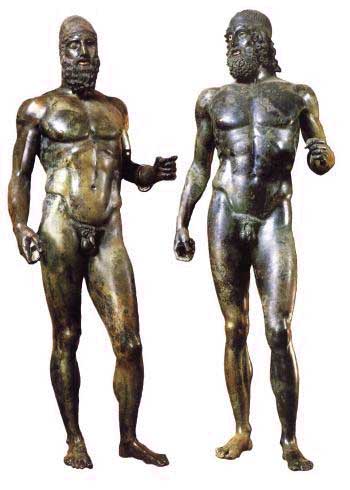


To be like to God as far as may be
To Seethe and Grow Fierce
To be like to God as far as may be
To Seethe and Grow Fierce

[andreia]
Wherefore I tell you now that every man should honor [timao] Love [Eros -- Romantic, Passionate Love between Men], as I myself do honor all love-matters with especial devotion, and exhort all other men to do the same ; both now and always do I glorify [enkomiazo] Love's power [dynamis] and valor [andreia] as far as I am able.
both now and always do I glorify [enkomiazo] Love's power [dynamis] and valor [andreia] as far as I am able.

The Ancient Greek
and Roman Culture
of
Andreia-Areté-Virtus
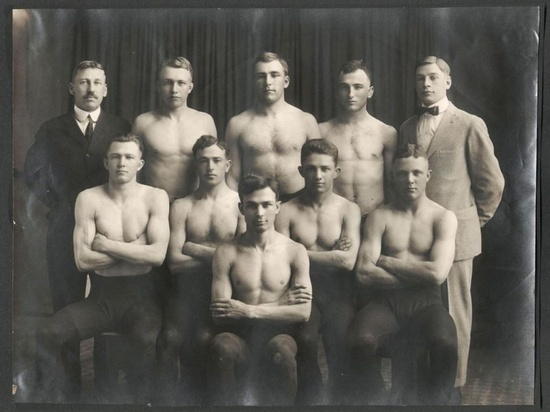


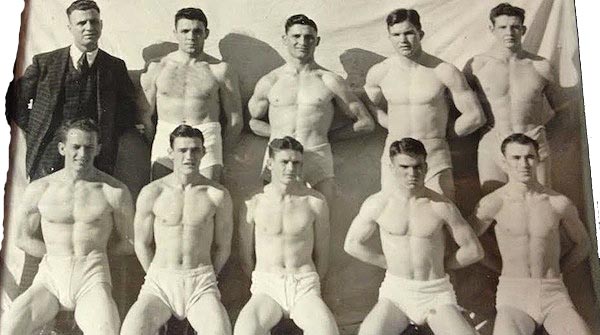


![]()
![]()
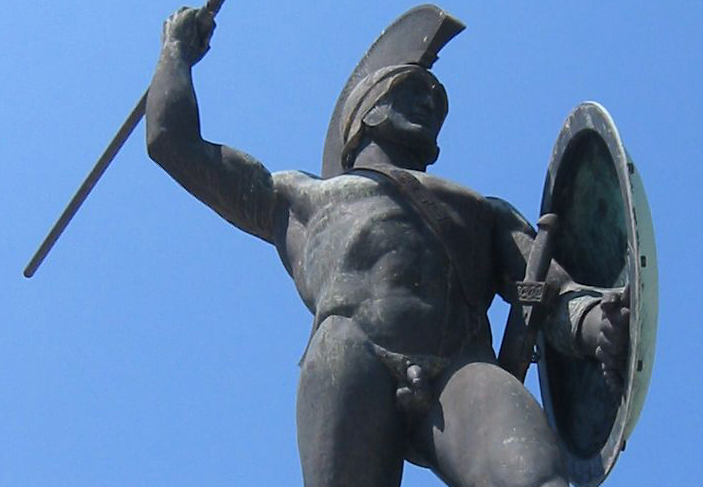






MANHOOD: A LEXICON
WARRIOR KOSMOS WARRIOR SANCTION
ARES Hypostatized : MANHOOD is GOD
To be like to God as far as may be
To Seethe and Grow Fierce




WARRIOR KOSMOS WARRIOR SANCTION
ARES Hypostatized : MANHOOD is GOD
To Be Like to God as Far as May Be



to become like God, so far as this is possible; and to become like God is to become righteous [dikaios] and holy [hosios -- pious and hallowed] and wise [phronesis -- the quality of thoughtfulness, prudence, temperance]

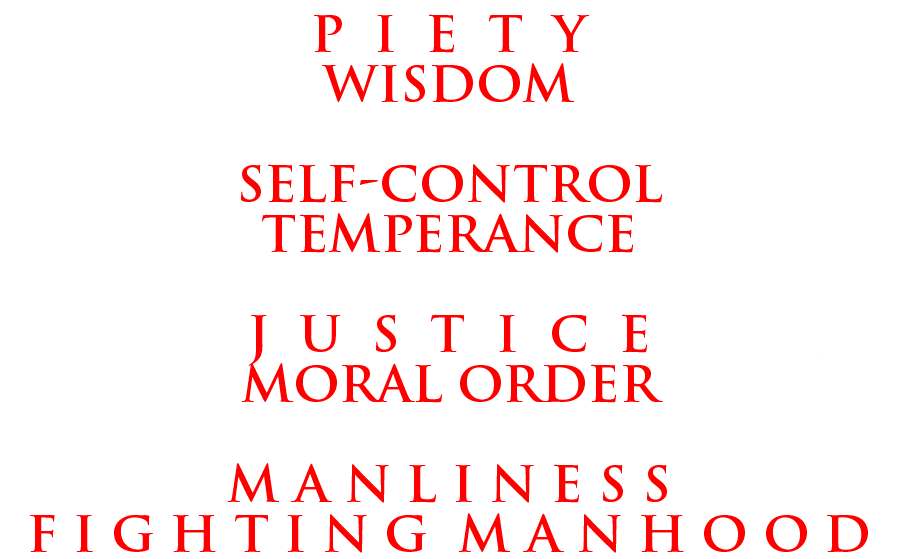
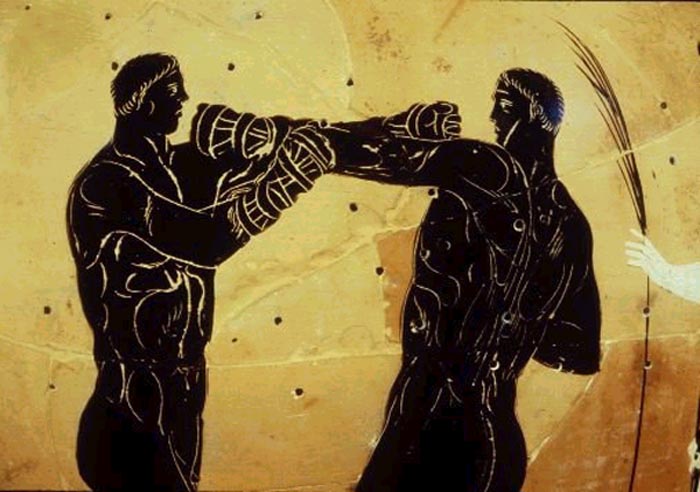
These Boxers are demonstrating Self-Control, Manly Moral Order, and Fighting Manhood ;
And, because the Contest they've undertaken is Sanctioned and Supervised by the Gods,
and because, before their Fight, they've Prayed and Sacrificed to the Gods,
they're expressing Piety as well.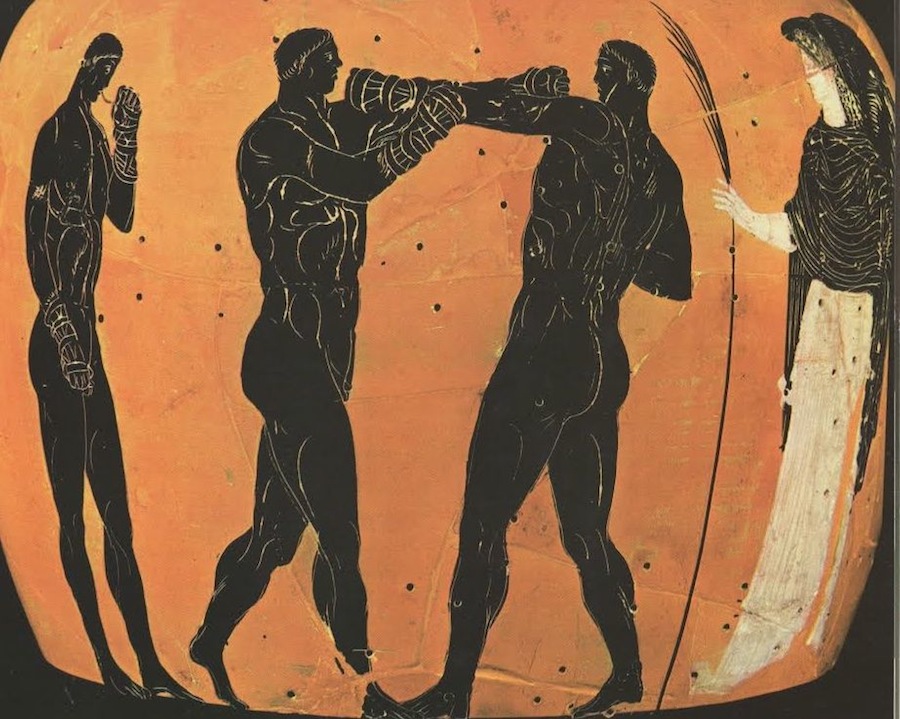
Sanctioned and Supervised by the Gods:
In the original vase painting, there are four figures --
On the left is the ephedros --
He'll Fight the Victor of this Bout ;
And on the right is a winged Goddess, possibly Nike,
possibly Olympia, personification of the Sacred Games.
The Fight is not secular, nor in any way profane ; it is, rather,
Sacred, Sanctioned and Supervised by the Gods. 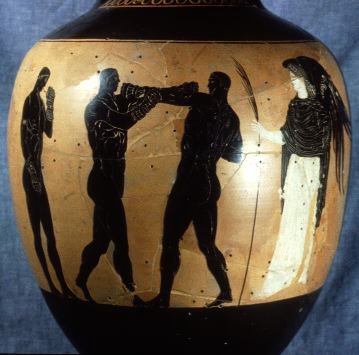
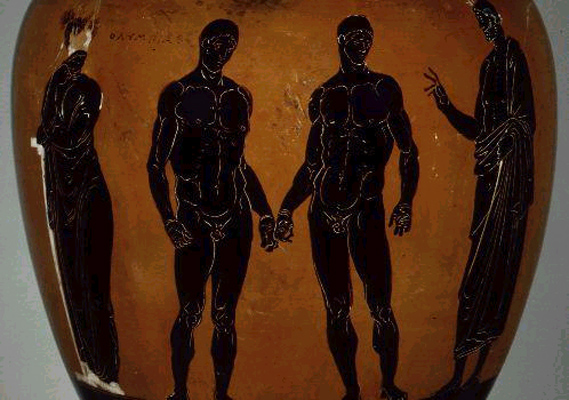
A similar scene with Boxers or Pankratiasts
The Goddess, Olympias, who, among other Deities,
is Sanctioning and Supervising the Bout,
is on the left
to become like God, so far as this is possible; and to become like God is to become righteous [dikaios] and holy [hosios -- pious and hallowed] in union with thoughtfulness -- prudence [phronesis]

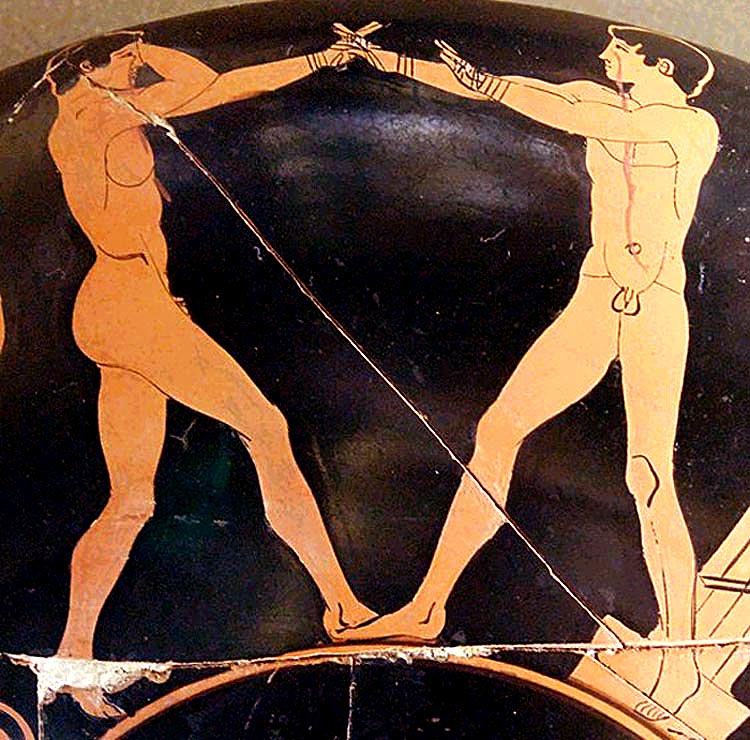


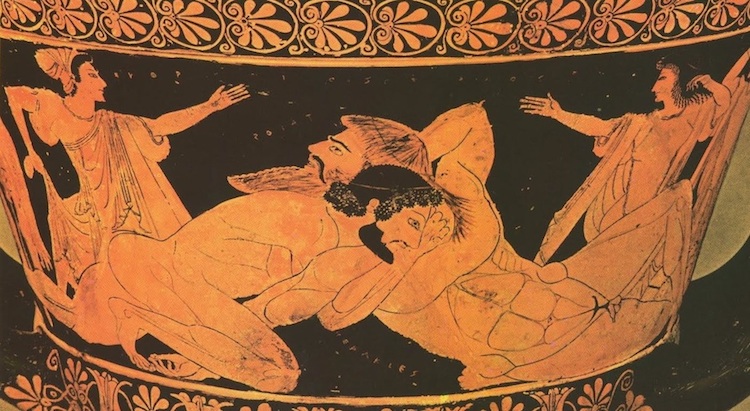
In ancient myth, Manly Moral Order is first established by Heroes, including Herakles and Theseus among the Greeks,
and Hercules among the Romans, who travel the world, ridding it of criminals and monsters.
In this painting, Herakles kills Antaios, who forced every passerby into a fatal
wrestling match, by wrestling him and lifting him off his mother, the earth,
from which he derived his strength, and then crushing his ribs.
God is in no wise and in no manner unrighteous [adikos], but utterly and perfectly righteous [dikaiotatos = most righteous = superlative of dikaios], and there is nothing so like him as that one of us who in turn becomes most nearly perfect in righteousness [that is to say, no one of us is so like unto God as the one who becomes most nearly perfect in the expression of Manly Moral Order -- which is Manly Moral Righteousness.]





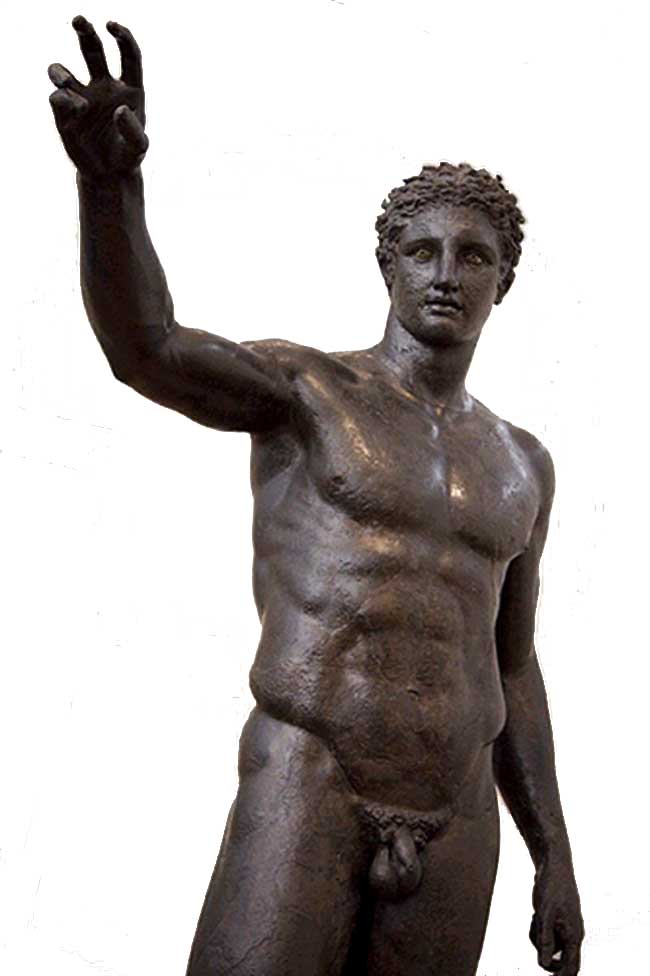

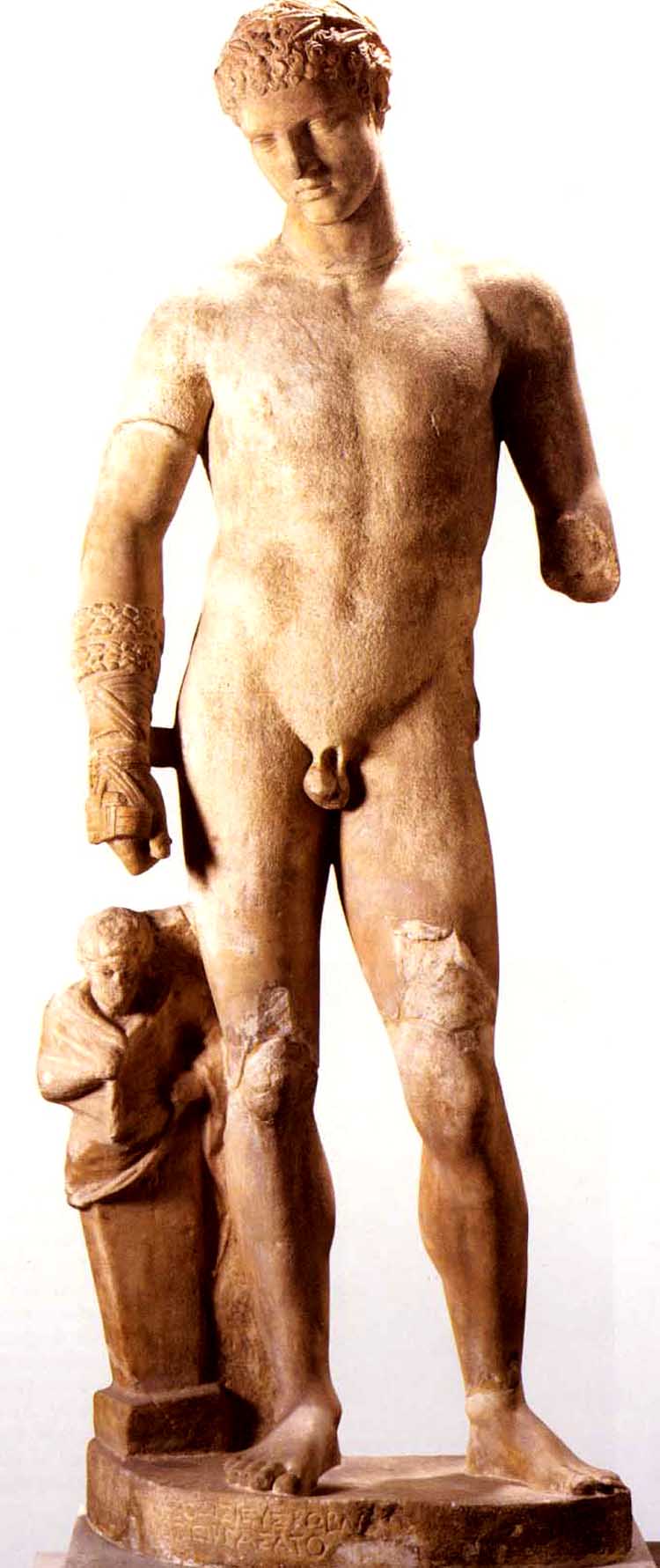









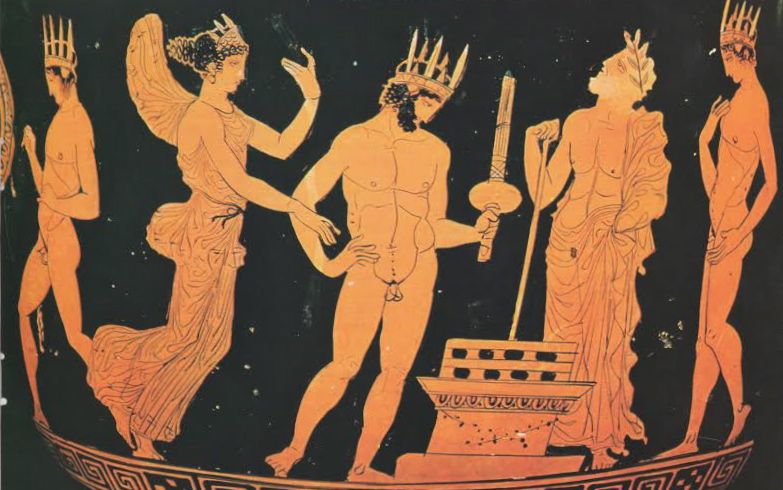
Members of a victorious Torch Race team, wearing diadems made of spear-shaped leaves, stand by an altar ;
a priest is on the right, the winged Goddess Victory on the left.
The goal of the Torch Race [lampadedromia], a relay race,
was to swiftly carry Sacred Fire from one altar to another.
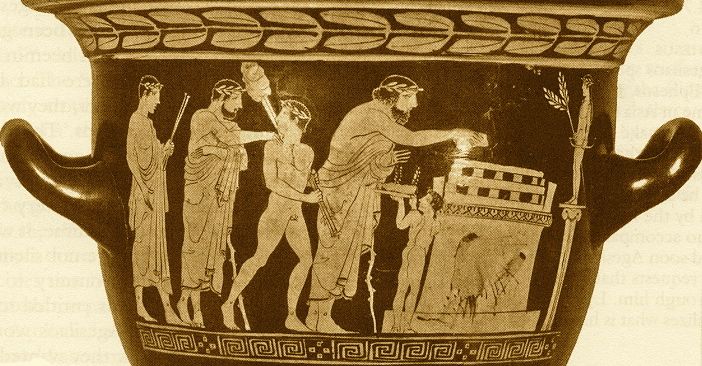
A nude youth, probably an athletic victor and bearing the entrails of a victim, takes part in a sacrifice ;
to do so, he must be pure : "clear from shame or pollution."
[T]radition tells us how blissful was the life of men in the age [of the God Kronos], furnished with everything in abundance, and of spontaneous growth. And the cause thereof is said to have been this : Kronos was aware of the fact that no human being (as we have explained) is capable of having irresponsible control of all human affairs without becoming filled with pride [hybris] and injustice [adikia]; so, pondering this fact, he then appointed as kings and rulers for our cities, not men, but beings of a race that was nobler and more divine, namely, Daimons (Daimonai).
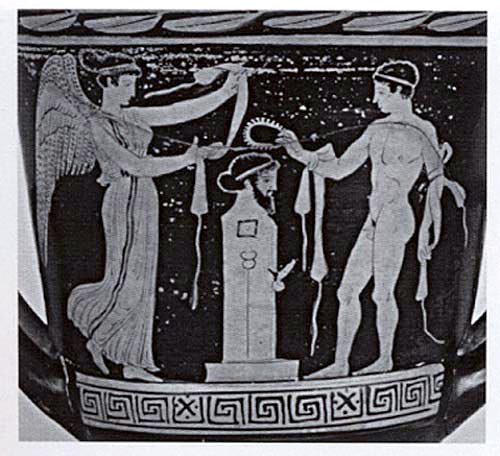
An athletic victor crowns an ithyphallic Herm ;
the winged Goddess Nike holds a woolen band.
Herms were present in every Palaistra ; and,
Religious rites were common in Palaistrai ;
All athletics had religious connotations :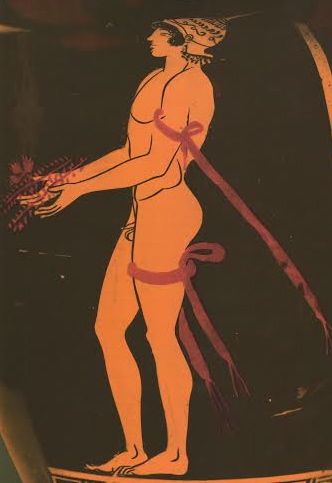
An athletic victor wears woolen bands and holds
a wreath. The bands or fillets "signify the
consecration of the victor to the God."
(Sansone) -- Or, I would say, to the
Gods, eg Nike and Hermes.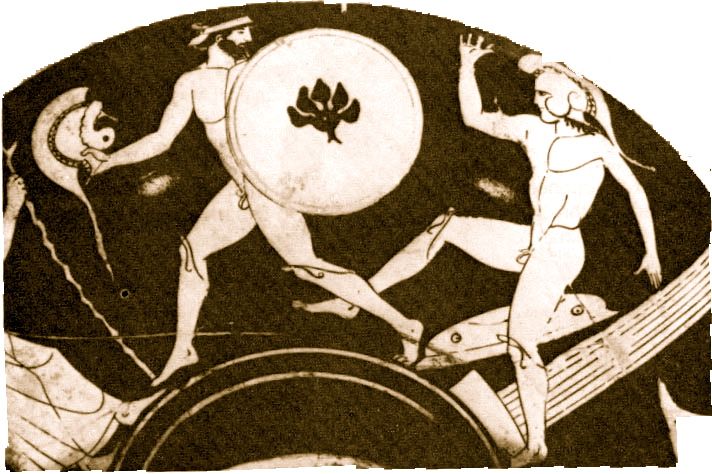
education [paideia] of the young [hoi veoi] [in the Republic will be to produce]
Guardians [phulax -- Warriors] [who] are to be God-fearing [theosebes] Men and God-like [theios] in so far as that is possible for humanity.

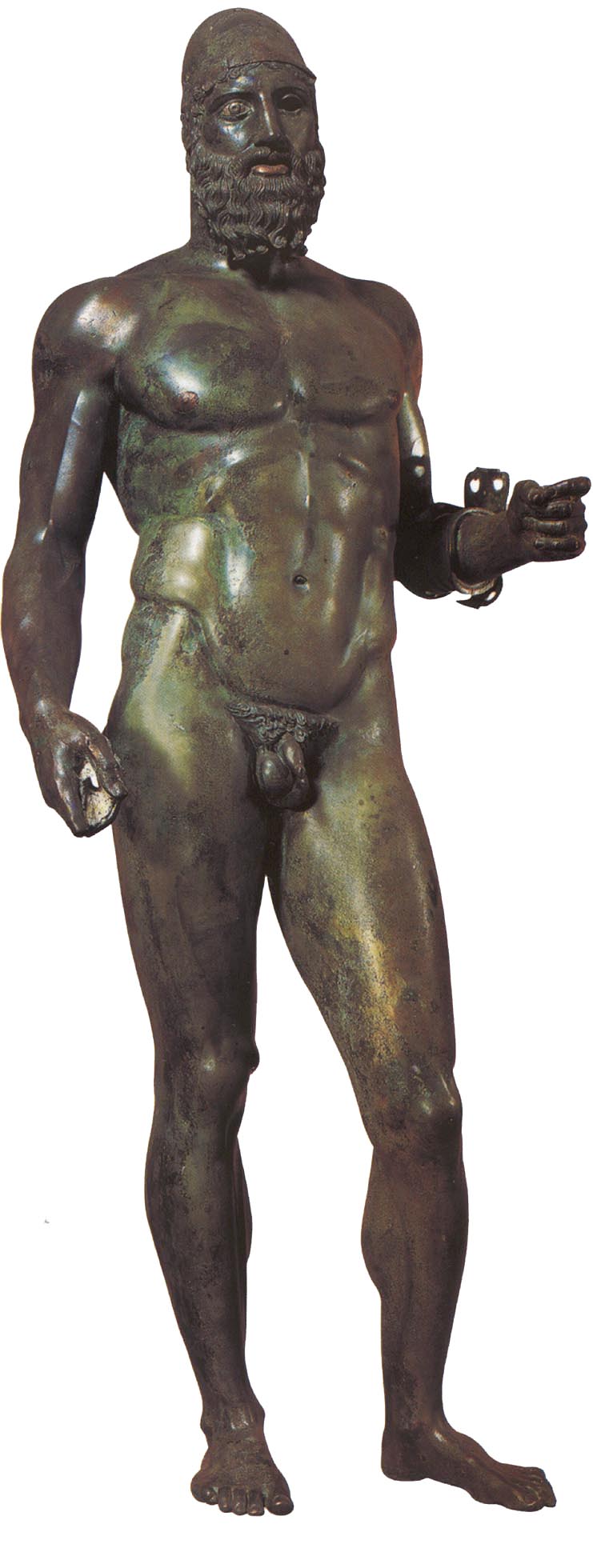
"[The Goddess] Hera's fetterings by her son and the hurling out of heaven of [the God] Hephaestus by his father when he was trying to save his mother from a beating, and the battles of the Gods in Homer's verse are things that we must not admit into our city either wrought in allegory or without allegory. For the young are not able to distinguish what is and what is not allegory, but whatever opinions are taken into the mind at that age are wont to prove indelible and unalterable. For which reason, maybe, we should do our utmost that the first stories that they hear should be so composed as to bring the fairest [kalos -- most noble, most morally beautiful] lessons of virtue [areté -- Manly Goodness] to their ears."
Two urns stand on the floor of the palace of Zeus and are filled with
Dooms he allots, one of blessings, the other of gifts that are evil,
[Hom. Il. 24.527-8]
Now upon evil he chances and now again good is his portion,
[Hom. Il. 24.530]
Hunger devouring drives him, a wanderer over the wide world
[Hom. Il. 24.532]
When he would utterly destroy a house
The Good Purpose in some controlling Mind able to achieve that Purpose
"And what of this, the second. Do you think that God is a wizard and capable of manifesting himself by design, now in one aspect, now in another, at one time himself changing and altering his shape in many transformations and at another deceiving us and causing us to believe such things about him; or that he is simple and less likely than anything else to depart from his own form?"
The gods, in the likeness of strangers,
Many disguises assume as they visit the cities of mortals.
[Hom. Od. 17.485-4861]
'foretold the happy fortunes of her issue' Hom. Il. 2.1 --
And rounding out the tale of heaven's blessings,
Raised the proud paean, making glad my heart.
And I believed that Phoebus' mouth divine,
Filled with the breath of prophecy, could not lie.
But he himself, the singer, himself who sat
At meat with us, himself who promised all,
Is now himself the slayer of my son.
Ares, then, if you like, would be named for his Virility [arren] and Fighting Manhood [andreion], and for his hard and unbending nature, which is called arratos ; so Ares would be in every way a fitting name for the God of War [polemikos Theos].
The Gods are always good and help us ; they never harm us. We, when we are good, are by our likeness given union with them ; if we become bad, we are separated from them. Our sins prevent the divine brightness from shining on us and subject us to chastising spirits : it is as false to say that the Gods shun the evil as it is to say that the sun hides himself from the blind. If by prayers and sacrifices we find release from our sins, the explanation is that by our acts and by turning to the divine, we cure our evil and enjoy the Goodness of the Gods again ; we do not effect any change in them.
it is impossible that evils should be done away with, Theodorus, for there must always be something opposed to the good ; and they cannot have their place among the Gods, but must inevitably hover about mortal nature and this earth. Therefore we ought to try to escape from earth to the Dwelling of the Gods as quickly as we can ; and to escape is to become like God, so far as this is possible ; and to become like God is to become righteous and holy and wise.
Ares, then, if you like, would be named for his Virility [arren] and Fighting Manhood [andreion], and for his hard and unbending nature, which is called arratos ; so Ares would be in every way a fitting name for the God of War [polemikos Theos].
it is impossible that evils should be done away with, Theodorus, for there must always be something opposed to the good ; and they cannot have their place among the Gods, but must inevitably hover about mortal nature and this earth. Therefore we ought to try to escape from earth to the Dwelling of the Gods as quickly as we can ; and to escape is to become like God [homoiosis Theo], so far as this is possible ; and to become like God is to become righteous and holy and wise.
Manhood, manliness : Strength, vigor, bravery, courage, excellence ; Valour, gallantry, fortitude ; Goodness, moral perfection, high character, virtue ; Worth, merit, value.
Manhood, manliness : Strength, vigor, bravery, courage, excellence ; Valour, gallantry, fortitude ; Goodness, moral perfection, high character, virtue ; Warrior worth, martial merit, virile value.


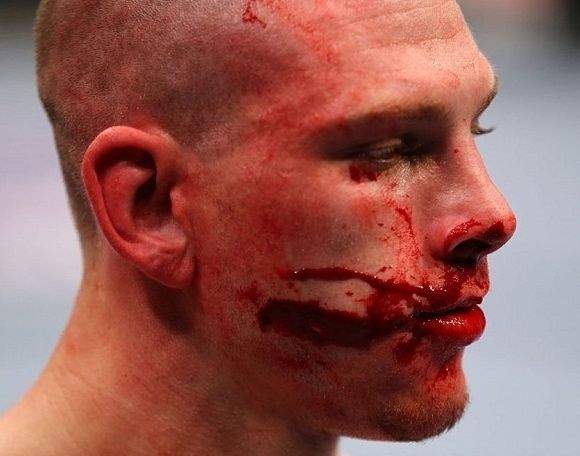

The Root ΑΡ [ΑΡΗΣ], appears also in αρετε, the first notion of goodness (virtus)
being that of manhood, bravery in war.
Oxford. Clarendon Press. 1889.





January 30, 2014










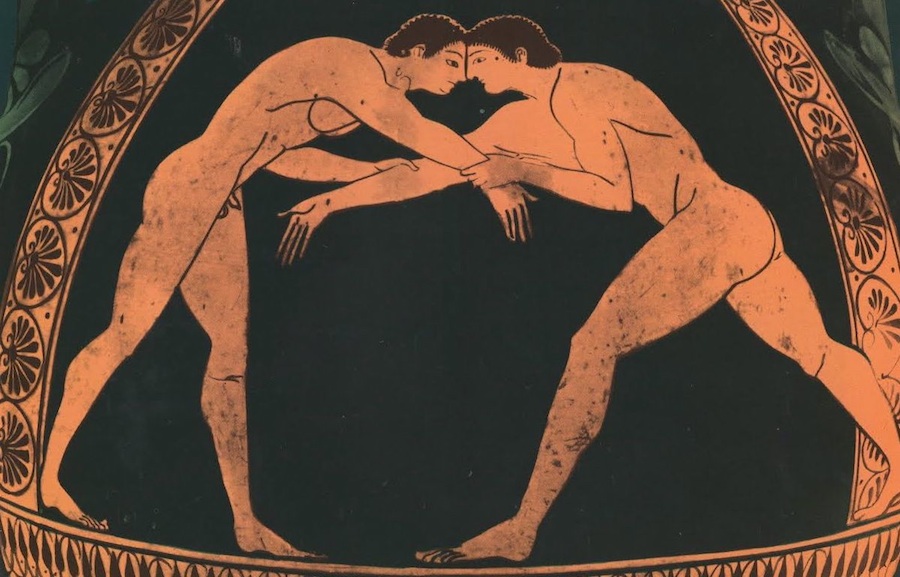
MANHOOD: A LEXICON
WARRIOR KOSMOS WARRIOR SANCTION
ARES Hypostatized : MANHOOD is GOD
To Seethe and Grow Fierce

God is in no wise and in no manner unrighteous, but utterly and perfectly righteous, and there is nothing so like him as that one of us who in turn becomes most nearly perfect in righteousness -- for no one of us is so like unto God as the one who becomes most nearly perfect in the expression of Manly Moral Order -- which is Manly Moral Righteousness.
[W]hatsoever else you practice you must practice it in union with Fighting Manhood, being well assured that when divorced from this all possessions and pursuits are base and ignoble. For neither does wealth bring honor to its possessor if combined with want of manhood and unmanliness -- for such an one is rich for another rather than for himself -- nor do beauty and strength appear comely, but rather uncomely, when they are attached to one that is cowardly and base, since they make their possessor more conspicuous and show up his cowardice ; and every form of knowledge when sundered from that which is just, right, lawful, and well-ordered [dikaios] and the rest of virtue [areté -- Manhood] is seen to be plain roguery rather than wisdom.
"These two forms [the rational and the appetitive, that is, reason and desire], then, let us assume to have been marked off as actually existing in the soul. But now the Thumos [1] or principle of high spirit, that with which we feel anger [thumuo], is it a third, or would it be identical in nature with one of these?"
"These two forms [the rational and the appetitive, that is, reason and desire], then, let us assume to have been marked off as actually existing in the soul. But now the Thumos or principle of high spirit, that with which we feel anger [thumuo], is it a third, or would it be identical in nature with one of these?"
"Perhaps," he said, "with one of these, the appetitive."
The Gods need nothing ; the honours we pay them are for our own benefit. Their providence extends everywhere, and all who are fit may enjoy it.
Spending but little on his own pleasures, he poured out his money without stint for the benefit of his friends.
Their providence extends everywhere, and all who are fit may enjoy it.
The Gods are always good and help us ; they never harm us. We, when we are good, are by our likeness given union with them ; if we become bad, we are separated from them.
Let every one of us be ambitious [philonikia] to gain excellence [areté -- Manhood, Manly Goodness, Manly Excellence], but without jealousy. For a man of this character enlarges a State [polis -- city-state], since he strives hard himself and does not thwart the others by calumny [false accusation, slander] ; but the jealous man, thinking that calumny of others is the best way to secure his own superiority, makes less effort himself to win true excellence [which, again, is areté -- Manhood], and disheartens his rivals by getting them unjustly blamed ; whereby he causes the whole city-state to be ill-trained for competing in Manliness, and renders it, for his part, less large in fair repute.
Eighth-century Eurypontid [Spartan] king, also called Charilaus
Sparta was supreme in andreia.
Let every one of us be ambitious [philonikia - victory-loving] to gain excellence [areté -- Manhood, Manly Excellence], but without jealousy. For a man of this character enlarges a State [polis -- city-state], since he strives hard himself and does not thwart the others by calumny [false accusation, slander] . . .
The Gods are always good and help us ; they never harm us.
We, when we are good, are by our likeness given union with them ; if we become bad, we are separated from them.
God is in no wise and in no manner unrighteous [adikos], but utterly and perfectly righteous [dikaiotatos = most righteous = superlative of dikaios], and there is nothing so like him as that one of us who in turn becomes most nearly perfect in righteousness [that is to say, no one of us is so like unto God as the one who becomes most nearly perfect in the expression of Manly Moral Order -- which is Manly Moral Righteousness.]
"Then will not law-suits and accusations against one another vanish, one may say, from among them, because they have nothing in private possession but their bodies, but all else in common? So that we can count on their being free from the dissensions that arise among men from the possession of property, children, and kin."
there could not rightly arise among them any law-suit for assault or bodily injury. For between age-fellows[1] and comrades we shall say that to defend oneself, to repel an assault is morally beautiful and just, well-ordered, and righteous, thereby compelling them to keep their bodies in condition.
[1] Cf. [compare] A.J.P. vol. xiii. p. 364, Aeschines iii. 255, Xenophon Rep. Lac. 4. 5, Laws 880 A.
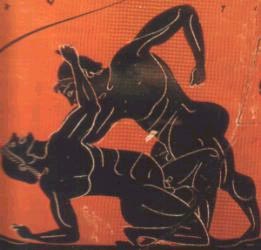
when a man believes himself to be wronged, does not his spirit in that case seethe and grow fierce and make itself the ally of what he judges just [dikaios] ; and in noble [gennaios -- high-minded] souls it endures and wins the victory and will not let go





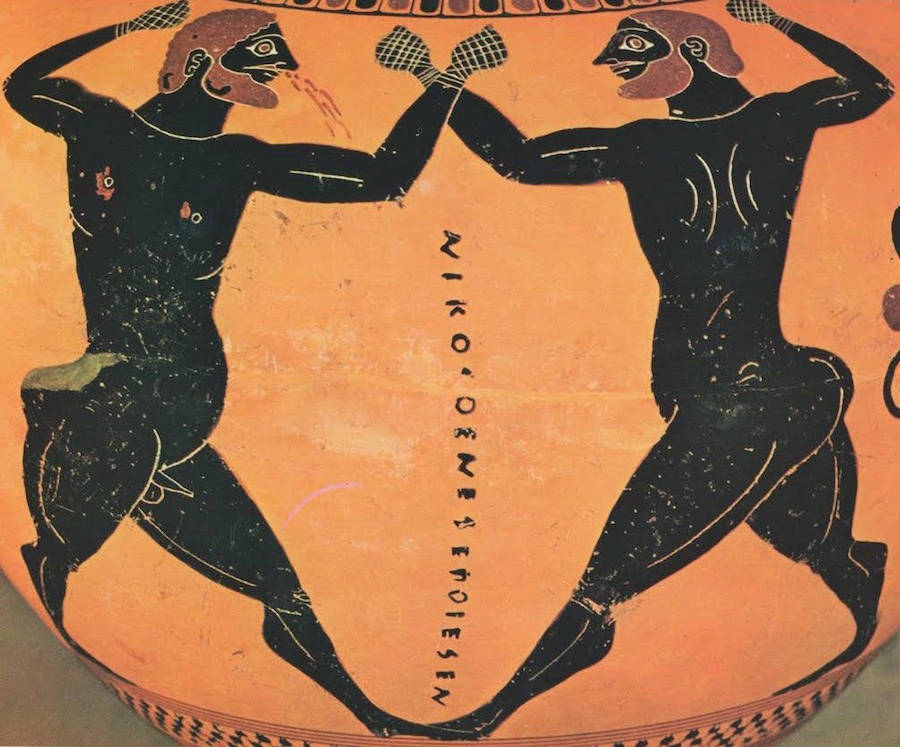
"Is it not also true," I [Sokrates] said, "that the ruling principle of men's souls is in some cases this faculty [Reason] and in others one of the other two [Fighting Spirit or appetite], as it may happen?"
What shall I call this power [of Love Eros]? The shame that we feel for shameful things, and ambition [PhiloTimia] for what is noble [kalon -- επι δε καλοις φιλοτιμιαν] ; without which it is impossible for city or person to perform any high and noble [kala] deeds.
[Love -- Eros] is the cause of all our highest blessings. I for my part am at a loss to say what greater blessing a man can have in earliest youth than an honorable [chrestos -- good, honest, worthy, true] lover, or a lover than an honorable [chrestos] favorite. For the guiding principle we should choose for all our days, if we are minded to live a comely [kalos -- morally beautiful] life, cannot be acquired either by kinship or office or wealth or anything so well as by Love.
What shall I call this power [of Love Eros]? The shame that we feel for shameful things, and ambition [PhiloTimia] for what is noble [kalon -- morally beautiful] ; without which it is impossible for city or person to perform any high [megas] and noble [kala] deeds.




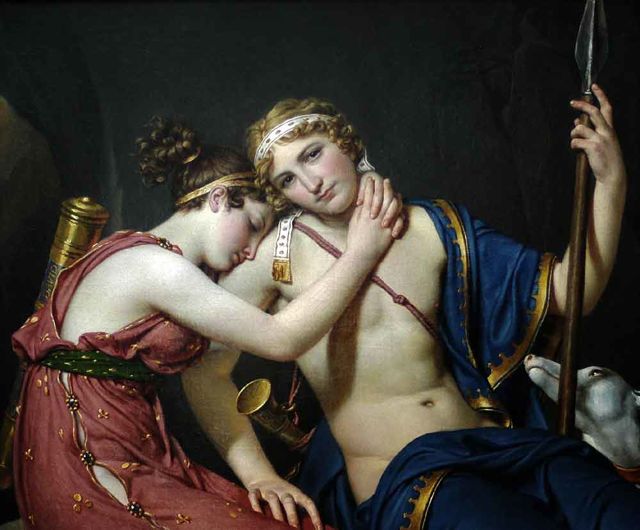

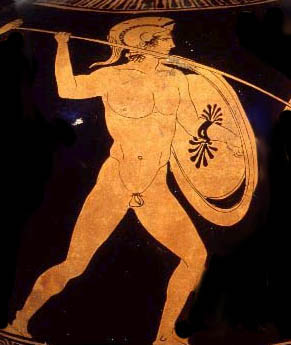
Theodorus
It is not easy, Socrates, for anyone to sit beside you and not be forced to give an account of himself and it was foolish of me just now to say you would excuse me and would not oblige me, as the Lacedaemonians do, to strip [apoduo]; you seem to me to take rather after Sciron. For the Lacedaemonians tell people to go away or else strip, but you seem to me to play rather the role of Antaeus; for you do not let anyone go who approaches you until you have forced him to strip and wrestle [prospalaio] with you in argument.
Your comparison with Sciron and Antaeus pictures my complaint admirably; only I am a more stubborn combatant than they; for many a Heracles and many a Theseus, strong men of words, have fallen in with me and belabored me mightily, but still I do not desist, such a terrible love
of this kind of exercise [gymnastika -- nude exercise] has taken hold on me. So, now that it is your turn, do not refuse to try a bout with me; it will be good for both of us.
Translator's note:
Sciron was a mighty man who attacked all who came near him and threw them from a cliff. He was overcome by Theseus. Antaeus, a terrible giant, forced all passersby to wrestle with him. He was invincible until Heracles crushed him in his arms.
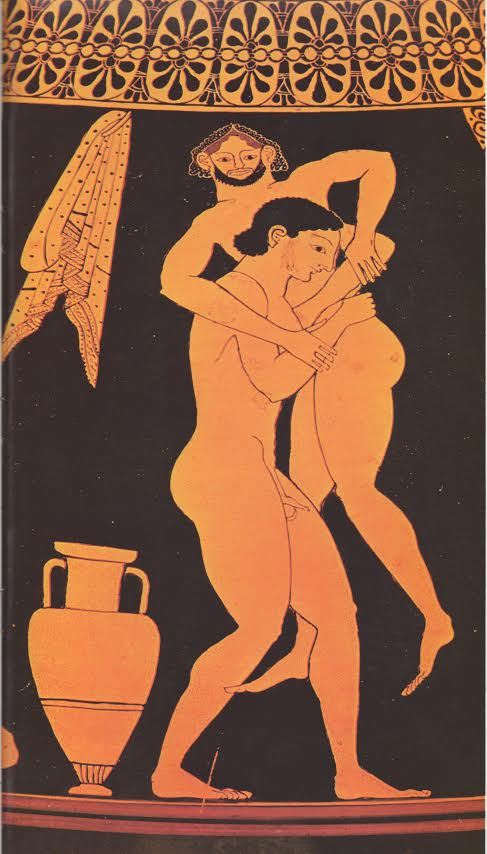
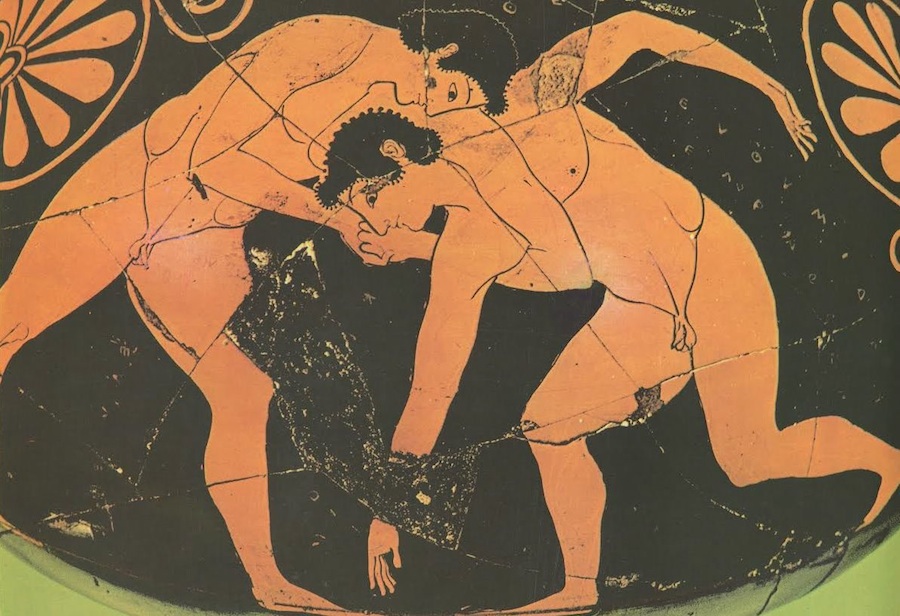
Socrates
If you went to Sparta, Theodorus, and visited the wrestling-schools, would you think it fair to look on at other people naked, some of whom were of poor physique, without stripping and showing your own form, too?
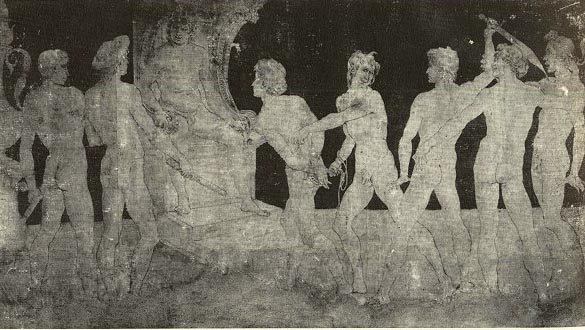
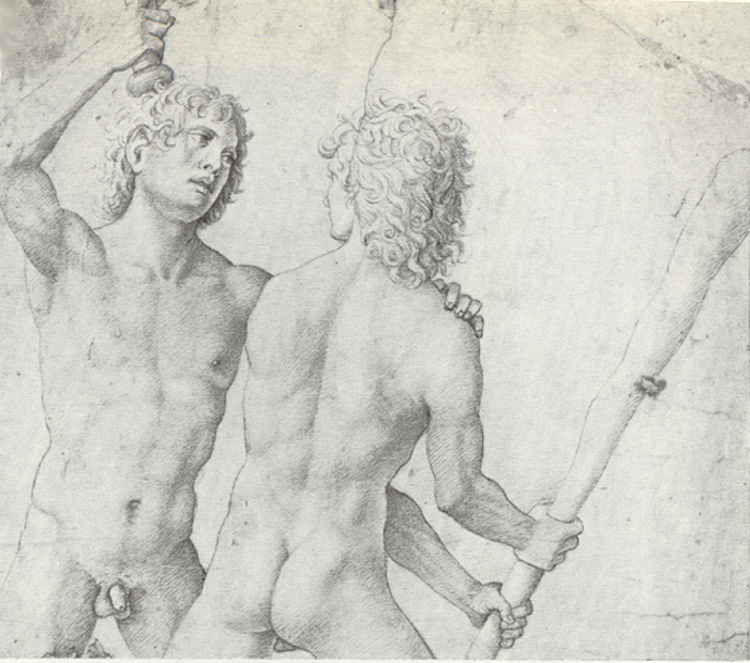

and in their greed kicking and butting one another with horns and hooves of iron they slay one another in sateless avidity [insatiable lust], because they are vainly striving to satisfy with things that are not real the unreal and incontinent part of their souls.
Does it occur to you that we brought this plague of aids upon
ourselves? I know I am getting into dangerous waters here but it
is time. With the cabal breathing even more murderously down our
backs it is time. And you are still doing it. You are still
murdering each other. Please stop with all the generalizations
and avoidance excuses gays have used since the beginning to
ditch this responsibility for this fact. From the very first
moment we were told in 1981 that the suspected cause was a
virus, gay men have refused to accept our responsibility for
choosing not to listen, and, starting in 1984, when we were told
it definitely was a virus, this behavior turned murderous. Make
whatever excuses you can to carry on living in your state of
denial but this is the fact of the matter. I wish we could
understand and take some responsibility for the fact that for
some 30 years we have been murdering each other with great
facility and that down deep inside of us, we knew what we were
doing. Don't tell me you have never had sex without thinking
down deep that there was more involved in what you were doing
than just maintaining a hard-on.
Eighth-century Eurypontid [Spartan] king, also called Charilaus
[T]he deepest secrets of [certain] matters the Gods[, said Sokrates,] reserved to themselves ; they were dark to men.
Thus from the Laureat fraternity of Poets, riper yeares, and the ceaselesse round of study and reading led me to the shady spaces of philosophy, but chiefly to the divine volumes of Plato, and his equall Xenophon. Where if I should tell ye what I learnt, of chastity and love, I meane that which is truly so, whose charming cup is only vertue which she bears in her hand to those who are worthy.
We are both warlike [polemikos] and wise [euboulos], and it is our sense of order [eukosmos] that makes us so. We are warlike, because self-control [sophrosyne] contains honor [aidos] as a chief constituent, and honor bravery [euphuchia]. And we are wise, because we are educated with too little learning to despise the laws [nomos], and with too severe a self-control to disobey them, and are brought up not to be too knowing in useless matters -- such as the knowledge which can give a specious criticism of an enemy's plans in theory, but fails to assail them with equal success in practice -- but are taught to consider that the schemes of our enemies are not dissimilar to our own, and that the freaks of chance are not determinable by calculation.
[Greeks] competed primarily not for money but rather for honor or glory; "worth," they called it, timé being the Greek word. Timé was how the Greeks ranked themselves against each other; to be the best was to possess the most timé, which consisted of esteem by others and others' confirmation of one's lofty impression of one's own merits. Still, timé was not merely soap bubble popularity or gaseous celebrity; timé was glory made palpable and somehow separate from its possessor. Timé was thought to have a real, almost physical existence, in the world: it could, for example, be taken from one man by another; it could be captured in war.
[S]uppose, for instance, that on seeing beautiful creatures, whether
works of art or actually alive but in repose, a man should be moved
with desire to behold them in motion and vigorously engaged in some
such exercise as seemed suitable to their physique ; well, that is the
very feeling I have regarding the State we have described. Gladly
would I listen to anyone who should depict in words our State
contending against others in those struggles which States wage ; in how
proper a spirit it enters upon war, and how in its warring it exhibits
qualities such as befit its education and training in its dealings
with each several State whether in respect of military actions or in
respect of verbal negotiations.
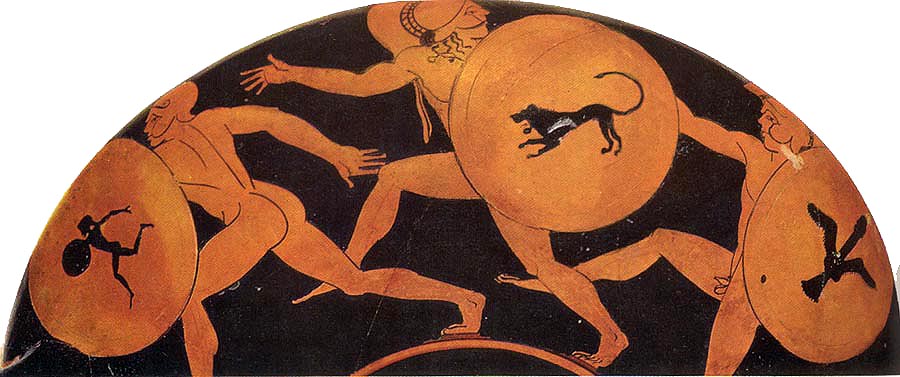
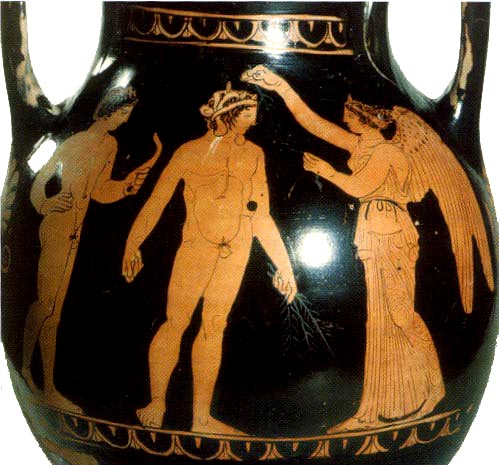
The life and pleasure of the warrior [polemikos -- warlike] and honor-loving [philotimos -- Worth-loving] type is nearer to that of the lover of wisdom than it is to that of the greedy for gain.



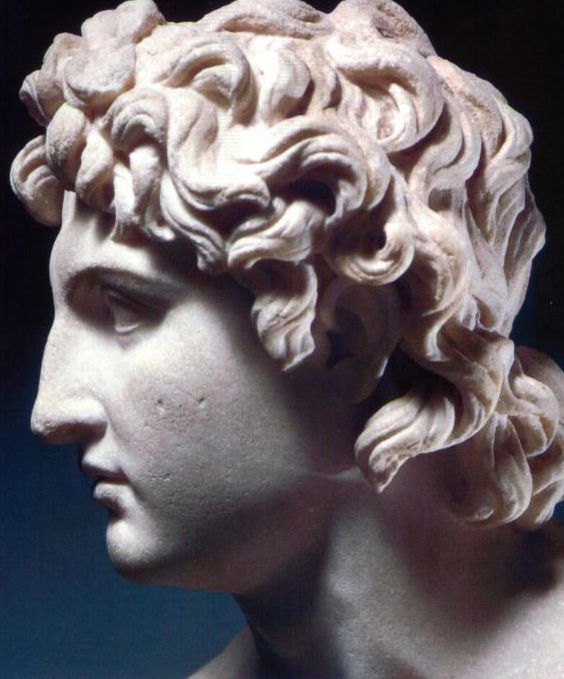
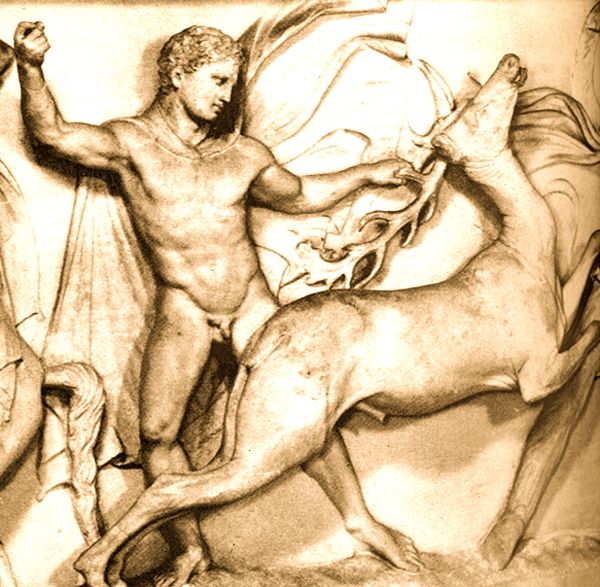
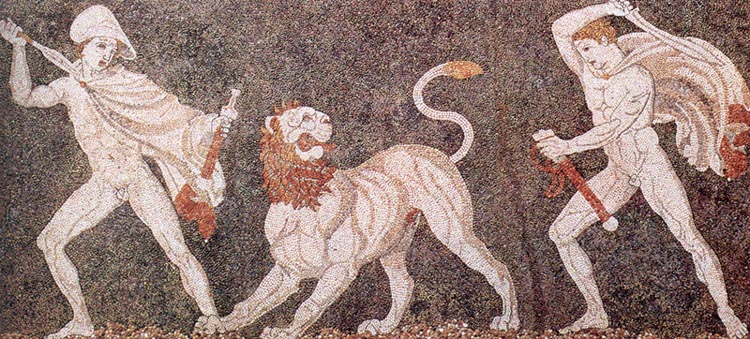
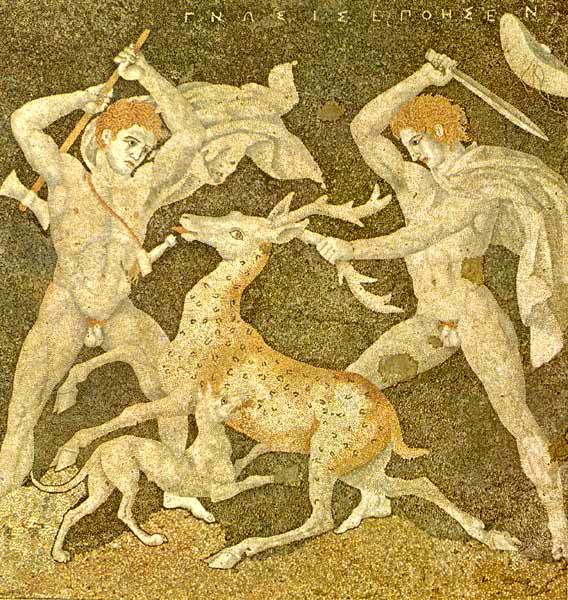
~Peleus to Achilles, Homer. Iliad. 11.784
The Greek nobles believed that the real test of manly virtue [Areté] was victory in battle -- a victory which was not merely the physical conquest of an enemy, but the proof of hard-won areté.
Alexander's Noblest Deed
Bill Weintraub:
Noble indeed was his power of inspiring his men, of filling them with confidence, and, in the moment of danger, of sweeping away their fear by the spectacle of his own fearlessness.
Noble indeed was his power of inspiring his men, of filling them with confidence, and, in the moment of danger, of sweeping away their fear by the spectacle of his own fearlessness.
the man who gives up his life to win the beautiful, will find that his natural instinct for self-assertion finds its highest expression in self-sacrifice
it was ever Alexander's nature, if he had no rival, to strive [erizo] to better his own best.
For to a civil polity best arranged for peace and virtue [Areté] and unanimity [homonoia] they [the Spartans] had attached empires and sovereignties won by force, not one of which Lycurgus [the Spartan law-giver] thought needful for a city that was to live in happiness [eudaimonia] ; and therefore they fell.
It was not, however, the chief design of Lycurgus then to leave his city in command over a great many others, but he thought that the happiness [eudaimonia] of an entire city, like that of a single individual, depended on the prevalence of virtue [Areté] and concord [homonoia] within its own borders. The aim, therefore, of all his arrangements and adjustments was to make his people free-minded [eleutherios], self-sufficing [autarkes], and moderate [sophron -- sober, self-controlled] in all their ways, and to keep them so as long as possible. His design for a civil polity was adopted by Plato, Diogenes, Zeno, and by all those who have won approval for their treatises on the subject, although they left behind them only writings and words. Lycurgus, on the other hand, produced not only writings and words, but an actual polity which was beyond imitation, and because he gave, to those who maintain that the much talked of natural disposition to wisdom [sophos] exists only in theory, an example of an entire city given to the love of wisdom [philosophos], his family rightly transcended that of all who ever founded polities among the Greeks.
We are both warlike [polemikos] and wise [euboulos], and it is our sense of order [eukosmos] that makes us so. We are warlike, because self-control [sophrosyne] contains honor [aidos] as a chief constituent, and honor bravery [euphuchia]. And we are wise, because we are educated with too little learning to despise the laws [nomos], and with too severe a self-control to disobey them, and are brought up not to be too knowing in useless matters -- such as the knowledge which can give a specious criticism of an enemy's plans in theory, but fails to assail them with equal success in practice -- but are taught to consider that the schemes of our enemies are not dissimilar to our own, and that the freaks of chance are not determinable by calculation.
Lycurgus thought that the happiness [eudaimonia] of an entire city, like that of a single individual, depended on the prevalence of virtue [Areté -- Manhood, Manly Goodness] and concord [homonoia -- likeness of mind] within its own borders.
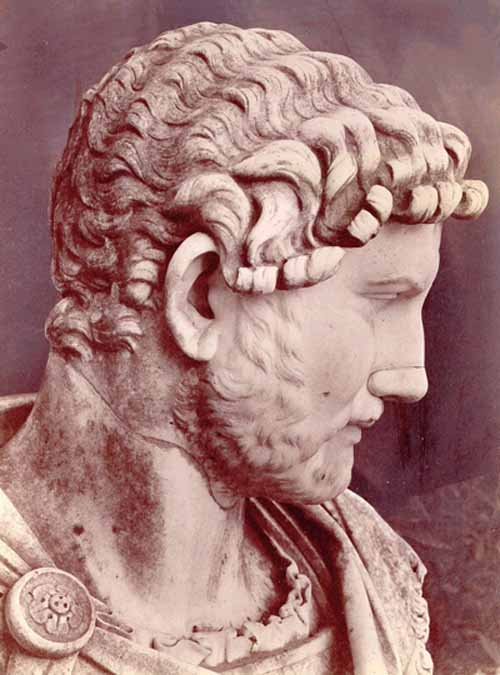
Hadrian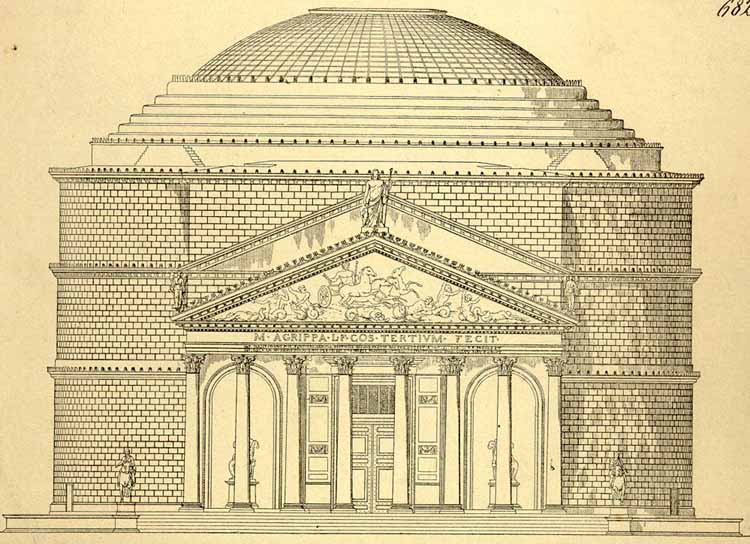
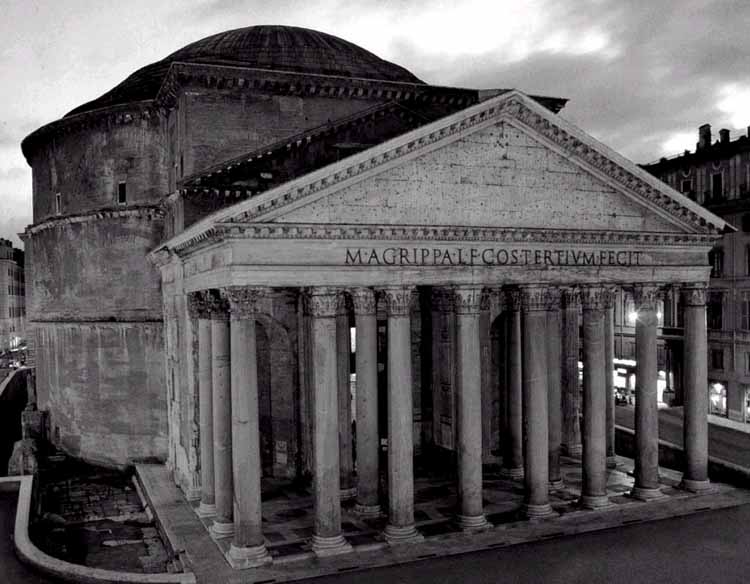

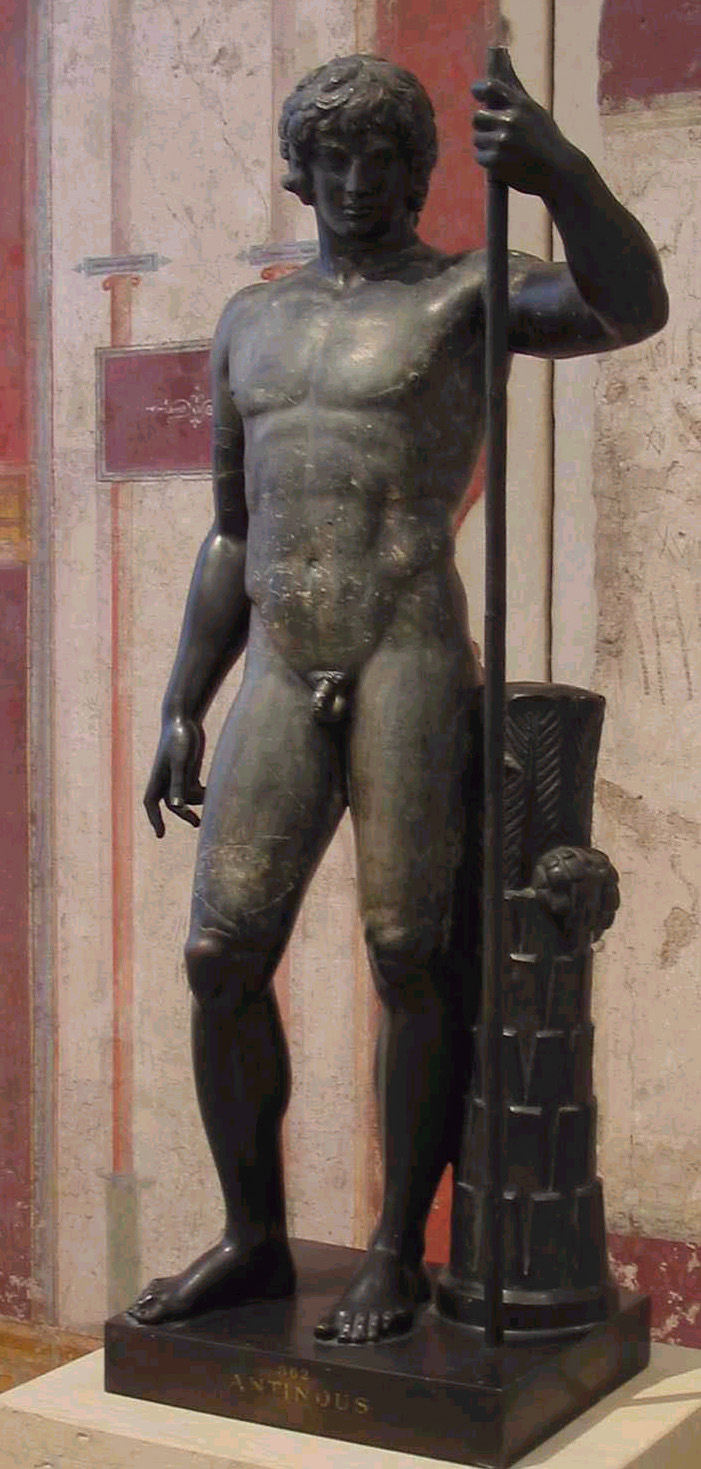
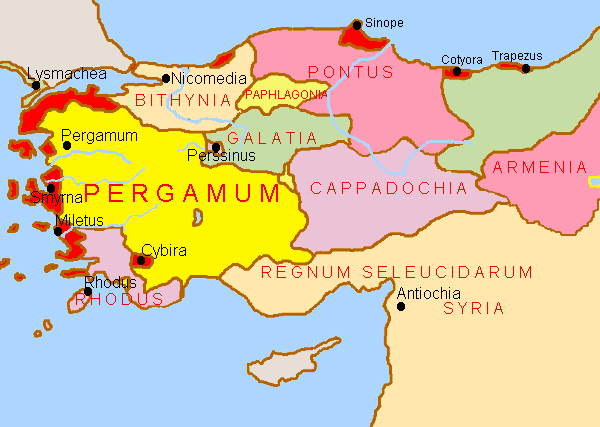

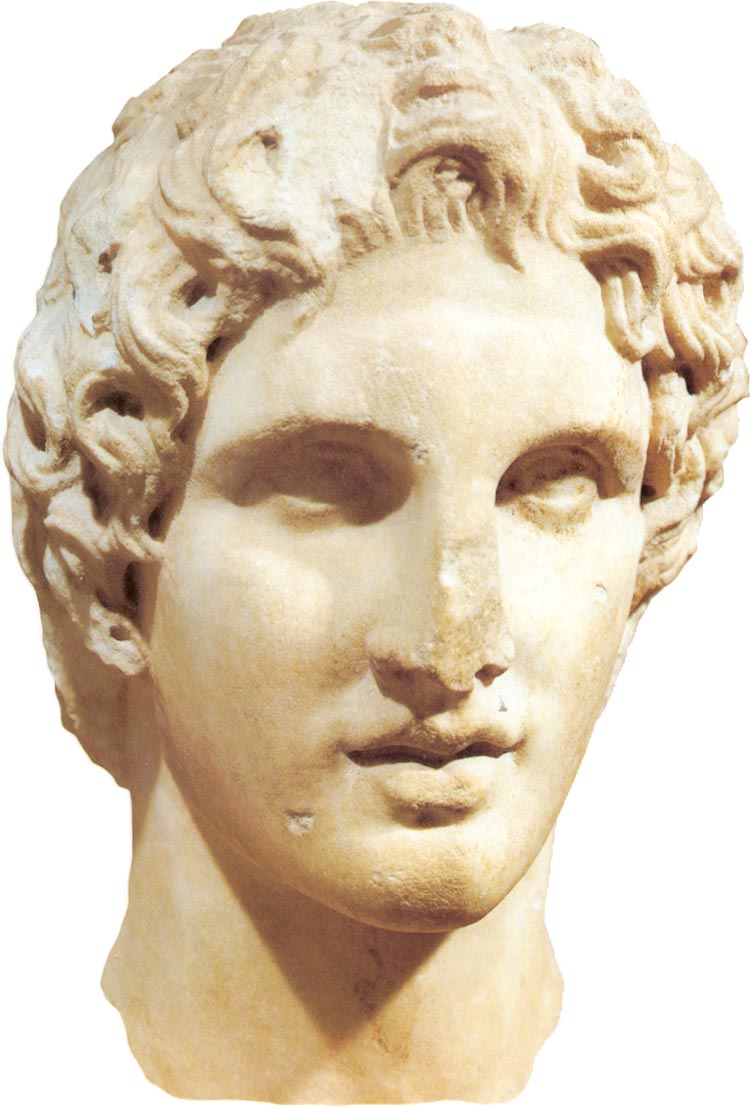
Alexander died in the 114th Olympiad, in the archonship of Hegesias at Athens. He lived, as Aristobulus tells us, thirty-two years and eight months, and reigned twelve years and eight months. He had great personal beauty [kallistos -- superlative of kalos], invincible power of endurance [philoponotatos -- superlative of philoponos], and a keen intellect; he was brave [andreiotatos, superlative of andreios = Most Manly], strict in the observance of his religious duties, and hungry for fame [philotimotatos = superlative of philotimos] [philokindunotatos = superlative of philokindunos = danger-loving, adventurous]. Most temperate in the pleasures of the body, his passion was for glory only, and in that he was insatiable. He had an uncanny instinct for the right course in a difficult and complex situation, and was most happy in his deductions from observed facts. In arming and equipping troops, and in his military dispositions, he was always masterly. Noble indeed was his power of inspiring his men, of filling them with confidence, and, in the moment of danger, of sweeping away their fear by the spectacle of his own fearlessness. When risks had to be taken, he took them with the utmost boldness, and his ability to seize the moment for a swift blow, before his enemy had any idea of what was coming, was beyond praise. No cheat or liar ever caught him off his guard, and both his word and his bond were inviolable. Spending but little on his own pleasures, he poured out his money without stint for the benefit of his friends.
andreiotatos -- Most Manly -- kai philotimotatos -- and Most Worth-Loving -- kai philokindunotatos -- and Most Adventuresome -- kai epmelestatos tou Theiou -- and Most Attentive to the Gods
Most temperate in the pleasures of the body, his passion was for glory only, and in that he was insatiable.
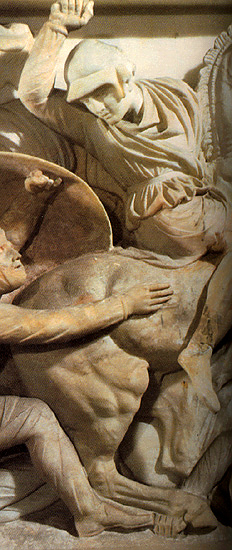
Let every one of us be ambitious [philonikia -- victory-loving, loving rivalry] to gain excellence [areté -- Manhood, Manly Goodness, Manly Excellence], but without jealousy. For a man of this character enlarges a State [polis -- city-state], since he strives hard himself and does not thwart the others by calumny [false accusation, slander] . . .
"And don't you agree that the soldier who [in battle] wins the prize of valor [aristeuo] and distinguishes himself shall first be crowned by his fellows in the campaign, by the lads and boys each in turn?"
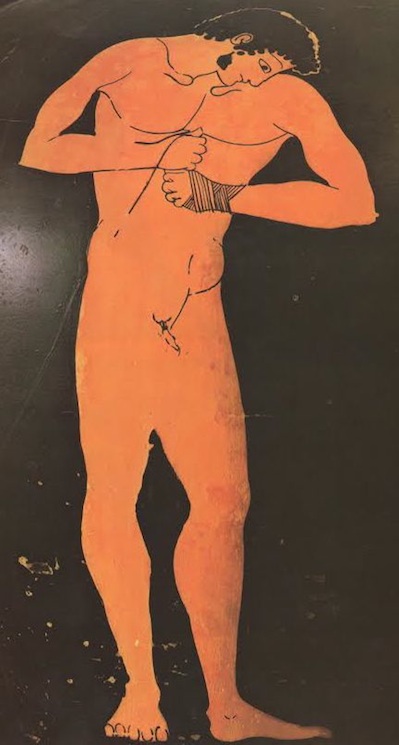
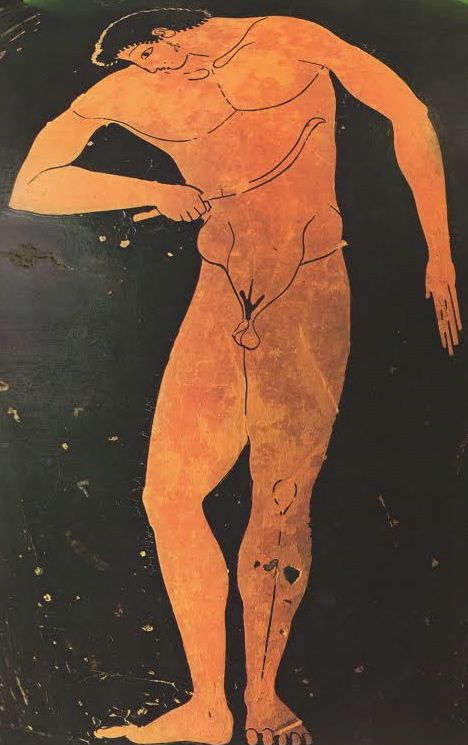


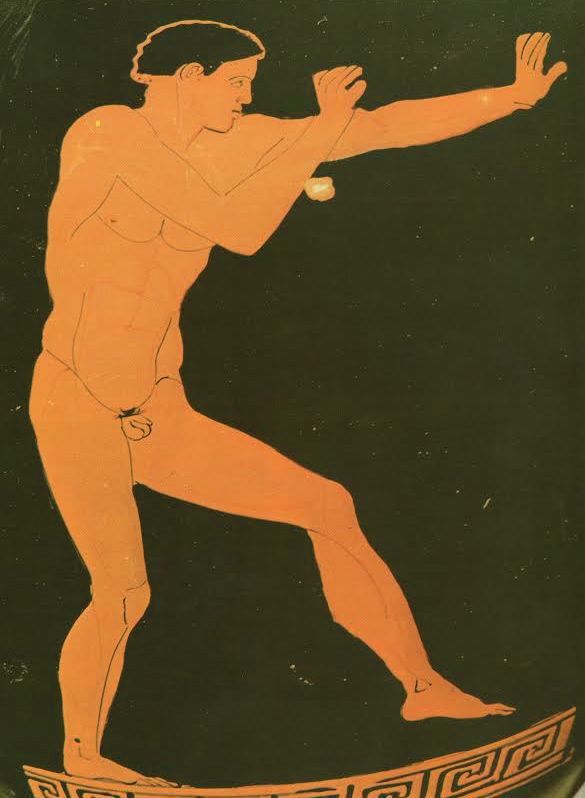
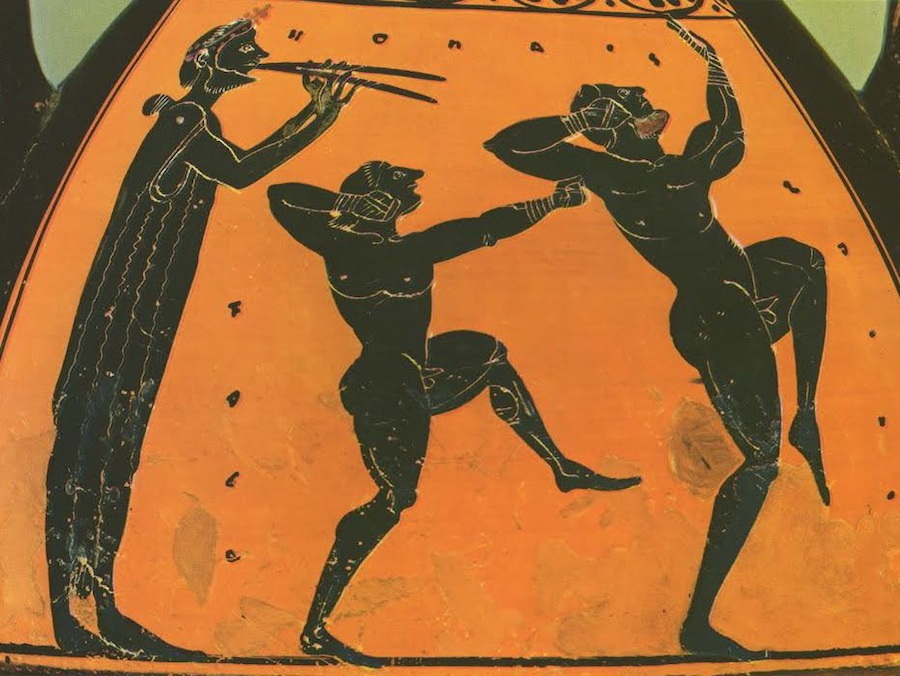
Gymnazousi Pugmachoi hup Aulou
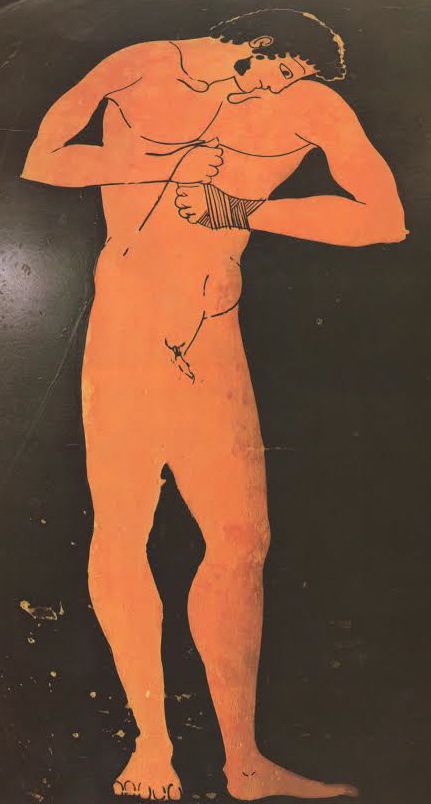


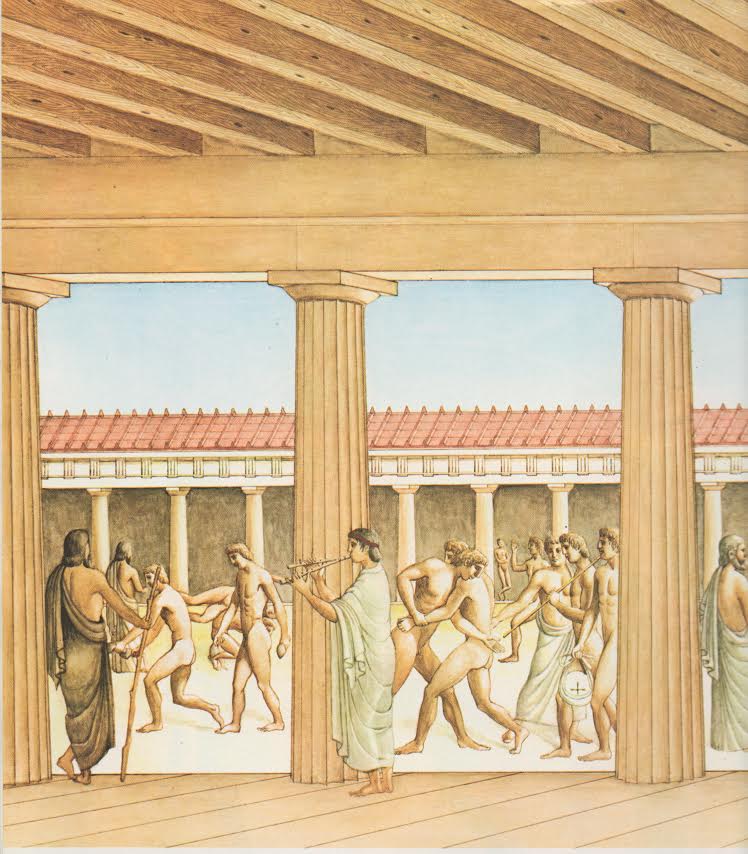
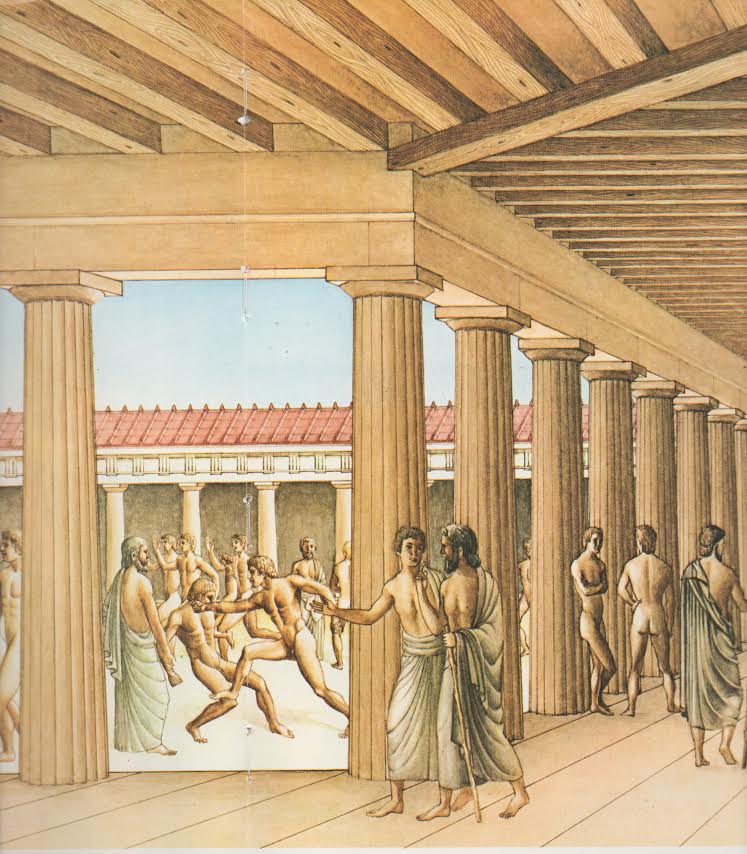
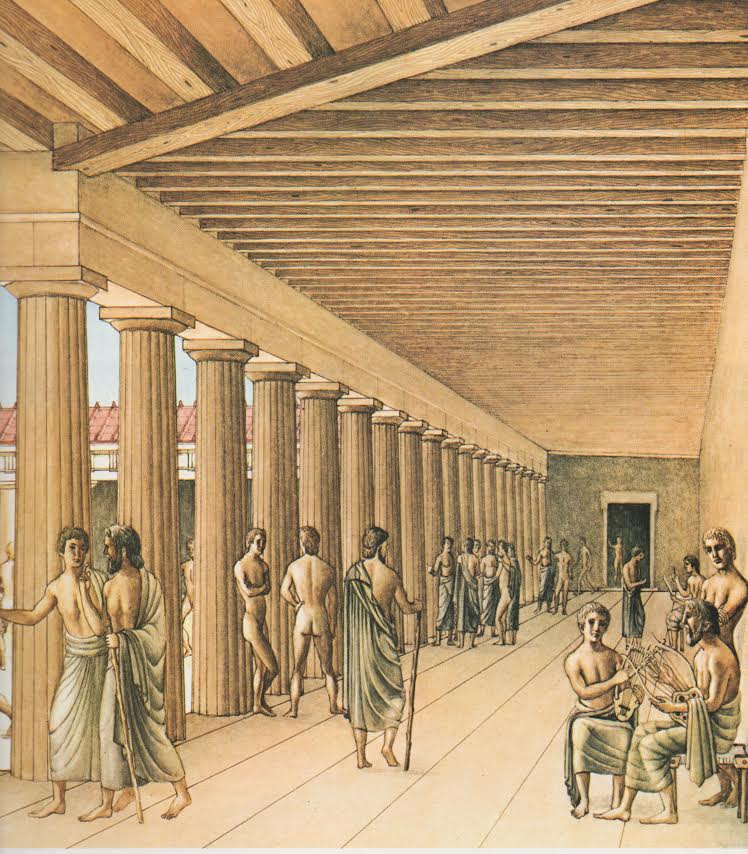
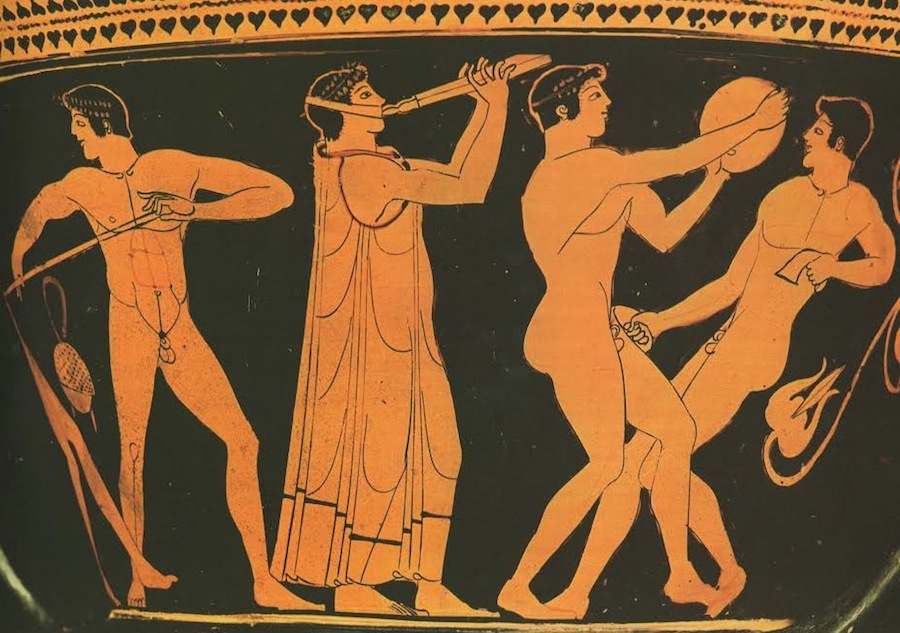
Gymnazo : Harmonia kai Rhythmos
Athletes train Naked and Together to the Rhythms and Harmonies of the Flute and Tambour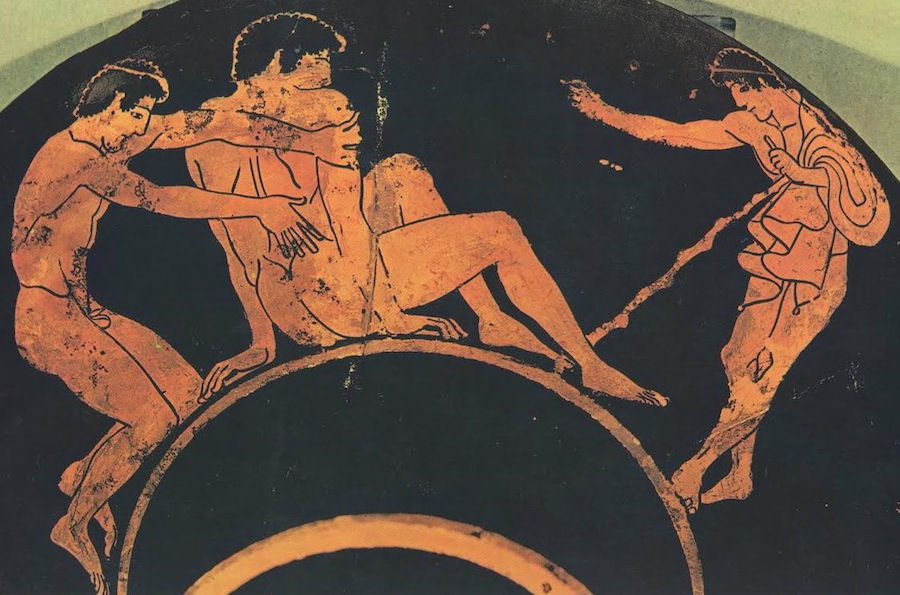
A trainer supervises the massaging of his student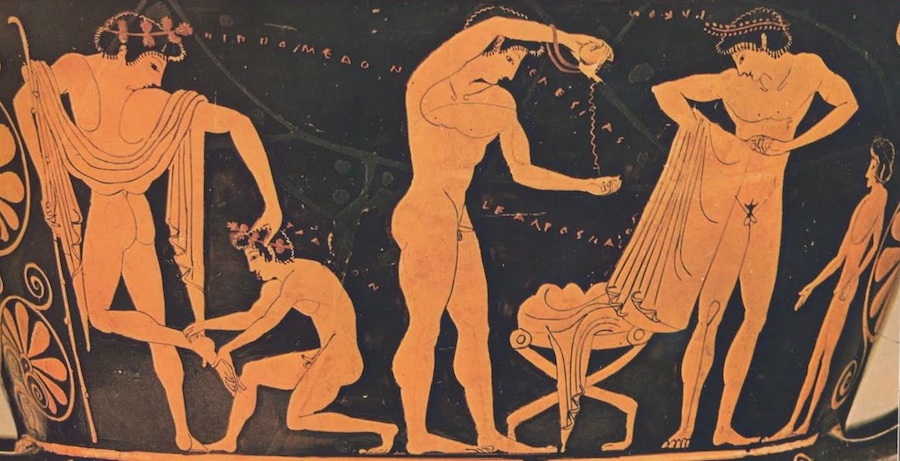
Three Youths Prepare to Wrestle
On the left, Hippomedon's foot is massaged by Tranion ;
Hegesias is pouring oil which he'll use to anoint his body ;
Lykon removes his cloak, which he'll hand to the boy on the right ;
And Hippomedon, Tranion, Hegesias, and Lykon are all wearing wreaths.
Activity is communal and shared.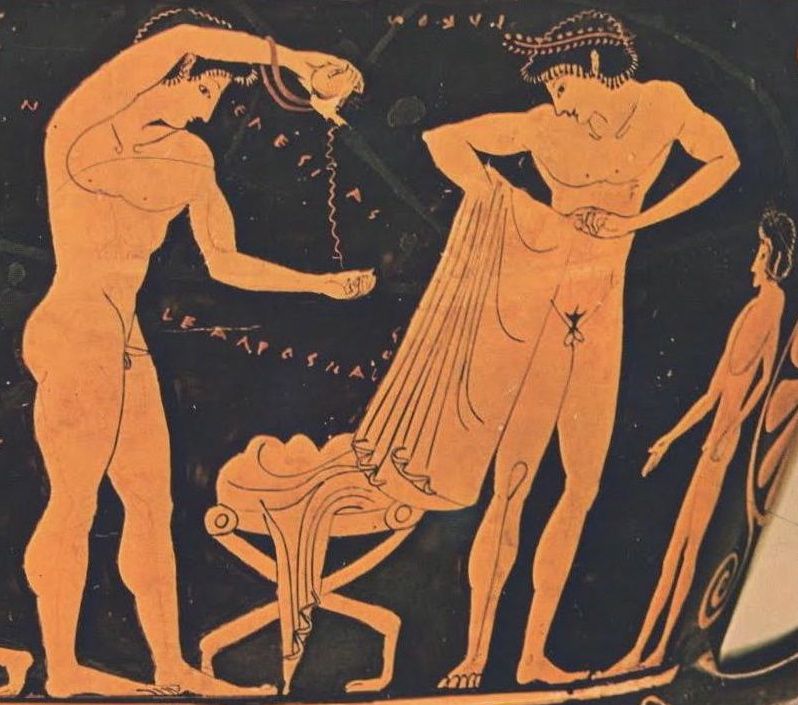
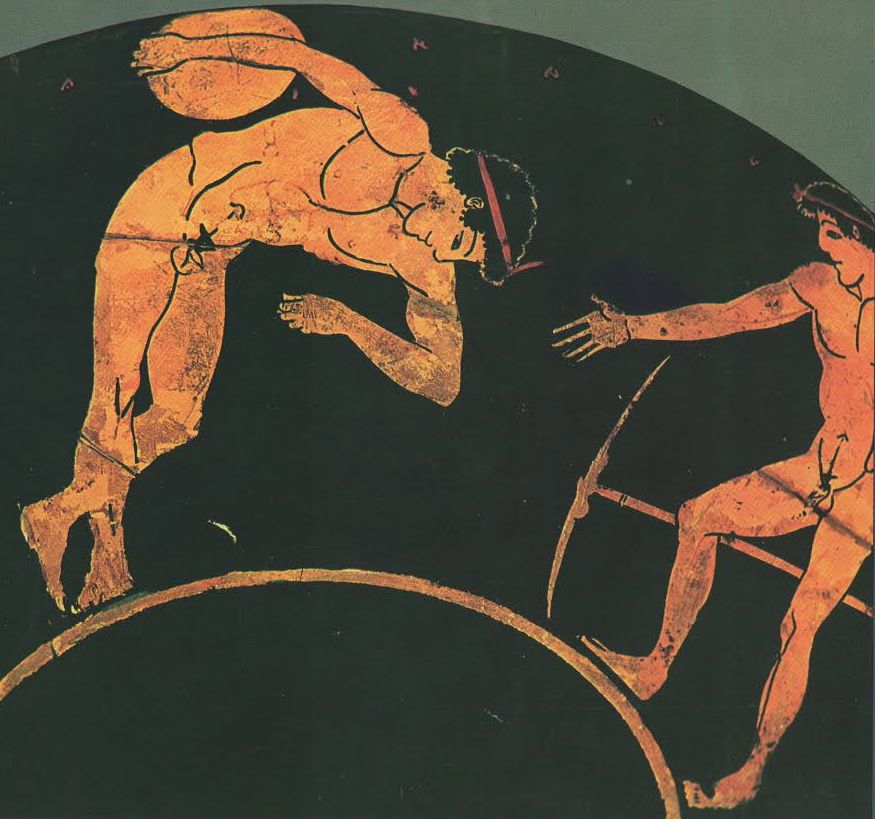
One youth prepares to throw the discus, encouraged by a comrade standing next to a pickaxe used to soften the surface of the Fight Pit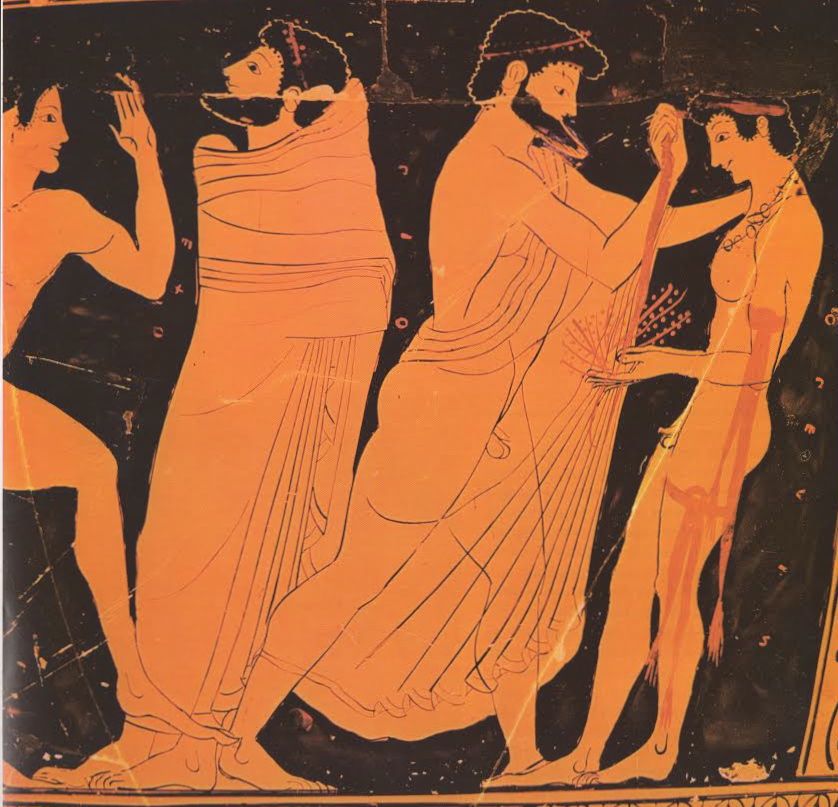
The Agonothetes Αγωνοθετης crowns a Young Victor
A Younger and Older Boxer -- possibly Lovers -- Train Naked and Together to the sound of the Flute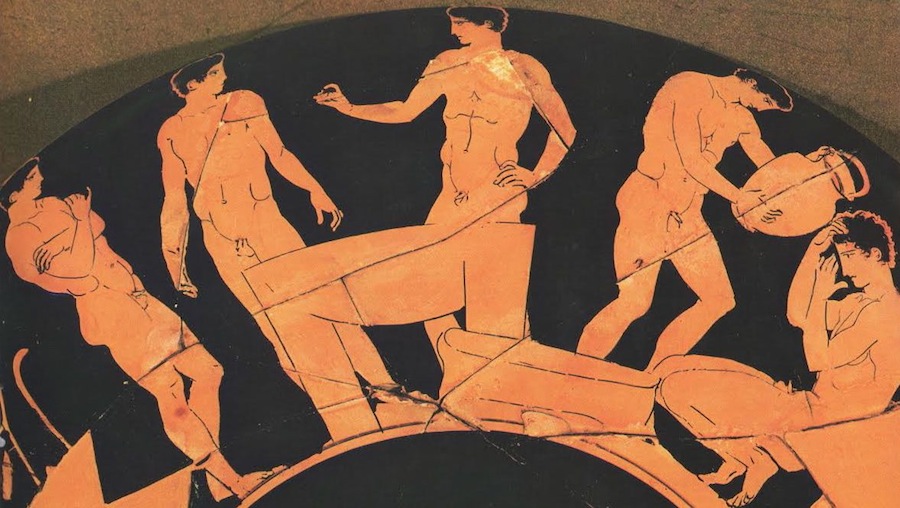
Athletes bathe each other in the loutron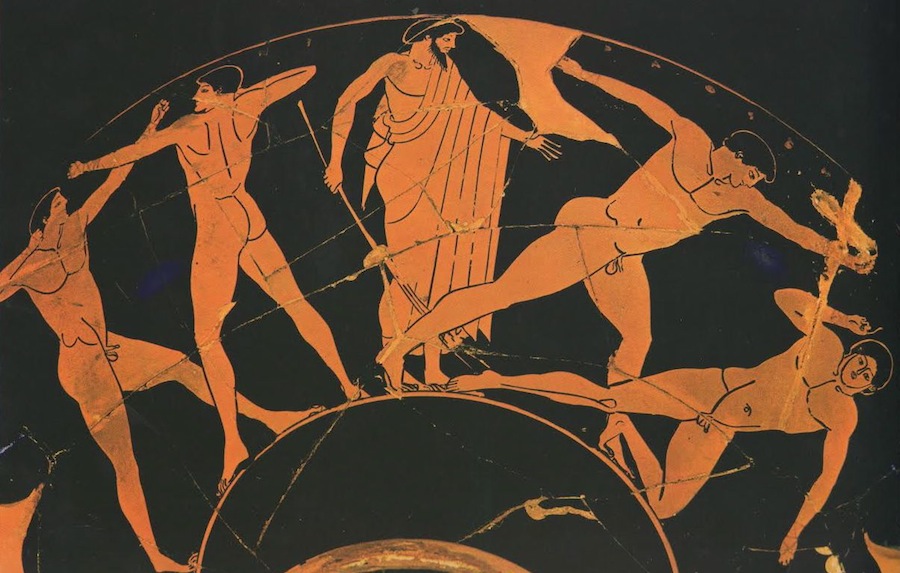
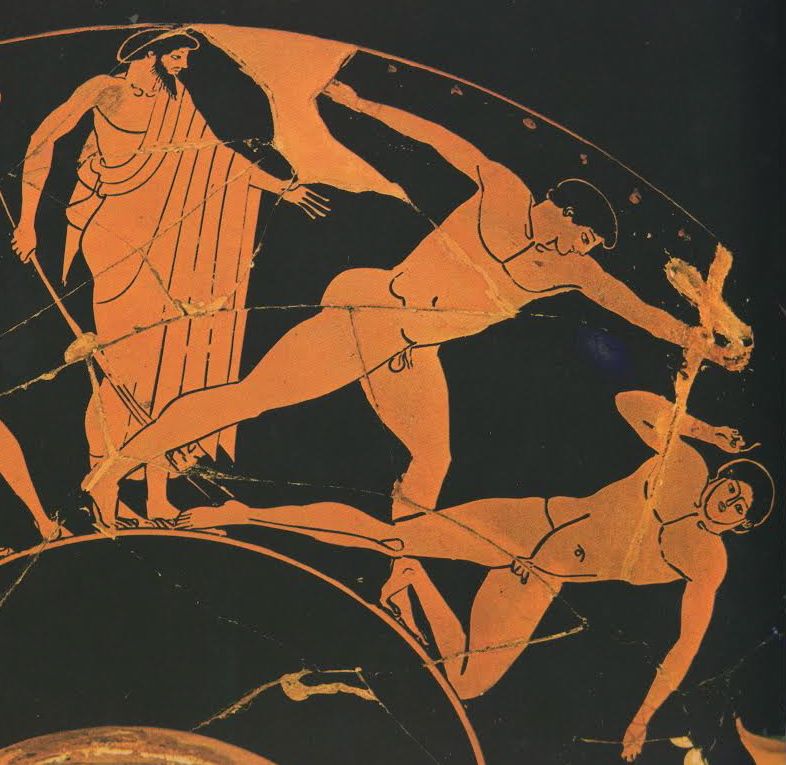
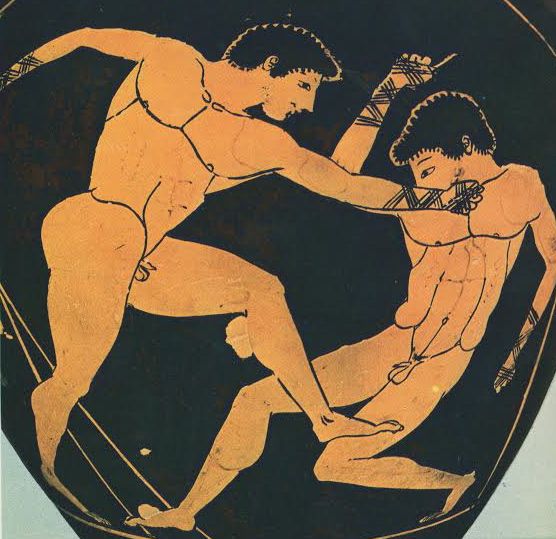
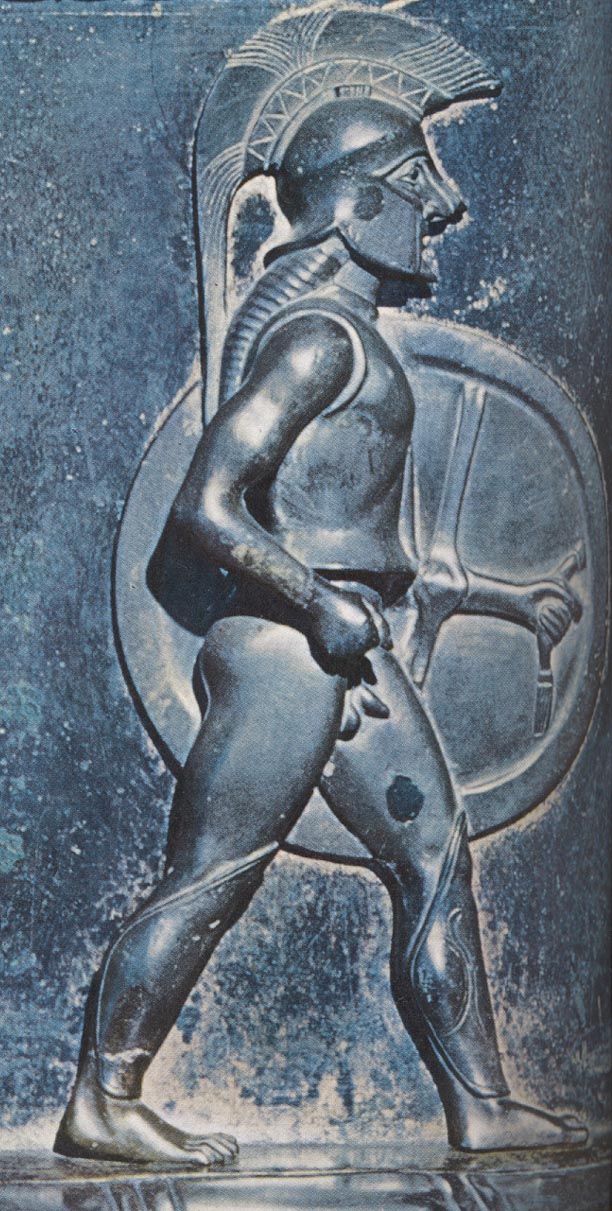
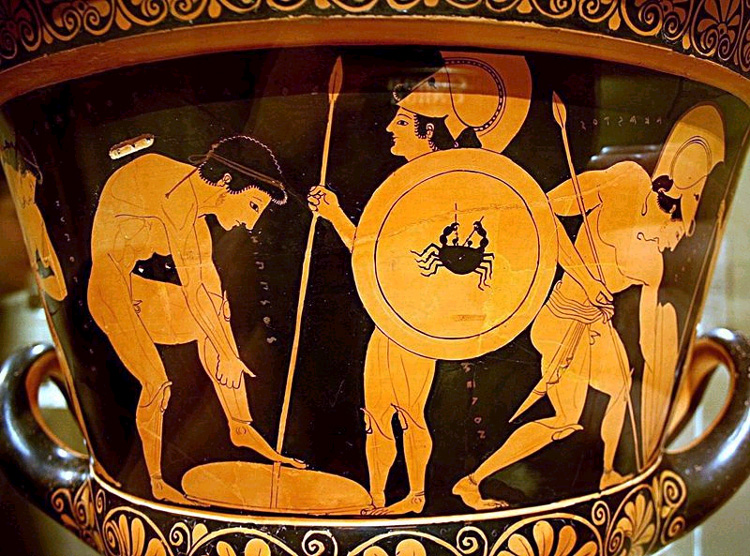
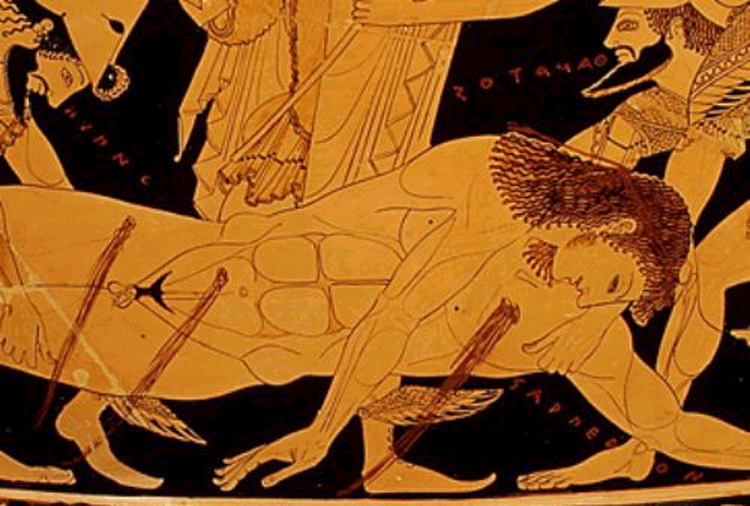
Sarpedon has died selflessly in battle ;
Fighting for friends and country, he's
sacrificed length of days for Areté --
Fighting Manhood, Manly Goodness
embrace all qualities which are desirable in a perfect man, especially the more active and positive virtues.
Fighting Manhood : Strength, vigor, bravery, courage, excellence ; Valour, gallantry, fortitude ; Goodness, moral perfection, high character, virtue ; Worth, merit, value.
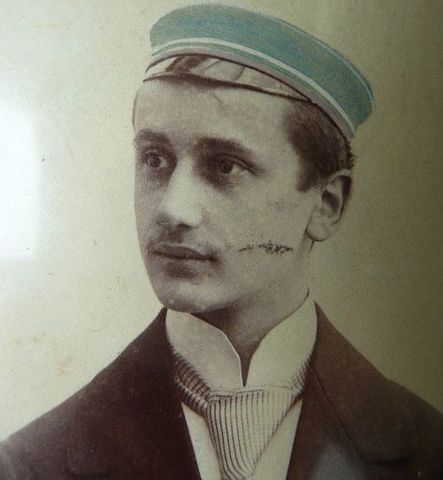
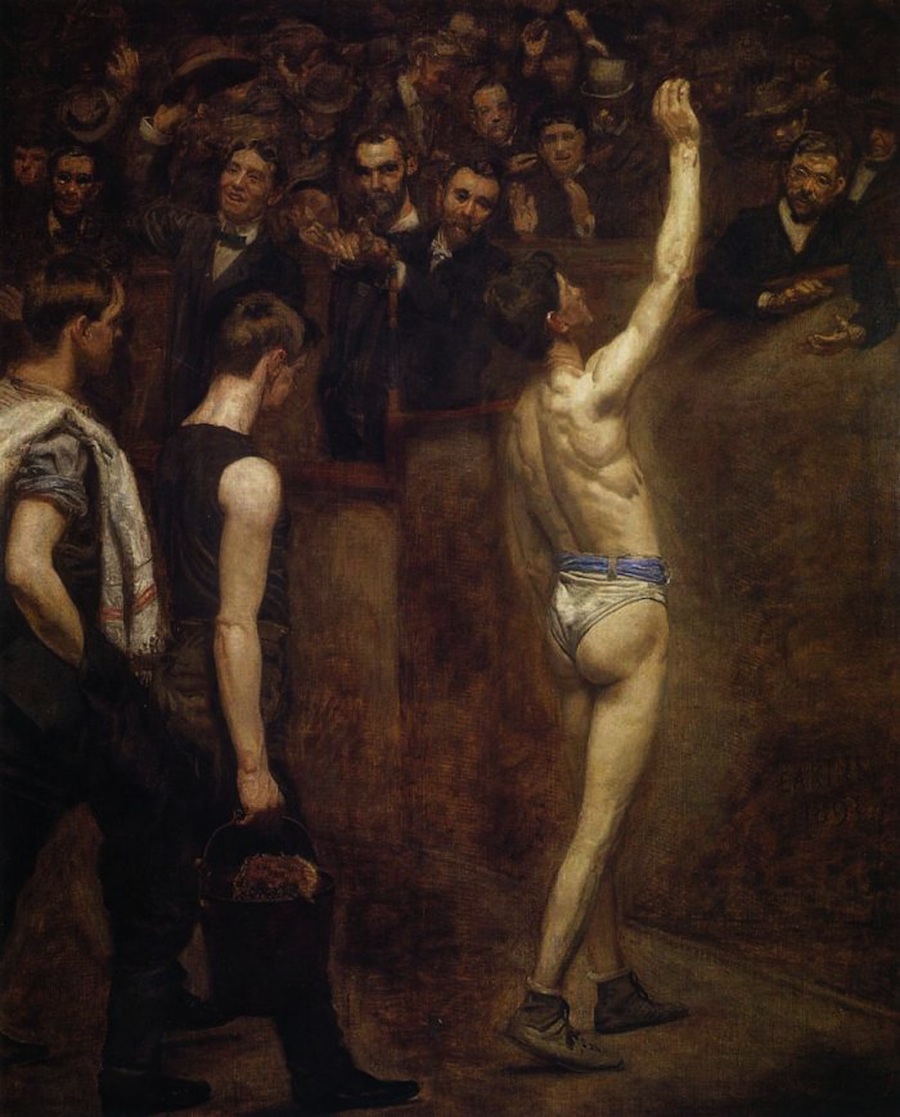
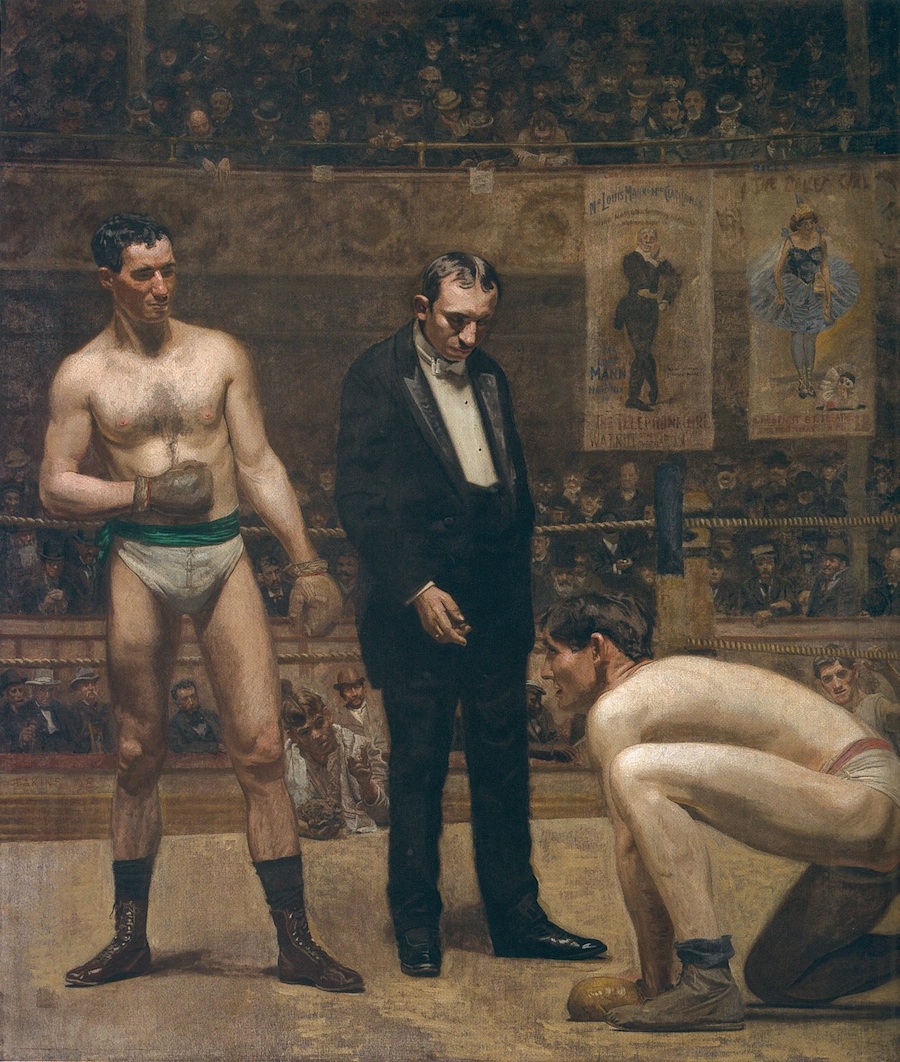
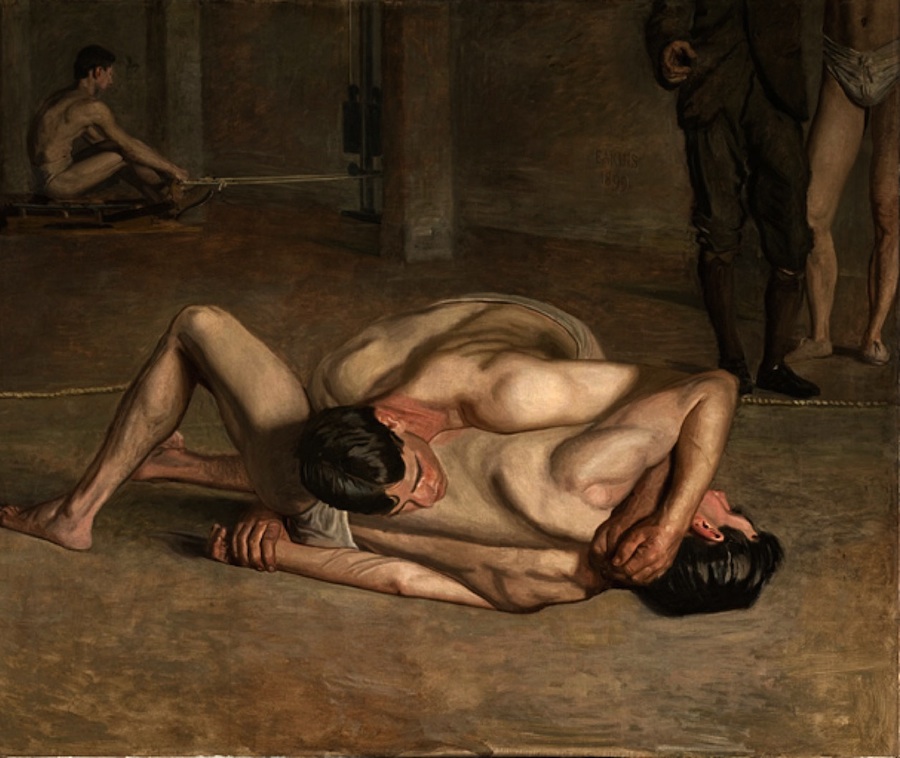
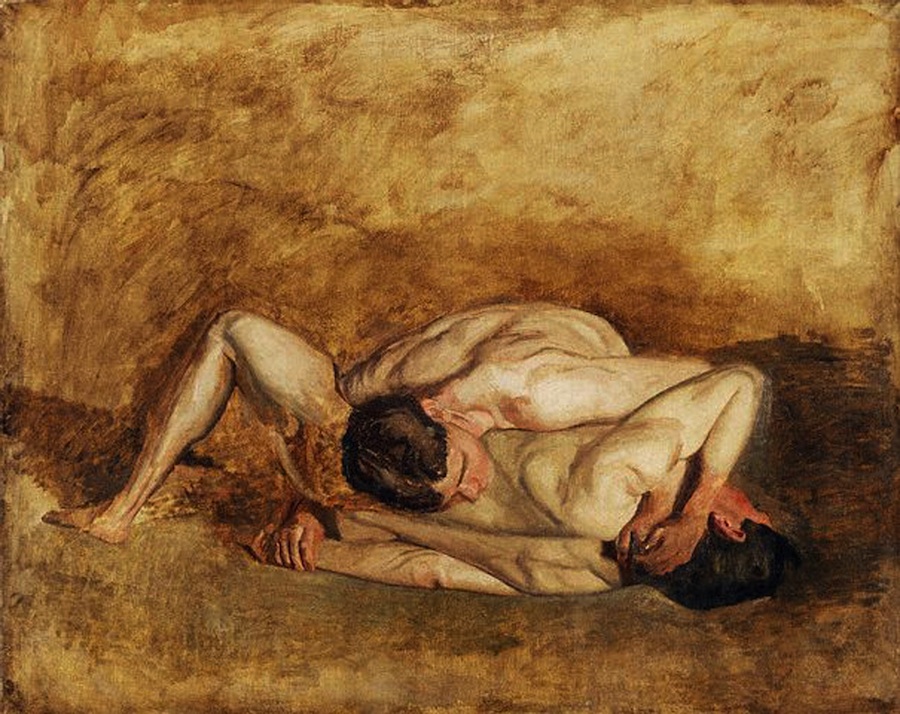
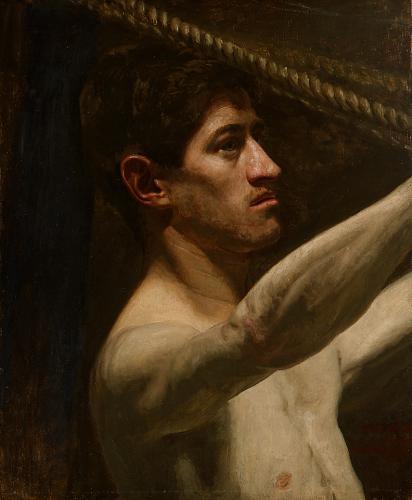
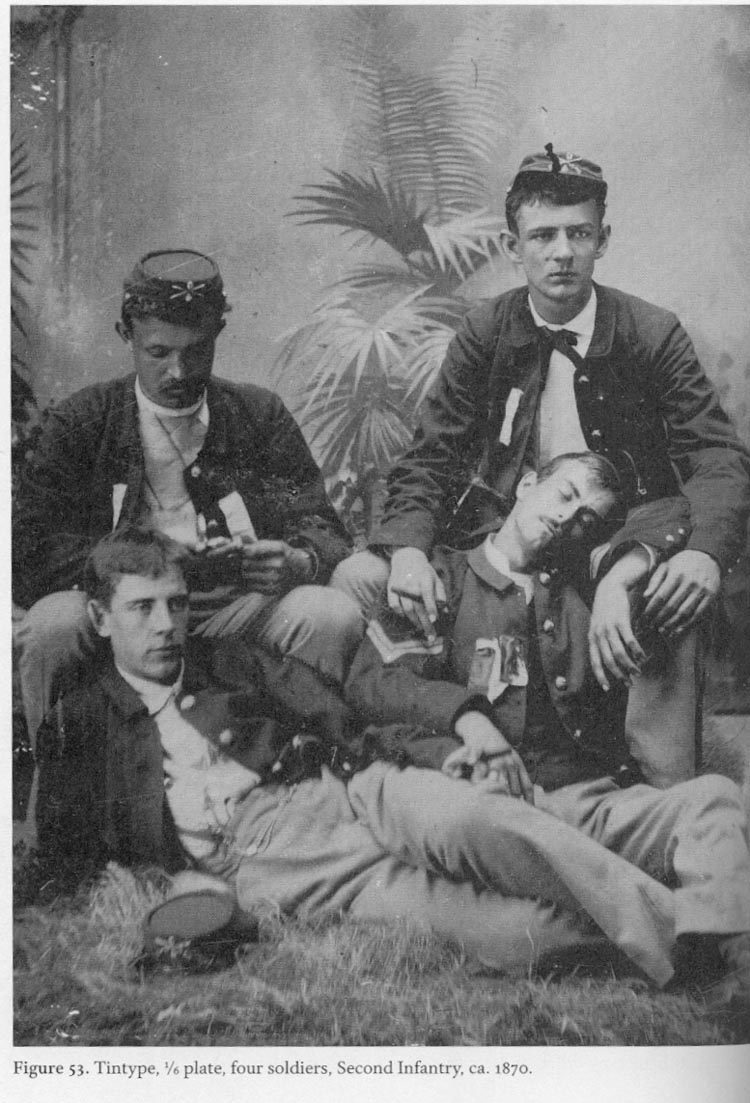
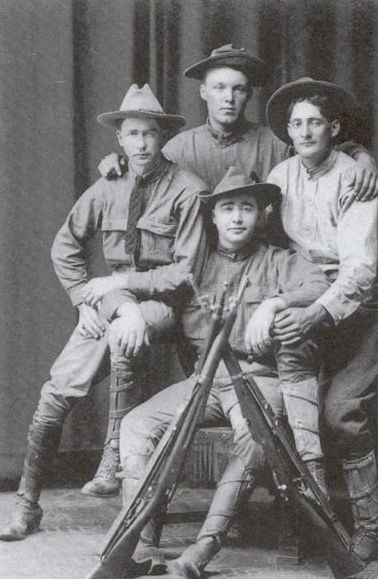
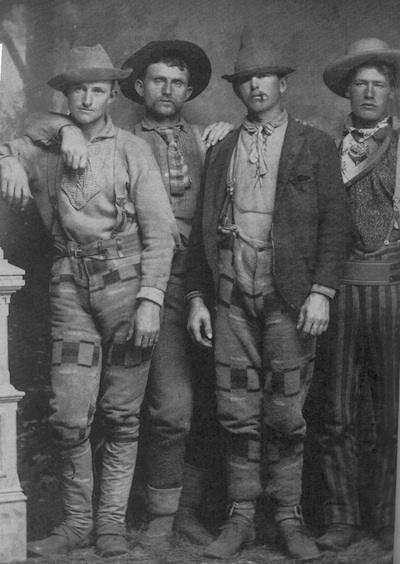
_1883_Eakins'_art_studens_wrestling_in_the_nude.jpg)
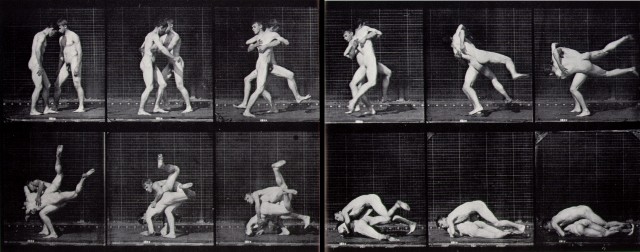
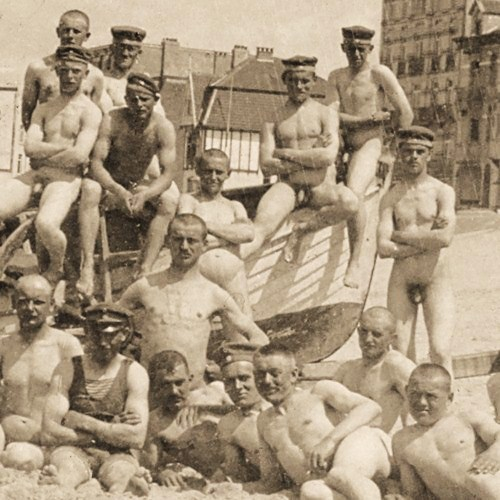
[I]t is not long since the Greeks thought it disgraceful and ridiculous, as most of the barbarians do now, for men to be seen naked [gymnos]. And when the practice of athletics [gymnazo] = nude athletics] began, first with the Cretans and then with the Lakedaemonians [Spartans], it was open to the wits of that time to make fun of these practices, don't you think so?
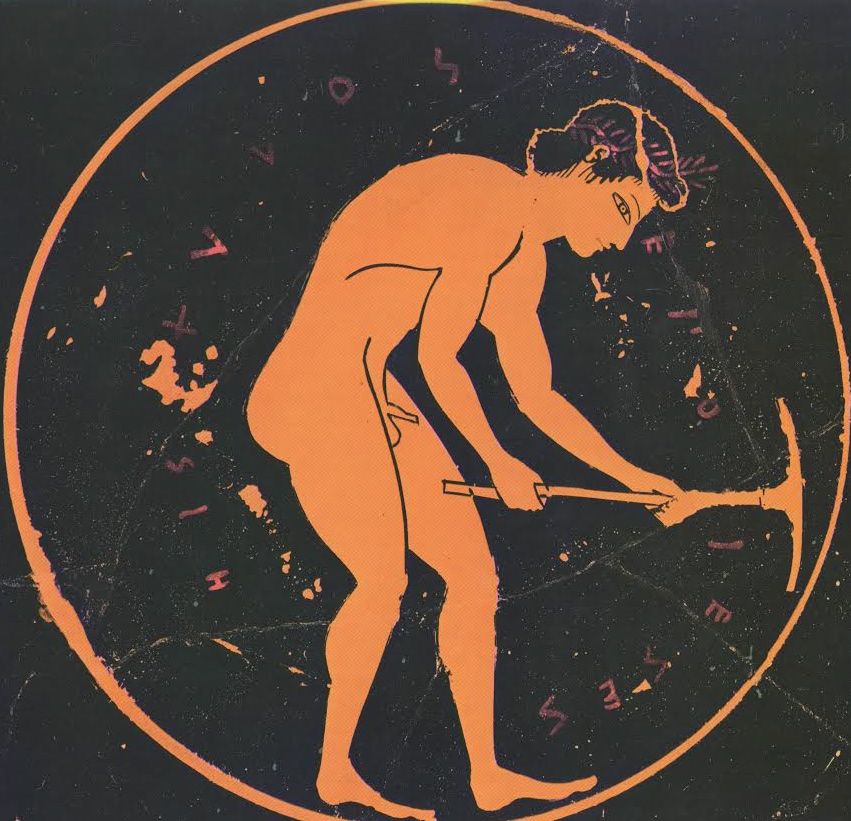
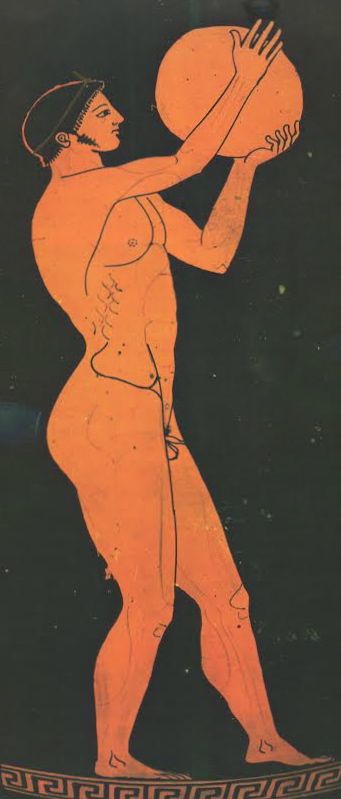
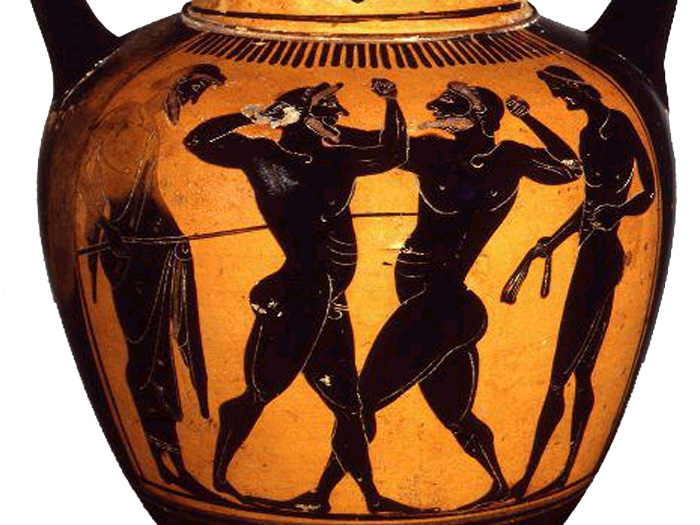
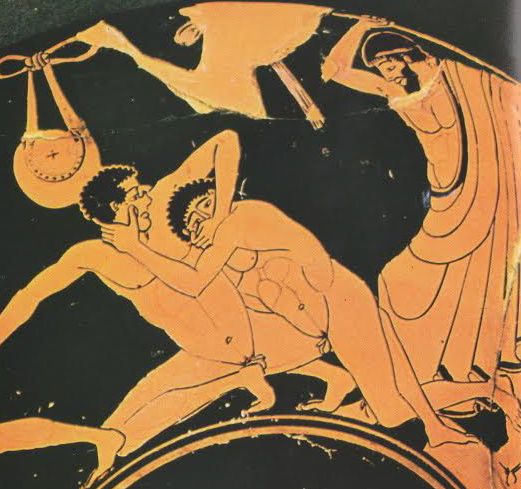
Pankratiasts are reprimanded for eye-gouging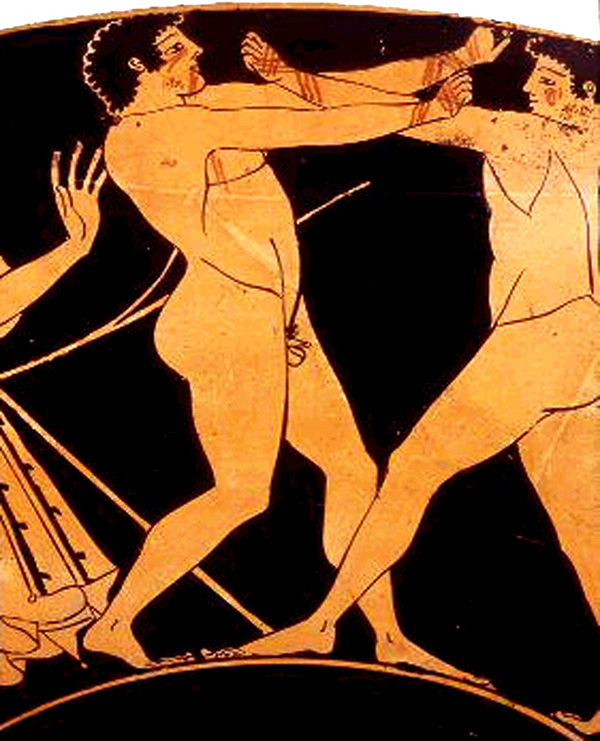
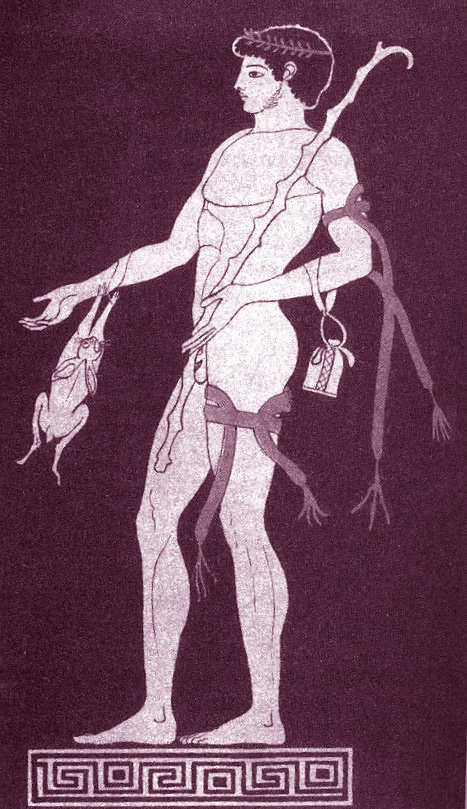
An athletic victor stands nude and garlanded
Banners indicate his consecration to the Gods
The hare is a courting-gift from a male admirer



Vigor, strength, bravery, courage, excellence ; Valour, gallantry, fortitude ; Virtue, goodness, moral perfection, high character ; Value, merit, worth.

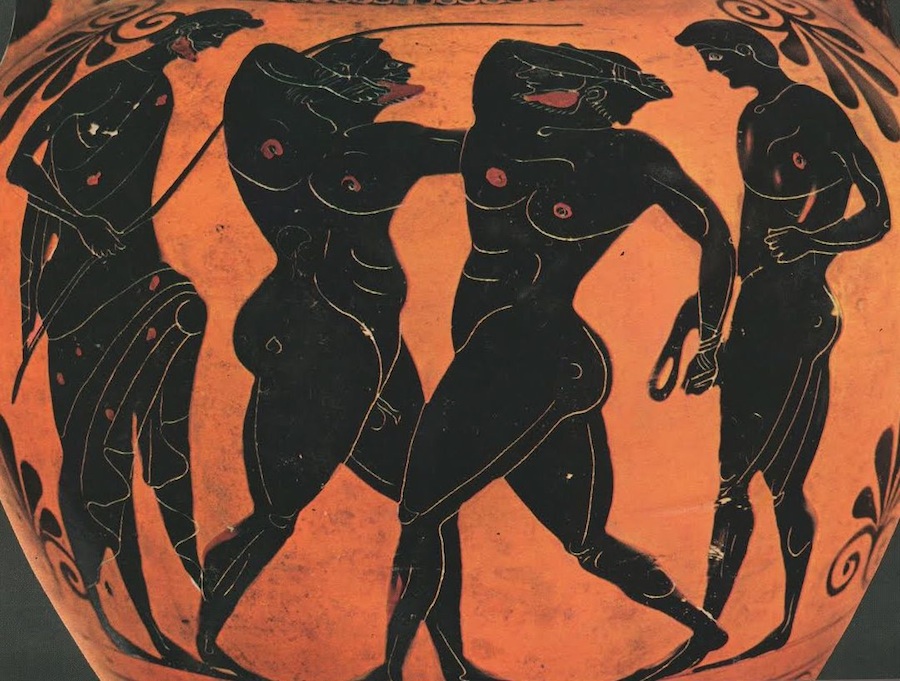
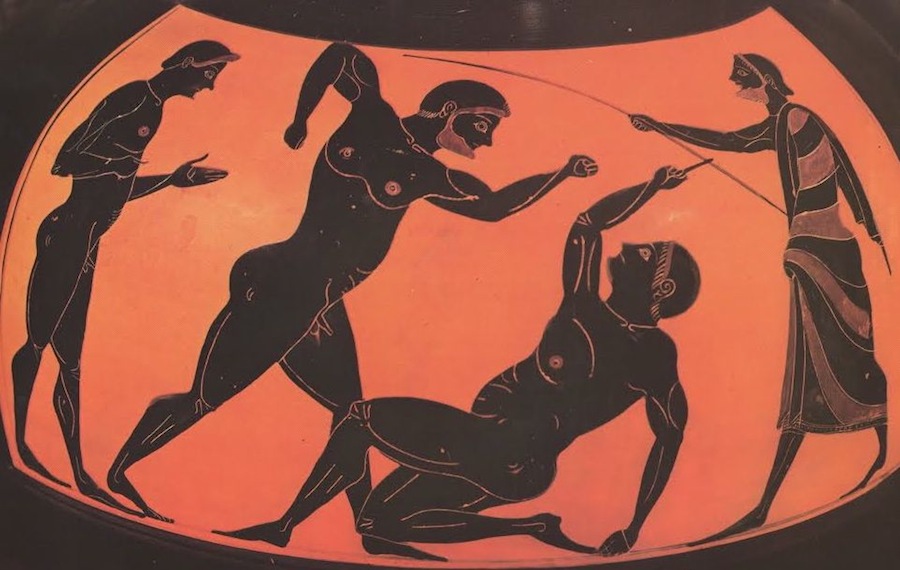
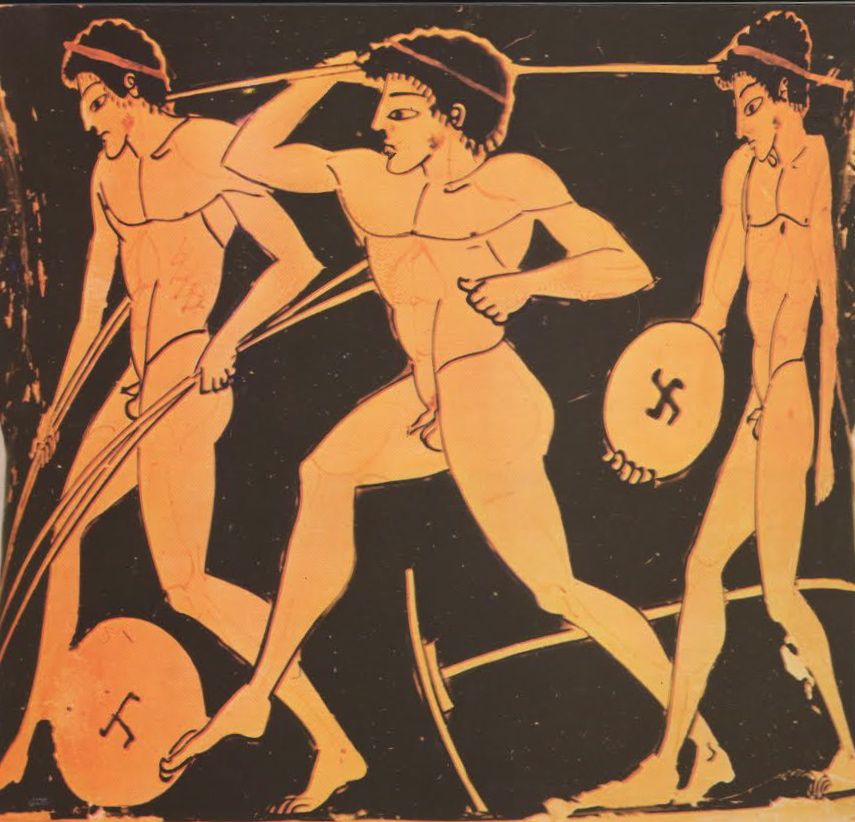

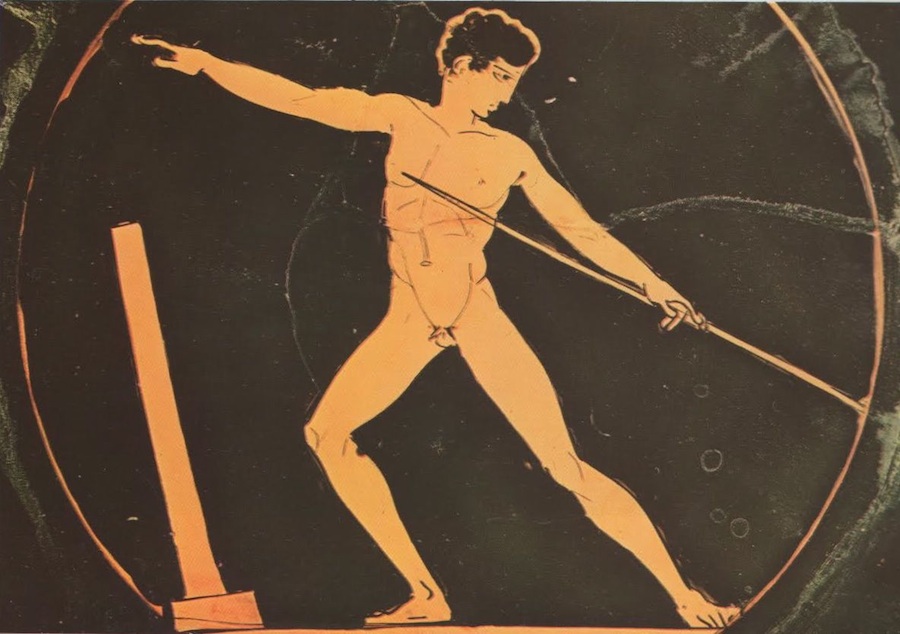
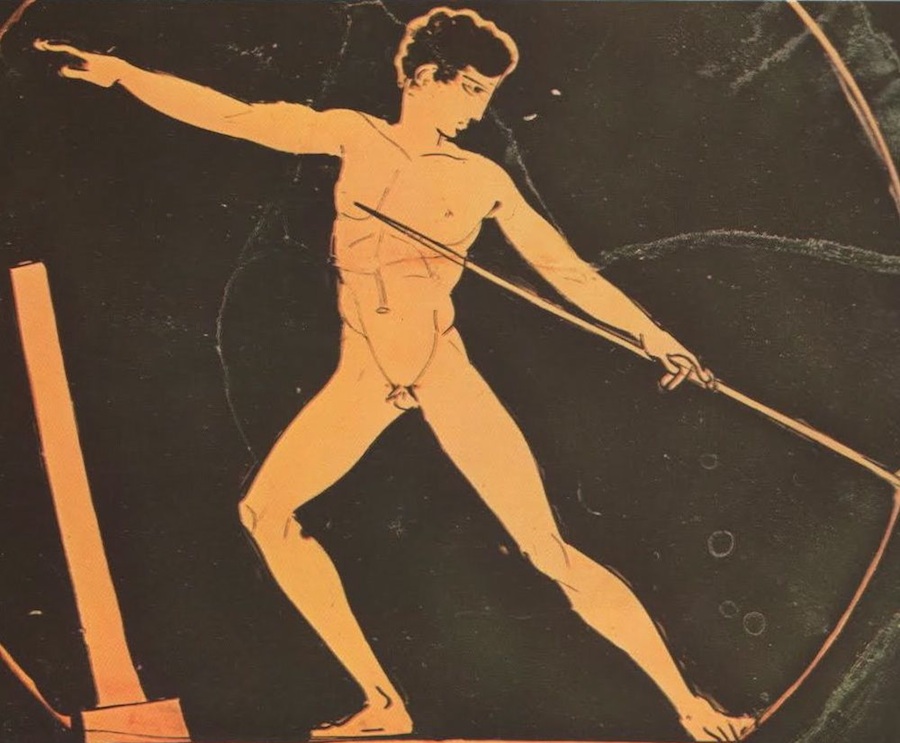
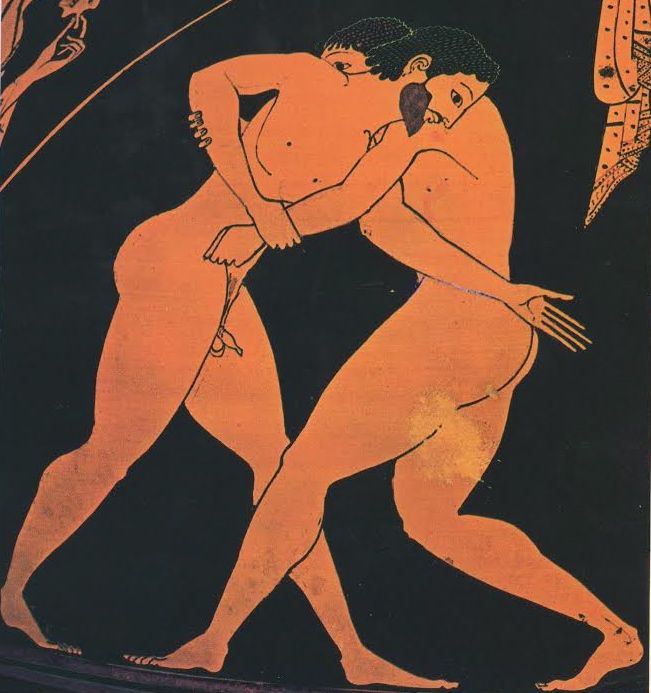

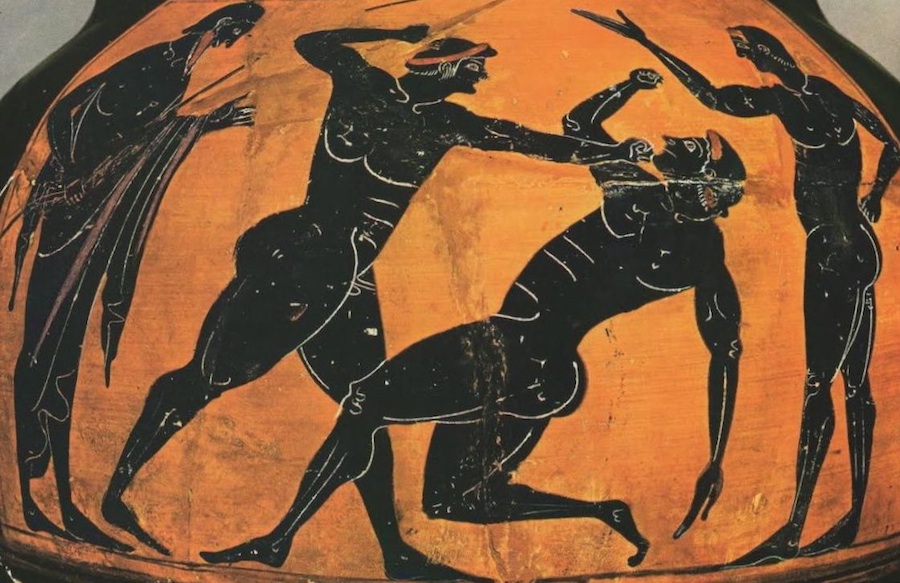

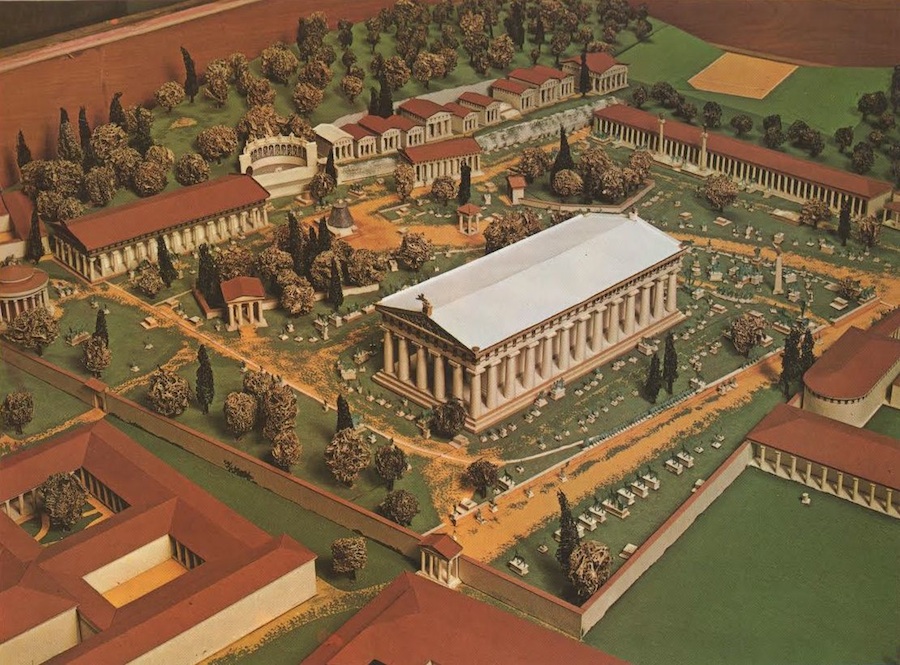
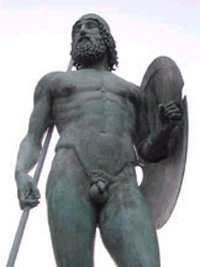
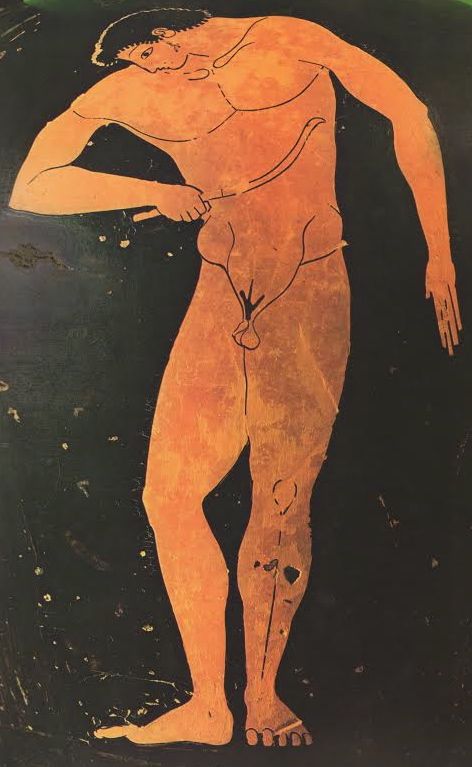
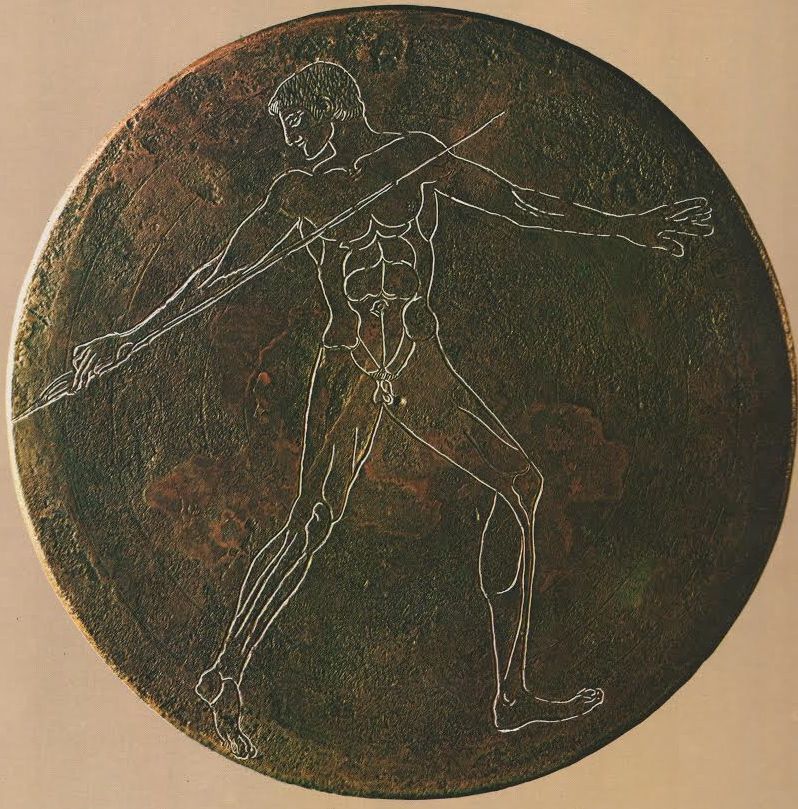
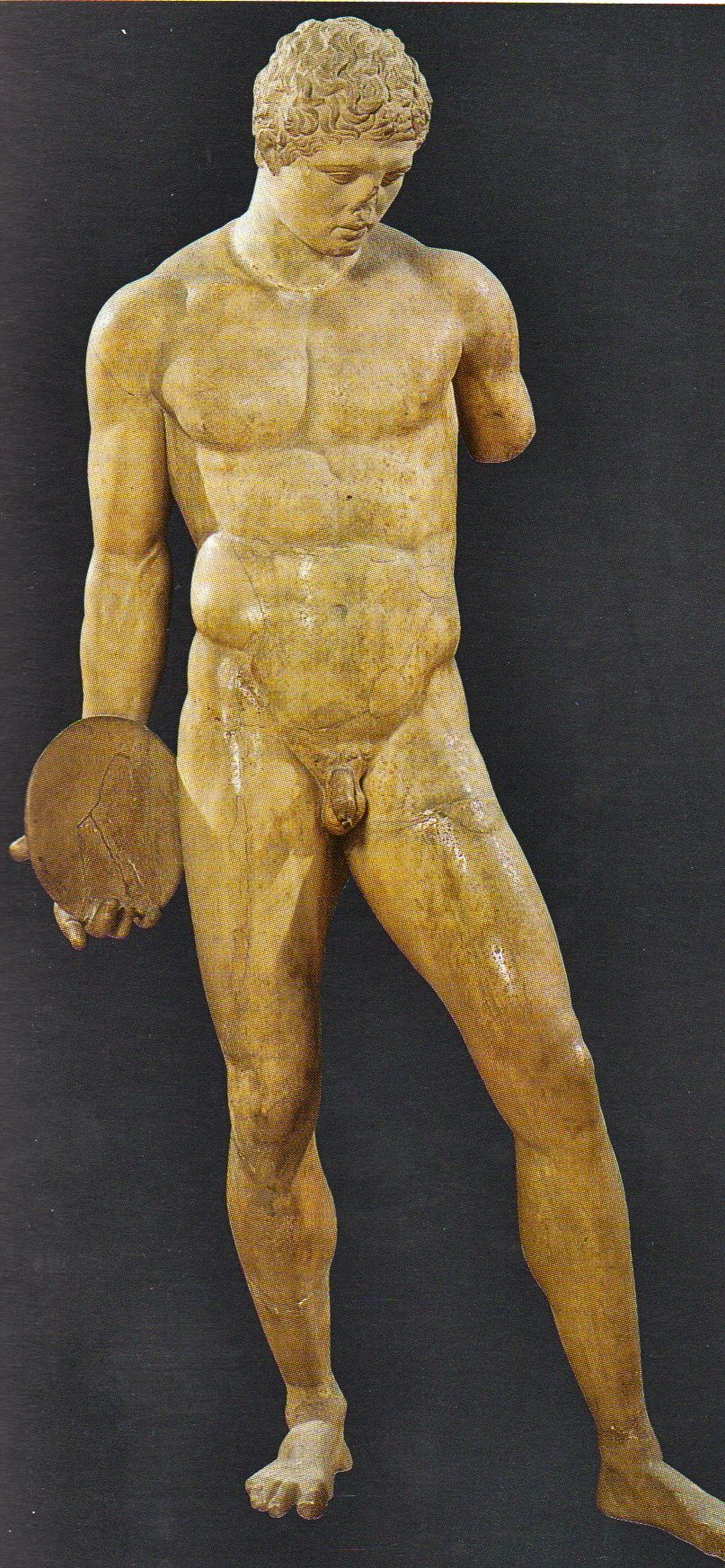
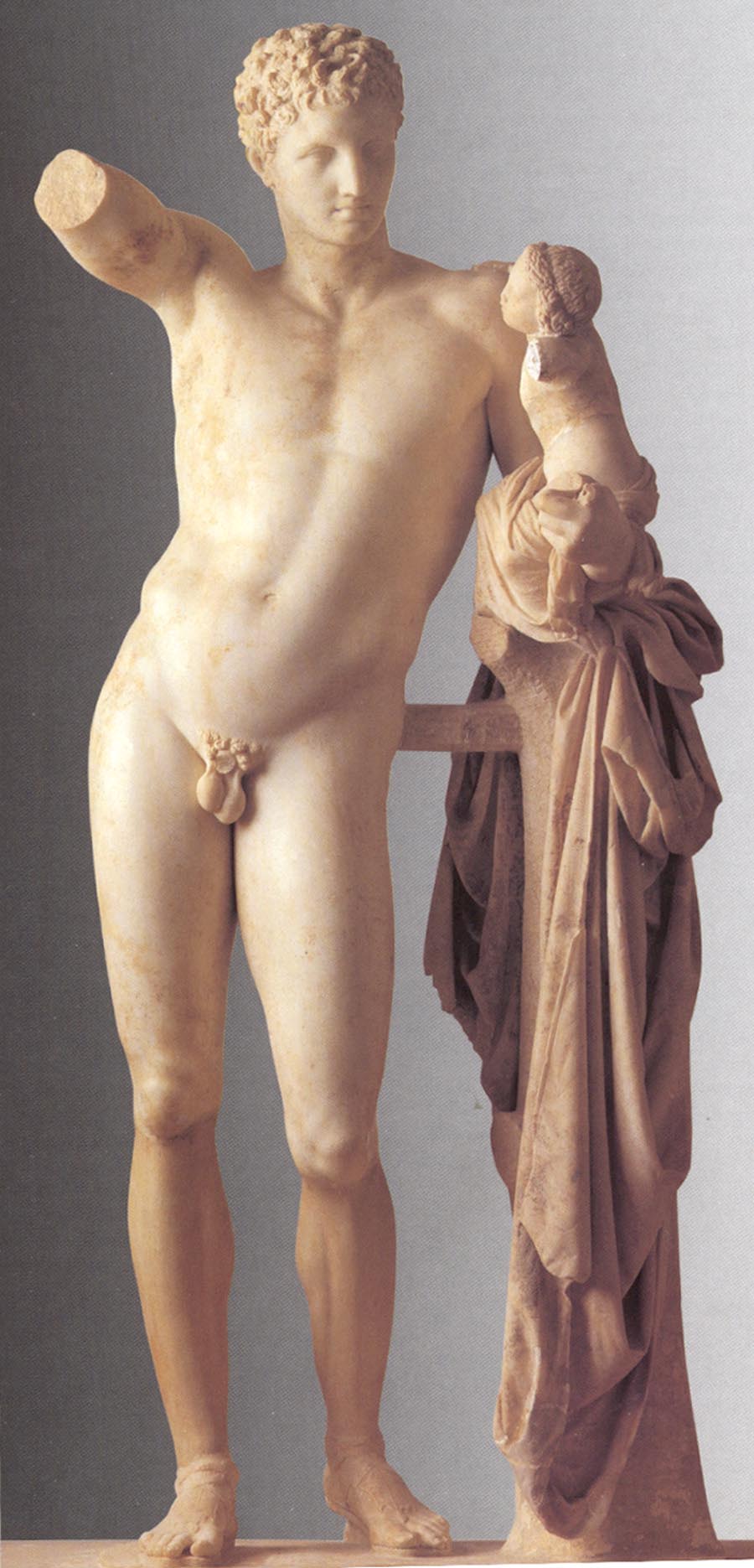

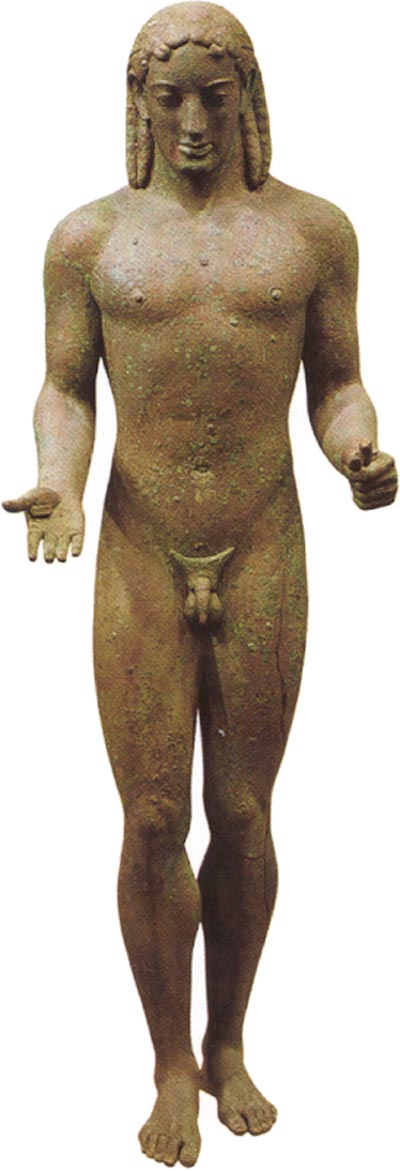
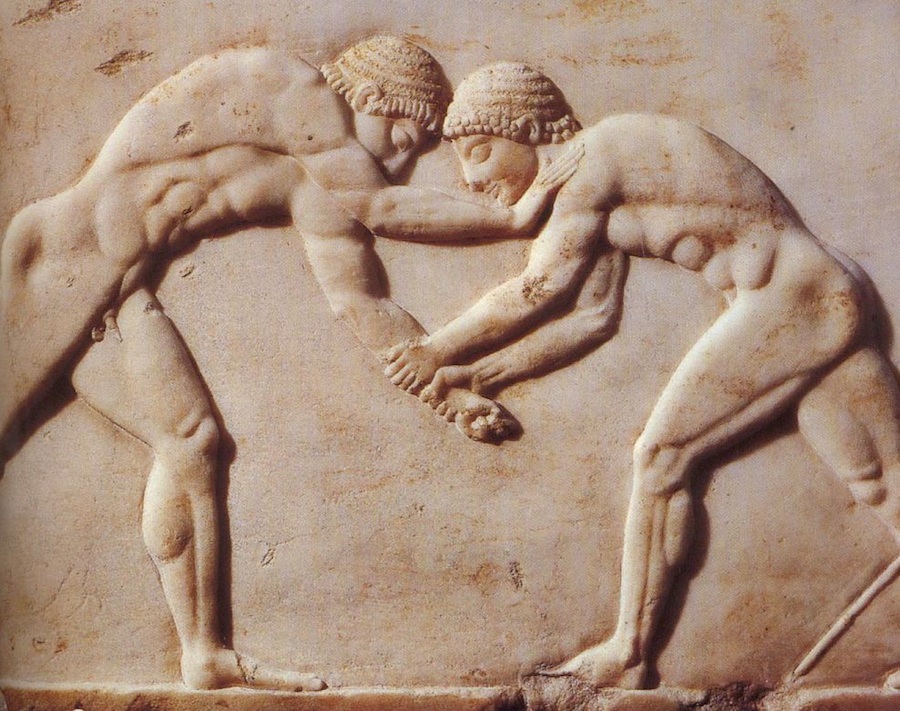
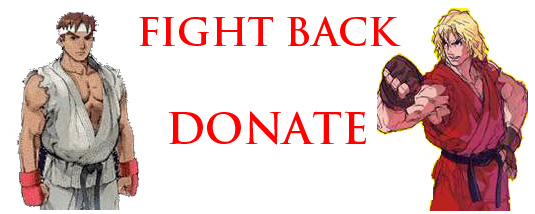
to the
Chapter List for Biblion Pempton -- Book V.

![]()




to
Manhood : A Lexicon -- Contents.

![]()


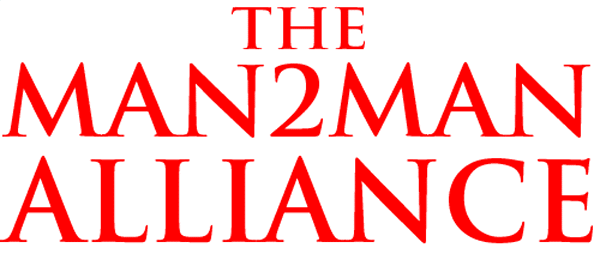






who reject anal penetration, promiscuity, and effeminacy
among men who have sex with men







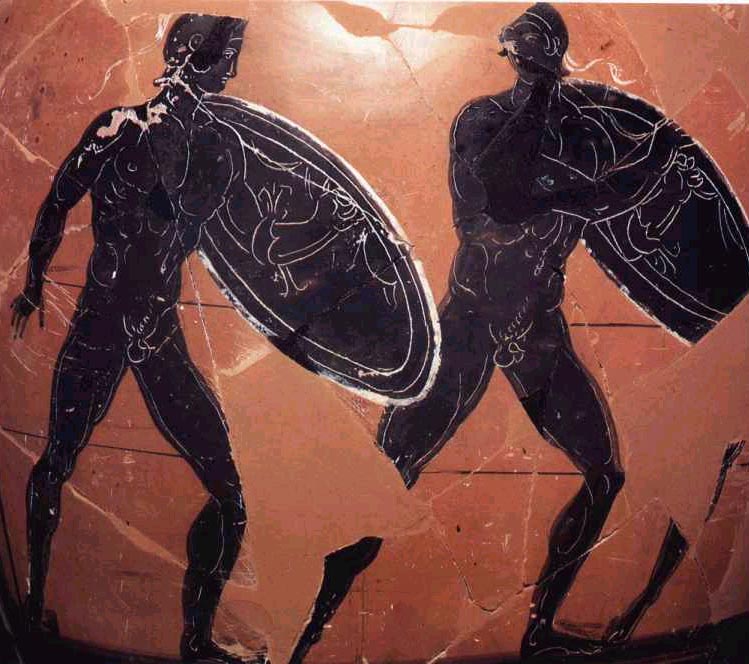
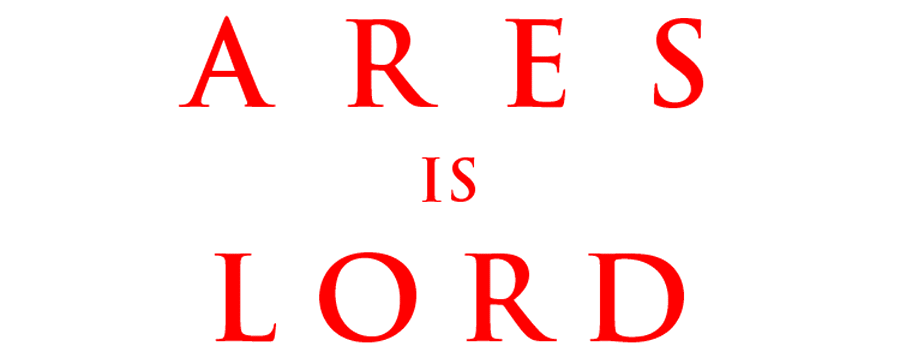



















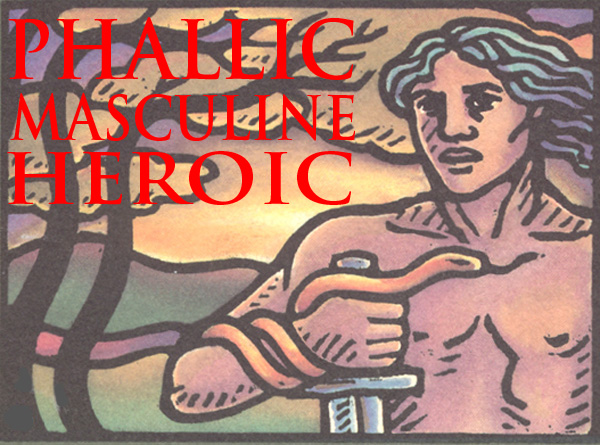


![]()

Who Celebrate, Exalt, and Worship
Fighting Manhood
In the Divine and Sacred Person of
L o r dxA r e s,
The Warrior God
God of Fight, God of Manhood, God of Fighting Manhood

| Heroes Site Guide | Toward a New Concept of M2M | What Sex Is | In Search of an Heroic Friend | Masculinity and Spirit |
| Jocks and Cocks |
Gilgamesh | The Greeks | Hoplites! | The Warrior Bond | Nude Combat | Phallic, Masculine, Heroic | Reading |
| Heroic Homosex Home | Cockrub Warriors Home | Heroes Home | Story of Bill and Brett Home | Frot Club Home |
| Definitions | FAQs | Join Us | Contact Us | Tell Your Story |

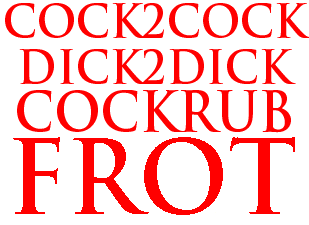

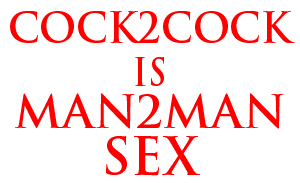
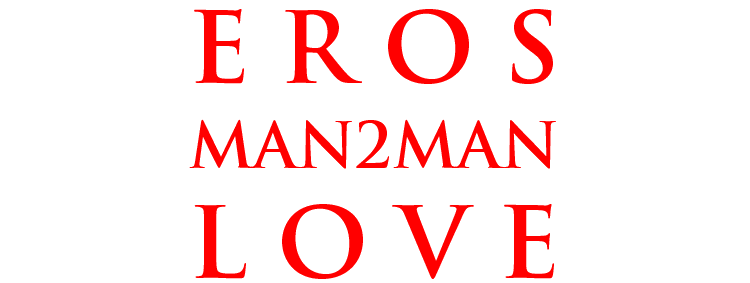
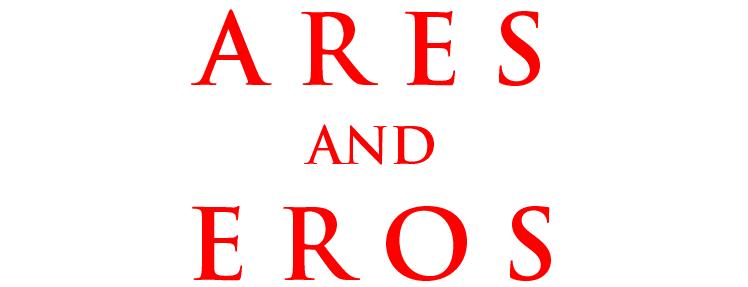
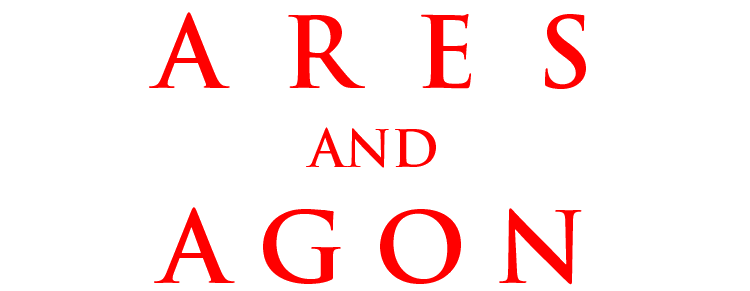
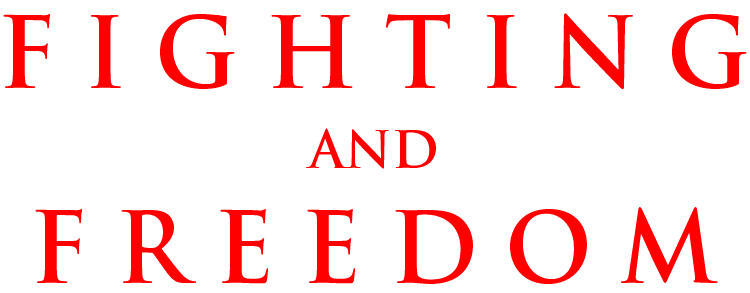
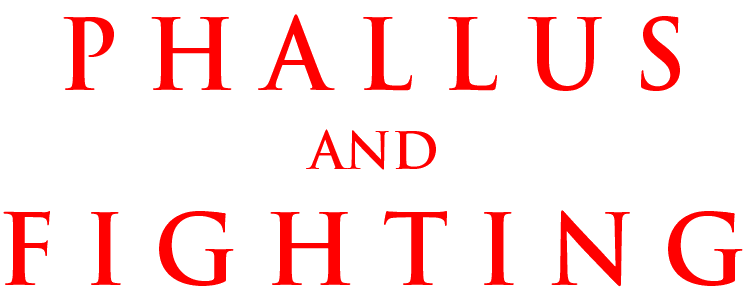
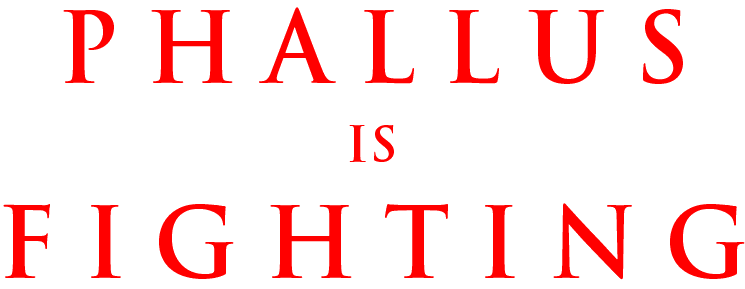
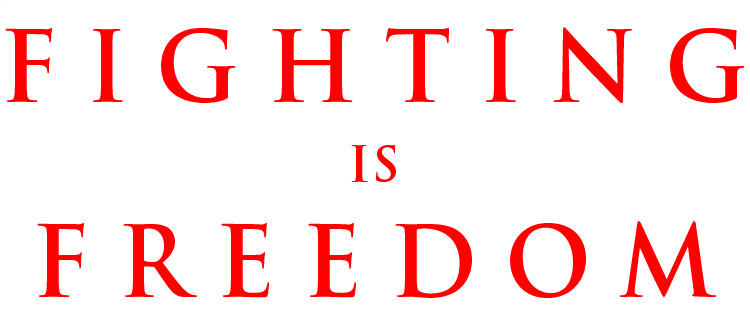
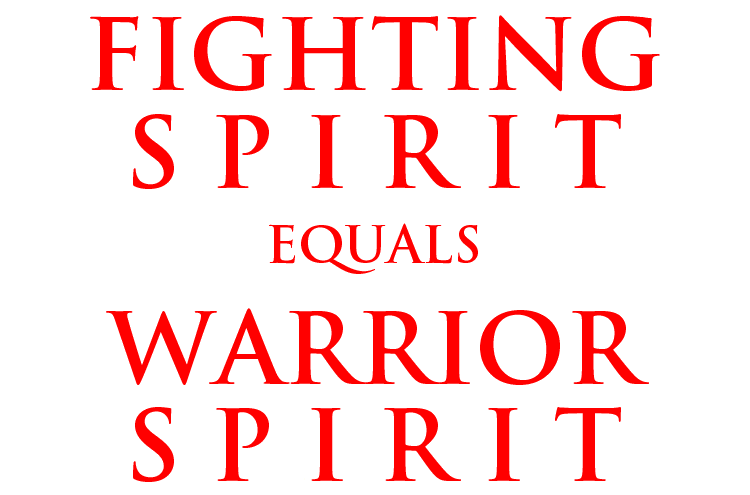

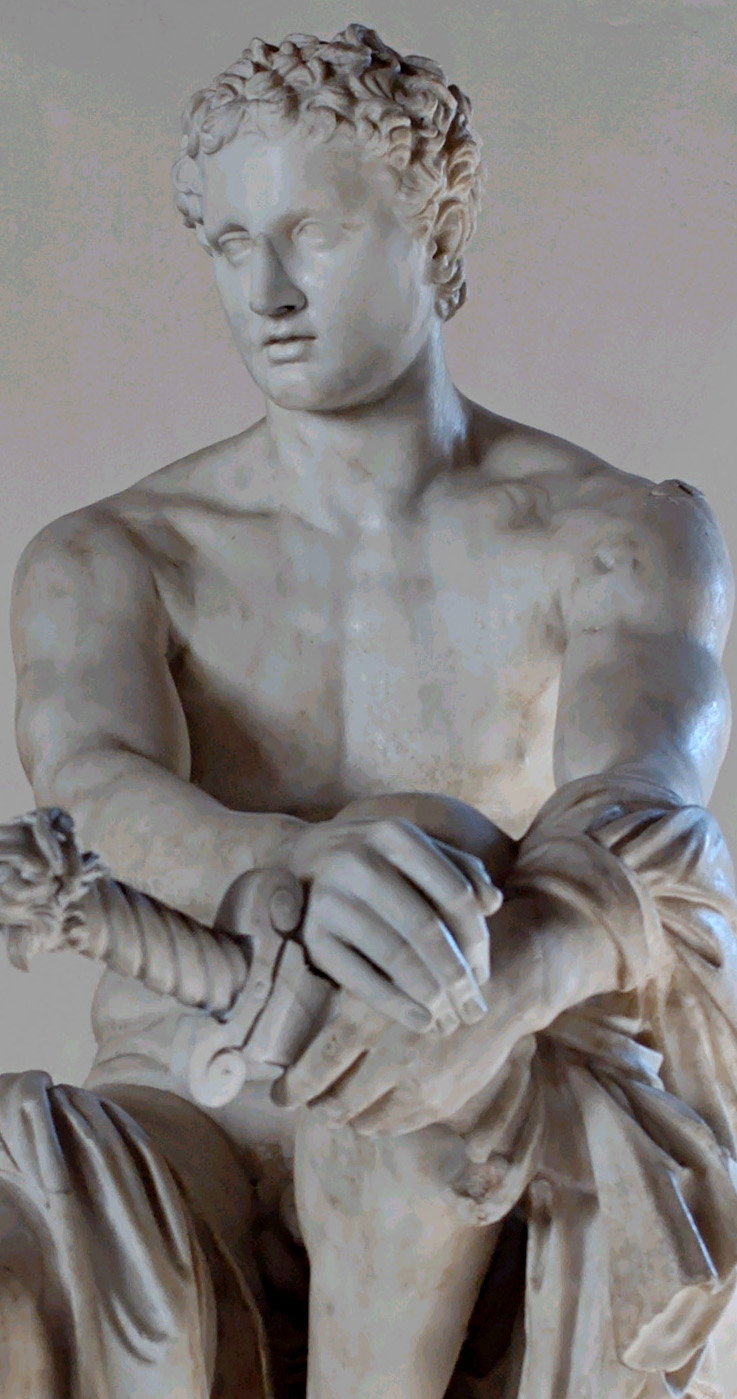

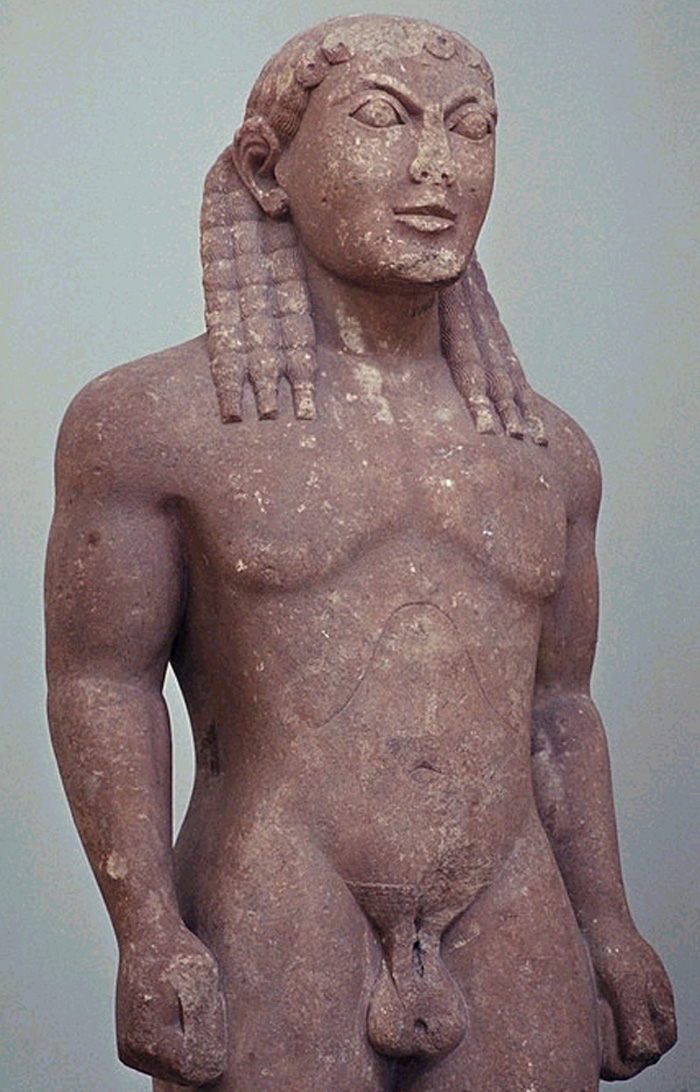

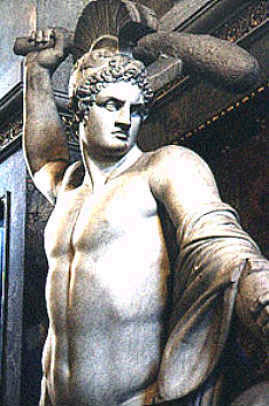
































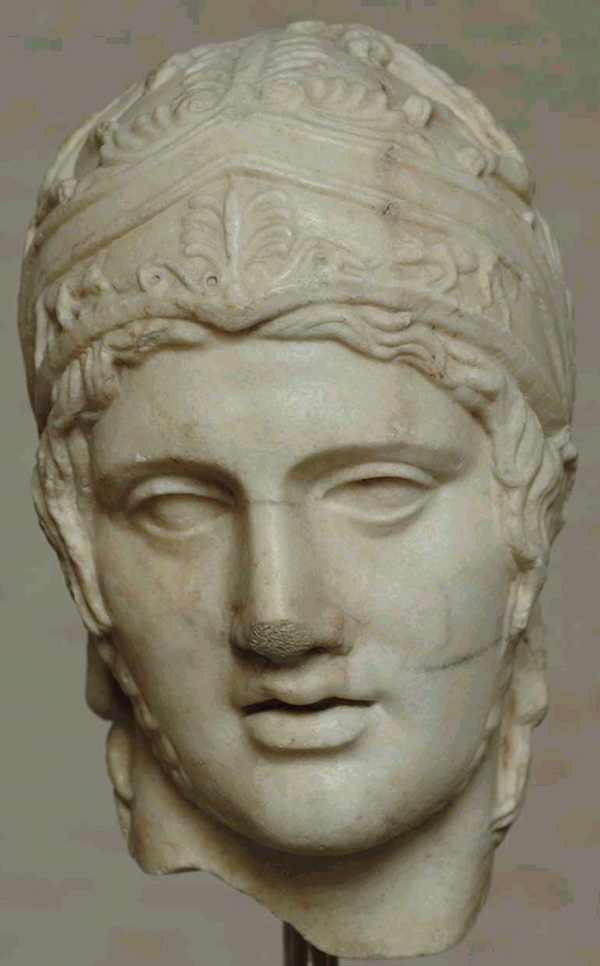














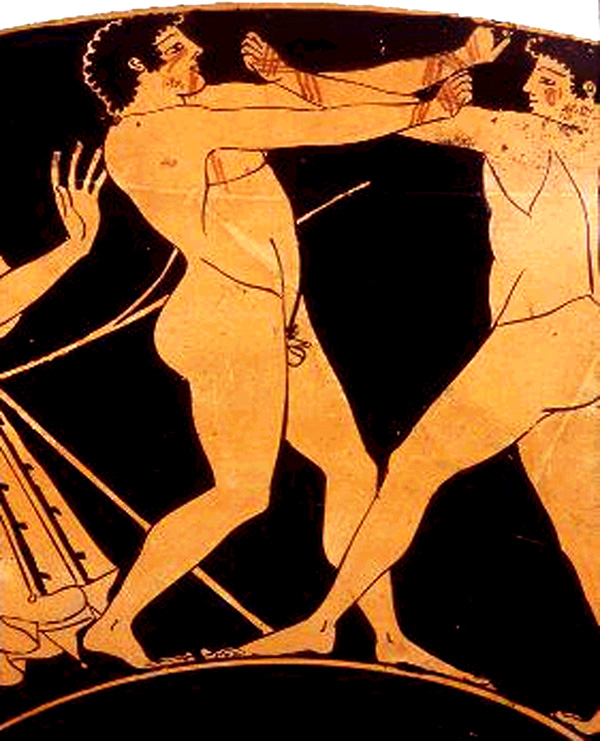


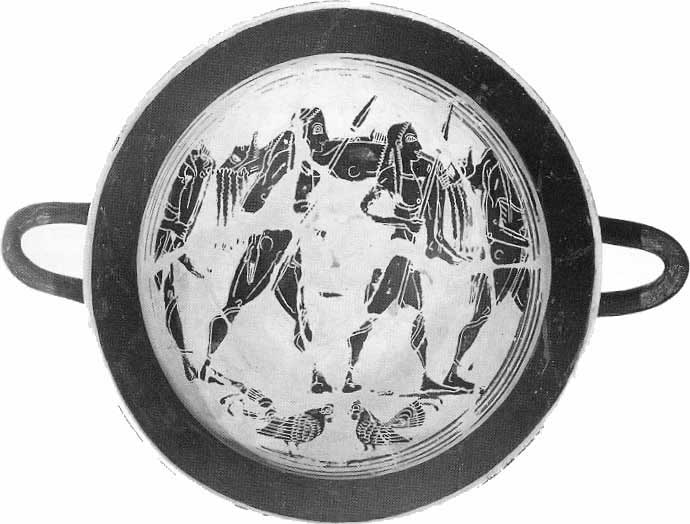














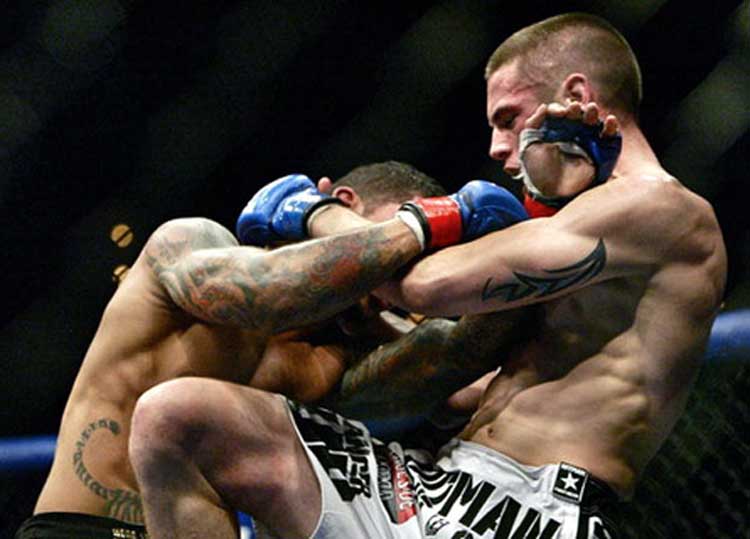















The word andreia ανδρεια has a much wider meaning than the English "courage." Like the Latin "virtus," it [the Greek word "andreia"] embraces all qualities which are desirable in a perfect man, especially the more active and positive virtues. When applied to one particular kind of virtue it is applied to courage, but throughout this discussion it is used in the wider sense, for which there is no single English equivalent.
The word andreia ανδρεια has a much wider meaning than the English "courage."
Like the Latin "virtus," it [the Greek word "andreia"] embraces all qualities which are desirable in a perfect man, especially the more active and positive virtues.
Like the Latin "virtus," Andreia embraces all qualities which are desirable in a perfect man, especially the more active and positive virtues.
f. vir [man], manliness, manhood, i. e. the sum of all the corporeal or mental excellences of man, strength, vigor; bravery, courage; aptness, capacity; worth, excellence, virtue, etc.
manliness, manhood, manly spirit, Lat. virtus
manliness, manhood, strength, vigor, bravery, courage, excellence
Manhood, manliness : Strength, vigor, bravery, courage, excellence ; Valour, gallantry, fortitude ; Goodness, moral perfection, high character, virtue ; Worth, merit, value.
At this meeting the general subject was human [andros -- man's] virtue [Areté -- Manhood], and most of the discussion turned upon manliness [andreia -- Fighting Manhood].
At this meeting the general subject was the Manhood of Man, and most of the discussion turned upon Fighting Manhood.
From the same root [ARES] comes areté ... the first notion of goodness being that of manhood, bravery in war; cf. Lat. virtus.
goodness, excellence, of any kind, esp. of manly qualities, manhood, valour, prowess, Hom., Hdt. (like Lat. vir-tus, from vir).
The Spartans owe their superiority to fighting and valor
The Spartans owe their superiority to Fighting and Manhood.
The Spartans owe their superiority to Fighting and Fighting Manhood.
At this meeting the general subject was the Manhood of Man, and most of the discussion turned upon Fighting Manhood.
manliness, manhood, manly spirit, Lat. virtus
like the rulers in the Republic and the Laws, is to control marriages and the propagation of the race, especially with a view to blending by both eugenics and education the oppositions of the energetic and sedate temperament.
[Lycurgus, the Spartan law-giver,] made it honourable [kalon -- morally beautiful] for worthy men to share children and their production, and derided people who hold that there can be no combination or sharing of such things, and who avenge any by assassinations and wars. Thus if an older man with a young wife should take a liking to one of the well-bred [kalos kai agathos -- noble and brave, noble and virile, morally beautiful and manly ; see also kalokagathos -- a man as he should be] young men and approve of him, he might well introduce him to her so as to fill her with noble [gennaios] sperm and then adopt the child as his own.
The word andreia ανδρεια has a much wider meaning than the English "courage."
f. vir [man], manliness, manhood, i. e. the sum of all the corporeal or mental excellences of man, strength, vigor; bravery, courage; aptness, capacity; worth, excellence, virtue, etc.


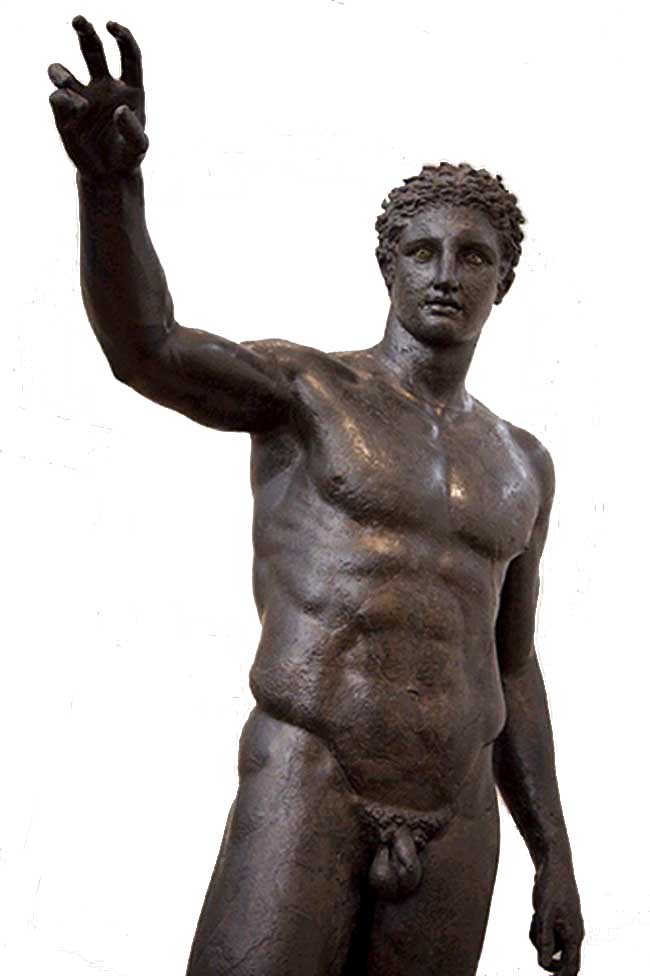








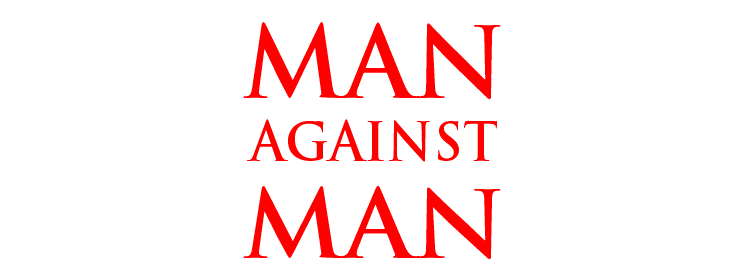






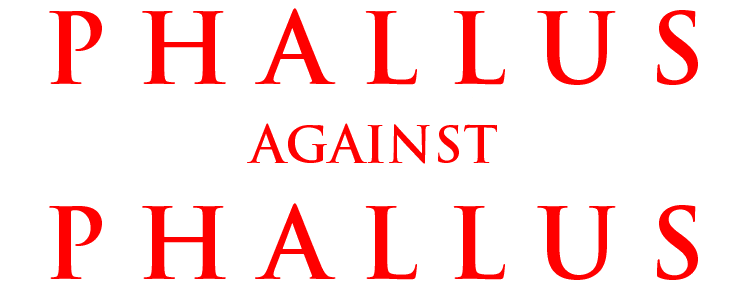





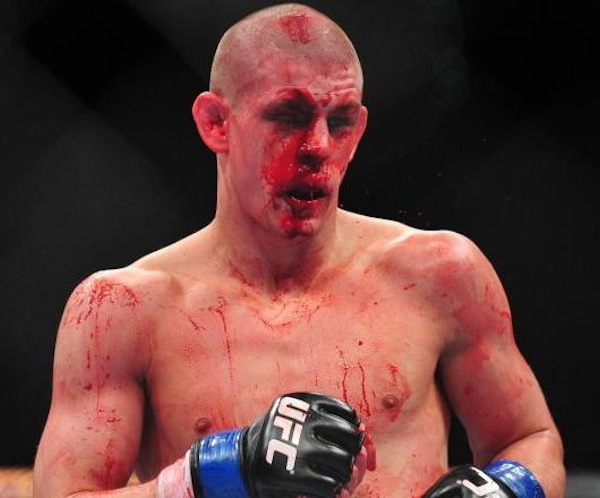

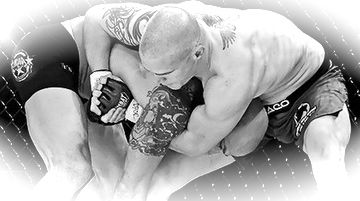
Recently I've been reading John Milton, the great English poet and defender of the Puritan and Parliamentary Revolution.
I've been reading his prose pieces -- which were written to advance that Revolutionary cause.
If you think I'm dogmatic and militant -- you should read Milton.
But his militancy helped bring about the freedoms we have today.
If an army went into battle without proper training and organisation they would lose. Historic example, in the English Civil War (1642 to 1646) the army of King Charles 1st was better organised and won most of the first battles; however Oliver Cromwell trained and organised the men fighting on Parliament's side into the New Model Army, and they won! If they had not been so organised the King would have carried on as the dictator he had been. Maybe eventually we would have got the freedoms that we enjoy now but it would have come more slowly and the monarch would have given them very grudgingly; so organisation is as you say vital to winning.









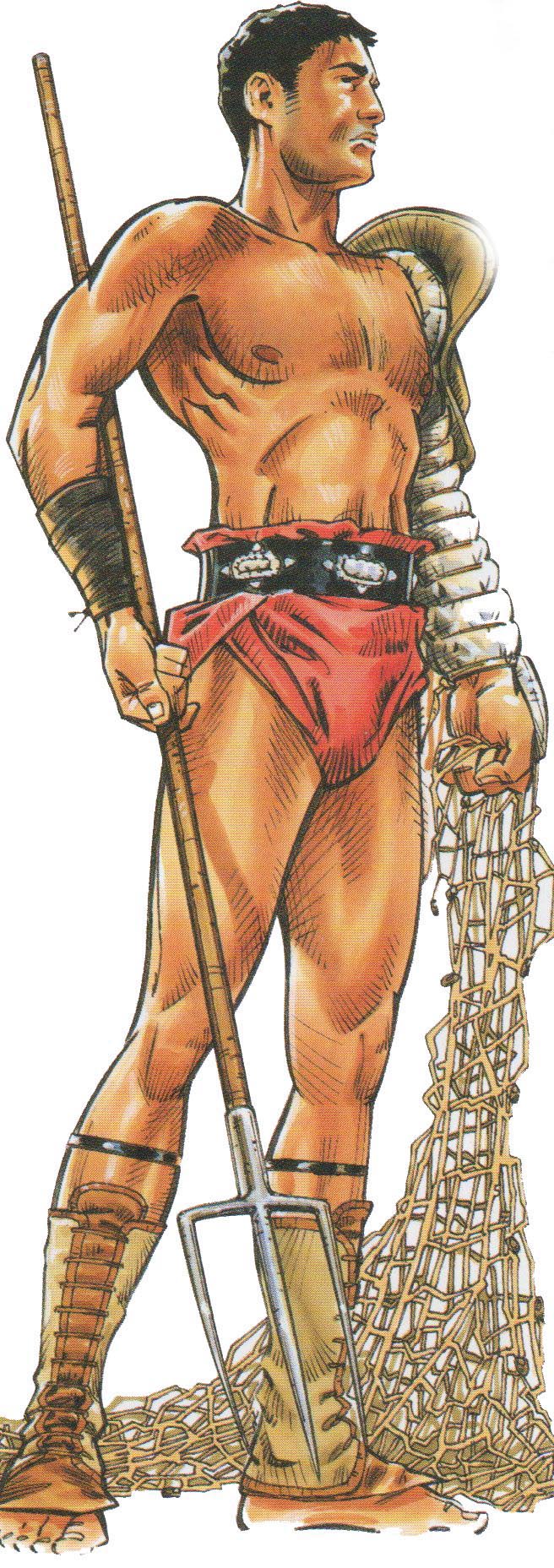
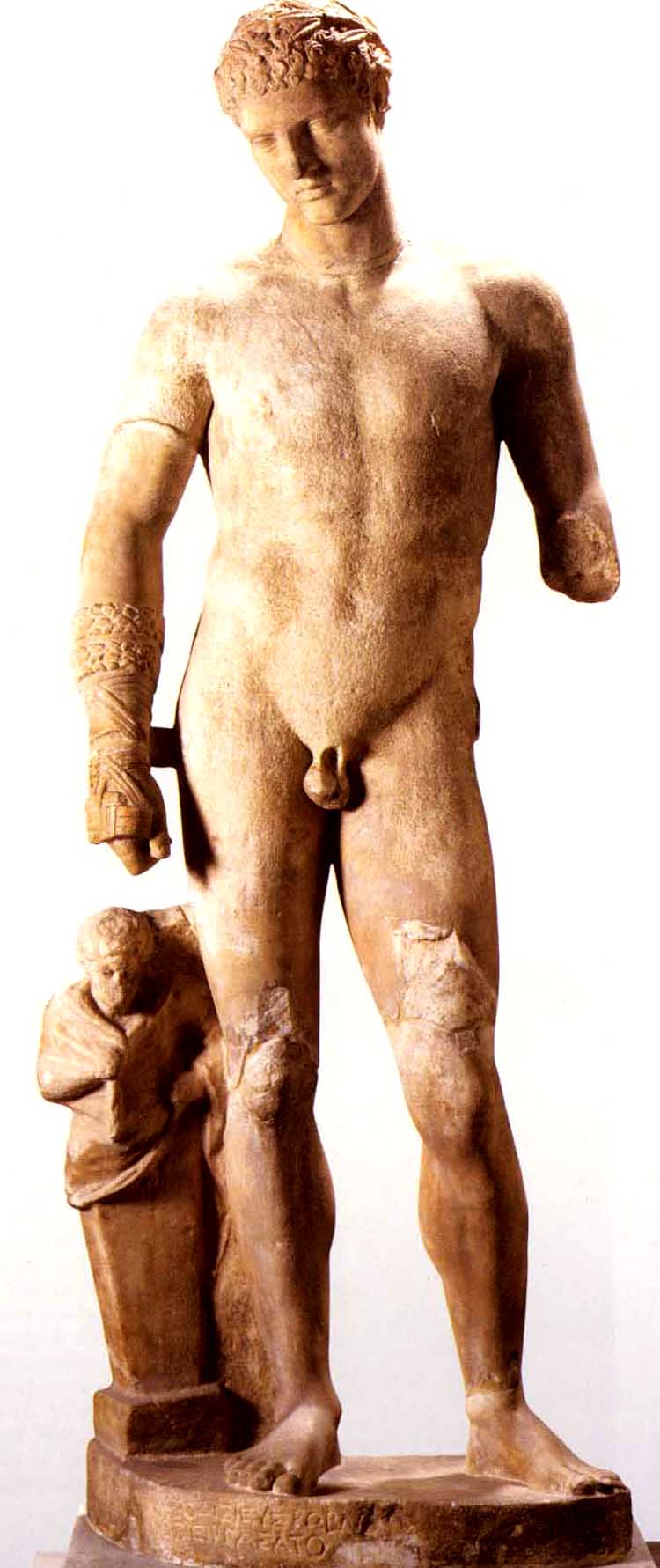

![]()


MANHOOD: A LEXICON
Word ListAncient Greek Words :
Manhood, Manliness : Strength, vigor, bravery, courage, excellence ; Valour, gallantry, fortitude ; Goodness, moral perfection, high character, virtue ; Worth, merit, value.
Manhood, Manliness : Strength, vigor, bravery, courage, excellence ; Valour, gallantry, fortitude ; Goodness, moral perfection, high character, virtue ; Worth, merit, value --
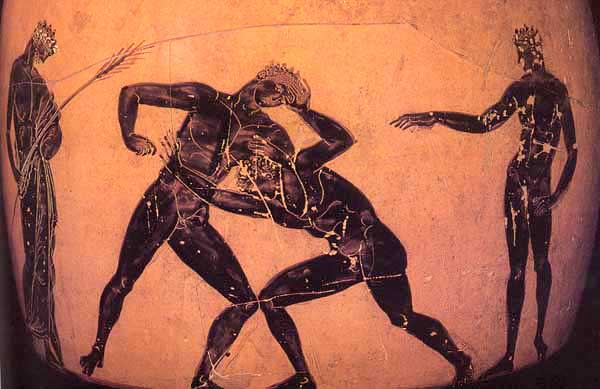
While the games were being held at Olympia, an old man was desirous of seeing them, but could find no seat. As he went to place after place, he met with insults and jeers, and nobody made room for him. But when he came opposite the Spartans, all the boys and many of the men arose and yielded their places. Whereupon the assembled multitude of Greeks expressed their approbation of the custom by applause, and commended the action beyond measure; but the old man, shaking "His head grey-haired and grey-bearded," and with tears in his eyes, said, 'Alas for the evil days ! Because all the Greeks know what is right and fair [ta kala -- The Noble Warrior Way of Manly Moral Beauty], but the Spartans alone practise it.'



Strength, vigor, bravery, courage, manly excellence ; Valour, gallantry, fortitude ; Manly goodness, moral perfection, high character, virtue ; Warrior worth, martial merit, virile value.
The word andreia ανδρεια has a much wider meaning than the English "courage."
Strength, vigor, bravery, courage, excellence ; Valour, gallantry, fortitude ; Manly goodness, moral perfection, high character, virtue ; Warrior worth, martial merit, virile value.
Goodness, or areté, was an intrinsic excellence that existed in all things.
[Areté is] goodness, excellence, of any kind, esp. of manly qualities, manhood, valour, prowess (like Lat. virtus, from vir)
From the same root [ARES] come areté, ari-, areion [better], aristos [best], the first notion of goodness being that of manhood, bravery in war; cf. Lat. virtus.
You are the unconquered blood of Herakles
When one runs away, all Worth [Timé] is lost
[Areté is] goodness, excellence, of any kind, esp. of manly qualities, manhood, valour, prowess (like Lat. virtus, from vir)
The Greek nobles believed that the real test of manly virtue [Areté] was victory in battle -- a victory which was not merely the physical conquest of an enemy, but the proof of hard-won areté.
Although men went to war initially because their cities' reputations were at stake, they also did so for personal gain and for personal satisfaction. The fighting was essentially hand-to-hand, taxing a man to his utmost, physically and mentally. Thus war gave a man an opportunity to display those qualities most admired by his fellows. His prowess not only gained him their admiration [Worth] but also brought honor [also Worth -- Timé] to his city and was in equal measure a source of pride to himself and his family. Some idea of the intensity of this
public pridefulness can be gotten from an epitaph on a stone slab in a tomb, dating from about 600 B.C., found on the island of Corcyra. It honors the courage in battle of a warrior felled by Ares, the God of War:
This is the tomb of Arniadas. Him flashing-eyed Ares destroyed as he fought by the ships at the streams of Aratthus, displaying the highest valor [aristeia] amid the groans and shouts of war.
But his Manly Virtue survives the mortal, and lives on in his glory, in that very ideal of his Fighting Manhood which accompanied and directed him throughout his life.
Stranger, the dust that brings glory to men conceals here in its bosom Timocritus [ti-me - critos = Worth Chosen], honoured by the Muses. For when the brave man [agathos] came into conflict with the sons of the Aetolians on behalf of his homeland, it was his desire either to be victorious [nikao] or to die. He fell among the front ranks [promachos] and left his father with pain beyond measure, but he did not lose sight of his noble [kala] upbringing [paideia]. Taking to heart the Spartan declaration of Tyrtaios, he chose valour [areté -- Fighting Manhood, Manly Goodness, Manly Excellence] ahead of life [bios].
Strength, vigor, bravery, courage, excellence ; Valour, gallantry, fortitude ; Goodness, moral perfection, high character, virtue ; Warrior Worth, Martial Merit, Virile Value.
The word andreia ανδρεια has a much wider meaning than the English "courage."
By exhorting them [the Spartans] to valor [areté], he [Tyrtaios] captured Messenne in the twentieth year.
Tyrtaios composed and left them [the Spartans] elegiac poems and by listening to them, they are taught to be brave [andreios].
Strength, vigor, bravery, courage, excellence ; Valour, gallantry, fortitude ; Goodness, moral perfection, high character, virtue ; Warrior Worth, Martial Merit, Virile Value.

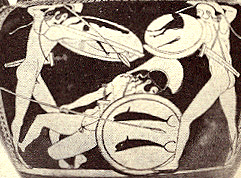
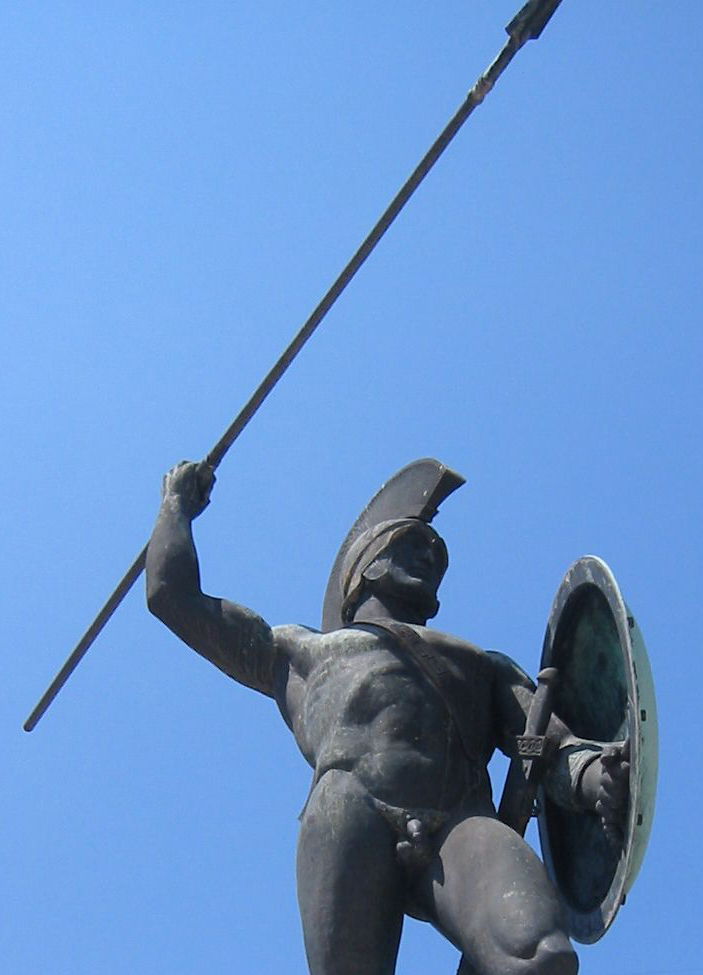
Ares, then, if you like, would be named for his Virility [arren] and Manhood [andreion], and for his hard and unbending nature, which is called arratos ; so Ares would be in every way a fitting name for the God of War [polemikos Theos].



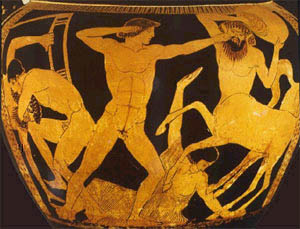
Strength, vigor, bravery, courage, excellence ; Valour, gallantry, fortitude ; Goodness, moral perfection, high character, virtue ; Worth, merit, value.
Manhood, manliness : Strength, vigor, bravery, courage, excellence ; Valour, gallantry, fortitude ; Goodness, moral perfection, high character, virtue ; Worth, merit, value.

[Areté is] goodness, excellence, of any kind, esp. of manly qualities, manhood, valour, prowess (like Lat. virtus, from vir)
From the same root [ARES] come areté, ari-, areion [better], aristos [best], the first notion of goodness being that of manhood, bravery in war; cf. Lat. virtus.
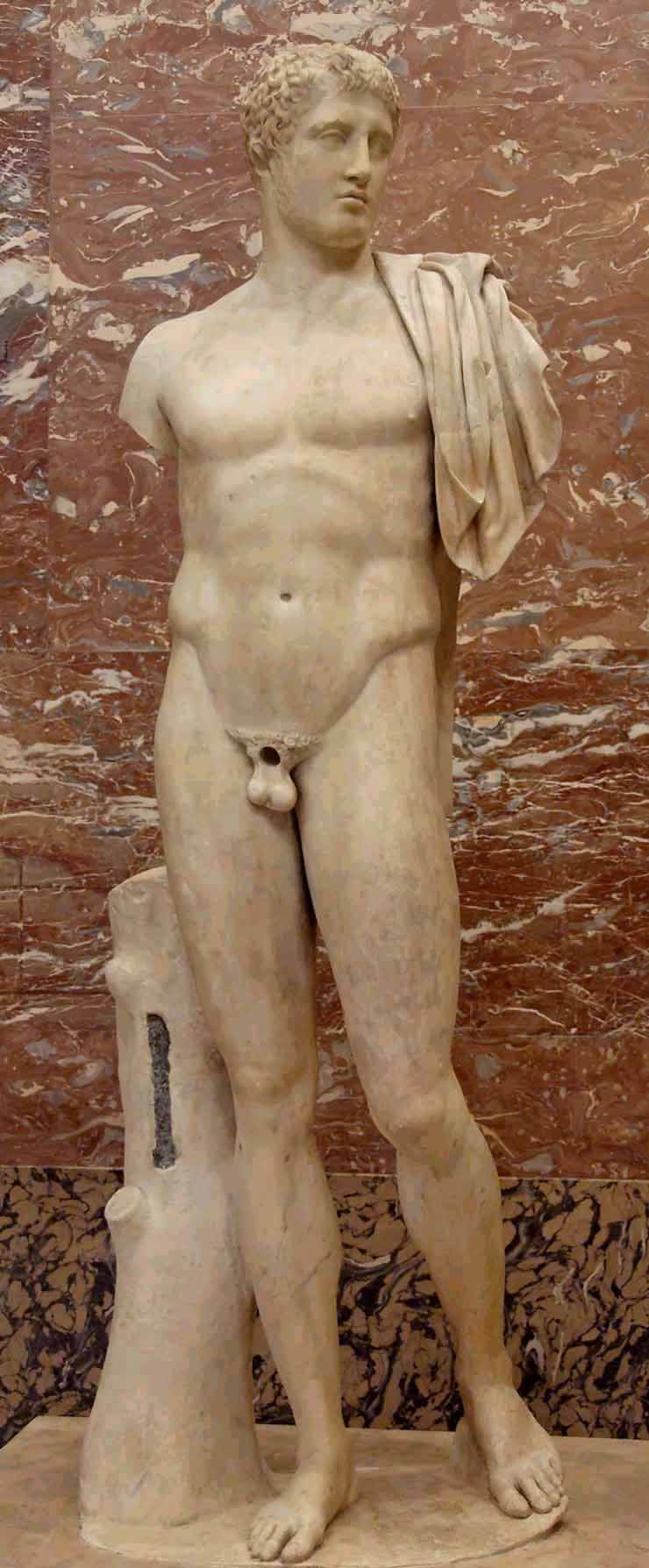
Diomedes
the short but glorious aristeia [heroism] of the Greek spirit. The basic motive of Greek areté is contained in the words 'to take possession of the beautiful'. The courage of a Homeric nobleman is superior to a mad berserk contempt of death in this -- that he subordinates his physical self to the demands of a higher aim, the beautiful. And so the man who gives up his life to win the beautiful, will find that his natural instinct for self-assertion finds its highest expression in self-sacrifice.
Ares, then, if you like, would be named for his virility [arren] and courage [andreion = courage, Manliness], and for his hard and unbending nature, which is called arratos; so Ares would be in every way a fitting name for the God of War.


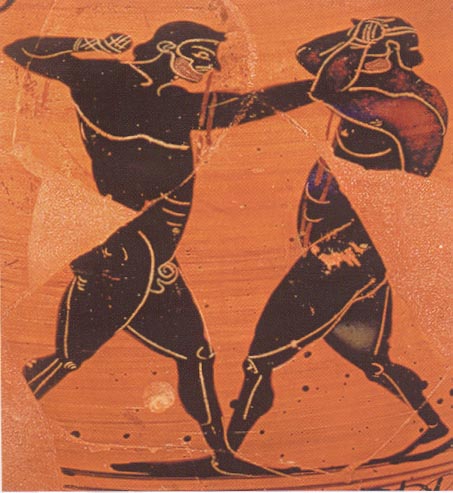
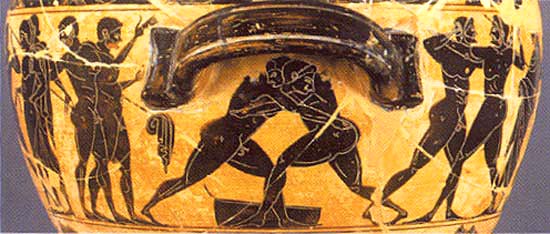
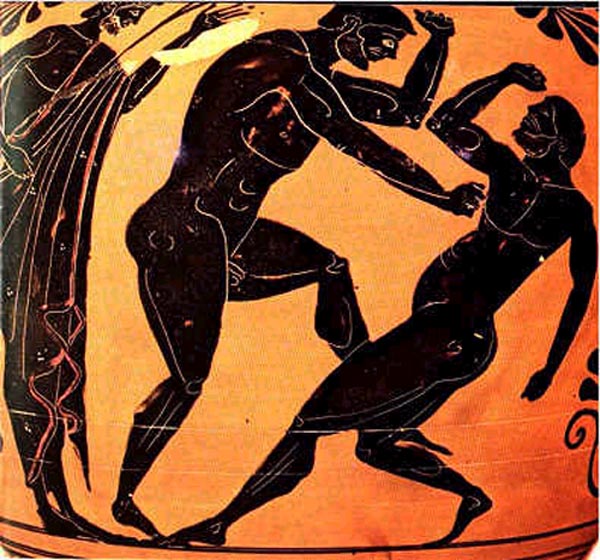
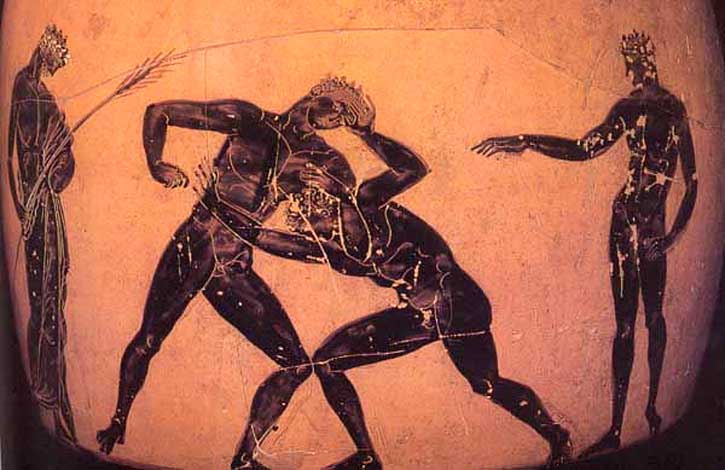
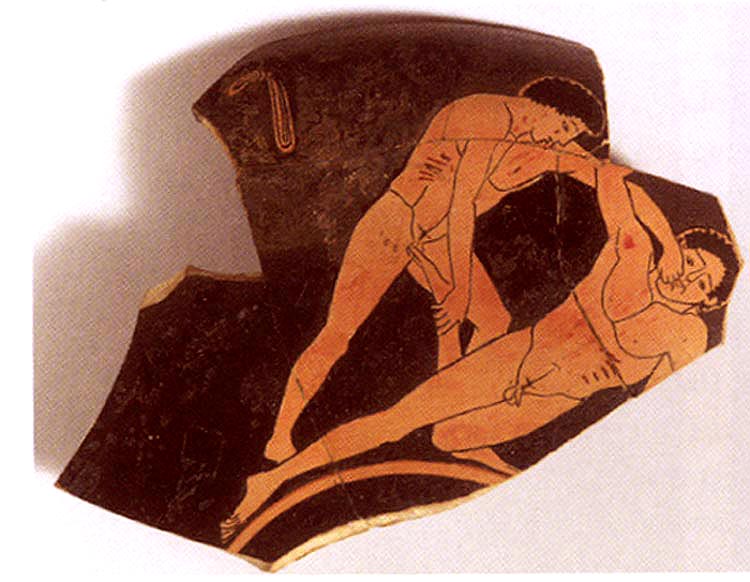

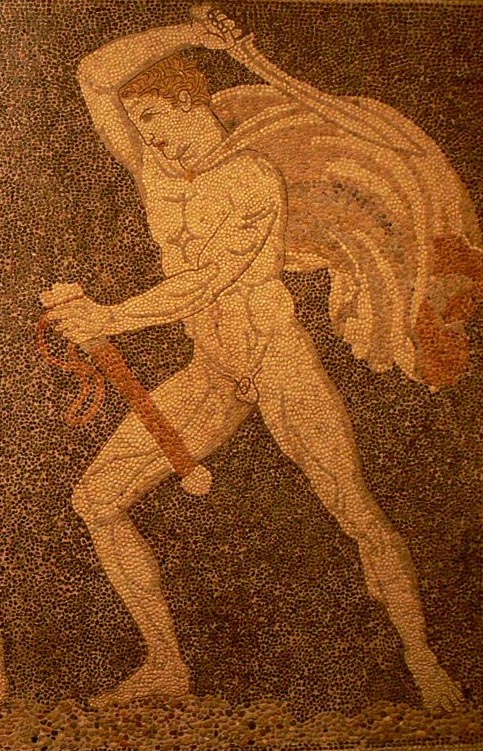
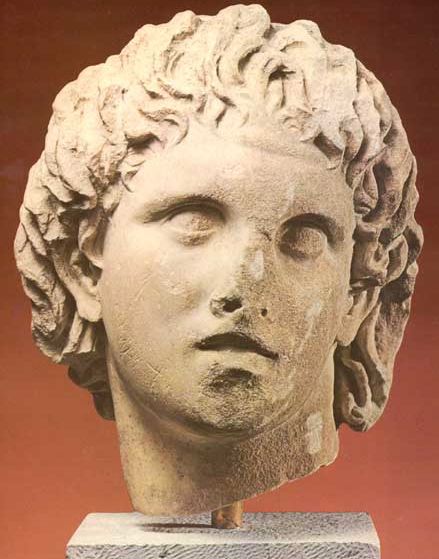
Alexander
Myth represents the active operations [daimonia] of the Gods.

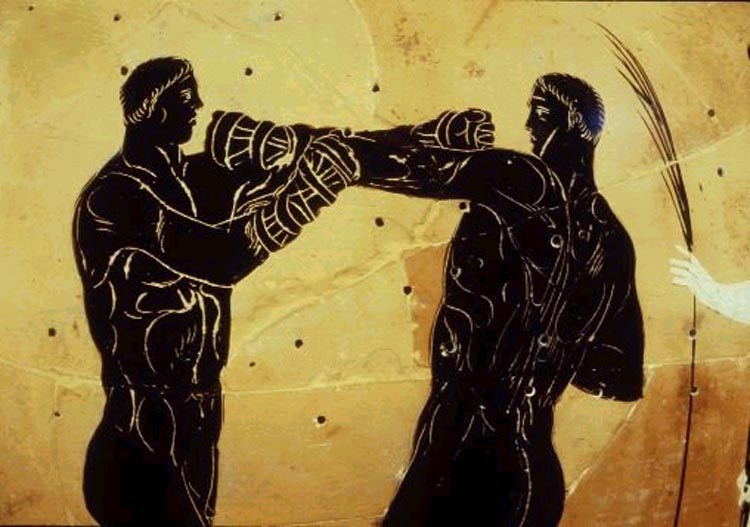



The contemplation of the ειδωλον, image or symbol, leads us to the reality. The reality is always the Platonic Idea [which resides in the World of Being]. The ειδωλον, in the case of ordinary "things," is the material copy which men mistake for the reality. In the case of spiritual things and moral ideas, there is no visible image or symbol, but imperfect analogies, popular definitions, suggestive phrases . . .
Wherefore I tell you now that every man should honor [timao] Love [Eros -- Romantic, Passionate Love between Men], as I myself do honor all love-matters with especial devotion, and exhort all other men to do the same; both now and always do I glorify [enkomiazo] Love's power [dynamis] and valor [andreia] as far as I am able.
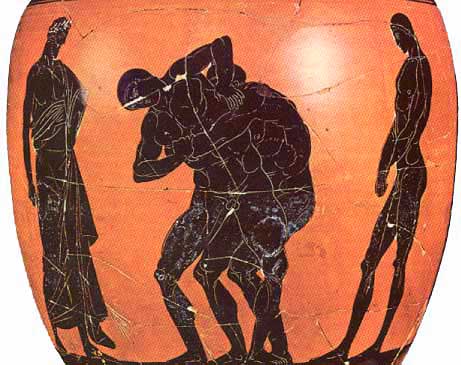
Wrestling
The ephedros is on the right ;
he'll Wrestle the Victor of the bout
[V]ictory in competition for timé also carried with it a strong entitlement to the obedience and deference of others and, therefore, lay at the basis of the loyalty of man for man. For it was simply in the nature of things, Greeks thought, for lesser men to respect and obey persons of the highest timé, worth, inasmuch as they were "worthy" of such treatment. Both gods [sic] and men paid automatic, unthinking respect to timé, and men paid respect to the gods [sic] at least in part because of their supreme timé.
The troops were, indeed, suffering terribly, but their discipline was wonderful. They made no attempt to beat off the enemy who were attacking them, but simply waited for the word from their God and their general, while they were shot and struck down at their posts.
The ruin of Paganism, in the age of Theodosius, is perhaps the only example of the total extirpation of any ancient and popular superstition; and may therefore deserve to be considered as a singular event in the history of the human mind.
The order was passed along the line to prepare for action, and suddenly there came over the whole phalanx the look of some ferocious beast, as it wheels at bay, stiffens its bristles, and turns to defend itself, so that the barbarians could no longer doubt that they were faced with Men who would Fight to the Death.
Hybris was both the act of insult -- whatever the reason for it -- and the arrogant disposition that disposed a man to the insult.
[T]he Athenians would not grant the Spartans the highest meed of valor [aristeia], nor allow them to erect a general trophy [tropaion], and the cause of the Hellenes had certainly gone at once to destruction from their armed contention, had not [the Athenian general and politician] Aristides, by abundant exhortation and admonition, checked his fellow-generals, especially Leocrates and Myronides, and persuaded them to submit the case to the Hellenes for decision.
Thereupon, in the council of the Hellenes, Theogeiton the Megarian said that the meed of valor must be given to some third city, unless they desired the confusion of a civil war. At this point Cleocritus the Corinthian rose to speak. Every one thought he would demand the meed of valor for the Corinthians, since Corinth was held in greatest estimation after Sparta and Athens. But to the astonishment and delight of all, he made a proposition in behalf of the Plataeans, and counselled to take away contention by giving them the meed of valor, since at their honor neither claimant could take offence.
